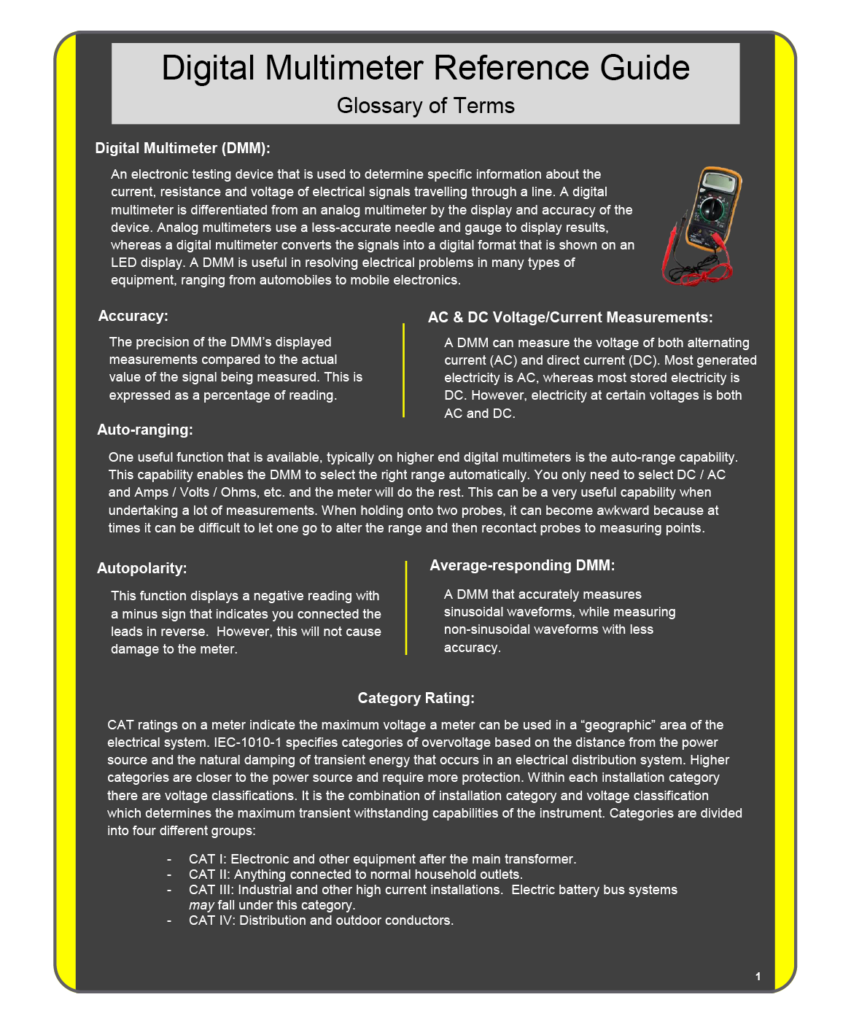This brief discusses the experiences of early career Black, Latina, and Afro Latina women in the trades. The COVID crisis has put a spotlight on the concentration of Black, Latina, and Afro-Latina women in low-wage jobs, including in many essential healthcare and retail jobs. The skilled construction trades have given many women an alternative to the poorly paid jobs in the service sector that many had to turn to before finding the trades. Skilled construction trades provide opportunities to build careers that are both challenging and fulfilling, pay a family sustaining wage with benefits, and can be accessed through ‘learn as you earn’ apprenticeships.
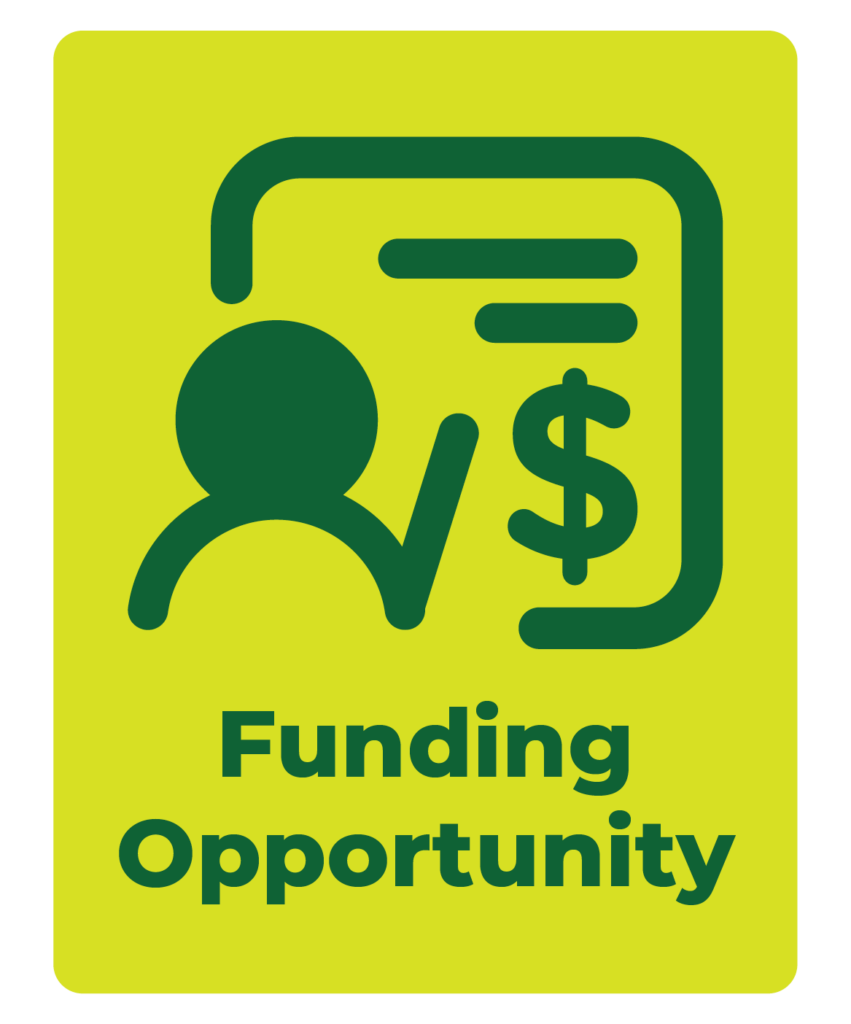
Future Ready Apprenticeship Center
Administering Agency: CareerWise
Closing Date for Applications: Friday, March 20, 2026
Funding Range: $200,00o per state
Geographic Scope: National
Description: With funding from the U.S. Department of Labor, CareerWise is launching the Future Ready Apprenticeship Center (the Center) in collaboration with the Colorado Department of Labor and Employment (CDLE) to support states in building state-level capacity to expand access to high-quality Registered Apprenticeships for youth aged 16-24. Selected states will receive customized consulting (intensive technical assistance), peer learning opportunities, and a total of $200,000 over 31 months (June 2026 – December 2028) to develop, implement and improve state plans that create systemic change in their ecosystems that enable expansion of youth access to registered apprenticeship programs.
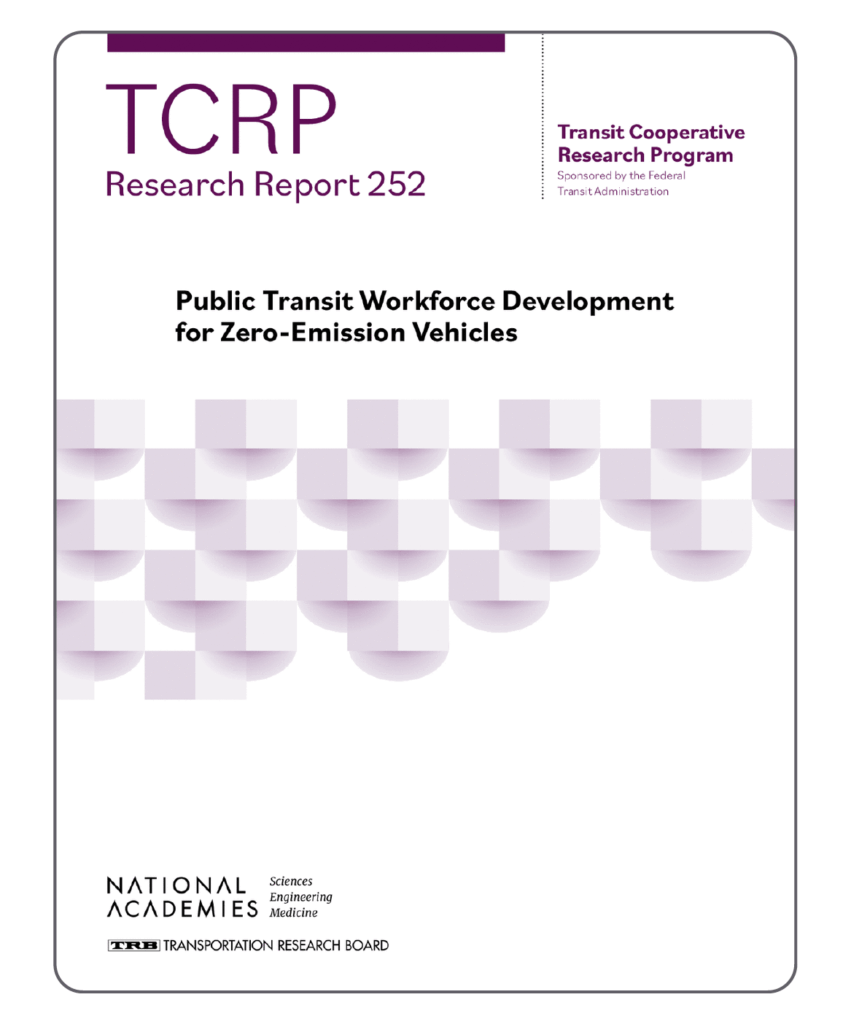
Public Transit Workforce Development for Zero-Emission Vehicles
This TCRP report focuses on vehicle maintenance of battery-electric and fuel-cell transit buses, including case studies from transit as well as lessons from the automotive and school transportation industries. Recommendations include assessing workforce skills through skills-gap analysis, building a systematic process for building skills (including through frontline worker engagement and the creation of formalized training programs, e.g., registered apprenticeship), and working proactively on recruitment and retention.
Transit Cooperative Research Program
December 2025
TOPICS: Low-No , Policy and Planning , Procurement , Safety and Health , Training
Contributor(s): National Academies of Sciences, Engineering, and Medicine; Transportation Research Board; Transit Cooperative Research Program; International Transportation Learning Center, John Schiavone, Karitsa Holdzkom, Douglas Nevins, Michaela Boneva; Planning Communities, Ann Steedly, Brandy Hutson, James Farrell
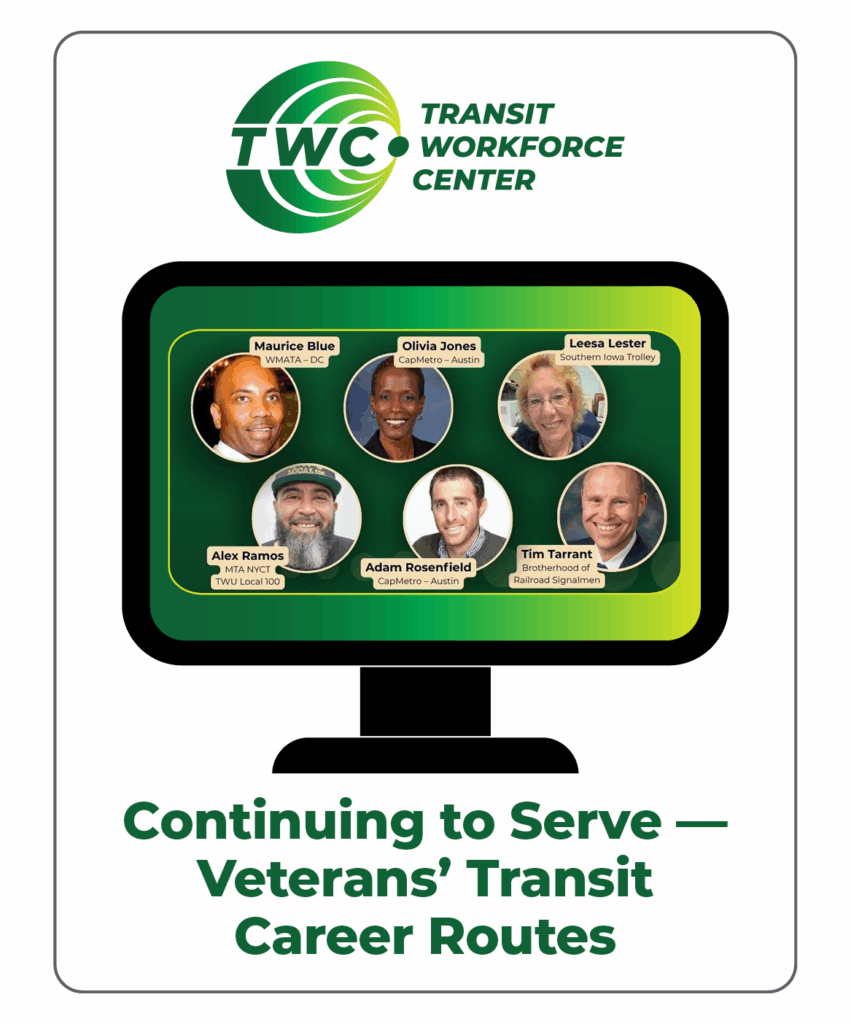
Continuing to Serve — Veterans’ Transit Career Routes
Transit Workforce Center
November 2025
In celebration of Veterans Day, TWC and external partners hosted a webinar exploring public transportation workforce pathways and opportunities for veterans. Check out the webinar recording below to hear from transit agencies and veterans about the experience veterans bring to public transportation, the various career trajectories they can follow in the industry, and how to launch veteran-focused outreach and recruitment programs. Several of the veterans and agencies were also represented in the Transit Career Story, Continuing to Serve — Veterans’ Transit Career Routes.
- Maurice Blue — Senior Sourcing Officer, Proactive Sourcing, Washington Metropolitan Area Transit Authority (WMATA)
- Olivia Jones — Director, Operations Control Center and Training, CapMetro
- Leesa Lester — Transit Director, Southern Iowa Trolley
- Alex Ramos — Outreach Coordinator, Transport Workers Union Local 100/Training Upgrade Fund; Light Maintainer, Metropolitan Transportation Authority–New York City Transit
- Adam Rosenfield — Program Manager, Workforce Outreach, CapMetro
- Tim Tarrant — Vice President for Commuter/Passenger, Brotherhood of Railroad Signalmen
Recording:

Streamlining Operator Hiring Practices — Key Takeaways from TWC’s Review of Existing Research
TWC is launching a new research effort aimed at documenting current transit agency hiring processes for operators and producing new resources to support agencies’ operator hiring efforts. The first part of the initiative is this introductory brief which reviews prior research on operator hiring practices in the transit industry, including best practices and lessons from other industries.
Transit Workforce Center
November 2025
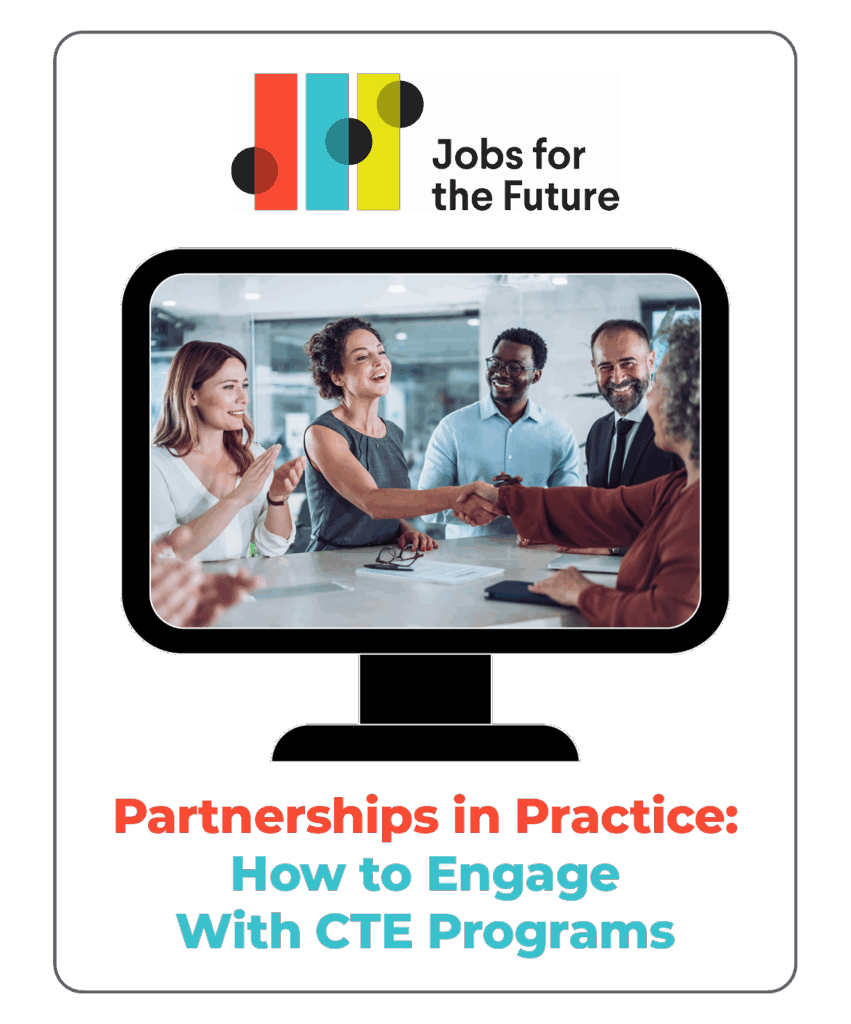
Partnerships in Practice: How to Engage With CTE Programs
This guide outlines a range of ways employers can engage with community college career and technical Education (CTE) programs, which are shown to be local sources of skilled workers. Offering strategies, tools, and advice for employers, it’s a companion piece to the JFF Power Your Workforce playbook.
Jobs for the Future
September 2025
Check out TWC’s college partnership case study for examples from transit of agencies engaging with their local college partners.

Power Your Workforce
This playbook introduces the business value of partnering with CTE, explains how these programs prepare learners with in-demand skills, and shows how employers can tap into this pipeline to meet current and future workforce needs. It explains how community college CTE programs work and provides a clear path to collaboration. It’s companion piece, Partnerships in Practice, offers strategies, tools, and advice for working with local colleges.
Jobs for the Future
September 2025
Check out TWC’s college partnership case study for examples from transit of agencies engaging with their local college partners.
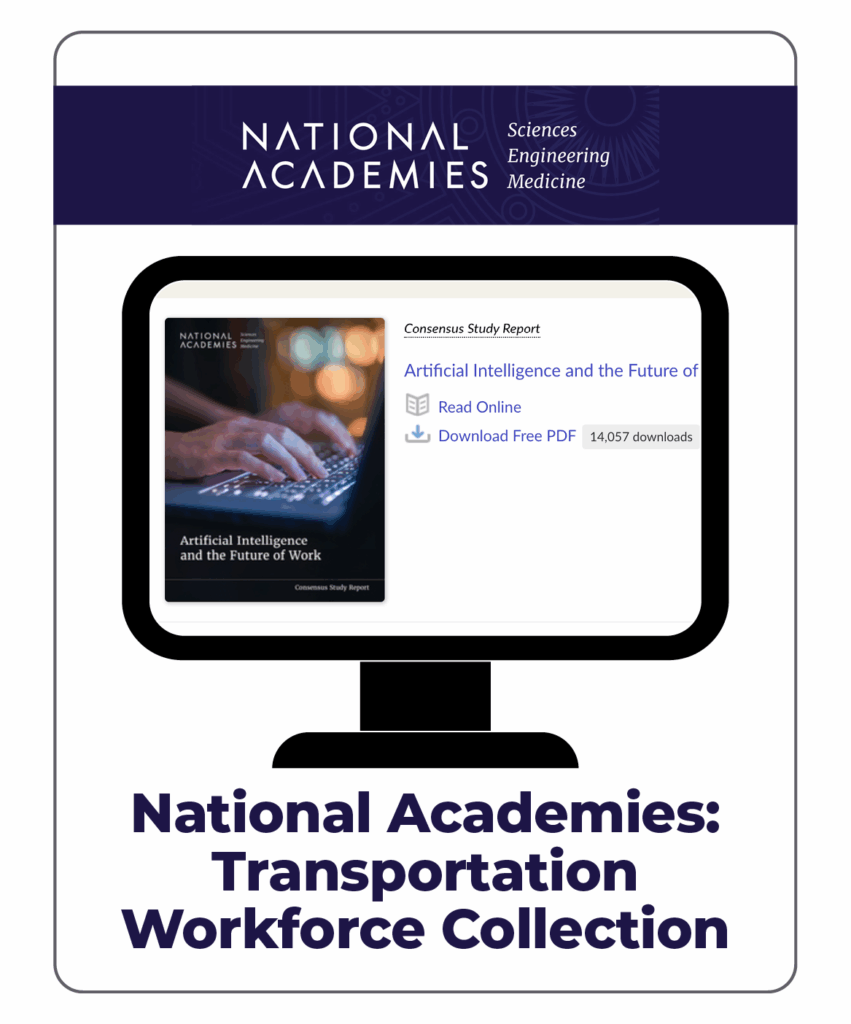
National Academies: Transportation Workforce Collection
The transportation industry has an all-encompassing need for an increasingly qualified workforce. The National Academies sponsor and publish research relating to the transportation workforce on a number of topics ranging from AI integration to mental health and wellness of transit system workers.
National Academies of Science, Engineering, and Medicine
TOPICS: Policy and Planning
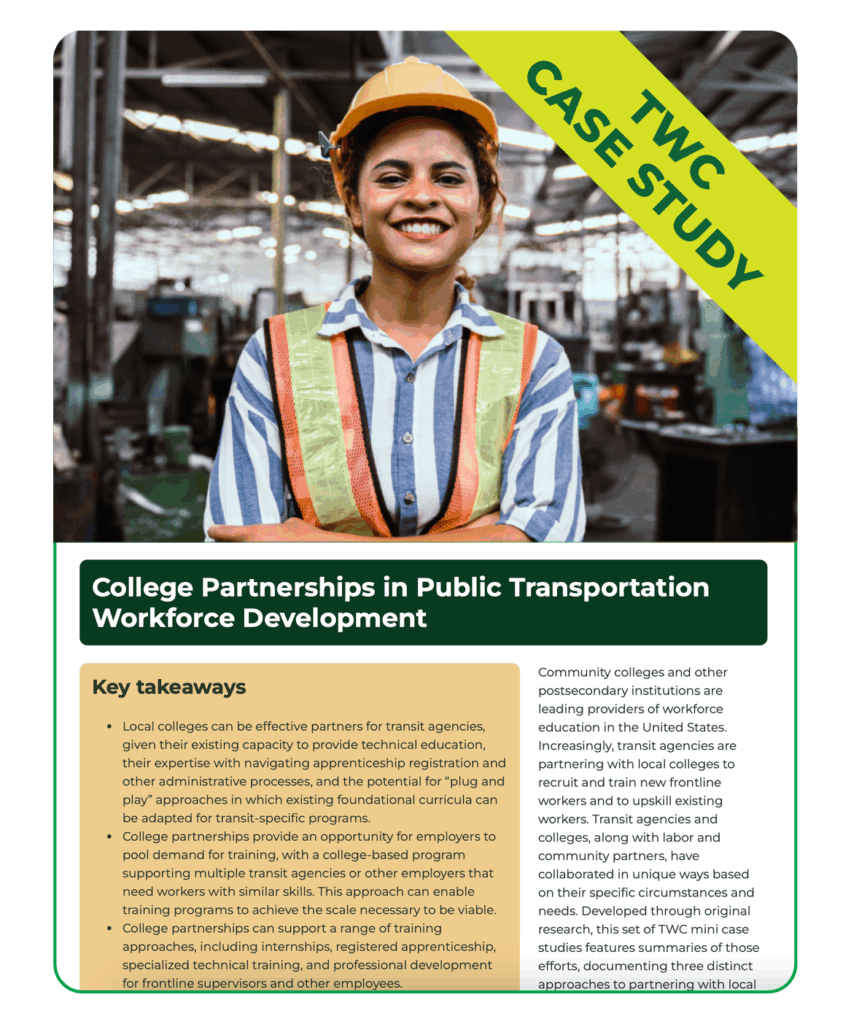
College Partnerships in Public Transportation Workforce Development
Community colleges and other postsecondary institutions are leading providers of workforce education in the United States. Increasingly, transit agencies are partnering with local colleges to recruit and train new frontline workers and to upskill existing workers. Transit agencies and colleges, along with labor and community partners, have collaborated in unique ways based on their specific circumstances and needs. Developed through original research, this set of TWC mini case studies features summaries of those efforts, documenting three distinct approaches to partnering with local colleges.
Transit Workforce Center
September 2025
TOPICS: Apprenticeship , Career Pathways , Community Engagement , Hiring and Recruitment , Training
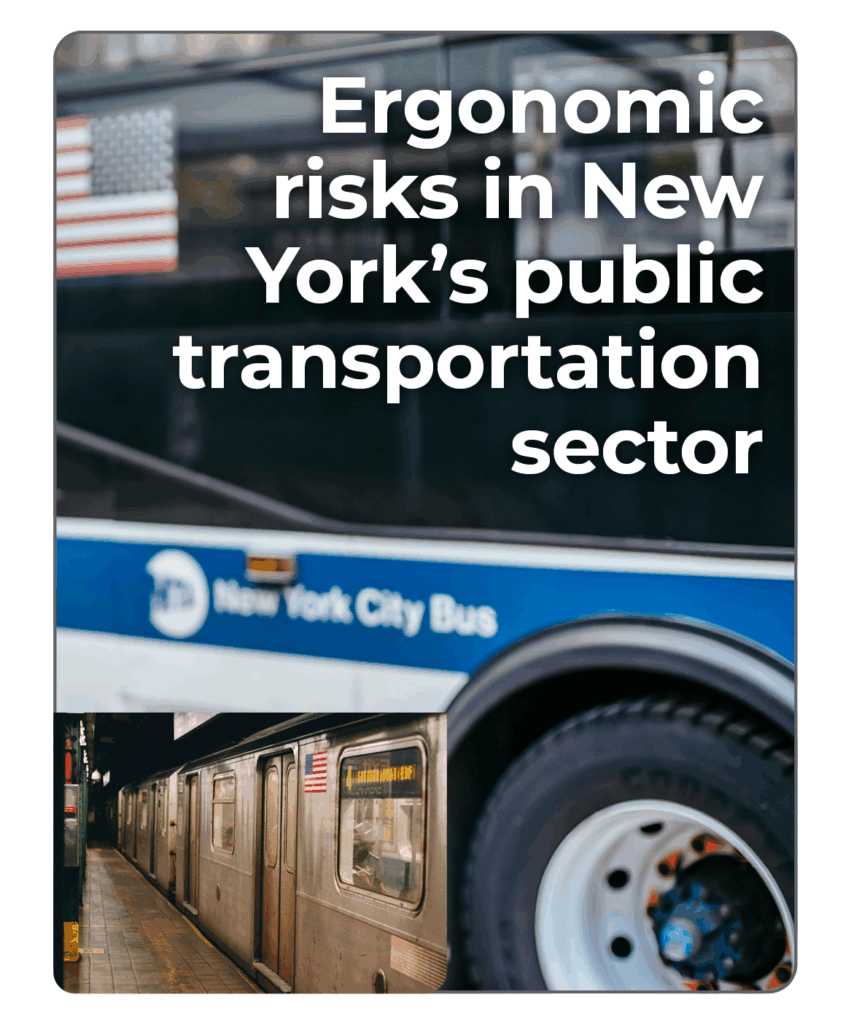
Ergonomic risks in New York’s public transportation sector
Transit employees, including bus drivers, subway operators, maintenance personnel, and station staff, are routinely exposed to risk factors such as prolonged sitting, awkward postures, repetitive movements, forceful exertions, and vibration exposure. These conditions contribute to musculoskeletal disorders (MSDs), fatigue, reduced productivity, and long-term health complications. This paper examines the scope of ergonomic hazards within New York’s public transportation sector, highlighting their health, safety, and organizational impacts. It also explores existing gaps in ergonomic interventions and emphasizes the need for targeted strategies, including workplace redesign, training programs, and policy reforms, to reduce risks and improve worker well-being.
September 2025
TOPICS: Policy and Planning , Safety and Health
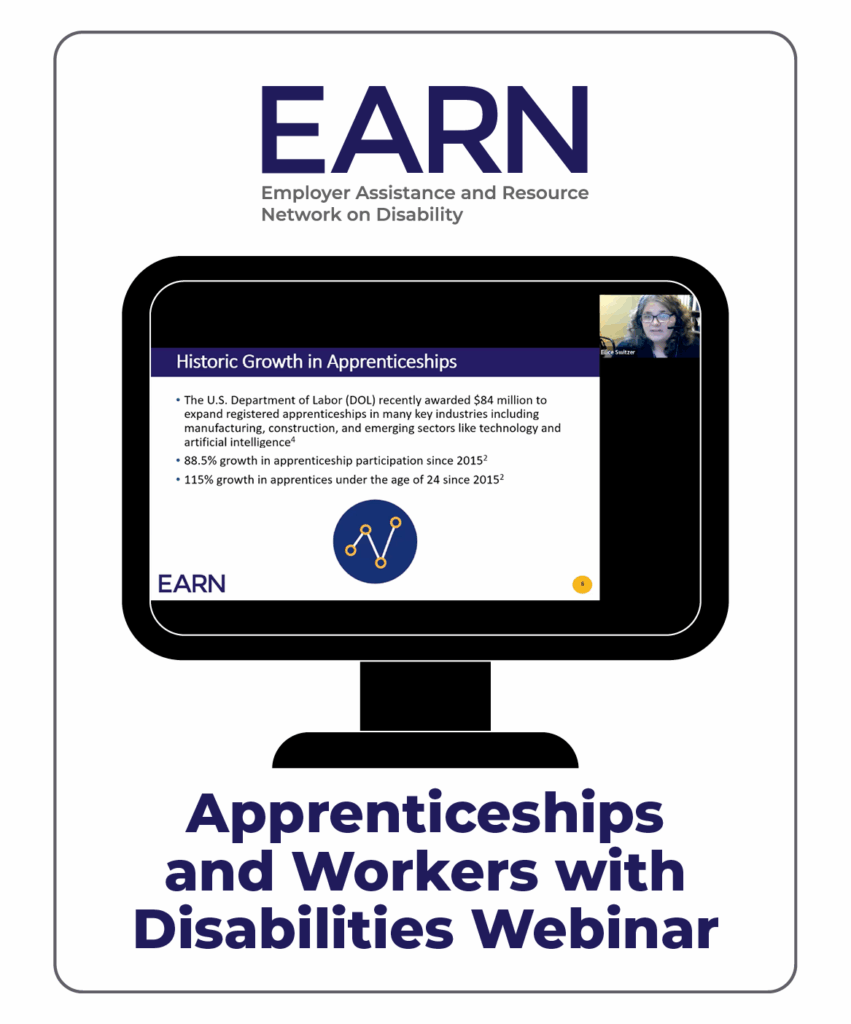
Apprenticeships and Workers with Disabilities Webinar
Employer Assistance and Resource Network on Disability
August 2025
Paid apprenticeships combine education and on-the-job training to prepare workers for long-term career success. By ensuring that all qualified candidates, including those with disabilities, have an opportunity to access apprenticeship opportunities, employers benefit from a broader pool of qualified workers. This webinar recording details practical strategies for recruiting and supporting apprentices with disabilities, as well as where to find recruitment resources and how to develop partnerships to build a talent pipeline. It also highlights a case example of a manufacturing business that credits its partnership with a local community-based organization serving jobseekers with disabilities with saving the local business.
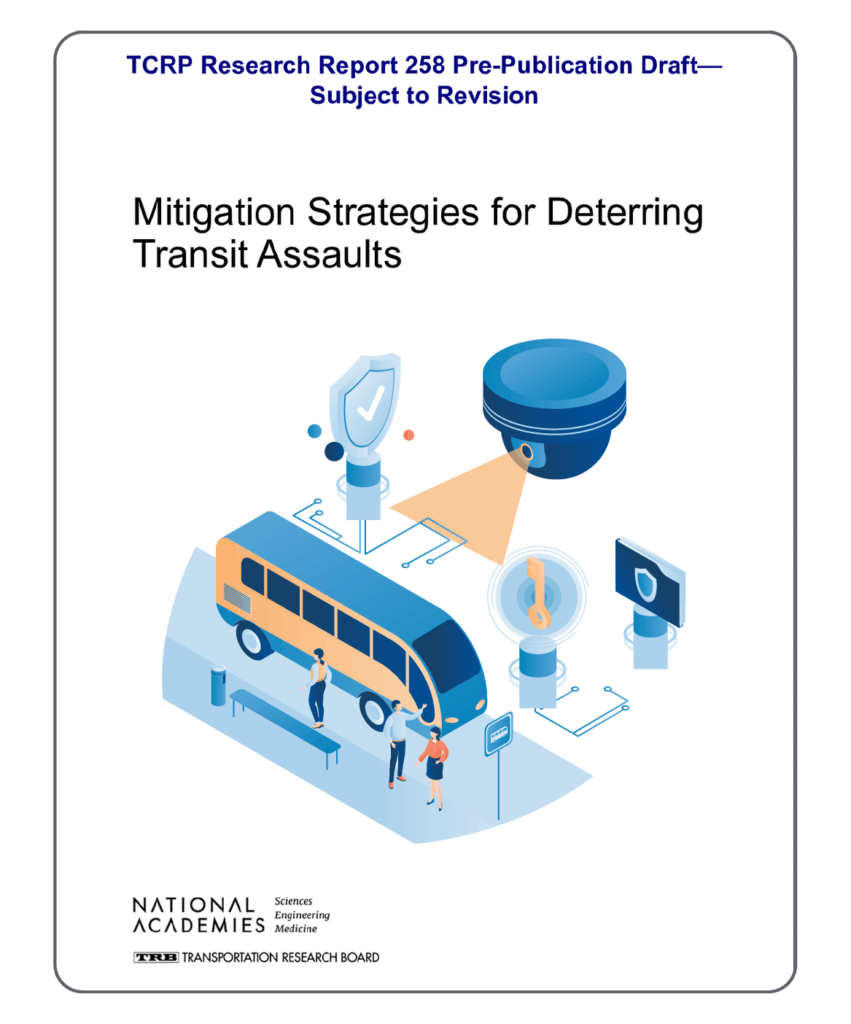
Mitigation Strategies for Deterring Transit Assaults
TCRP Research Report 258: Mitigation Strategies for Deterring Transit Assaults, from TRB’s Transit Cooperative Research Program, equips agencies with practical strategies and evidence-based recommendations to enhance safety and security in the transit environment.
Transit Cooperative Research Program
August 2025
TOPICS: Policy and Planning , Safety and Health , Training
Contributor(s): National Academies of Sciences, Engineering, and Medicine; Transportation Research Board; Transit Cooperative Research Program; Joan G. Hudson; Olivia (Jueyu) Wang; Neal Johnson; Ipek N. Sener; Jiani Guo; Crystal O’Rear; Hanfei Zhang; Mahya Mahdavi; Anastasia Loukaitou-Sideris
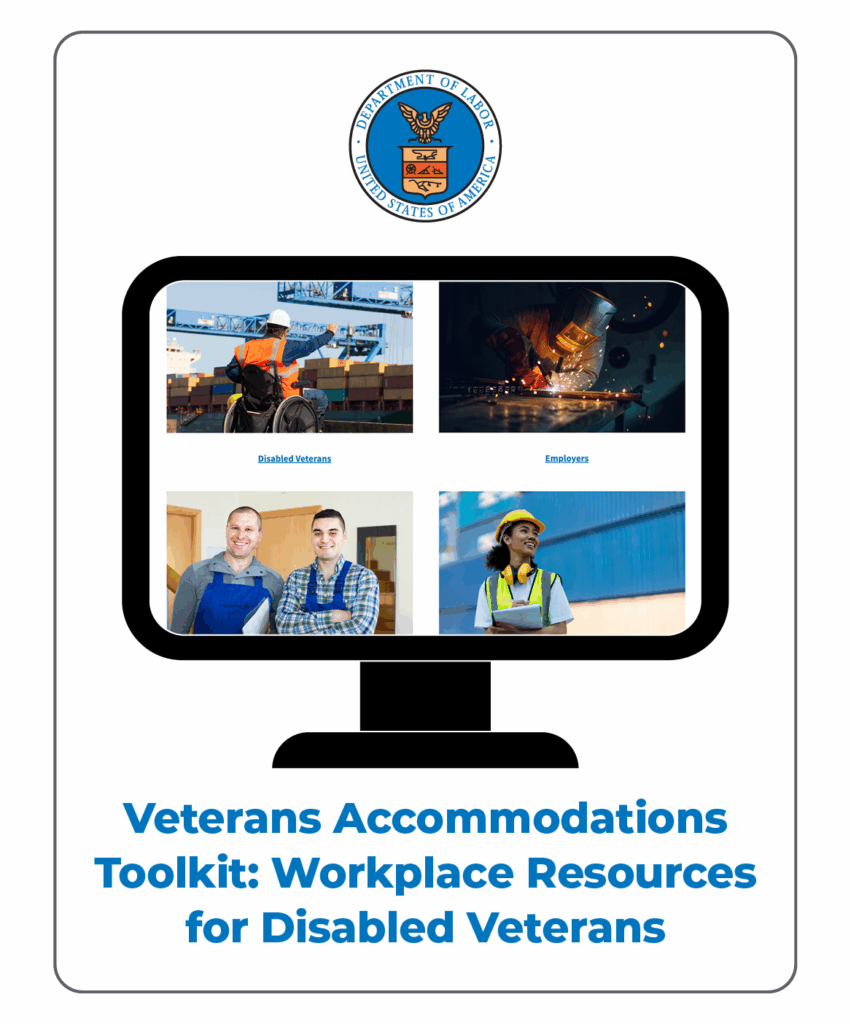
Veterans Accommodations Toolkit: Workplace Resources for Disabled Veterans
ODEP partners with DOL sister agencies and supports initiatives to provide job training and employment assistance services to veterans and returning service members, including disabled veterans. This toolkit represents a collaboration between ODEP and the Veterans’ Employment and Training Service to offer tips and strategies for navigating and supporting workplace accommodations.
U.S. Department of Labor, Office of Disability Employment Policy
TOPICS: Retention , Safety and Health
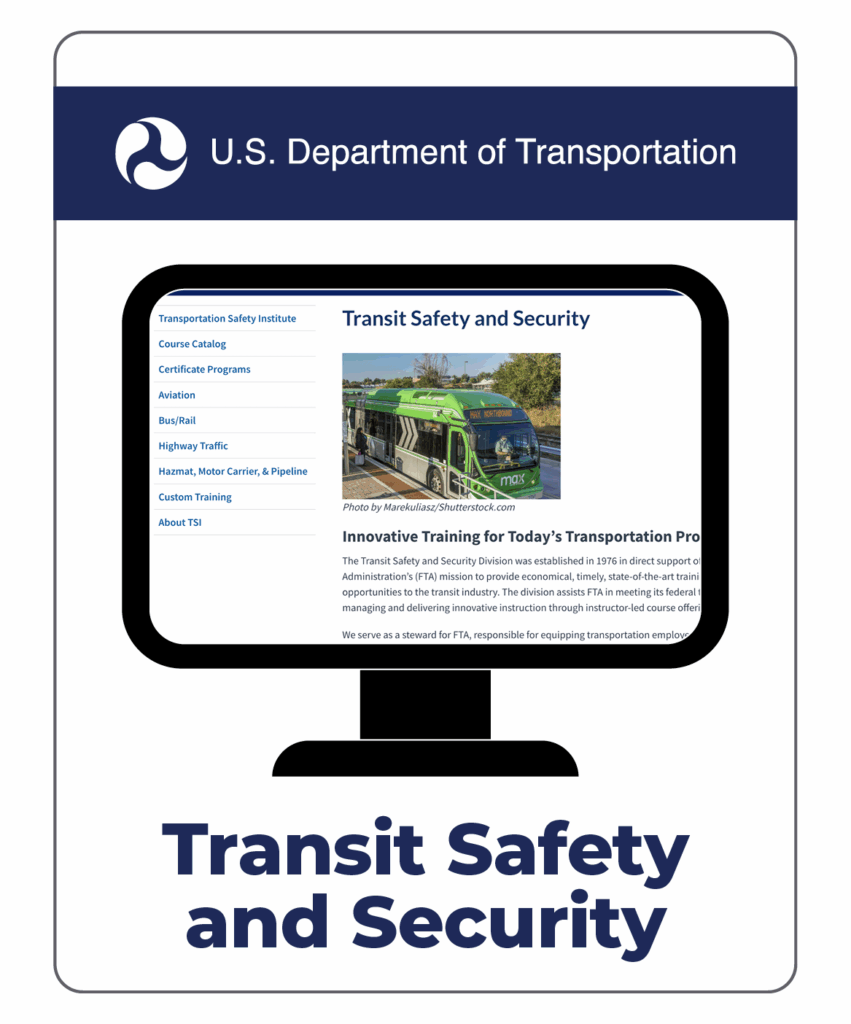
Transit Safety and Security
TSI’s training programs are designed and delivered to provide critical safety and security information, best practices, and regulatory guidance. Upon successful completion of TSI training courses, attendees receive tools and resources which enable participants to enhance the safety and security programs within their respective agency. Course materials are routinely updated to ensure all pertinent regulatory requirements are addressed in each training course.
Transportation Safety Institute
TOPICS: Policy and Planning , Safety and Health , Training
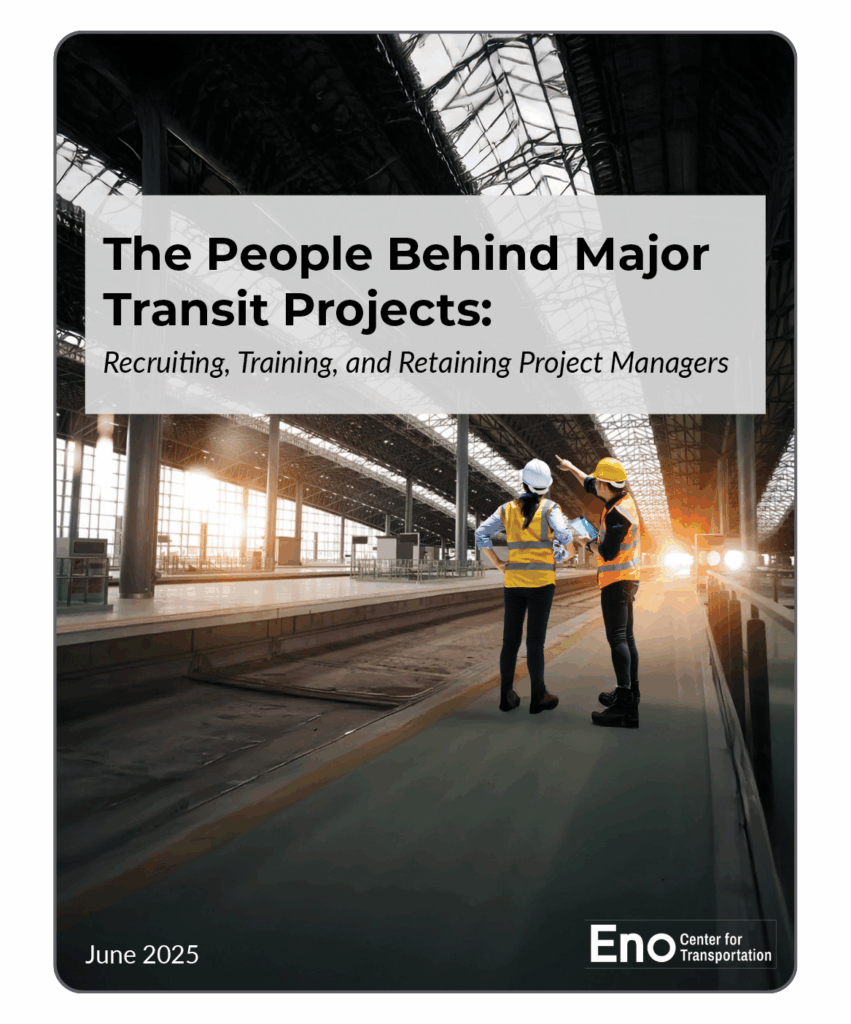
The People Behind Major Transit Projects
The People Behind Major Transit Projects explores strategies to help agencies better recruit, train, and retain project managers for large transit projects. It examines the challenges these managers face, and highlights the skills, experience, and support they need to succeed.
Eno Center for Transportation
June 2025
TOPICS: Hiring and Recruitment , Policy and Planning , Retention
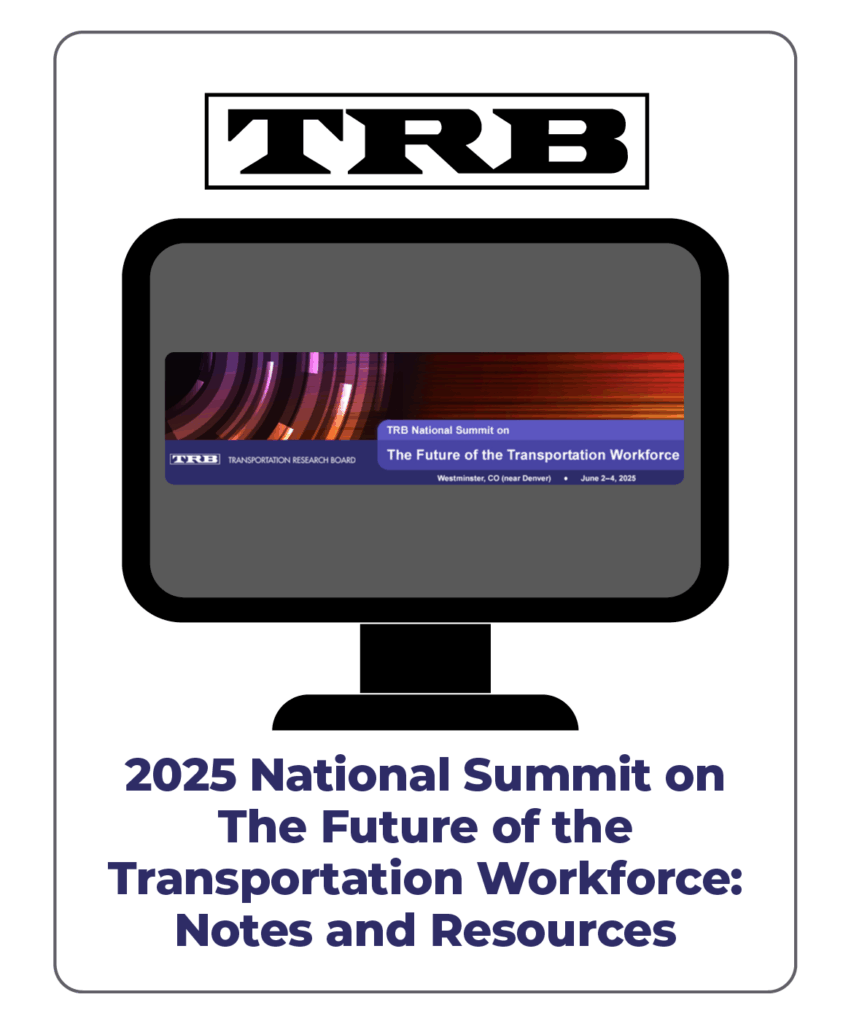
2025 National Summit on The Future of the Transportation Workforce: Notes and Resources
TRB held the National Summit on the Future of the Transportation Workforce on June 2-4, 2025 in Westminster, CO. This was the first national conversation on this critical issue since 2012. Thought leaders in transportation workforce recruitment, training, retention, and knowledge management met to discuss and address the challenges faced in each step of the workforce life cycle. Attendees included representatives from federal, state, and local transportation agencies; Metropolitan Planning Organizations; public transit agencies; academia; and private industry. Notes and resources from the conference can be found on this landing page.
Transportation Research Board
June 2025
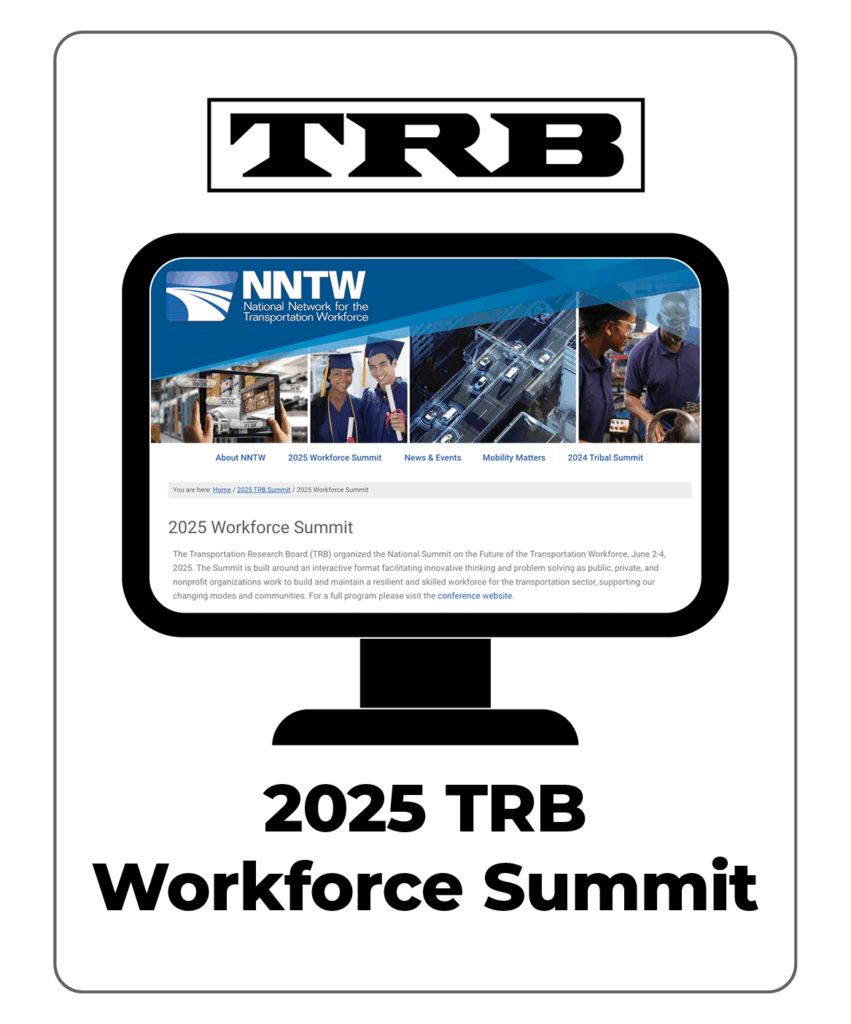
2025 TRB Workforce Summit
The Transportation Research Board (TRB) organized the National Summit on the Future of the Transportation Workforce, June 2-4, 2025. The Summit is built around an interactive format facilitating innovative thinking and problem solving as public, private, and nonprofit organizations work to build and maintain a resilient and skilled workforce for the transportation sector, supporting our changing modes and communities. This landing page provides links to pre-conference webinars and briefing papers from summit sessions.
Transportation Research Board
June 2025
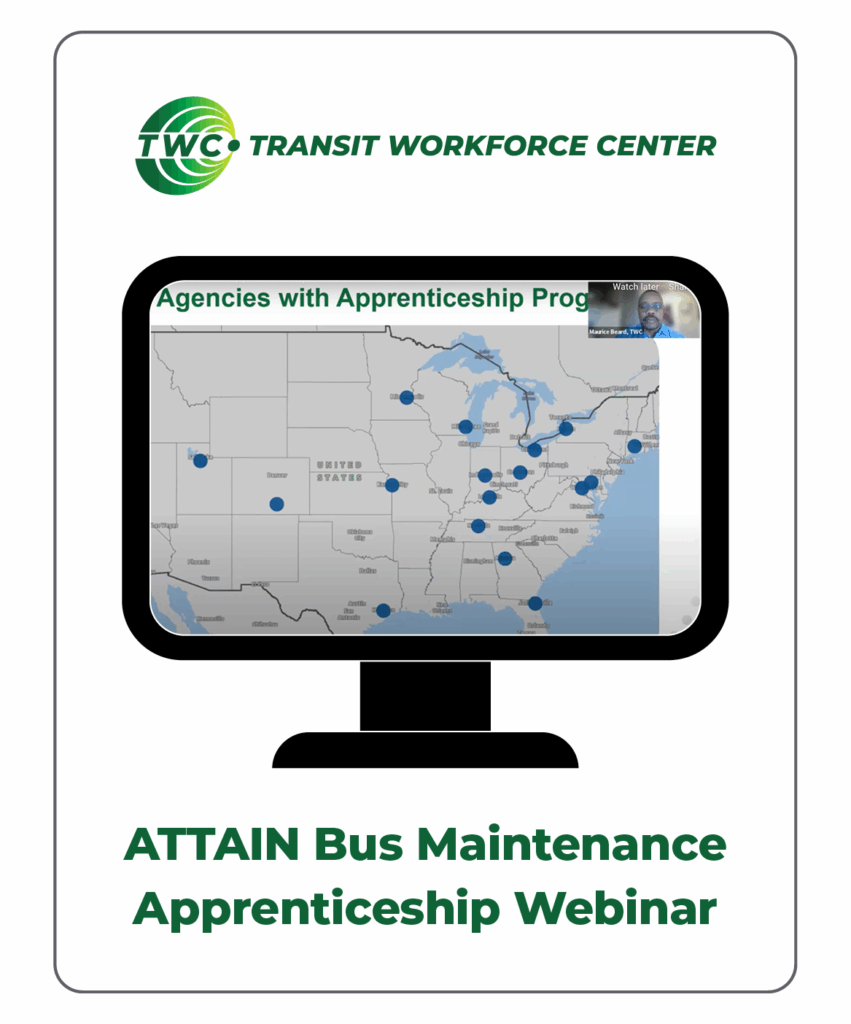
ATTAIN Bus Maintenance Apprenticeship Webinar
Transit Workforce Center
May 2025
This ATTAIN webinar focused on bus maintenance apprenticeship programs and featured Milwaukee County Transit System/Amalgamated Transit Union Local 998 and Jacksonville Transit Authority/International Association of Machinists and Aerospace Workers Lodge 759. Panelists from these transit agencies and labor unions outlined the development process and the final structure of their apprenticeship programs while highlighting how this strategy was implemented and why it works, offering benefits for both the agency and the workforce.
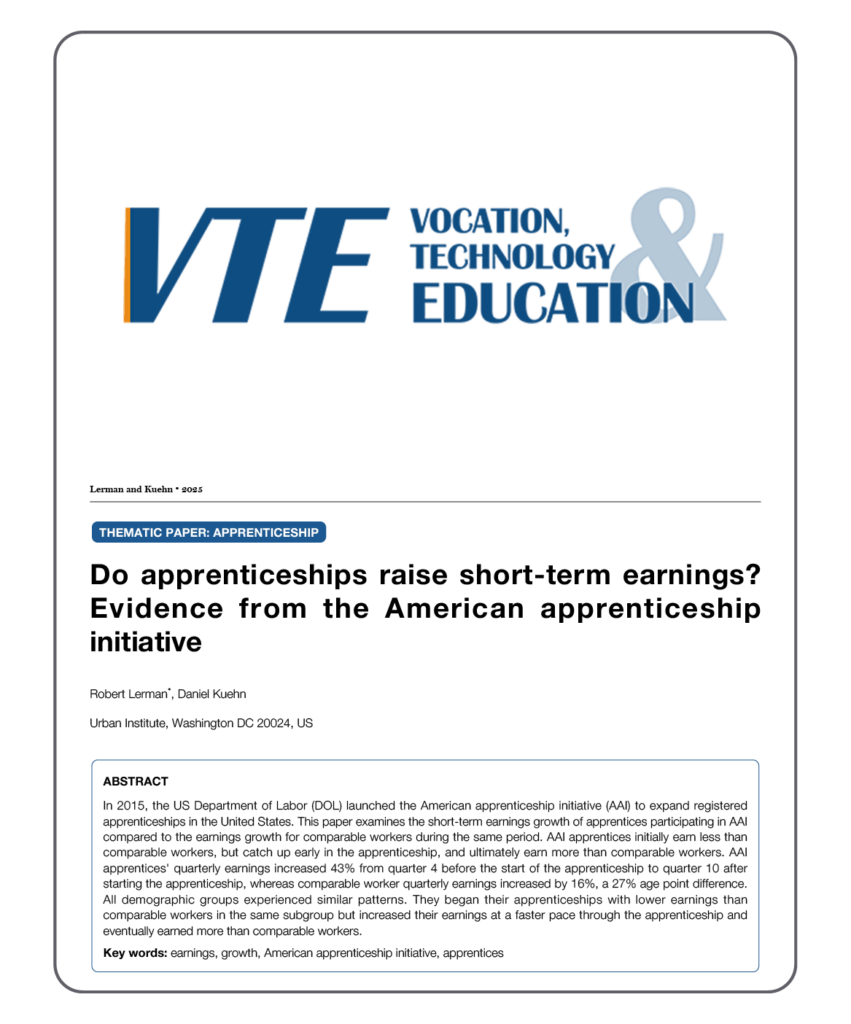
Do apprenticeships raise short-term earnings? Evidence from the American apprenticeship initiative
Vocat Tech Edu.
May 2025
TOPICS: Apprenticeship , Career Pathways , Community Engagement , Policy and Planning
This paper examines the short-term earnings growth of apprentices participating in the American apprenticeship initiative (AAI) compared to the earnings growth for comparable workers during the same period. Researchers found that AAI apprentices initially earn less than comparable workers, but catch up early in the apprenticeship, and ultimately earn more than comparable workers.
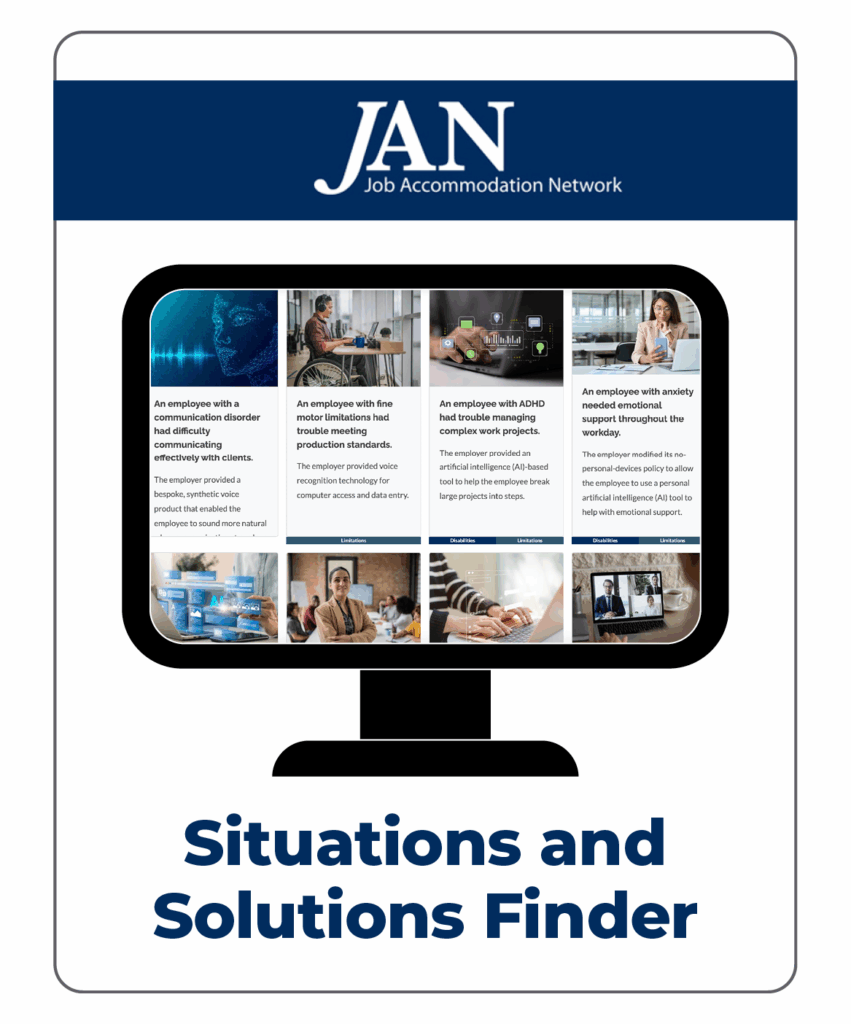
Situations and Solutions Finder
The Situations and Solutions Finder offers a library of workplace accommodation scenarios for industries, such as transportation (e.g., bus drivers, mechanics, dispatchers, etc.) to support workers with disabilities (by disability type, limitations, and occupation). The situations and solutions included are examples of accommodations that were made by JAN customers. Because accommodations are made on a case-by-case basis, these examples may not be effective for every individual or workplace but offer ideas about the types of accommodations that may be possible.
Job Accommodation Network
TOPICS: Community Engagement , Policy and Planning , Safety and Health
The Job Accommodation Network provides free, expert, and confidential assistance on work accommodations for employers, workers and job seekers with disabilities, and all others in industries, such as transportation.
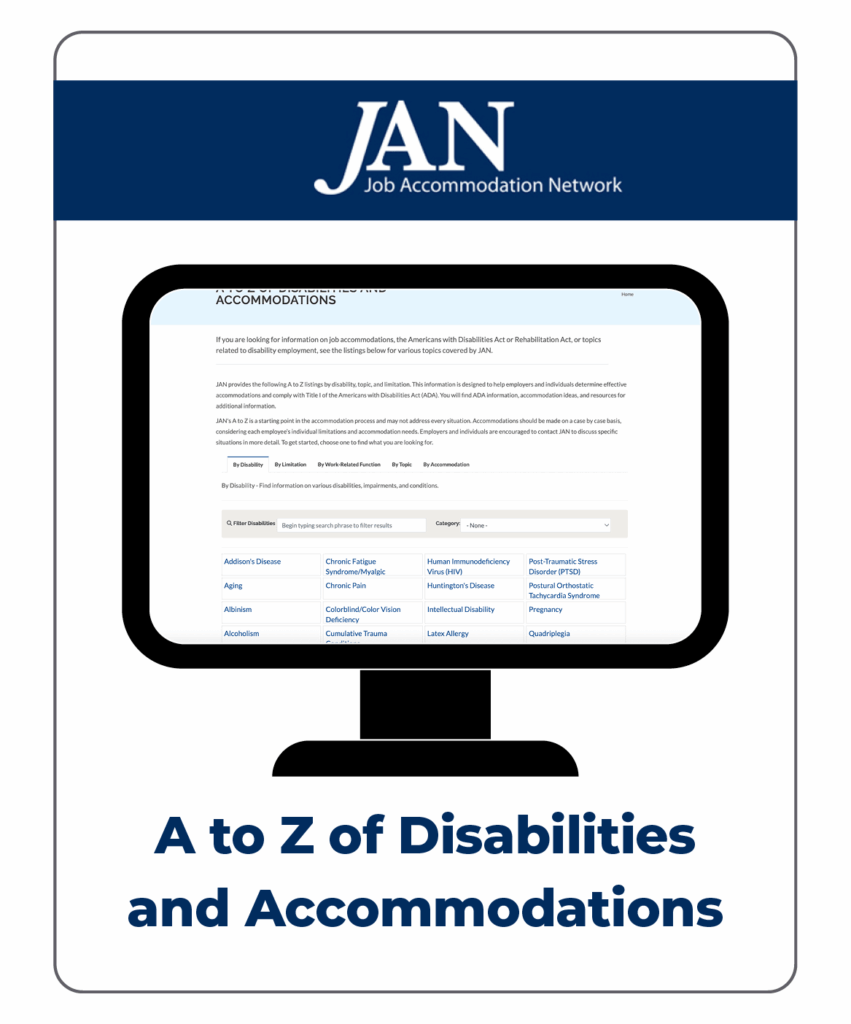
A to Z of Disabilities and Accommodations
The A to Z Library of Disabilities and Accommodations presents information on many common work accommodations, which is sortable by disability, work limitation, work function, and accommodation type and issue. This information is designed to help employers and individuals determine effective accommodations and comply with Title I of the Americans with Disabilities Act (ADA). You will find ADA information, accommodation ideas, and resources for additional information.
Job Accommodation Network
TOPICS: Community Engagement , Policy and Planning , Safety and Health
The Job Accommodation Network (JAN) provides free, expert, and confidential assistance on work accommodations for employers, workers and job seekers with disabilities, and all others in industries, such as transportation.
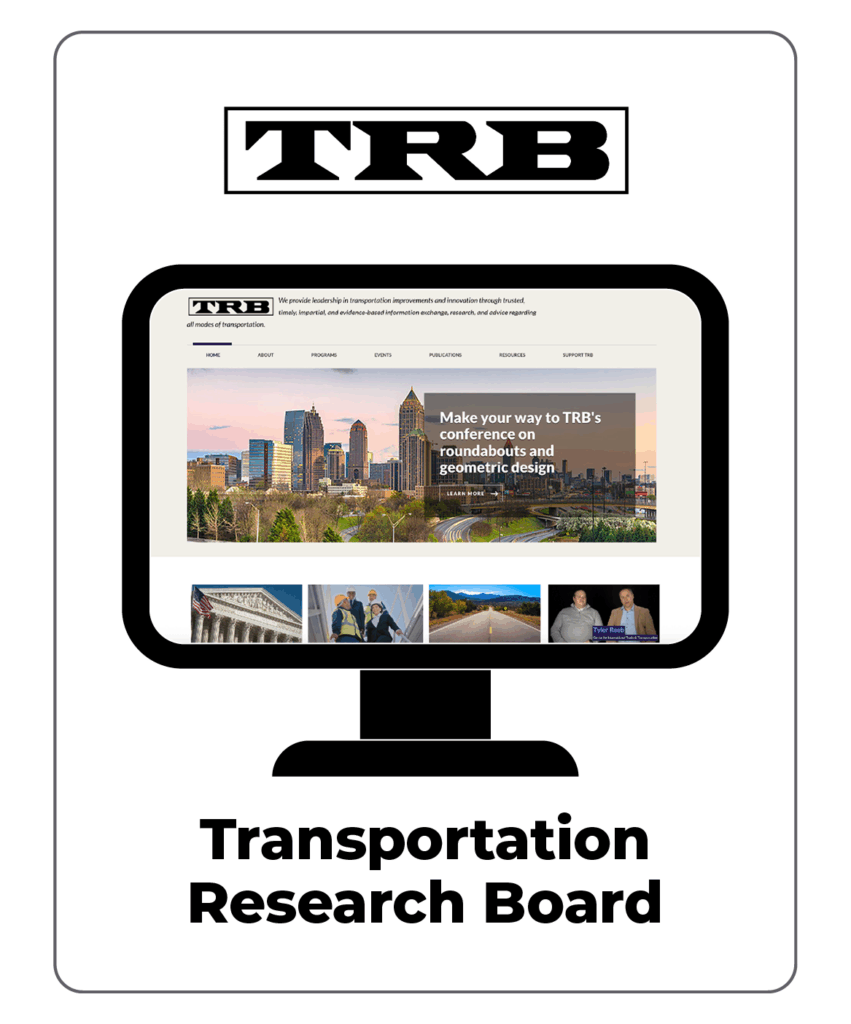
Transportation Research Board
As part of the National Academies of Sciences, Engineering, and Medicine, the Transportation Research Board (TRB) mobilizes expertise, experience, and knowledge to anticipate and solve complex transportation-related challenges. TRB hosts an extensive number of transportation-related committees, including the Committee on Workforce Development and Organizational Excellence, Committee on Transit Management and Performance, Committee on Bus Transit Systems, Committee on Transit Safety and Security, Committee on Transit Data, and others. TRB sponsors research projects though different programs, including the Transit Cooperative Research Program. Published research reports can be found on the National Academies website. TRB also convenes an Annual Meeting with thousands of representatives across the transportation industry to highlight new research, best practices, and more.
Transportation Research Board
TOPICS: Policy and Planning
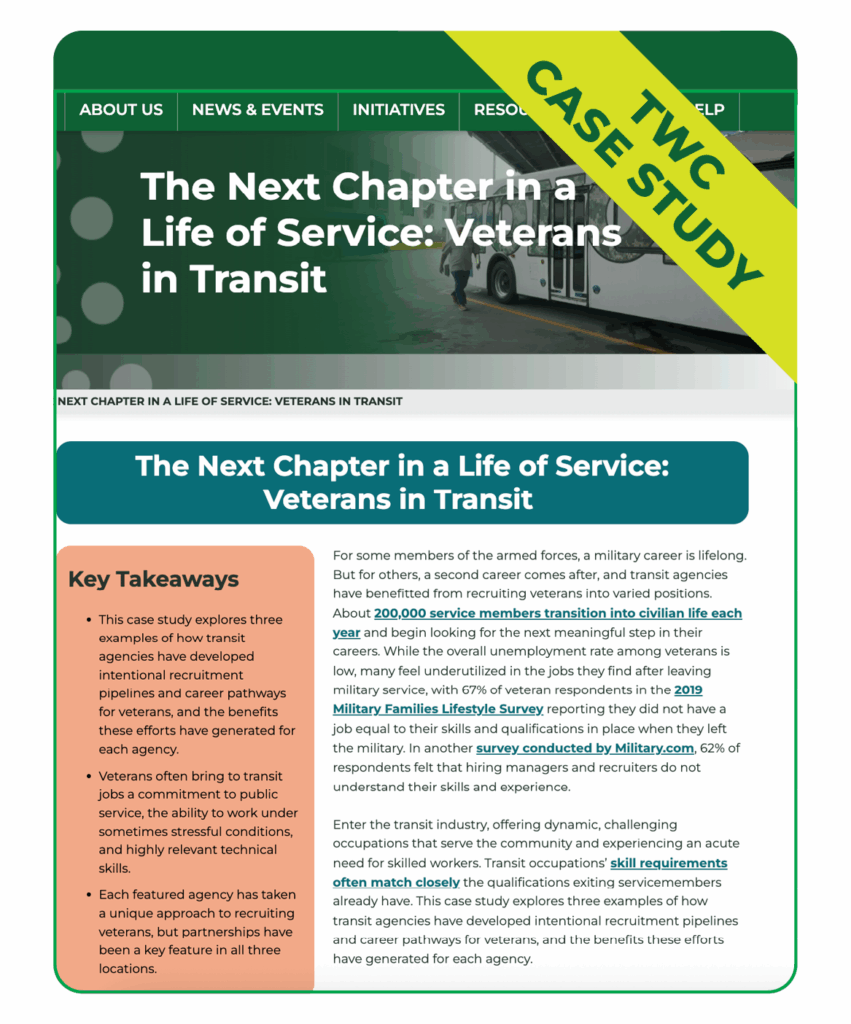
Case Study—The Next Chapter in a Life of Service: Veterans in Transit
For some members of the armed forces, a military career is lifelong. But for others, a second career comes after, and transit agencies have benefitted from recruiting veterans into varied positions. About 200,000 service members transition into civilian life each year and begin looking for the next meaningful step in their careers.
The transit industry offers dynamic, challenging occupations that serve the community and is experiencing an acute need for skilled workers. Transit occupations’ skill requirements often match closely the qualifications exiting servicemembers already have. This case study explores three examples of how transit agencies have developed intentional recruitment pipelines and career pathways for veterans, and the benefits these efforts have generated for each agency.
Transit Workforce Center
March 2025
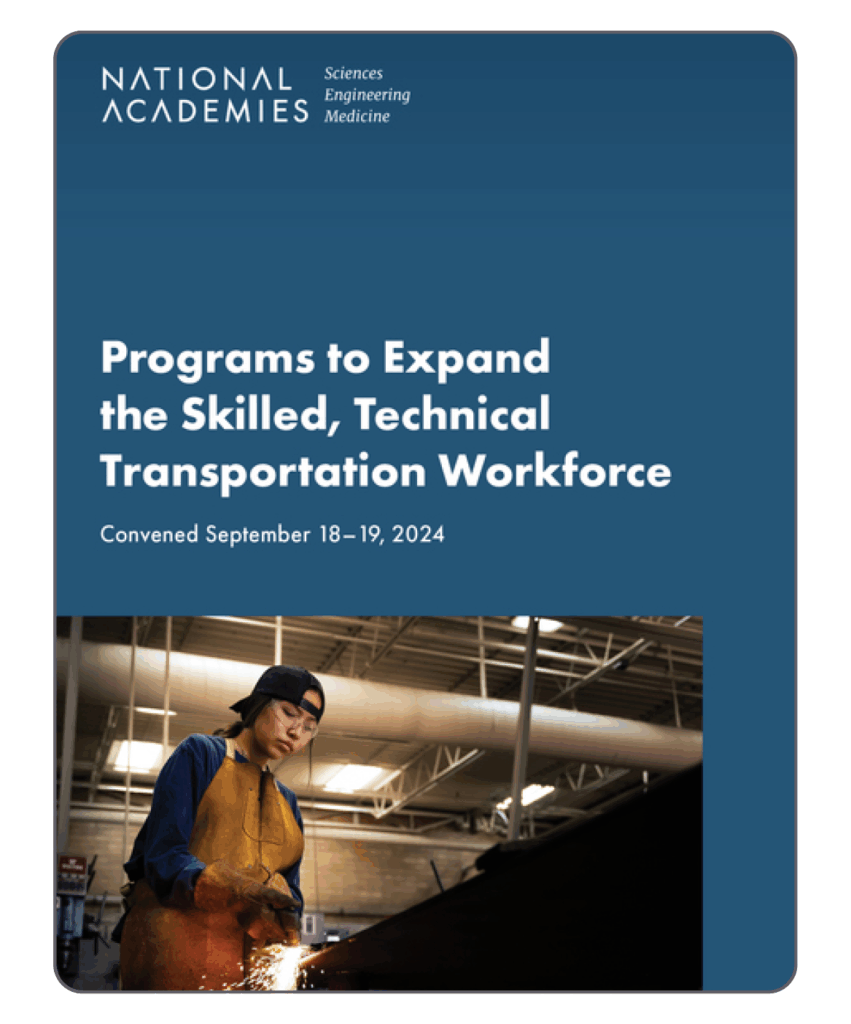
Programs to Expand the Skilled, Technical Transportation Workforce
Programs to Expand the Skilled, Technical Transportation Workforce: Proceedings of a Workshop summarizes the Workforce held in September 2024 at the National Academies of Sciences Building in Washington, DC. The workshop was sponsored by the Federal Transit Administration and the National Science Foundation and brought together experts and educators across academia, government, and industry.
National Academies of Sciences Engineering and Medicine
March 2025
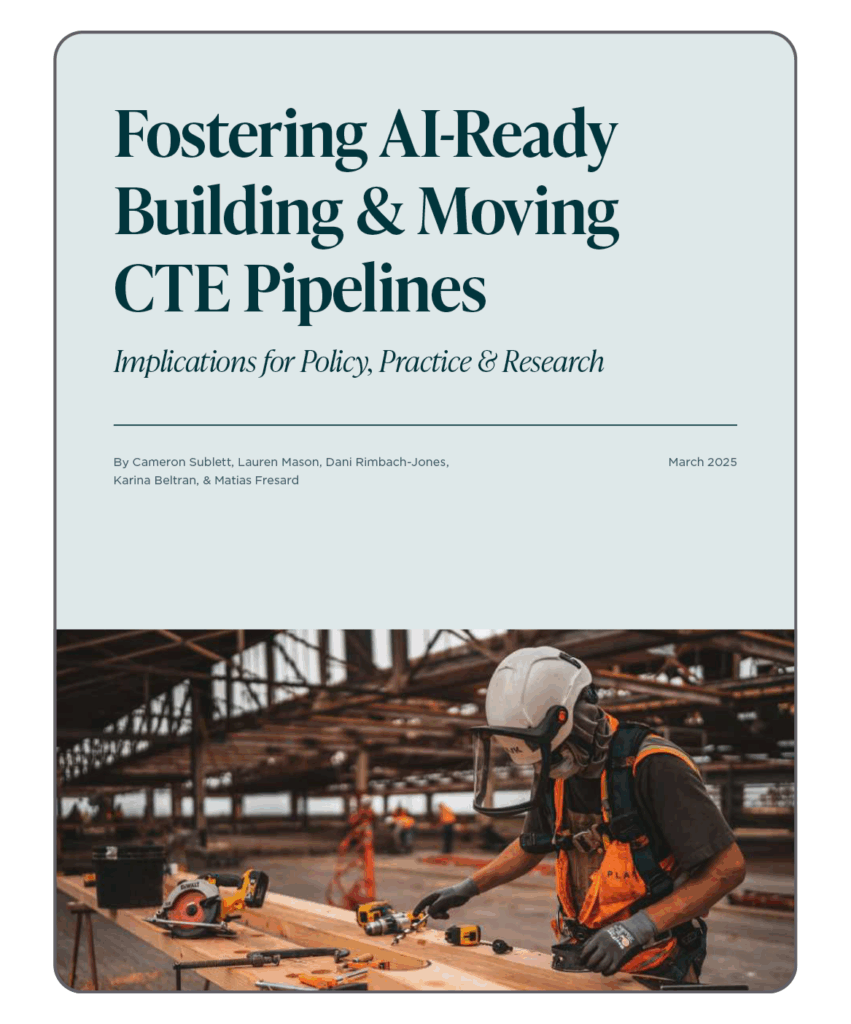
Fostering AI-Ready Building & Moving CTE Pipelines
This report explores how current and projected developments in AI are revolutionizing building and moving occupations, the potential exposure of building and moving occupations to AI-driven workforce automation, and how building and moving career and technical education providers can prepare their learners for a workplace increasingly shaped by AI technologies.
Advance CTE
March 2025
TOPICS: Career Pathways , Policy and Planning , Retention , Training
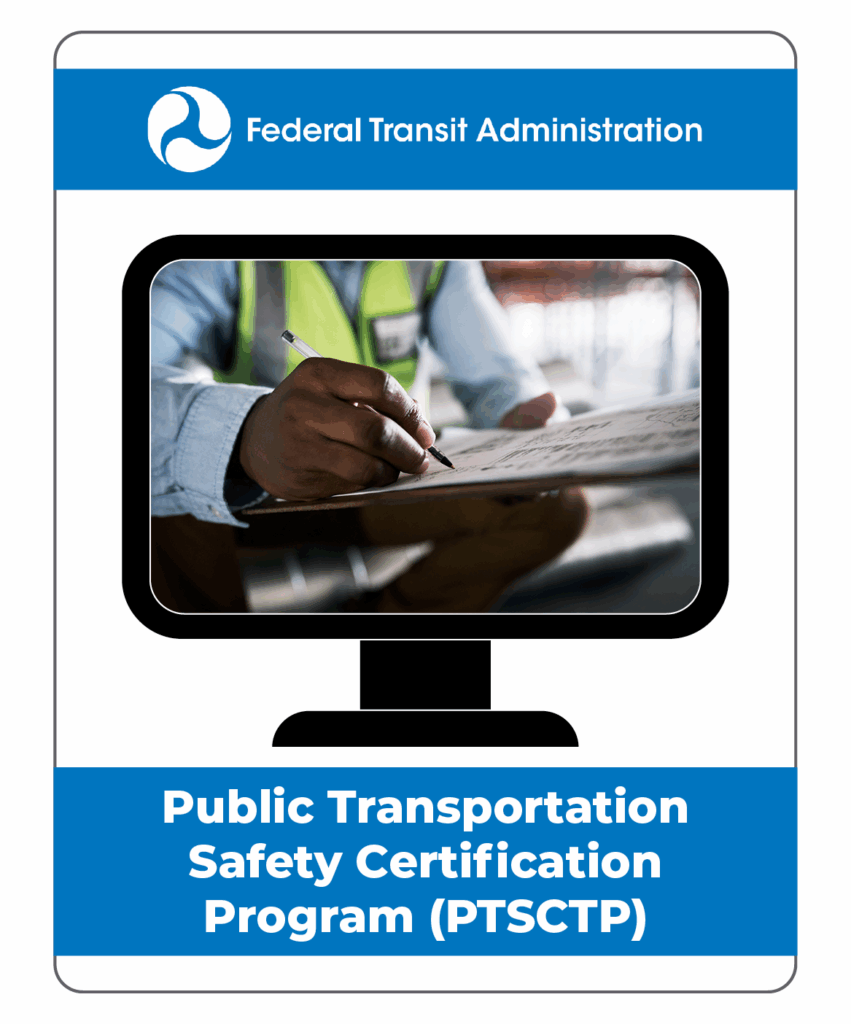
Public Transportation Safety Certification Program (PTSCTP)
U.S. Department of Transportation
February 2025
TOPICS: Safety and Health , Training
The Public Transportation Safety Certification Program, provided by the Transportation Safety Institute (TSI) and supported by the Federal Transit Administration (FTA), covers the minimum requirements to enhance the technical proficiency of safety personnel who work in the rail transit industry. Two groups are required to complete the PTSCTP training:
- State Safety Oversight Agency personnel and contractors who conduct safety audits and examinations of rail transit systems
- Rail transit agency personnel and contractors who are directly responsible for safety oversight
Bus transit agency personnel and contractors who are directly responsible for safety oversight are not required but encouraged to participate in PTSCTP.
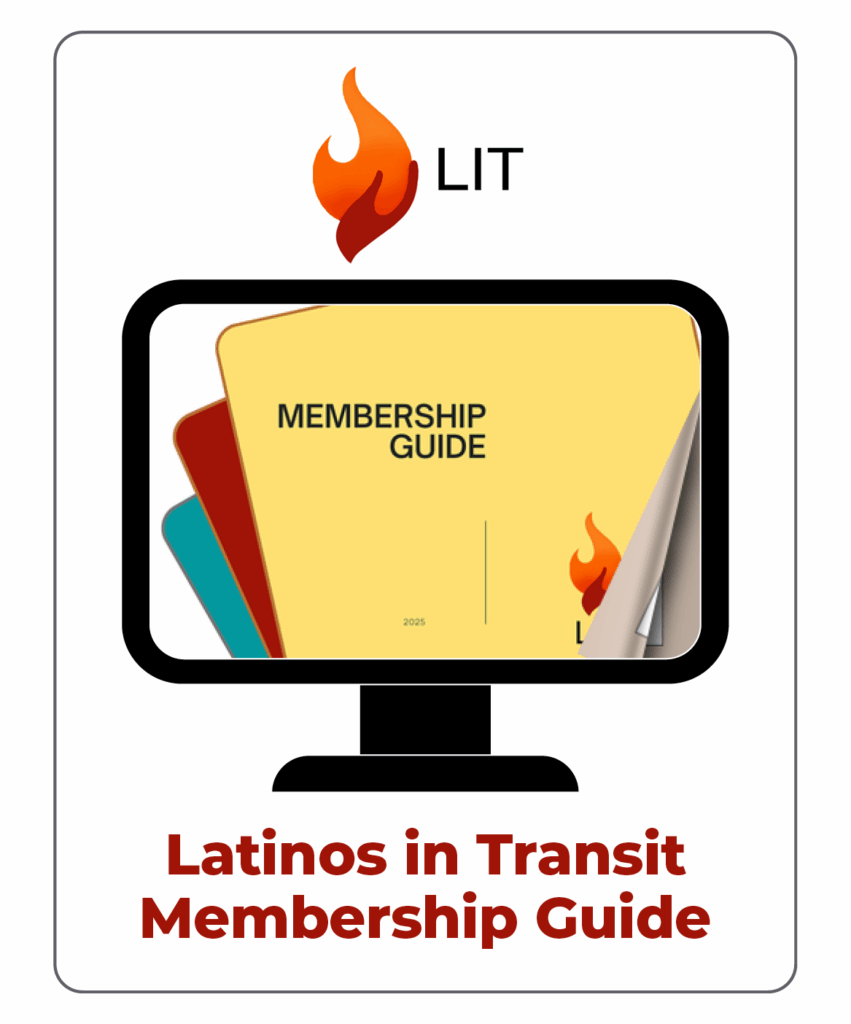
Latinos in Transit Membership Guide
Latinos in Transit is committed to empowering professionals in the transit industry to achieve leadership roles by advancing opportunities for workforce development, mentorship, networking, and education. The LIT Membership Guide explains membership levels and benefits, as well as programming, access, participation, opportunities, and more.
Latinos in Transit
TOPICS: Career Pathways , Community Engagement , Policy and Planning
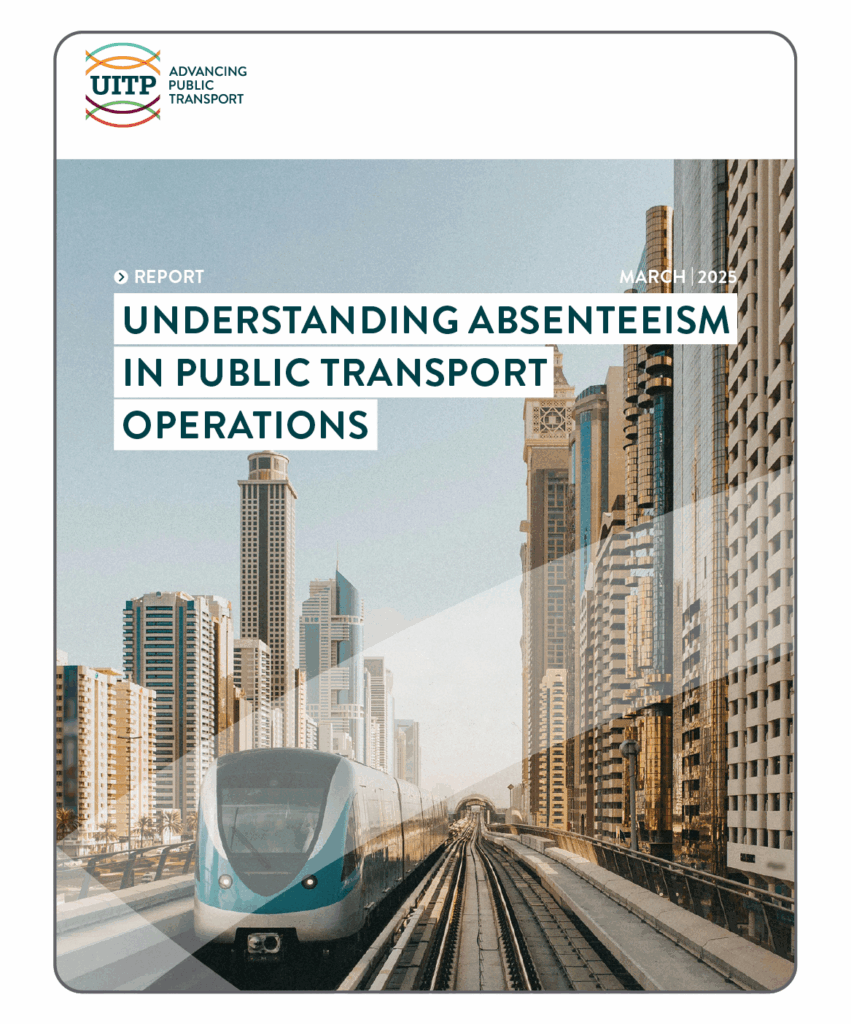
Understanding Absenteeism in Public Transport Operations
Absenteeism has been a persistent problem that can directly impact an organization’s ability to meet the demands of providing service. Factors such as operator job satisfaction, the attractiveness of the profession to current and future workers, and the evolving attitudes towards work all contribute to absenteeism playing a role in workforce availability. Several APTA members participated in a global study on operator absenteeism. The result is a report which aims to describe the causes and impact of absenteeism, while identifying action plans that organizations can use to address the issue. This report was developed by the International Association of Public Transport (UITP).
American Public Transportation Association
February 2025
TOPICS: Policy and Planning , Retention , Workforce Shortage
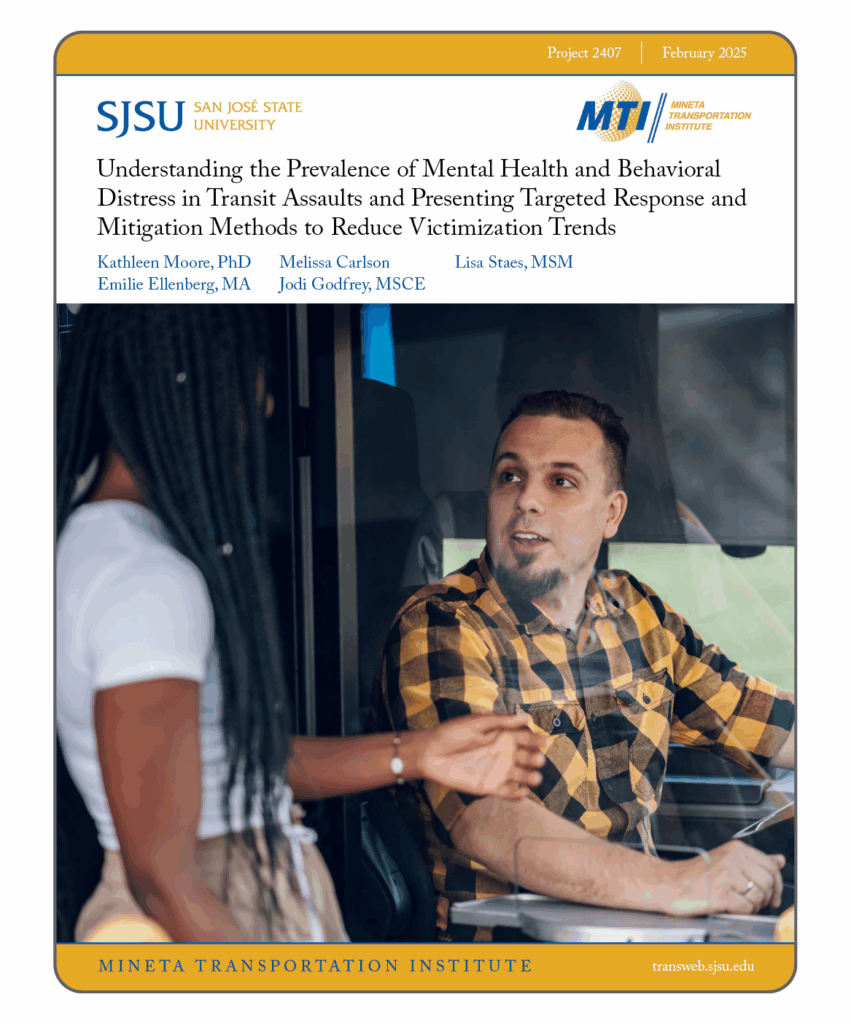
Understanding the Prevalence of Mental Health and Behavioral Distress in Transit Assaults
Mineta Transportation Institute
February 2025
TOPICS: Policy and Planning , Retention , Safety and Health
Understanding the Prevalence of Mental Health and Behavioral Distress in Transit Assaults and Presenting Targeted Response and Mitigation Methods to Reduce Victimization Trends
This research aims to better understand the prevalence of mental health and behavioral distress in transit assaults and present corresponding targeted response and mitigation methods to reduce victimization trends. It includes a literature review, a data presentation and overview of reported public transit assault-related events, an examination of the contributing factors to those events, and documentation of 10 transit agency case studies. It discusses various approaches and strategies that transit agencies have used to prepare transit vehicle operators and other frontline workers to better recognize mental health presentations and engage appropriately. It also highlights evidence-based practices that transit agencies can use to better prepare their systems and provide tools employees can use to better communicate with individuals who may be having mental health-related episodes. The research team gathered additional data from case study sites, including the methods used to address assault-related challenges and the successful community engagement and partnerships. The report provides findings and policy and practice recommendations.
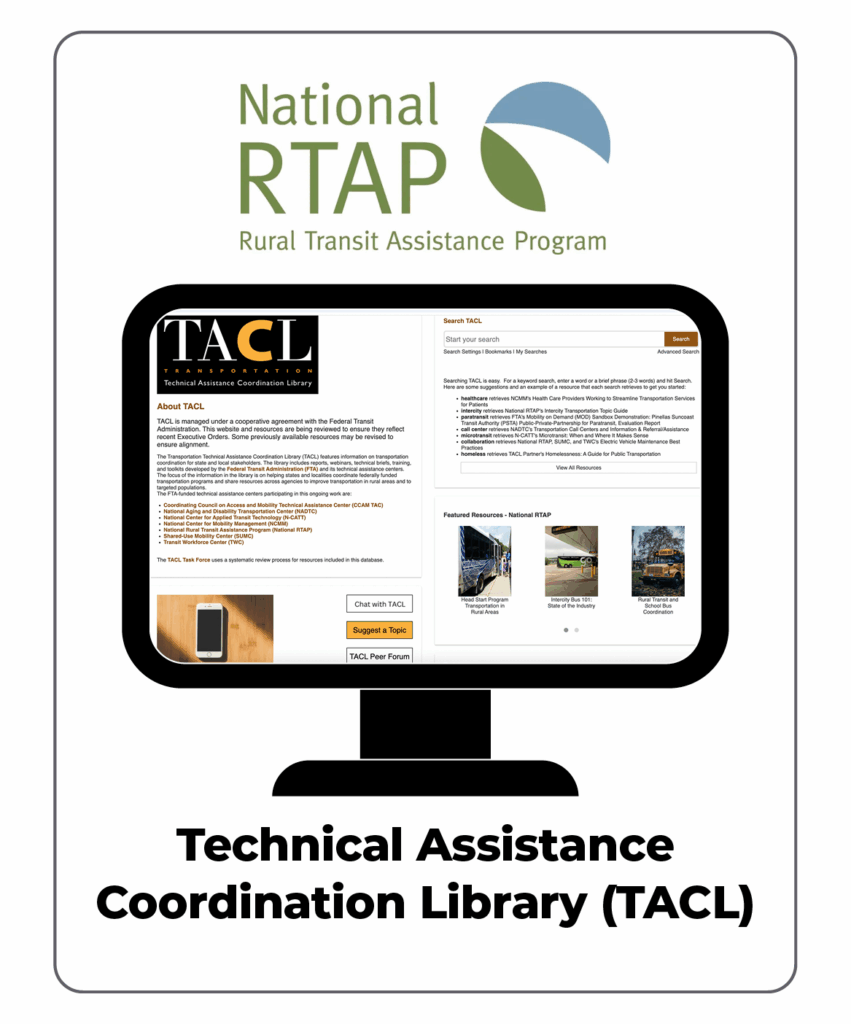
Technical Assistance Coordination Library (TACL)
National Rural Transit Assistance Program
TOPICS: Apprenticeship , Career Pathways , Community Engagement , Hiring and Recruitment , Labor-Management Partnerships , Low-No , Mentorship , Policy and Planning , Procurement , Program Evaluation and ROI , Retention , Safety and Health , Trainer and Mentor Development , Training , Workforce Shortage
Transportation Technical Assistance Coordination Library (TACL)
The Transportation Technical Assistance Coordination Library (TACL) provides a viable methodology and platform for access and findability of rural and tribal transit coordination resources across a broad range of transportation technical assistance centers and the Federal Transit Administration (FTA).
The FTA-funded Technical Assistance (TA) Centers participating in this ongoing work are:
- National Aging and Disability Transportation Center (NADTC)
- National Center for Applied Transit Technology (N-CATT)
- National Center for Mobility Management (NCMM)
- National Rural Transit Assistance Program (National RTAP)
- Shared Use Mobility Center (SUMC)
- Transit Workforce Center (TWC)
The TACL Task Force uses a systematic review process for resources included in the database. New resources will be added on a quarterly basis. Let us know if you would like to serve as a peer reviewer for our resources.
Why was TACL created?
The United States Government Accountability Office (GAO) published Public Transportation: Enhanced Federal Information Sharing on Coordination Could Improve Rural Transit Services in January 2020. GAO recommended that FTA “develop a communication plan that will effectively share information with state and local stakeholders on coordination opportunities in an accessible and informative way.” This effort was created to improve interagency resource coordination between FTA and its five TA Centers.
How can TACL be used?
TACL resources can be used to identify high quality technical assistance on transportation coordination. The resources can be used for research, training, practice, operations, planning, and other purposes. We encourage authors to cite TACL resources.
Ready to get started?
Visit http://transportation-tacl.org. Click on the Training tab at the top for instructions.
If you have a question about TACL, or if you would like to be considered to become a TACL peer reviewer, please contact info@nationalrtap.org
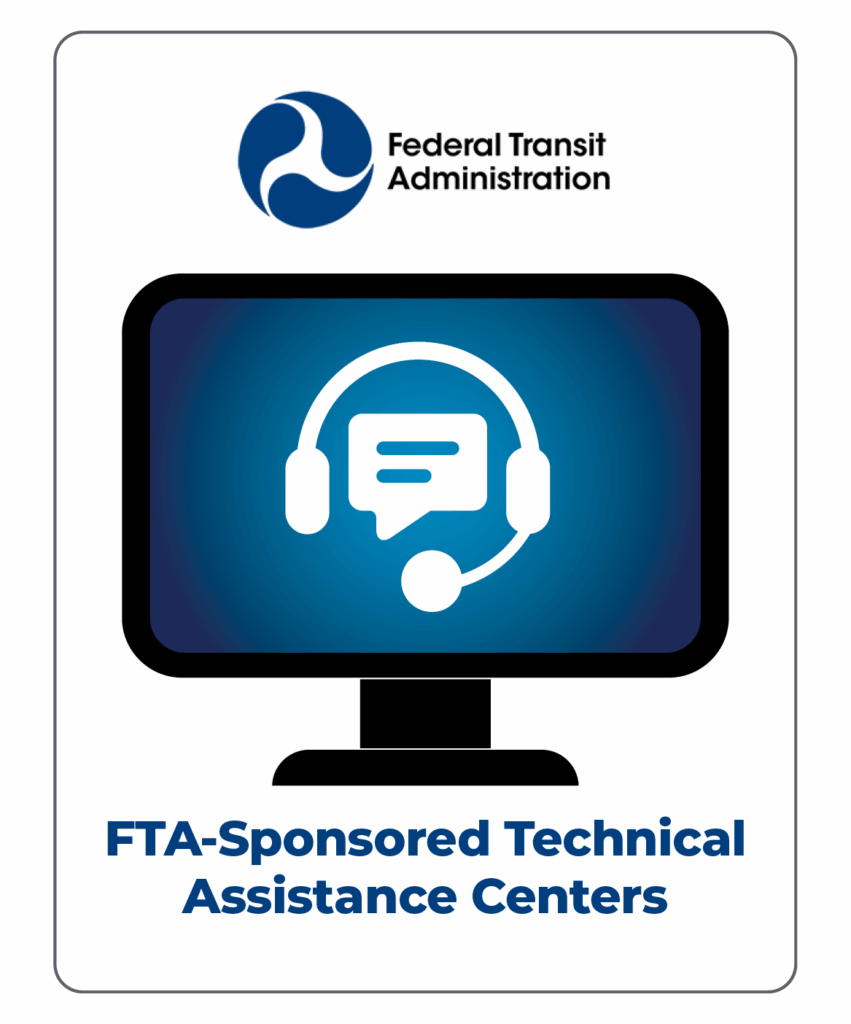
FTA-Sponsored Technical Assistance Centers
Federal Transit Administration
TOPICS: Apprenticeship , Career Pathways , Community Engagement , Hiring and Recruitment , Labor-Management Partnerships , Low-No , Mentorship , Policy and Planning , Procurement , Program Evaluation and ROI , Retention , Safety and Health , Trainer and Mentor Development , Training , Workforce Shortage
FTA’s Technical Assistance and Workforce Development Program (49 U.S.C. § 5314) and the Public Transportation Innovation Program (49 U.S.C. § 5312) fund technical assistance centers through national nonprofit organizations across a number of areas to improve public transportation. These nonprofit partners and the work they do play a critical role in supporting public transit agencies. Their services help to:
- Improve transportation for older adults and people with disabilities
- Drive the adoption of mobility management and related promising practices
- Accelerate innovative mobility practices and strategies
- Support rural communities
- Leverage new transit technologies
- Train the public transit workforce
- Provide workforce development technical assistance
- Support research projects chosen by the transit industry that address day to day issues
- Support the transit industry meet safety regulations
National Center for Applied Transit Technology (N-CATT)
The National Center for Applied Transit Technology (N-CATT) delivers expert, focused technical assistance to transit agencies and organizations in rural areas and small cities to use or develop transit technologies and innovations that make services more cost-effective and efficient. N-CATT’s work supports FTA’s mission and focus on innovation by developing and supporting transit programs and services in rural and small-city America.
National Aging and Disability Transportation Center (NADTC)
The National Aging and Disability Transportation Center (NADTC) is a national technical assistance center funded by FTA with guidance from the U.S. Department of Health and Human Services’ Administration for Community Living to promote the availability of transportation options that serve the needs of people with disabilities, seniors and caregivers with a focus on the Section 5310 program and other transit investments. NADTC supports the delivery of more effective, efficient, high-quality and coordinated specialized transportation services that maximize federal investments. NADTC provides technical assistance, information and referral; develops field training; implements interactive communication and outreach strategies; and supports communities in assessing their needs and developing innovative transportation solutions.
National Rural Transit Assistance Program (National RTAP)
The National Rural Transportation Assistance Program (RTAP) was established by FTA in 1987 to provide a wide range of professional services and products. National RTAP addresses the training and technical assistance needs of rural and tribal transit programs across the nation and supports state RTAP programs. National RTAP provides comprehensive free technical assistance programs and resources including training materials, webinars, newsletters and technical briefs, peer resources, research, and innovative technology initiatives. The National RTAP also manages the Transportation Technical Assistance Coordination Library (TACL), which provides a sustainable methodology and platform to access resources across a diverse range of transportation technical assistance centers and FTA.
Shared-Use Mobility Center (SUMC)
The Shared-Use Mobility Center is a public-interest organization dedicated to achieving equitable, affordable, and environmentally sound mobility across the US through the efficient sharing of transportation assets. By connecting the public and private sectors, piloting programs, conducting new research, and providing policy and technical expertise to cities and regions, SUMC seeks to extend the benefits of shared mobility for all. The Shared Mobility 2030 Action agenda includes improving access to public transit, on-demand shuttles or buses, ride-on-demand services, carpooling and vanpooling, and carsharing, bikesharing and scooter-sharing.
Coordinating Council on Access and Mobility (CCAM)
The strategic goal of CCAM, operated but the Community Transportation Association of America, is to support federal agencies, their grantees, partners, and stakeholders in improving transportation access for people with disabilities, older adults, and individuals of low income. CCAM promotes and facilitates human services transportation, public transit, and non-emergency medical transportation (NEMT) coordination that advances people’s access to everyday destinations.
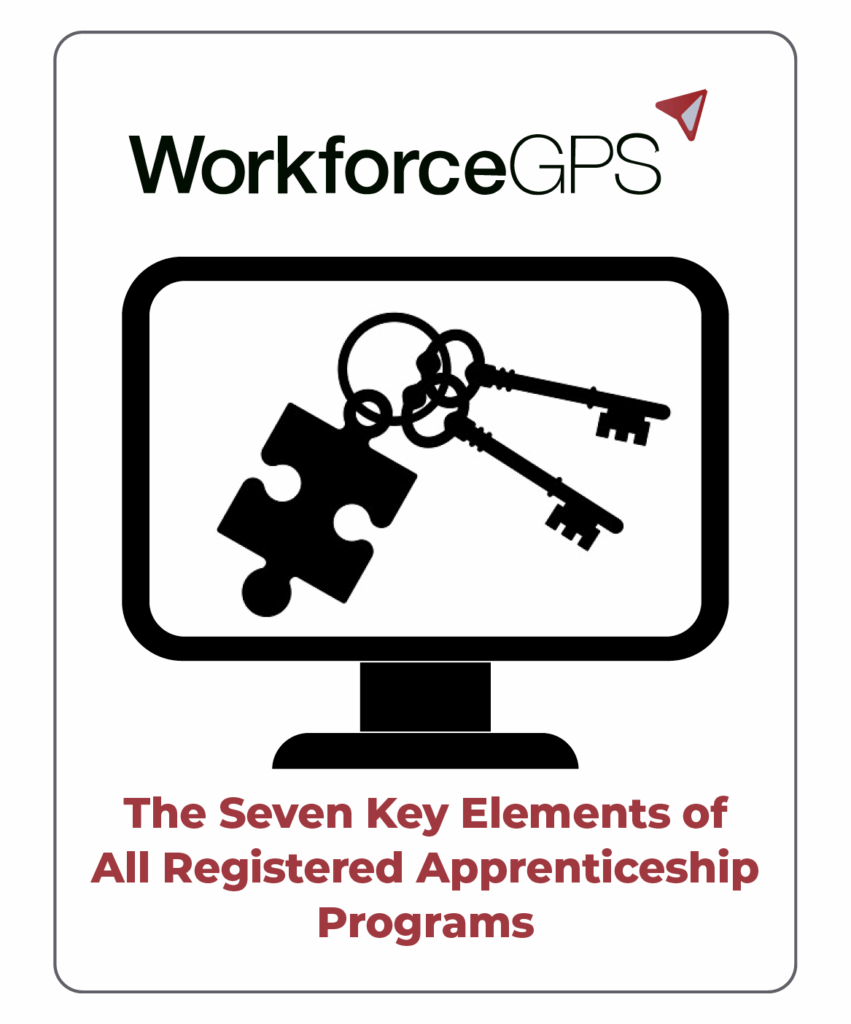
The Seven Key Elements of All Registered Apprenticeship Programs
Workforce GPS
January 2025
TOPICS: Apprenticeship , Career Pathways , Trainer and Mentor Development , Training
Registered Apprenticeship is an industry-driven pathway to high-quality careers where employers can develop and prepare their future workforce, and individuals can obtain paid work experience; progressive wage increases; classroom instruction; and a portable, nationally recognized credential. The U.S. Department of Labor recently updated the way we describe Registered Apprenticeship Programs to reflect the worker safety elements embedded in those programs.
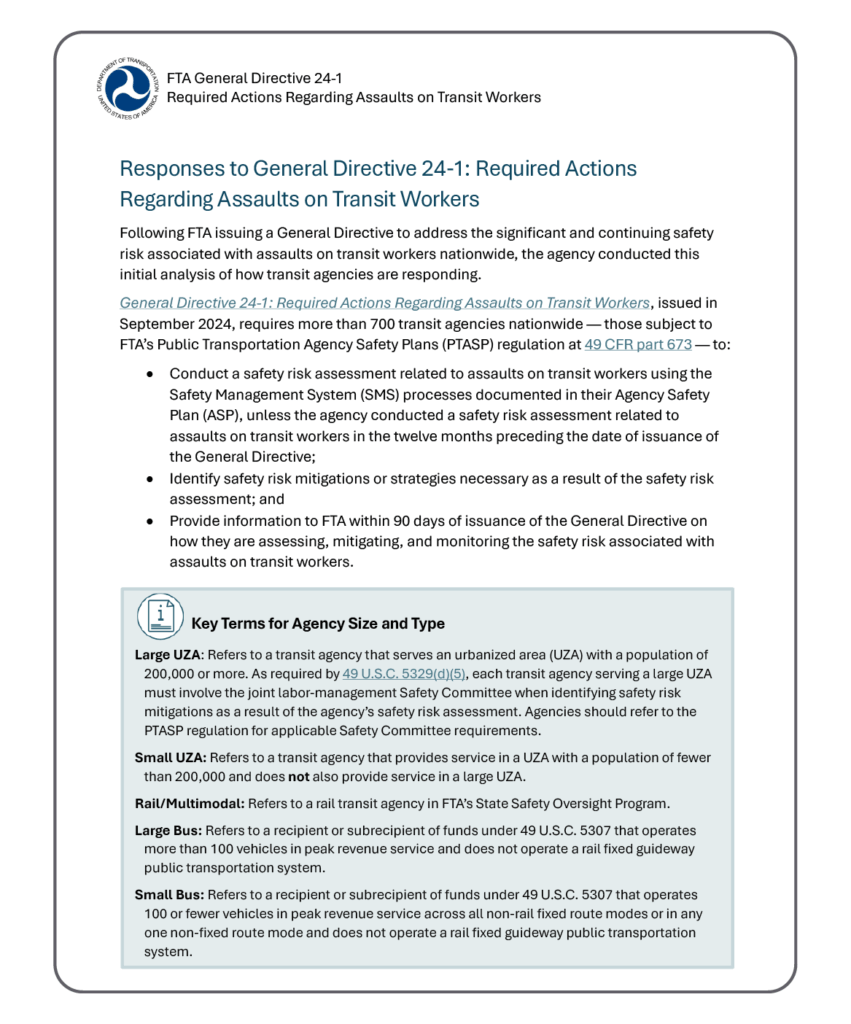
Responses to General Directive 24-1: Required Actions Regarding Assaults on Transit Workers
FTA published Responses to General Directive 24-1: Required Actions Regarding Assaults on Transit Workers. FTA’s initial analysis of agency responses shows more than two-thirds of transit agencies determined that safety risk mitigations are necessary to reduce the risk of assaults on transit workers, and these agencies are working to roll out a variety of mitigation measures.
Federal Transit Administration
January 2025
TOPICS: Policy and Planning , Safety and Health
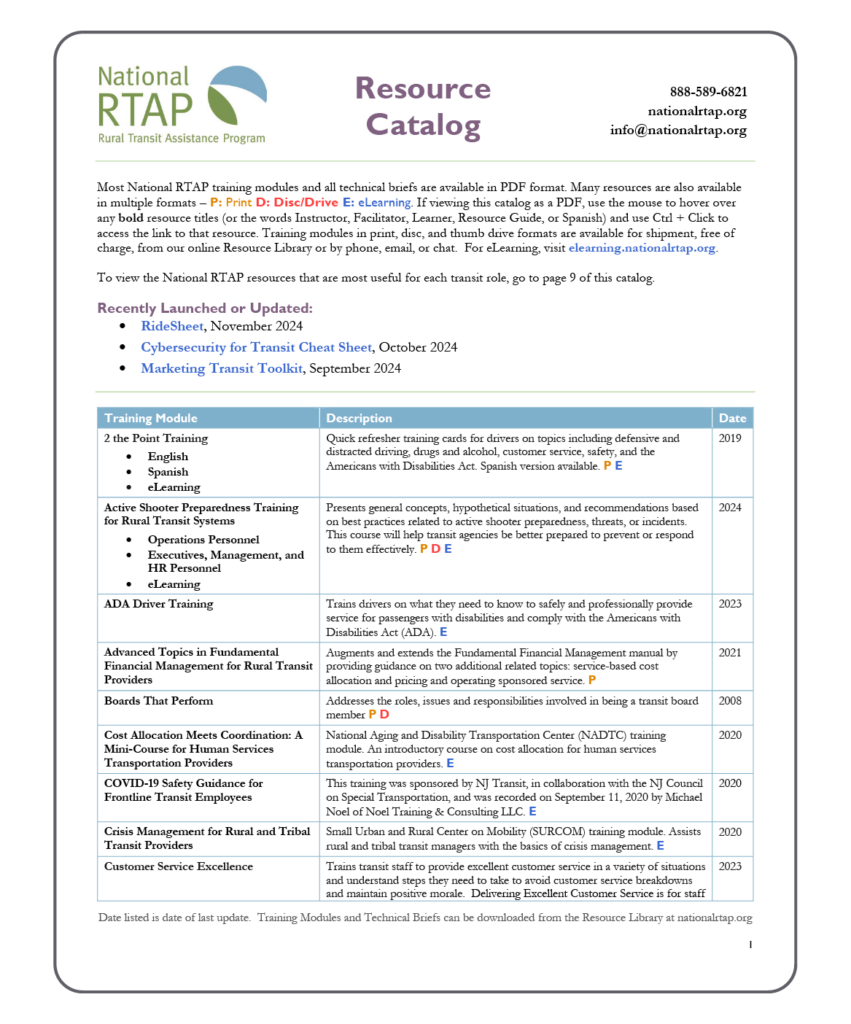
National RTAP Resource Catalogue
The National Rural Transit Assistance Program (National RTAP) aims to address the training and technical assistance needs of rural and tribal transit operators across the nation. They provide free technical assistance programs and resources including training materials, webinars, newsletters and technical briefs, peer resources, research, and innovative technology initiatives. This Resource Catalogue details all products available for ordering or online use.
National RTAP
TOPICS: Policy and Planning , Safety and Health , Training
Check out some trainings that may be most useful for transit frontline workers:
- Safety
- Active Shooter Preparedness Training for Rural Transit Systems
- COVID-19 Safety Guidelines for Frontline Transit Employees
- Emergency Procedures for Rural Transit Drivers
- Problem Passengers: Managing Difficult Passengers & Situations
- START (Safety Training & Rural Transit) Training
- Substance Abuse Awareness Training for Employees
- Transit and Human Trafficking
- Drivers/Dispatchers
- 2 the Point Training (available in Spanish)
- ADA Driver Training
- Customer Service Excellence
- Customer Service for Rural and Tribal Transit Providers
- Dispatching and Scheduling Training for Rural Transit Systems
- Essential Skills for Trainers
- Essential Spanish for Rural Transit
- HR
- HR Training Shorts on Employee Recognition, Interview Questions, Onboarding, and Performance Appraisals
Check out some technical briefs and toolkits relevant to the frontline transit workforce:
- Safety
- Coronavirus Disease 2019 (COVID-19): Information and Resources for Transit
- Healthy Habits: Reducing Stress and Fatigue and Increasing your Energy
- Incident and Injury Report Form
- Responding to Transit Incidents
- Seasonal Flu: Information and Resources
- Substance Abuse Awareness Training, Testing, and Compliance
- Threat and Vulnerability Toolkit
- Trainers
- Bus Roadeo Toolkit
- Training Adult Learners: How to Reach and Engage Your Audience
- Drivers/Dispatchers
- Customer Service in Rural Transit: How to Identify and Meet Customer Needs
- Emergency Response Checklist: After Normal Operating Hours & Emergency Response Checklist: During Normal Operating Hours
- Entry-Level Driver Training Requirements
- Essential Spanish for Rural Transit
- Mobile Driver Training Simulators
- HR
- Applying Good Business Practices: Hiring, Training and Evaluating Employees
Offerings as of January 2025
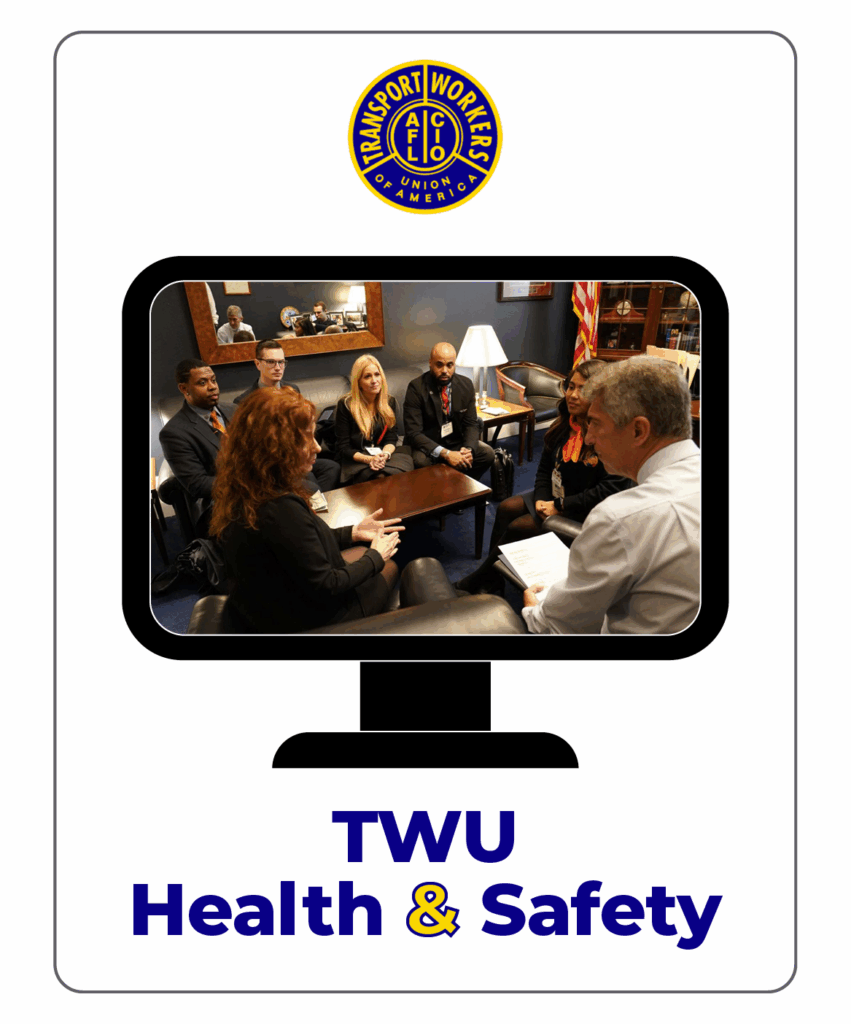
TWU Health & Safety
This page offers various health and safety resources for transportation workers, including COVID-19 guidance, regulatory information, tips for working in extreme weather, and links to trainings and other resources.
TWU International
TOPICS: Policy and Planning , Safety and Health
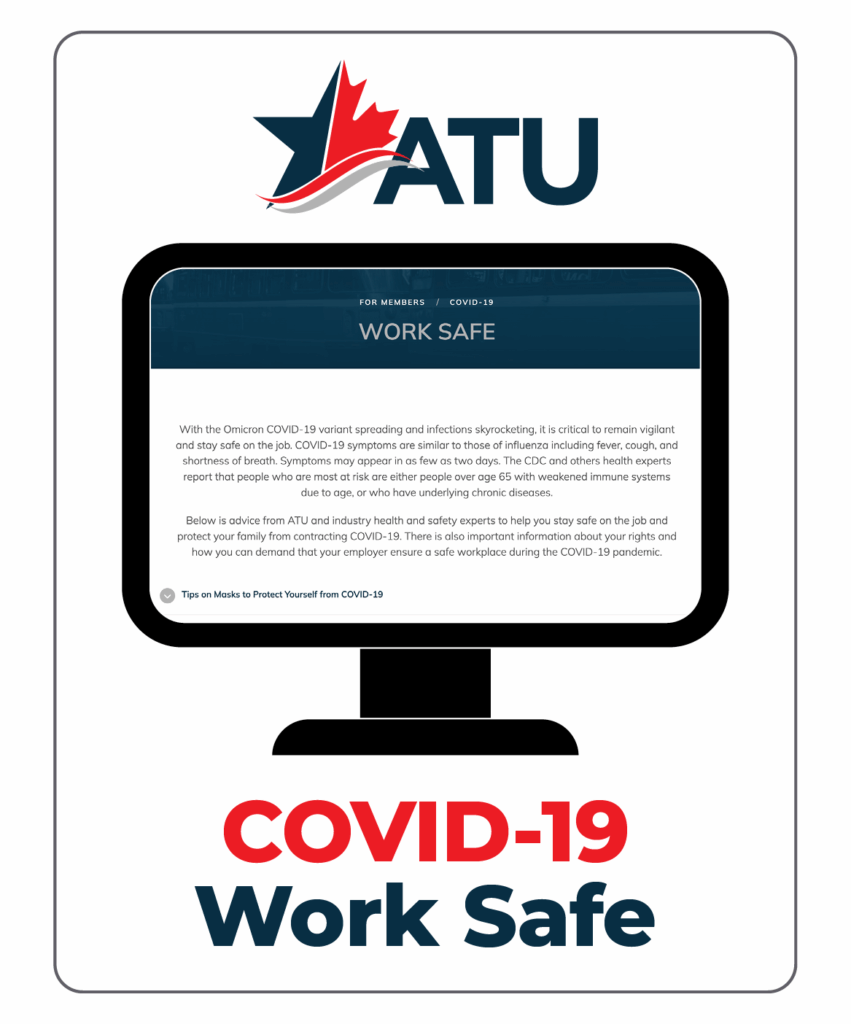
COVID-19 Work Safe
This page highlights resources from from ATU and industry health and safety experts to help frontline workers stay safe on the job and protect their families from contracting COVID-19. It also includes important information about workers’ rights and how you can hold your employer accountable to ensure a safe workplace during the COVID-19 pandemic.
ATU International
TOPICS: Policy and Planning , Safety and Health
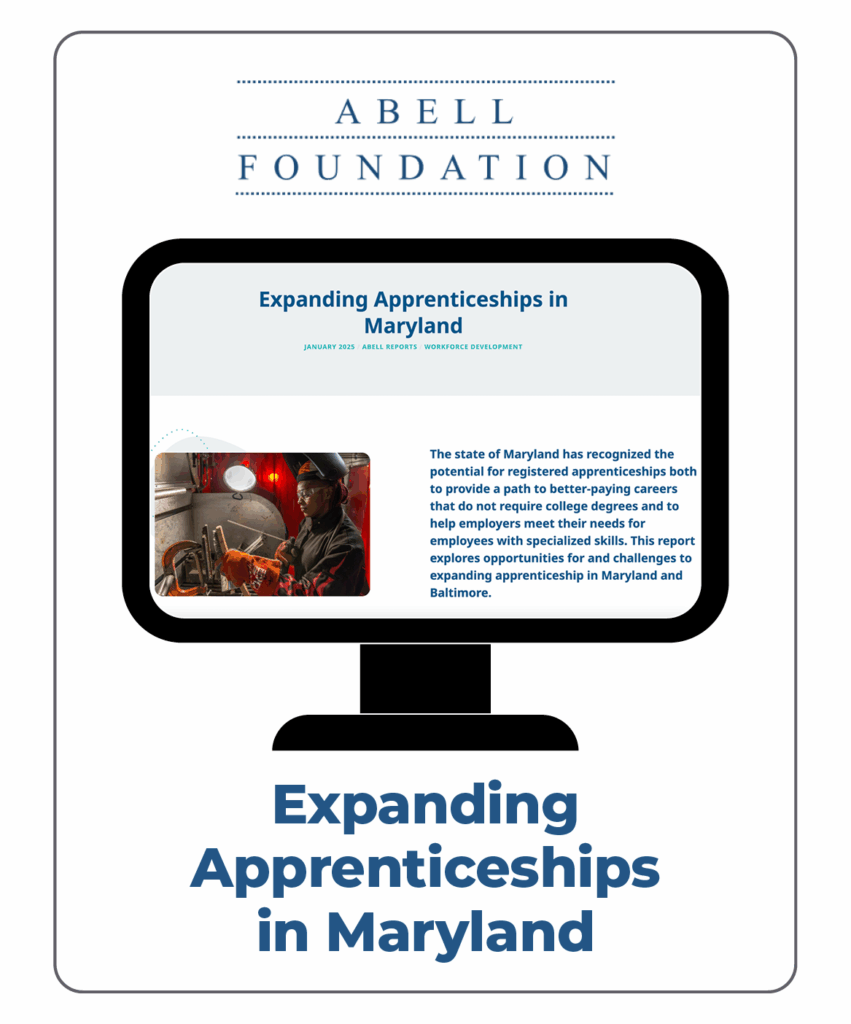
Expanding Apprenticeships in Maryland
The state of Maryland has recognized the potential for registered apprenticeships both to provide a path to better-paying careers that do not require college degrees and to help employers meet their needs for employees with specialized skills. This report explores opportunities for and challenges to expanding apprenticeship in Maryland and Baltimore.
Abell Foundation
January 2025
TOPICS: Apprenticeship , Career Pathways , Community Engagement , Policy and Planning
The report includes topics such as overcoming barriers to participation, such as transportation and childcare; countering employer misconceptions about apprenticeship; supporting apprenticeship in non-traditional sectors; and improving data collection and analysis.
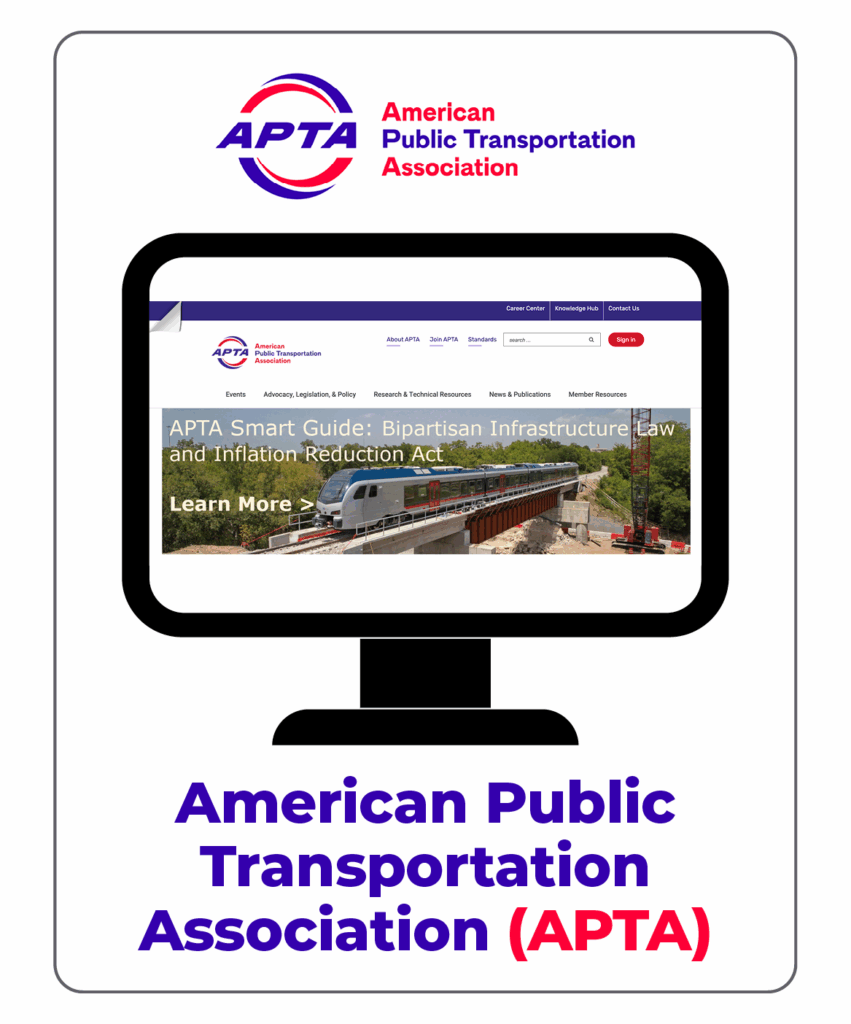
American Public Transportation Association (APTA)
APTA is a nonprofit international association of more than 1,500 public and private sector member organizations. Organizations must pay for membership; benefits include advocacy for federal funding and policies, research, technical expertise and consulting services, workforce development programs, educational conferences and seminars, and 135 subject-matter working committees, including a workforce development committee
American Public Transportation Association
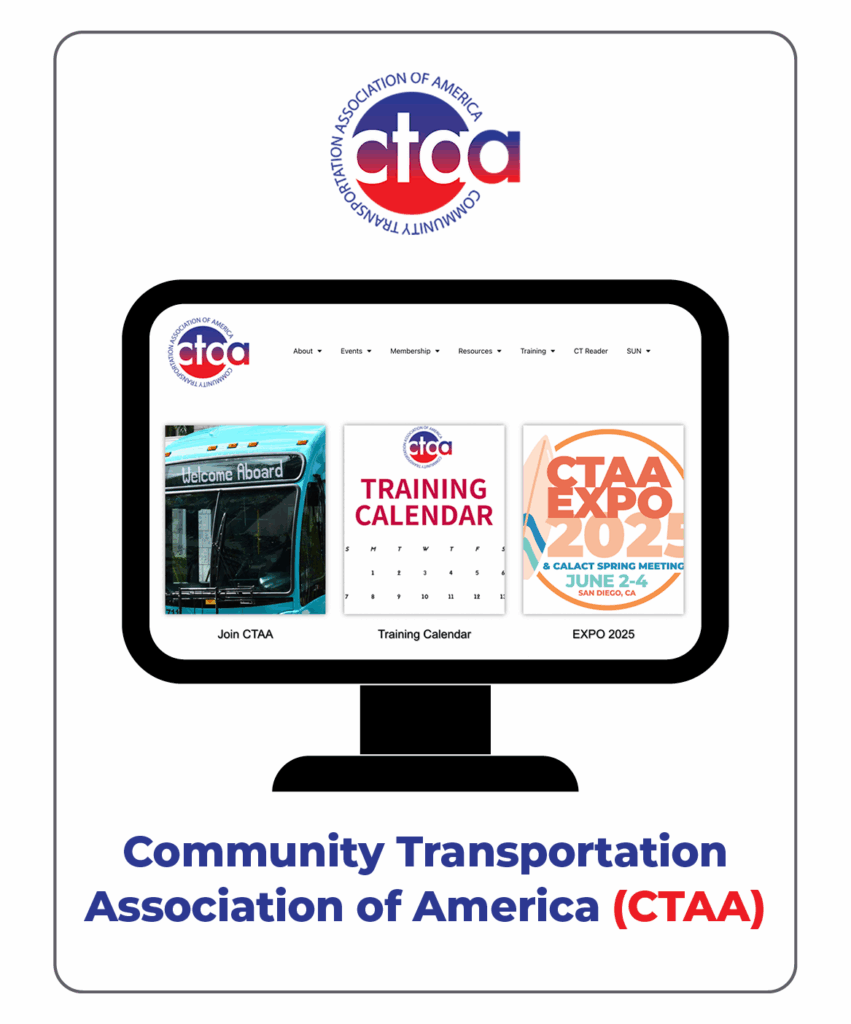
Community Transportation Association of America (CTAA)
CTAA is a nationally recognized expert in rural, small urban, tribal and specialized transportation services. Founded by a small group of community transportation professionals in 1989, organizations and individuals have joined CTAA as members to share strategies, receive training and certification specific to their needs, advance policy and legislative priorities, and improve mobility options in their communities.
Community Transportation Association of America
CTAA members get discounted access to all CTAA training and certification programs – including the annual Community Transportation EXPO and other CTAA Events – and help set the training and certification class agenda with opportunities to suggest and develop new courses and sessions.
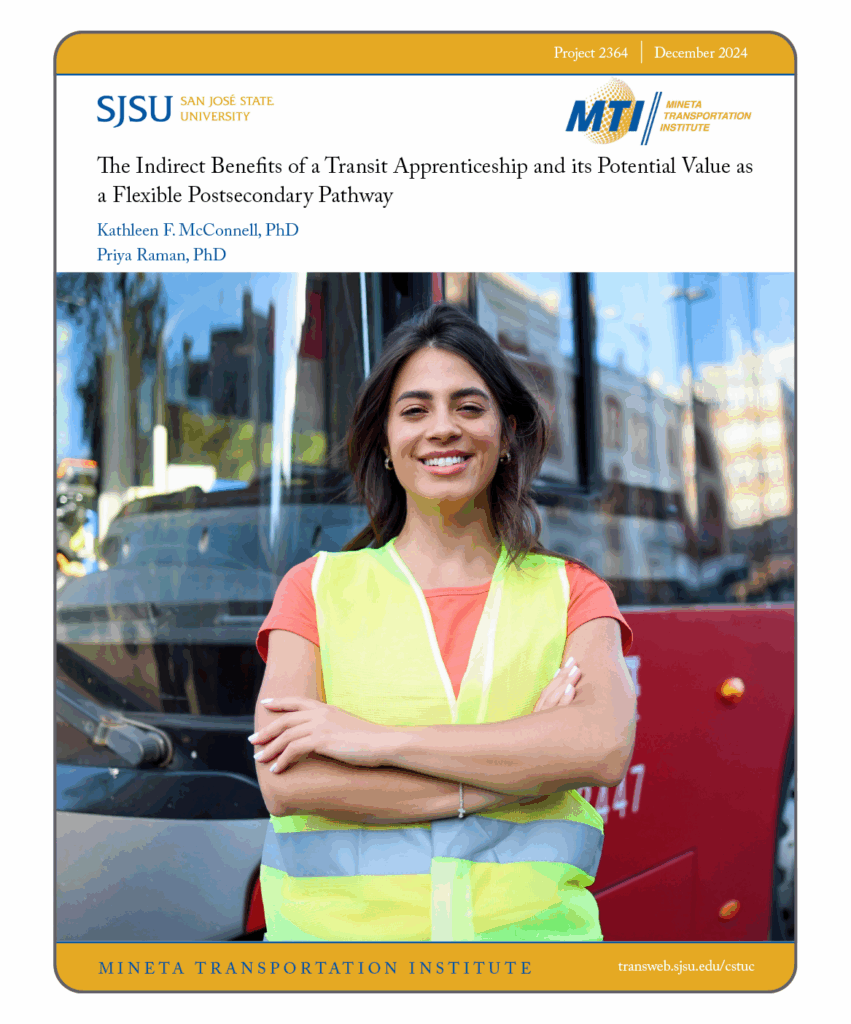
The Indirect Benefits of a Transit Apprenticeship and its Potential Value as a Flexible Postsecondary Pathway
As apprenticeships become more prevalent in the transit industry, they can also emphasize both technical and soft skills to invest in career advancement. This can attract young people to transit careers, which helps address challenges with recruitment and an aging workforce. Santa Clara Valley Transportation Authority’s Joint Workforce Initiative (JWI) employs this model by formally recognizing skills acquisition with accredited certificates. This study explores the JWI’s strengths within the revival of non-degree credentials fueled by efforts like the California Guided Pathways Program. Drawing on guidelines for connecting job training with degree programs, the study details the importance of affordability, portability, and articulation and outlines how these features could be further developed in the JWI.
Mineta Transportation Institute
December 2024
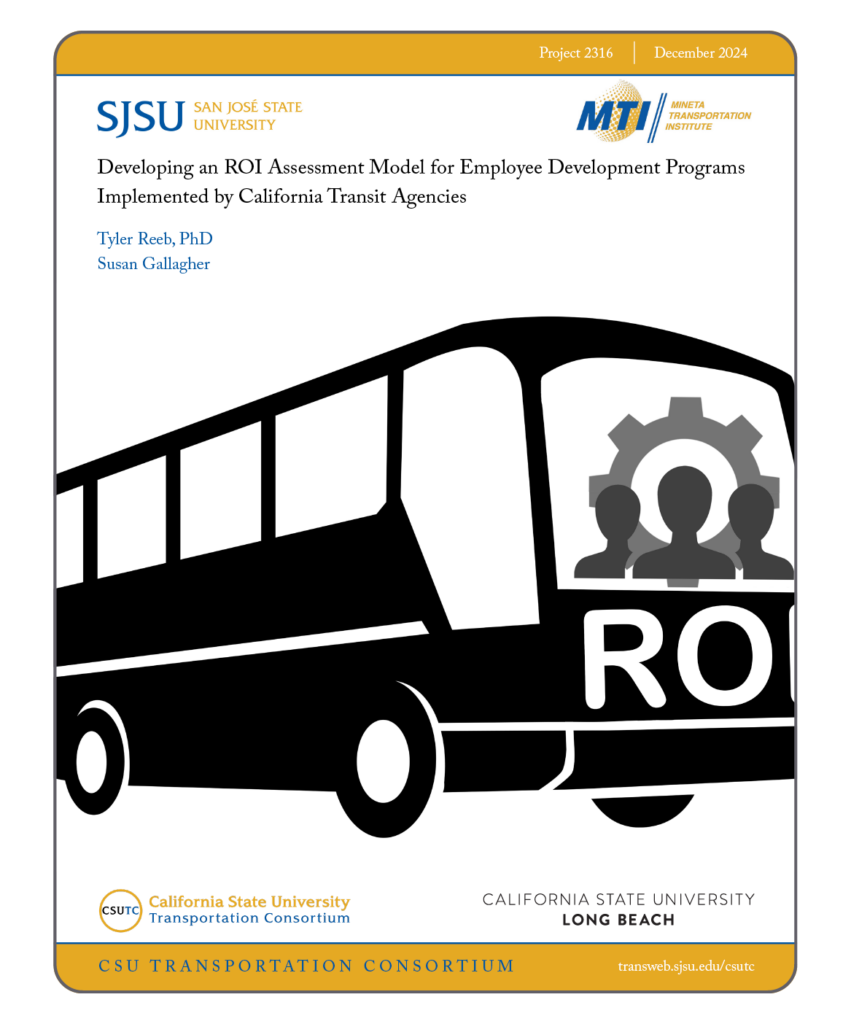
Developing an ROI Assessment Model for Employee Development Programs Implemented by California Transit Agencies
Mineta Transportation Institute (MTI)
December 2024
Transit agencies will necessarily incur expenses in efforts to improve the recruitment, retention, and morale of employees, but will struggle to solicit adequate funding unless they are able to demonstrate the value of such efforts to a broader audience. Thus, developing and implementing ROI assessments is critical. The literature review, survey, and follow-up interviews conducted by the MTI research team found that program outcome measures and programmatic expense data required for ROI is similar across employee development programs but is not currently being uniformly collected across agencies. The research findings demonstrate the need for technical assistance to combat data collection challenges such as staff capacity and know-how.
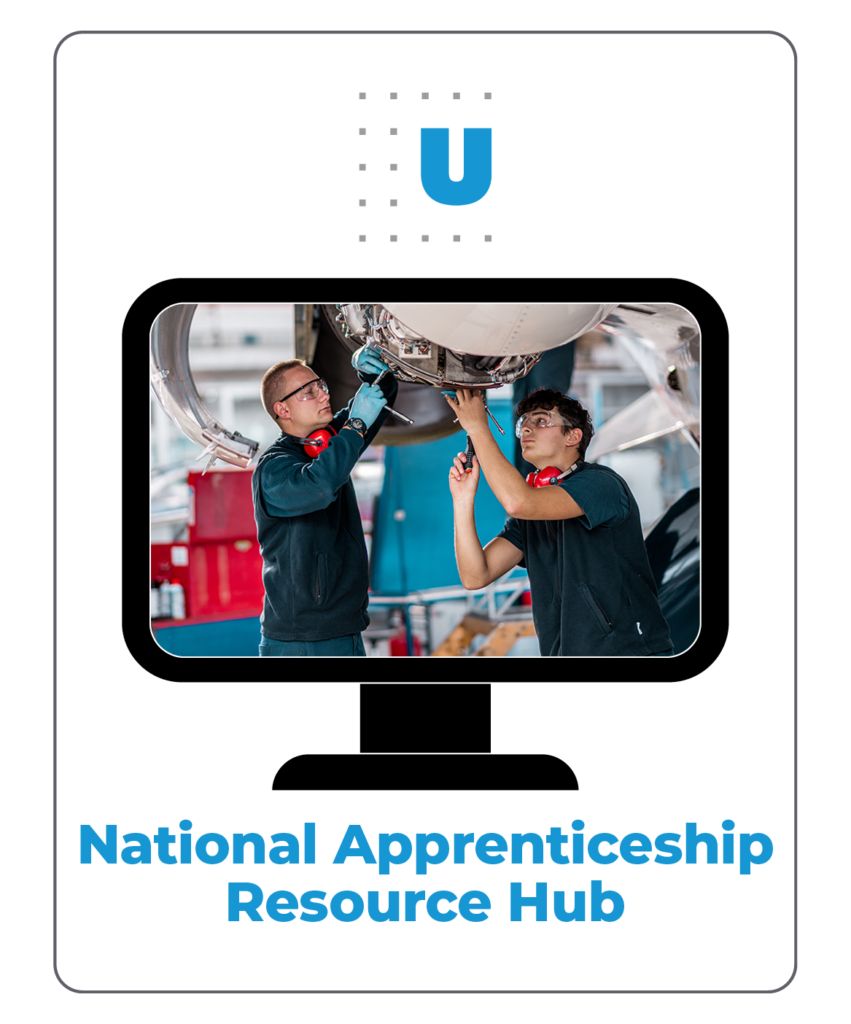
National Apprenticeship Resource Hub
The Urban Institute
December 2024
TOPICS: Apprenticeship , Career Pathways , Trainer and Mentor Development , Training
The National Apprenticeship Resource Hub includes Occupational Frameworks which can help develop a new apprenticeship program or refine an existing program. Each framework outlines the basic information sponsors need to register an apprenticeship program in their occupation including an occupational overview that describes the occupation, alternative job titles, and any prerequisites; a work process schedule that outlines what organizations can expect apprentices to learn on the job and the required hours; and a related technical instruction outline that presents considerations for courses and training apprentices can pursue during the apprenticeship. The National Occupational Frameworks also include detailed instructions on how to use them when creating your registration application.
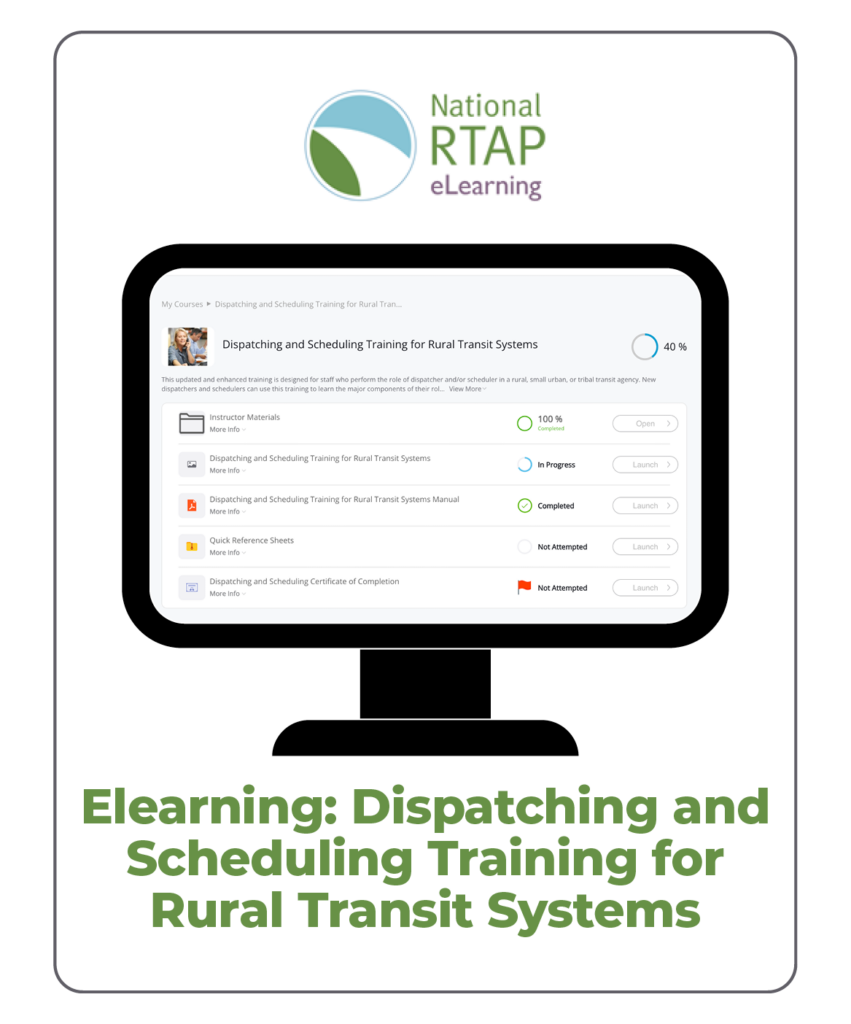
Elearning: Dispatching and Scheduling Training for Rural Transit Systems
National RTAP
December 2024
TOPICS: Training
This online training is designed for staff who perform the role of dispatcher and/or scheduler in a rural, small urban, or tribal transit agency. New dispatchers and schedulers can use this training to learn the major components of their roles. Seasoned dispatchers and schedulers can also use the training for refreshing their skills.
The entire eLearning course takes approximately 4 hours and covers the topics listed below:
- Working in a Transit Environment
- Transit Service Types
- Americans with Disabilities Act
- Essential Communication Skills
- Customer Service
- Role of the Dispatcher
- Role of the Scheduler
- Use of Technology
- Working as a Transit Team
- Responding to Transit Incidents
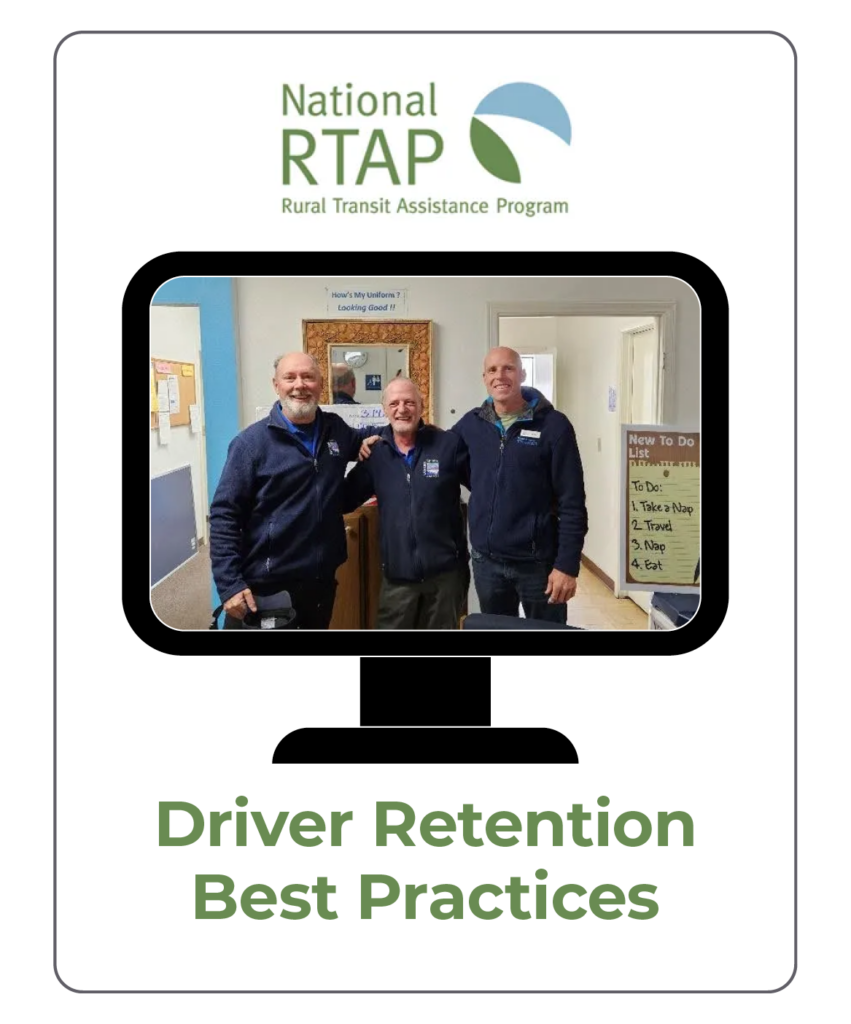
Driver Retention Best Practices
National RTAP
December 2024
TOPICS: Hiring and Recruitment , Retention , Workforce Shortage
It is increasingly difficult to recruit and retain rural and tribal transit drivers. This National RTAP Best Practices Spotlight Article provides practical and easy-to-implement strategies from transit leaders that agencies can use to create a workplace that drivers will want to remain in and thrive in. This article includes advice from Eastern Sierra Transit Authority (ESTA), Redding Area Bus Authority (RABA), Heart of Iowa Regional Transit Agency (HIRTA), and Big Woods Transit (BWT).
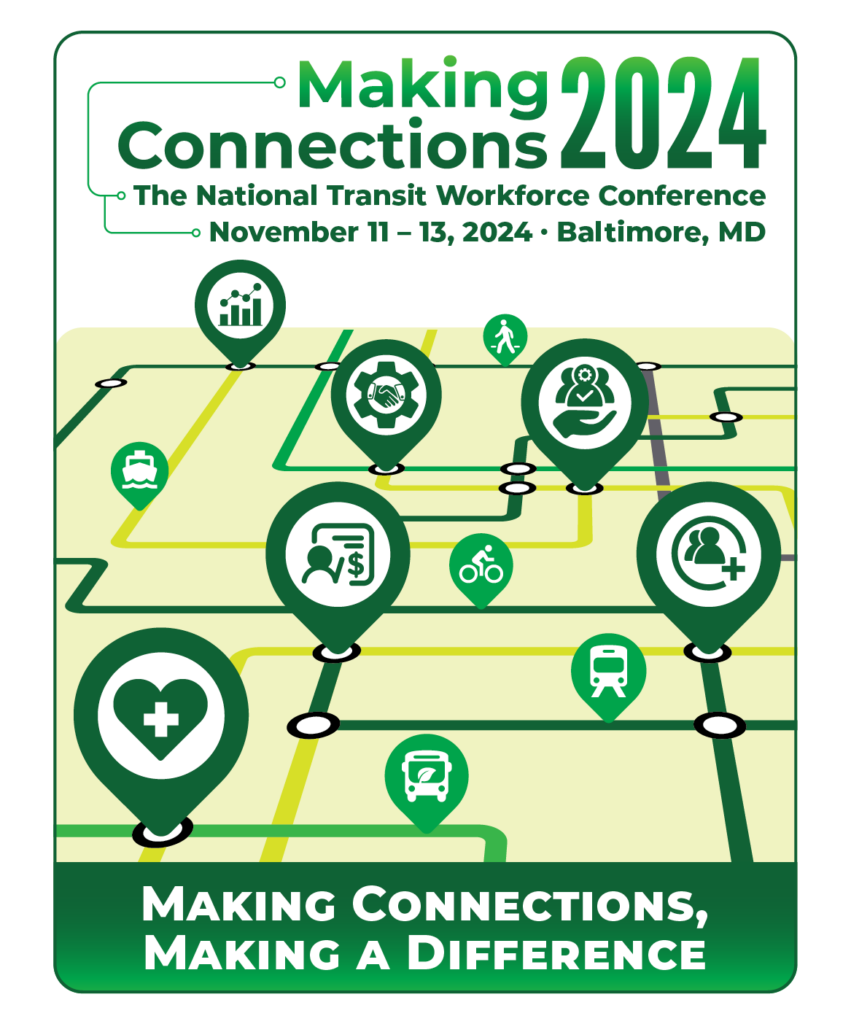
Making Connections 2024 – Workforce Data in Context – National Trends, Future Projections, and Implications for Transit Locations
This session about national and agency-level workforce datasets was presented as part of TWC’s Making Connections 2024 transit workforce conference in November, 2024.
Transit Workforce Center
November 2024
Session Description: Employment in public transportation is affected by broad economic and demographic dynamics, but honing in on transit workforce trends can be challenging. The Transit Workforce Center created the Transit Workforce Data Dashboard to distill relevant data points from national datasets. In this session, TWC highlighted specific employment patterns and challenges in transit-related occupations and panelists covered research and trends in national and agency-level datasets.
Moderator:
- Douglas Nevins: Senior Researcher – International Transportation Learning Center / Transit Workforce Center
Speakers:
- Dr. Asha Weinstein Agrawal: Director of Education – Mineta Transportation Institute
- Kenneth Blacks: Transportation Program Analyst – Federal Transit Administration
- Michaela Boneva: Research Associate – International Transportation Learning Center / Transit Workforce Center
- Dr. Shayna Gleason: Senior Researcher – International Transportation Learning Center / Transit Workforce Center

Making Connections 2024 – Conflict Resolution and De-escalation – Models for Operator Training
This session about conflict resolution and de-escalation was presented as part of TWC’s Making Connections 2024 transit workforce conference in November, 2024.
Transit Workforce Center
November 2024
TOPICS: Making Connections Conference , Safety and Health , Training
Session Description: De-escalation, conflict avoidance, and conflict resolution are integral to an operator’s job. Operators primarily work alone, and the driver’s seat is an extremely vulnerable position. In this session, we honestly and productively explored the ways in which operators can deal with all manner of attacks, physical and verbal, and analyzed approaches to address the range of challenges that come with this profession. Presenters discussed different training models used to support operators with their challenges and engaged with the audience in considering options that can make a positive impact.
Moderator:
- Maurice Beard: Senior Workforce Development Advisor – International Transportation Learning Center / Transit Workforce Center
Speakers:
- Jamaine “G” Gibson: Director of Apprenticeships and Workforce Development – Amalgamated Transit Union
- Tricia Prince: Safety and Training Manager – Chattanooga Area Regional Transportation Authority
- Lakecha Strickland: President – Amalgamated Transit Union Local 1212 (TN)
- Melissa Thomas: Transportation Training Manager – Central Ohio Transit Authority (COTA)
- Lisa Rae Vickery: Deputy Director of Operations Development – Santa Clara Valley Transportation Authority

Making Connections 2024 – The College Connection: Strategies for Effective Partnerships
This session about partnerships between transit and local colleges was presented as part of TWC’s Making Connections 2024 transit workforce conference in November, 2024.
Transit Workforce Center
November 2024
Session Description: Strong partnerships between transit and local colleges across the country currently support recruitment, retention, apprenticeships and other career advancement initiatives developed by agencies and their workforce partners. Presenters in this session reviewed and discussed several different models of industry-education partnerships, focusing on how to establish productive working relationships with local colleges to advance workforce development goals.
Moderator:
- Patricia Greenfield: Senior Director, Workforce Education – International Transportation Learning Center / Transit Workforce Center
Speakers:
- Jamaine “G” Gibson: Director of Apprenticeships and Workforce Development – Amalgamated Transit Union
- Jason Abbott: Executive Director, Workforce Operations – Cuyahoga Community College
- Celeste Chavis: Interim Chair and Professor, Transportation & Urban Infrastructure Studies – Morgan State University (Baltimore)
- Rich Diaz: Workforce Development Coordinator – Amalgamated Transit Union Local 1575
- Rob Gamble: Sr Workforce and Academic Strategist – California Transit Works!

Making Connections 2024 – Creative Uses of Workforce Development Funding – Scalable Options for Agencies of All Sizes
This session about workforce development funding was presented as part of TWC’s Making Connections 2024 transit workforce conference in November, 2024.
Transit Workforce Center
November 2024
Session Description: Providing structured workforce development programs for frontline public transit workers is of critical importance for transit agencies as they work to retain employees, integrate new technologies, and fill vacant positions. Attendees of this session learned how to use funding available to transit agencies for workforce development, such as the additional funding awarded under the Low-No/Bus and Bus Facilities grant program, and heard from agencies about how they have utilized grant funds and other FTA funding to develop and implement training programs.
Moderator:
- Karitsa Holdzkom: Senior Policy Analyst – International Transportation Learning Center / Transit Workforce Center
Speakers:
- Zachary Bodle: Assistant Business Agent Maintenance – Amalgamated Transit Union Local 265 (CA)
- John Bodnar: Director, Office of Transit Programs – Federal Transit Administration
- Jason Macumber: Senior Advisor of Workforce Development and Technology – International Transportation Learning Center / Transit Workforce Center
- Steve Jovel: Operations Manager, Workforce Development – Santa Clara Valley Transportation Authority (VTA)
- Jeff Rosenberg: Director of Government Affairs – Amalgamated Transit Union
- Mauro Varela: Treasurer – Amalgamated Transit Union Local 1277 (CA)
- Kristin Warsinski: CEO – Riverside Transit Agency (CA)

Making Connections 2024 – Foundational Skills for Successful Career Pathways in a Changing Industry
This session about career pathways was presented as part of TWC’s Making Connections 2024 transit workforce conference in November, 2024.
Transit Workforce Center
November 2024
Session Description: In this engaging session attendees explored strategies for bridging the skills gaps of new hires and heard from presenters as they shared how they identified critical needs and implemented solutions. Participants took part in a working group to provide feedback on national resources being developed in key areas such as mechanical, electrical, computer skills, shop math, and technical writing.
Moderator:
- Kristen Ribaudo: Senior Instructional Designer – International Transportation Learning Center / Transit Workforce Center
Speakers:
- Michael Hanssen: Supervisor of Technical Skills Training Washington – Metropolitan Area Transit Authority
- Ona Veda: Manager, Rail Training and Development – Metro Transit (MN)

Making Connections 2024 – How Do Technicians Learn? Exploring Successful Approaches for Developing Skills
This session about training transit technicians was presented as part of TWC’s Making Connections 2024 transit workforce conference in November, 2024.
Transit Workforce Center
November 2024
TOPICS: Apprenticeship , Low-No , Making Connections Conference , Mentorship , Training
Session Description: This session delved into the most effective methods for training technicians to maintain today’s fleets of complex technology. We focused on proven strategies, such as starting with the fundamentals and progressing to hands-on training. Additionally, we discussed the value of mentorship and apprenticeship to facilitate the retention of the trained frontline workforce.
Moderator:
- Jason Macumber: Senior Advisor of Workforce Development and Technology – International Transportation Learning Center / Transit Workforce Center
Speakers:
- Russell Anderson: Director Bus Maintenance Training – California Transit Works!
- Staci Hanna: Maintenance Training Manager – TriMet
- Brian Markey: Chief Executive Officer – Custom Training Aids Inc.

Making Connections 2024 – Integrating AI into Training Design and Development
This session about applications of artificial intelligence in training and development efforts was presented as part of TWC’s Making Connections 2024 transit workforce conference in November, 2024.
Transit Workforce Center
November 2024
TOPICS: Making Connections Conference , Policy and Planning , Training
Session Description: In this workshop, participants explored how Artificial Intelligence (AI) can revolutionize training and development efforts. We explored practical applications of AI throughout the ADDIE model and advanced usages of AI for helping trainers synthesize information from large datasets. Attendees also learned about the ethical considerations surrounding AI in training and how to effectively use AI tools by improving prompt engineering to craft content.
Moderator:
- Arnett Powell: Adjunct Instructional Designer – International Transportation Learning Center / Transit Workforce Center
Speakers:
- Addie Khanu: Instructional Designer – International Transportation Learning Center / Transit Workforce Center
- Jeff Pratt: Manager of Training – Bi-State Development/Metro Transit (St. Louis)
- Michael Tomlinson: Solution Architect – Xpan

Making Connections 2024 – Moving Toward Solutions for Transit Worker Safety
This session about transit worker safety was presented as part of TWC’s Making Connections 2024 transit workforce conference in November, 2024.
Transit Workforce Center
November 2024
Session Description: Transit workers operate in a challenging environment in close contact with the public. Recent years have seen an increase in assaults on transit vehicles and in transit facilities, making the protection of transit workers and riders a crucial goal for the industry. This presentation will feature perspectives from research, transit agency labor and management, and the federal government. Panelists shared updates on transit assault trends, examples of mitigation strategies identified through engagement with agency leaders and frontline workers, innovations in operator workspace design, and models of successful joint labor-management safety planning through FTA’s updated PTASP rule.
Moderator:
- Lisa Staes: Associate Director – Center for Urban Transportation Research
Speakers:
- Lisa Staes: Associate Director – Center for Urban Transportation Research
- Russell Bateman: Training and Education Administrator – Amalgamated Transit Union
- Andrew Falotico: Health and Safety Director – Amalgamated Transit Union
- Alexander Houck: Deputy Chief Safety Officer – Maryland Transit Administration
- Stewart Mader: Senior Program Analyst for Safety Policy – Federal Transit Administration
- Michael McMillan: President and Business Agent – Amalgamated Transit Union Local 1300 (MD)

Making Connections 2024 – Mental Health, Well-Being, and Resilience for Transit Workers: Current Research, Practical Applications, and Best Practice Guidelines for Workforce Development
This session about the importance of mental health resources for transit workers was presented as part of TWC’s Making Connections 2024 transit workforce conference in November, 2024.
Transit Workforce Center
November 2024
Session Description: This session explored mental health and wellness among frontline transit workers, offering actionable insights from the latest research, practical applications, and best practices. Presenters also highlighted the role and importance of workforce development strategies in promoting a healthier, more productive workforce, and its potential organizational impacts, such as reduced turnover and absenteeism.
Moderator:
- Karen Philbrick: Executive Director/CEO – Mineta Transportation Institute
Speakers:
- Janie Berry: Deputy Director of Human Resources –Santa Clara Valley Transportation Authority
- Sandy Brennan: Vice President and Project Manager – Foursquare Integrated Transportation Planning
- Michael Coplen: President & Founder – TrueSafety Evaluation, LLC
- John Courtney: Amalgamated Transportation Union Representative – Amalgamated Transit Union Local 265
- Ed Watt: Principal – WattADR

Making Connections 2024 – Tracking Your Impact: How Agencies and Unions Analyze and Use Workforce Data
This session about measuring metrics for workforce development initiatives was presented as part of TWC’s Making Connections 2024 transit workforce conference in November, 2024.
Transit Workforce Center
November 2024
Session Description: Employment in public transportation is affected by broad economic and demographic dynamics, but honing in on transit workforce trends can be challenging. The Transit Workforce Center created the Transit Workforce Data Dashboard to distill relevant data points from national datasets. In this session, TWC highlighted specific employment patterns and challenges in transit-related occupations and panelists covered research and trends in national and agency-level datasets.
Moderator:
- Michaela Boneva: Research Associate – International Transportation Learning Center / Transit Workforce Center
Speakers:
- Nick Biggar: District Director – Greater Cleveland RTA
- Valerie Campo: Mentor Program Coordinator – Champaign-Urbana Mass Transit
- Douglas Nevins: Senior Researcher – International Transportation Learning Center / Transit Workforce Center
- Darnell Morris: Vice President – ATU Local 268, Greater Cleveland RTA
- Dr. Shanta Hejmadi: Senior Data Scientist– Metro Transit (MN)

Making Connections 2024 – What Do Young People Want from a Transit Career?
This session about outreach and retention of youth in transit was presented as part of TWC’s Making Connections 2024 transit workforce conference in November, 2024.
Transit Workforce Center
November 2024
Session Description: As the transit industry works to reach out to the communities it serves to establish strong and effective career pipelines, agencies and their partners often explore how to best attract young people into the industry. In this session, attendees heard from and engaged with young people themselves, along with national and local experts who have conducted research and worked directly with youth. Topics covered include the most effective approaches to connecting with young people and creating awareness and excitement about career opportunities in public transportation.
Moderator:
- Dr. Beverly Scott: Founder and CEO – Introducing Youth to American Infrastructure
Speakers:
- Justin Augustine: Project Manager II – Alameda-Contra Costa Transit District
- Kayla Cooper-Redd: 12th Grade Student – TransSTEM Academy, Cardozo High School (DC)
- Sean Holley: Bus Transportation Instructor – Maryland Transit Administration
- Cheryl Rodgers: Director – TransSTEM Academy, Cardozo Education Academy (DC)
- Edwin Rodriguez: Director – Office of Research Management, Innovation, and Outreach – Federal Transit Administration
- Jamaal Schoby: Transportation Planner – Transportation Research Board

Making Connections 2024 –Advancing Workforce Development through Positive and Powerful Workplace Partnerships
This session about effective labor-management partnerships was presented as part of TWC’s Making Connections 2024 transit workforce conference in November, 2024.
Transit Workforce Center
November 2024
Session Description: Strong workforce development programs are most often built on an equally strong foundation of effective labor-management partnership, and, across all types of transit agencies, the ability for frontline workers to have a voice in workforce decisions. Join this session to hear from and engage with national and local leaders from management, labor, and government about how to establish and sustain these collaborative partnerships, facilitate frontline worker involvement, and the benefits these initiatives bring to individual agencies, the workforce, and the industry as a whole.
Moderator:
- Darnice Marsh: Labor Management Partnership Coordinator – U.S. Department of Labor
Speakers:
- Sean Adgerson: Deputy Director and COO – Miami-Dade County Transportation & Public Works
- Patrick Brady: Moving Metro Co-Coordinator – Amalgamated Transit Union Local 587 (WA)
- Joseph D’Elia: President – Transport Workers Union, Local 291 (FL)
- Debra Frazier: Moving Metro Co-Coordinator – King County Metro (WA)
- Jamaine “G” Gibson: Director of Apprenticeships and Workforce Development – Amalgamated Transit Union

Making Connections 2024 – Apprenticeship 101 – How Transit Apprenticeship Operates
This session about transit apprenticeships was presented as part of TWC’s Making Connections 2024 transit workforce conference in November, 2024.
Transit Workforce Center
November 2024
Session Description: Apprenticeship programs are rapidly expanding at transit locations across the country. With quality training tied to clearly-identified career ladders and advancement, these programs are commonly regarded as the “gold standard” of workforce development. Documented benefits include increased retention, reductions in absenteeism, and the creation of a sustainable talent pipeline. These programs also result in better employee morale and a more engaged workforce. In this session, presenters walked through the essential steps to developing, registering, and implementing an apprenticeship program. Attendees heard from and engaged with transit labor and management about their joint programs including bus maintenance, traction power, HVAC/facilities, and signals/communications—and explore how to locate and access resources to support new and existing programs.
Moderator:
- Brian J. Turner: Founding Director – International Transportation Learning Center
Speakers:
- Michelle Allison: General Manager – King County Metro (WA)
- Maurice Beard: Senior Workforce Development Advisor –
- Norman Blessant: Financial Secretary/Treasurer – Amalgamated Transit Union Local 381 (UT)
- Rod Dunn: President – Amalgamated Transit Union Local 382 (UT)
- Brandee Gross: Program Manager, Workforce Development – Maryland Department of Transportation
- Dimas Koral-Arocho: Program Manager – King County Metro (WA)
- Stephanie Lewis: Workforce Development Project Manager – Center for Urban Transportation Research
- Kylee Parker: Shop Steward/Joint Apprenticeship Committee Chairman – Amalgamated Transit Union Local 1300 (MD)
- Jeff Stambaugh: Vice President – Amalgamated Transit Union Local 587 (WA)
- Greg Woodfill: President – Amalgamated Transit Union Local 587 (WA)

Making Connections 2024 – Engaging and Interactive Training Strategies
This session about innovative and engaging training methods was presented as part of TWC’s Making Connections 2024 transit workforce conference in November, 2024.
Transit Workforce Center
November 2024
Session Description: This session was designed to enhance learner engagement by utilizing interactive learning techniques. Through a discussion led by a panel of seasoned instructional designers from varied backgrounds, the workshop demonstrated how to translate material into engaging activities through the use of storytelling, gamification, and real-world problem-solving exercises. Additionally, the workshop showcased a blend of traditional methods and innovative technology tools to create learner-centered instructional experiences that promote critical thinking, problem-solving, and collaboration through group work and discussions.
Speakers:
- Julie Deibel-Pundt: Program Director, Instructional Design – International Transportation Learning Center / Transit Workforce Center
- Frank Burnett: Training Specialist – International Transportation Learning Center / Transit Workforce Center
- Allie Franklyn: Instructional Designer – International Transportation Learning Center / Transit Workforce Center
- Kristen Ribaudo: Senior Instructional Designer – International Transportation Learning Center / Transit Workforce Center

Making Connections 2024 – Identifying and Accessing Funding to Support and Expand Your Workforce Development Initiatives
This session about funding opportunities for workforce development was presented as part of TWC’s Making Connections 2024 transit workforce conference in November, 2024.
Transit Workforce Center
November 2024
Session Description: Good workforce development programs require resources and investment. Funding is available through a variety of programs to help subsidize the workforce development efforts of transit agencies and their partners. With the Bipartisan Infrastructure Law, the federal government committed to providing funding, through a variety of new and existing competitive grant programs, that can be used for workforce development and training activities. This session featured an overview of funding opportunities, the types of projects that have been awarded funding, and resources available to stay informed about workforce development related grants from a variety of sources.
Moderator:
- Karitsa Holdzkom: Senior Policy Analyst – International Transportation Learning Center / Transit Workforce Center
Speakers:
- Eliseo Acosta Jr: Workforce Development Coordinator – Amalgamated Transit Union
- Josh Baker: CEO – AMTRAN
- Stu Bass: Principal – Progress Worx; Founding Director – Keystone Development Partnership
- Jamaine “G” Gibson: Director of Apprenticeships and Workforce Development – Amalgamated Transit Union
- Paige Shevlin: Strategic Advisor – Department of Transportation
- Rob Gamble: Sr Workforce and Academic Strategist – California Transit Works!

Making Connections 2024 – Identifying Training Needs, Assessing Workforce Skills Gaps, and Creating Strong Training Programs
This session about assessing training needs and workforce skills gaps was presented as part of TWC’s Making Connections 2024 transit workforce conference in November, 2024.
Transit Workforce Center
November 2024
Session Description: Participants explored effective methods for identifying training needs and assessing workforce skills gaps to develop robust training programs, all in the context of ensuring worker voice and involvement. The session covered tools and techniques for evaluating current training needs for frontline workers, identified areas for improvement, and aligned training strategies with organizational goals. Attendees learned how to use data-driven approaches to map out training priorities that address immediate operational needs and long-term workforce development.
Moderators:
- Kristen Ribaudo: Senior Instructional Designer – International Transportation Learning Center / Transit Workforce Center
- Stu Bass: Principal – Progress Worx; Founding Director – Keystone Development Partnership
Speakers:
- Jeffrey Di Perna: Financial Secretary/Treasurer – Amalgamated Transit Union Local 85 (PA)
- Jason Macumber: Senior Advisor of Workforce Development and Technology – International Transportation Learning Center / Transit Workforce Center

Making Connections 2024 – Mentoring – Innovative Models and Best Practices
This session about innovative mentoring models was presented as part of TWC’s Making Connections 2024 transit workforce conference in November, 2024.
Transit Workforce Center
November 2024
Session Description: An Increasing number of transit agencies across the country have begun mentorship programs to support the frontline workforce and facilitate the sharing of knowledge and skills from experienced workers to new employees. These programs offer many benefits, including improved rates of retention and absenteeism, stronger relationships between the workforce and management, and better employee morale. During this session, attendees learned how transit agencies are incorporating innovative models to tap into the full potential of mentorship programs. Panelists described the positive changes that have resulted from mentorship programs and how they are incorporating new and innovative applications and approaches to multiply these benefits.
Moderator:
- George Fields: Deputy General Manager, Human Resources – Greater Cleveland Regional Transit Authority
Speakers:
- Ida Marshall: Senior Talent Acquisition Manager – Greater Cleveland Regional Transit Authority
- Wendy V. Talley: Director, Training & Employee Development – Greater Cleveland Regional Transit Authority
- Reginald Howard: President – Amalgamated Transit Union Local 788 (St. Louis)
- Trenise Winters: Assistant Executive Director – Bi-State Development/Metro Transit (St. Louis)
- Maurice Beard: Sr. Workforce Development Advisor – International Transportation Learning Center / Transit Workforce Center
- Karitsa Holdzkom: Senior Policy Analyst – International Transportation Learning Center / Transit Workforce Center

Making Connections 2024 – Navigating the Future: Empowering Transit Workers in the Age of AI and Automation
This session about AI and automation in transit was presented as part of TWC’s Making Connections 2024 transit workforce conference in November, 2024.
Transit Workforce Center
November 2024
Session Description: This dynamic workshop focused on the empowerment and upskilling of frontline transit workers in the face of rapidly evolving technologies of AI and automated vehicles (AV). The session explored innovative projects with industry and academic experts on co-designing and co-implementing AV technologies with deep involvement of transit frontline workers and discussed the importance of equipping workers with essential digital skills and knowledge in AI and AV. We examined strategies for the government, employers, and labor collaboration to ensure these emerging technologies serve as tool for worker empowerment and for improving worker safety and health, rather than causing displacement.
Moderator:
- Brooke DeRenzis: Chief Strategy Officer – National Skills Coalition
Speakers:
- Kimberly Cosby: Strategic Policy Advisor – Technology Institute, AFL-CIO
- Sarah Fox: Assistant Professor – Carnegie Mellon University
- John Lyons: Director of Collective Bargaining – Amalgamated Transit Union
- Arjan Van Andel: Strategy and Innovation Director – GIRO
- Michael Walk: Research Scientist and Program Manager – Transit Mobility Program, Texas A&M Transportation Institute

Making Connections 2024 – Successful Models for Career Awareness, Outreach, and Recruitment in Our Varied Communities
This session about national and agency-level workforce datasets was presented as part of TWC’s Making Connections 2024 transit workforce conference in November, 2024.
Transit Workforce Center
November 2024
Session Description: Consistent with FTA’s strategic goal of driving workforce recruitment, this session explored successful models and strategies for increasing awareness of transit careers among potential workers. Presenters also focused on approaches to recruiting and retaining individuals from varied backgrounds, emphasizing engagement with the communities transit serves. Through discussions of hands-on initiatives, mentoring and training programs, and partnerships between transit agencies and community organizations, this session explored various ways transit systems can create sustainable pipelines to attract and retain talent from communities of different sizes and demographics.
Moderator:
- David Stephen: Senior Communications Specialist – International Transportation Learning Center / Transit Workforce Center
Speakers:
- Scott Joiner: Senior Manager, Talent Acquisition – Bi-State Development/Metro Transit (St. Louis)
- Adam Parast: Enterprise and Strategic Initiatives Lead – King County Metro (WA)
- Antonio Pollard: Organizer – Amalgamated Transit Union Local 689 (DC)
- Dan Stoffer: Manager, Bus Instruction – Metro Transit (MN)
- Jaymi Swarbrick: Director of Human Resources – Merrimack Valley Transit (MeVa – MA)
- Trenise Winters: Assistant Executive Director – Bi-State Development/Metro Transit (St. Louis)

Making Connections 2024 – Elevating Your Workforce Data: The Power of Interactive Visualization for Analyzing Metrics
This full-day intensive session about building visualizations and dashboard with workforce data was presented as part of TWC’s Making Connections 2024 transit workforce conference in November, 2024.
Transit Workforce Center
November 2024
Session Description: Want to make your workforce metrics more digestible, interactive, and insightful? Robust data can provide insights into the success of transit workforce development programs, hiring trends over time, and more, but raw data can be hard to interpret and analyze. Using TWC’s Transit Workforce Data Dashboard as a model, participants in this intensive explored methods for creating powerful and easily understandable data visualizations. These graphs and charts can support transit providers’ and unions’ efforts to measure and effectively communicate program metrics and employment trends.
Speakers:
- Andrew Carpenter: Director – National Center for Applied Transportation Technology
- Douglas Nevins: Senior Researcher – International Transportation Learning Center / Transit Workforce Center
- Dr. Shayna Gleason: Senior Researcher – International Transportation Learning Center / Transit Workforce Center
- Michaela Boneva: Research Associate – International Transportation Learning Center / Transit Workforce Center

Making Connections 2024 – Making Mentoring Matter: Building and Strengthening Your Frontline Worker Mentorship Program
This full-day intensive session about mentorship was presented as part of TWC’s Making Connections 2024 transit workforce conference in November, 2024.
Transit Workforce Center
November 2024
Session Description: Are you looking to establish a program that increases retention, provides an edge in recruitment, and advances a positive and collaborative organizational culture? Well-organized mentorship programs with carefully-selected and trained mentors provide documented benefits for frontline workers and the organization as a whole. Check out this intensive full-day workshop to explore how to:
- Initiative, develop, manage, and maintain a strong mentorship program
- Establish a collaborative structure and culture that runs and maintains that program
- Select and train effective mentors
- Explore occupation-specific approaches, challenges, and systems
- Track metrics that measure progress and success
Throughout this full-day intensive, attendees engaged with experienced instructors, facilitators, and peers to:
- Review the foundational elements of transit-based mentorship programs
- Experience TWC’s mentor training program, including: a review of mentor roles; an introduction to varied learning styles; and an examination of communications and problem-solving skills
Moderators:
- Maurice Beard: Senior Workforce Development Advisor – International Transportation Learning Center / Transit Workforce Center
- Karitsa Holdzkom: Senior Policy Analyst – International Transportation Learning Center / Transit Workforce Center
Speakers:
- Stu Bass: Principal – Progress Worx; Founding Director – Keystone Development Partnership
- Nick Biggar: District Director – Greater Cleveland RTA
- Valerie Campo: Mentor Program Coordinator – Champaign-Urbana Mass Transit
- Lee Estis: Mentor Program Coordinator – Metropolitan Council-Metro Transit (MN)
- Jamaine “G” Gibson: Director of Apprenticeships and Workforce Development – Amalgamated Transit Union
- Steve Jovel: Operations Manager, Workforce Development – Santa Clara Valley Transportation Authority
- Vanessa L’Esperance: Apprenticeship Program Coordinator – Metro Transit/ATU Local 1005 (MN)
- Dionna McCane: ATU Mentorship and Apprenticeship Coordinator – IndyGo
- Darnell Morris: Vice President – ATU Local 268, Greater Cleveland RTA
- Harpreet Singh: JWI Co-Director – Santa Clara Valley Transportation Authority

Making Connections 2024 – Creating Community Partnerships for Transit Career Pathways
This half-day intensive session about community partnerships was presented as part of TWC’s Making Connections 2024 transit workforce conference in November, 2024.
Transit Workforce Center
November 2024
Session Description: Check out this immersive half-day session designed to provide information, tools, and strategies that build a foundation for career pathways for community members into good jobs and great transit careers. Participants engaged in dialogue with transit professionals on the opportunities in the industry, gain insight into communicating about these opportunities, and explore approaches to establishing working partnerships with transit agencies and their labor and workforce partners.
Attendees dove into strategies and principles for impactful engagement, hearing firsthand accounts of successful collaborative initiatives and messaging strategies that emphasize the impact and value of working in an industry providing a vital public good. Participants gained invaluable insights into building sustainable workforce solutions that mutually benefit the industry and the community.
Key topics included:
- Exploring transit career opportunities
- Messaging and framing
- Building collaborative partnerships
- Real-world success stories
Moderator:
- David Stephen: Senior Communications Specialist – International Transportation Learning Center / Transit Workforce Center
Speakers:
- Rich Diaz: Workforce Development Coordinator – Amalgamated Transit Union Local 1575
- Theus Jones: Recording Secretary – Amalgamated Transit Union Local 689 (DC)
- Antonio Pollard: Organizer – Amalgamated Transit Union Local 689 (DC)
- Vanessa Sparks: Committee Member – Community Board 12-Queens Transportation Committee
- Carlene Thorbs: Chairperson – Community Board 12-Queens Transportation Committee

Making Connections 2024 – Train-the-Trainer Bootcamp: Strategies for Successful Instruction
This full-day intensive session about tools for new and experienced trainers to increase retention and engagement was presented as part of TWC’s Making Connections 2024 transit workforce conference in November, 2024.
Transit Workforce Center
November 2024
Session Description: This intensive full-day session, an abbreviated version of TWC’s popular 5-day Train-the-Trainer Level 1 course, provided both new and experienced trainers with new tools to increase engagement, application, and retention. Participants added to their knowledge, skills, and confidence to fully engage learners and effectively facilitate a variety of instructor-led training programs. Topics included adult learning theory, teaching techniques, and instructional elements that really work! Participants also had the opportunity to observe and critique a teaching demonstration — learning what does and what does not contribute to impactful learning.
Check out experienced instructors and your trainer-peers from across the industry to explore the following topics:
- How do adults learn, and what does adult learning theory tell us that we can use in our training?
- What are the key instructional elements of successful classroom and hands-on training?
- What are lesson plans, and how are they developed?
- Which teaching techniques help strengthen classes and instructional presentations?
Speakers:
- Frank Burnett: Training Specialist – International Transportation Learning Center / Transit Workforce Center
- Julie Deibel-Pundt: Program Director, Instructional Design – International Transportation Learning Center / Transit Workforce Center
- Marina Budeyeva: Instructional Designer – International Transportation Learning Center / Transit Workforce Center
- Jessica Supervielle: Instructional Designer – International Transportation Learning Center / Transit Workforce Center
Directory of Grant Writers
National Rural Transit Assistance Program (RTAP)
October 2024
TOPICS: Funding Opportunities , Hiring and Recruitment
The purpose of this Directory is to connect transit managers looking to contract with grant writing consultants available for hire. Agencies can contact grant writers using their information provided by clicking the link below.
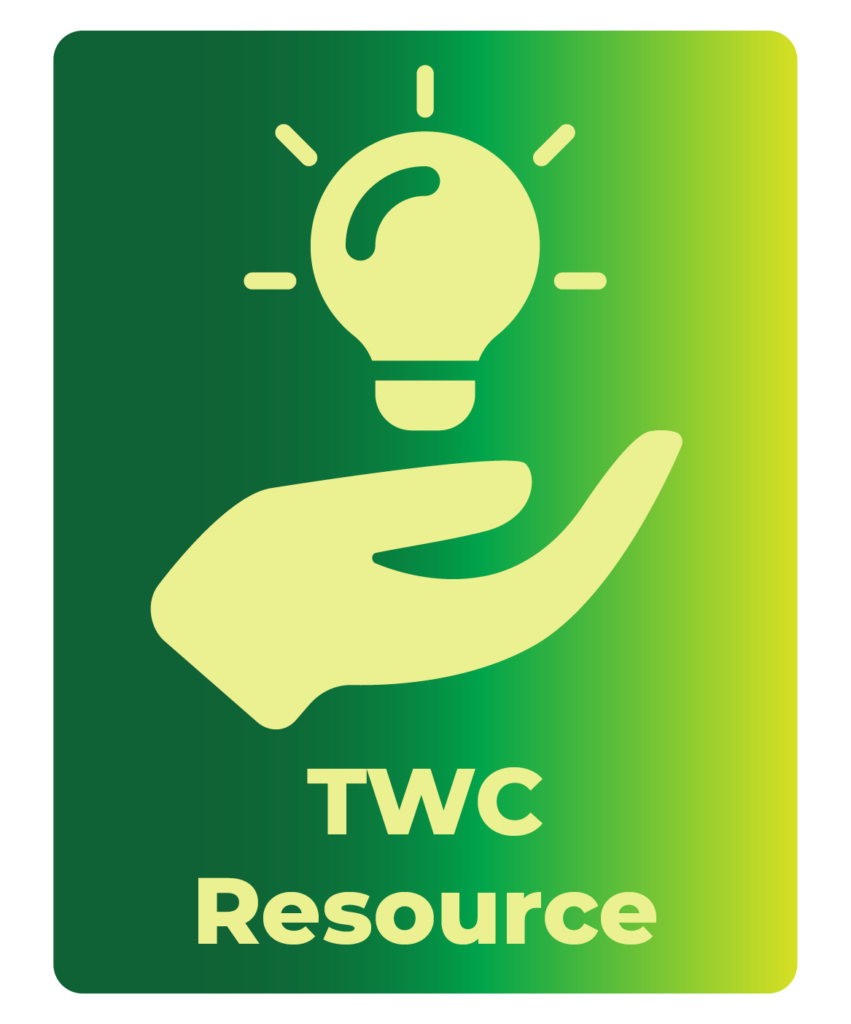
FTA Safety Training Resources
This landing page features FTA safety training resources, including the 2024–2025 Virtual Safety Risk Management and Safety Assurance Workshop and De-Escalation Training Resource Directory, as well as FTA sponsored resources, such as the USDOT Transportation Safety Institute (TSI).
Federal Transit Administration
September 2024
TOPICS: Safety and Health , Training
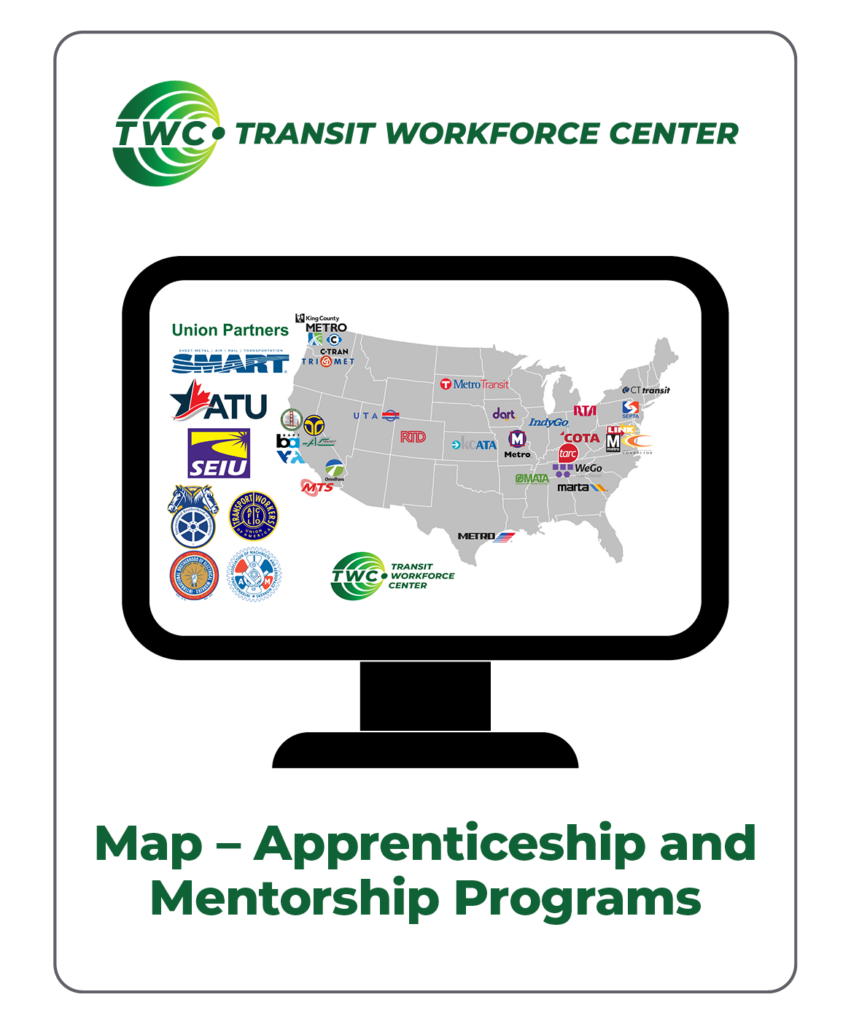
Map – Apprenticeship and Mentorship Programs
Visualizing the Growing Trend of Registered Apprenticeship in U.S. Transit Agencies
Over the past 10 years, the U.S. Department of Labor (DOL) and other federal agencies have invested heavily in promoting and supporting registered apprenticeship, resulting in a significant expansion of registered apprentice programs across the country. Likewise, the use of registered apprenticeship for frontline public transit occupations has increased significantly, with many transit agencies and their corresponding unions jointly adopting labor-management standards that create a framework for apprenticeship. Only five transit agencies had a registered apprenticeship program in 2013, compared with 30 transit agencies in 2023.
This map displays transit locations with registered apprenticeship or mentorship programs. Users can reveal information about the active apprenticeship/mentorship programs at each agency, the agency’s workforce-related statistics (such as wage, employee count, labor hours, and ridership), and links to Standards of Apprenticeship, which include details about qualifications, wages, hours, and training schedules.
Transit Workforce Center
September 2024
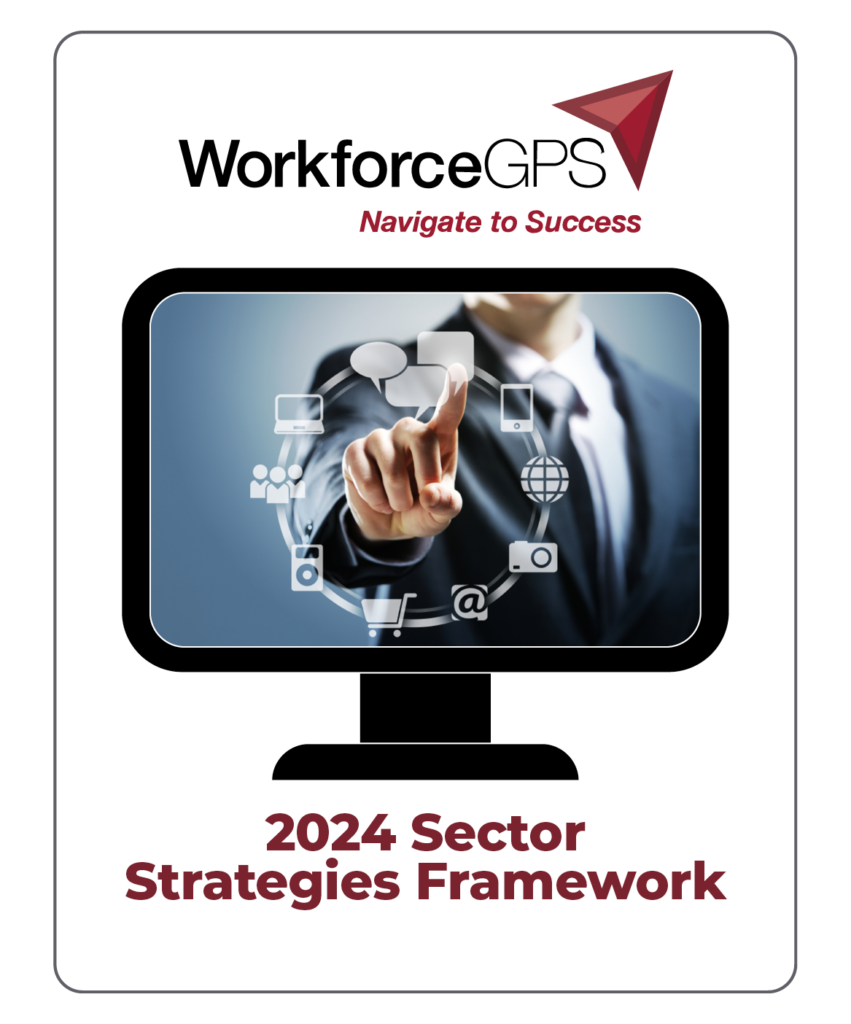
2024 Sector Strategies Framework
WorkforceGPS
September 2024
In September 2024, ETA released an updated Sector Strategies Framework to guide national, state, and local practitioners in their efforts to launch and implement effective sector strategies. The Framework is intended to advance knowledge and support the development, scaling, and durability of sector strategies. It provides workforce system practitioners with a clear picture of the concepts and elements essential to the successful implementation of sector partnerships and sector strategies. The Sector Strategies Framework was developed by ETA to harness lessons learned from the field, provide support to overcome common barriers, and help practitioners build knowledge in new areas.
Along with the Framework, the ETA released additional resources including:
- Implementation Guide and Self-Assessment and Action Planning Tool: Resources to help practitioners implement the Framework and assess and strengthen existing sector strategies efforts.
- ETA Blog Post: “Demand-driven training: Reimagining sector partnerships to build career pathways”
- Training and Employment Notice No. 08-24: Release and Availability of Updated 2024 U.S. Department of Labor’s Sector Strategies Framework
- Virtual Training Series: Learn more about the Framework and strategies to implement and scale sector strategies by viewing each session in this three-part series.
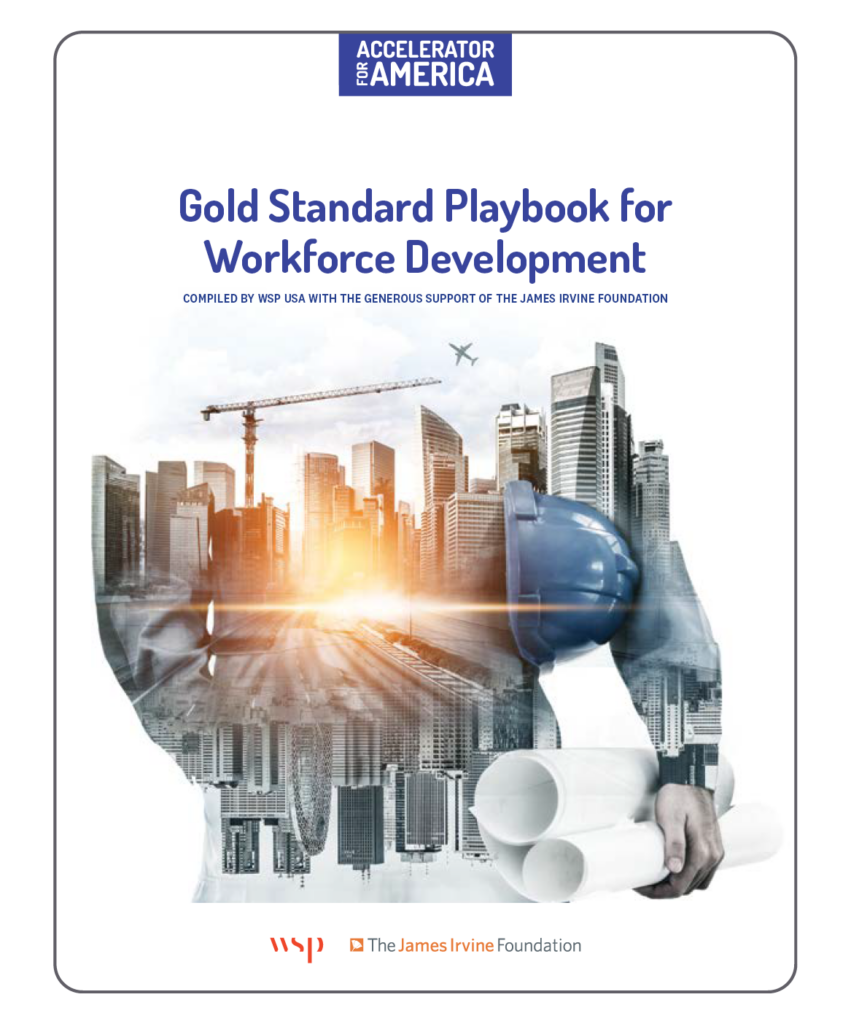
Gold Standard Playbook for Workforce Development
Accelerator for America
August 2024
This Workforce Development Playbook – a menu of malleable strategies and tactics that can be applied in different situational contexts – is meant to serve two purposes:
- To document best practices in workforce development focusing on California but with applicability nationally and sources.
- To set the first “Gold Standard” guiding owners who want to incorporate workforce development goals into their infrastructure projects.
To develop the Playbook, WSP and Accelerator for America (AFA) supported by The James Irvine Foundation, gathered information on current standards, practices, and barriers to workforce development efforts through interviews with key stakeholders across the industry in California, including project owners, community benefit organizations (CBOs), and government leaders.

Public Transportation Agency Safety Plan (PTASP) Technical Assistance Center (TAC)
Federal Transit Administration
August 2024
TOPICS: Policy and Planning , Safety and Health
The Public Transportation Agency Safety Plans (PTASP) Technical Assistance Center (TAC) provides comprehensive technical assistance to help the transit industry meet PTASP regulation requirements, as outlined in 49 CFR part 673.
The TAC:
- Provides one-on-one technical assistance
- Facilitates training and peer-sharing via live webinars and roundtables
- Conducts voluntary technical reviews of draft Agency Safety Plans
- Maintains a resource library with technical assistance tools.
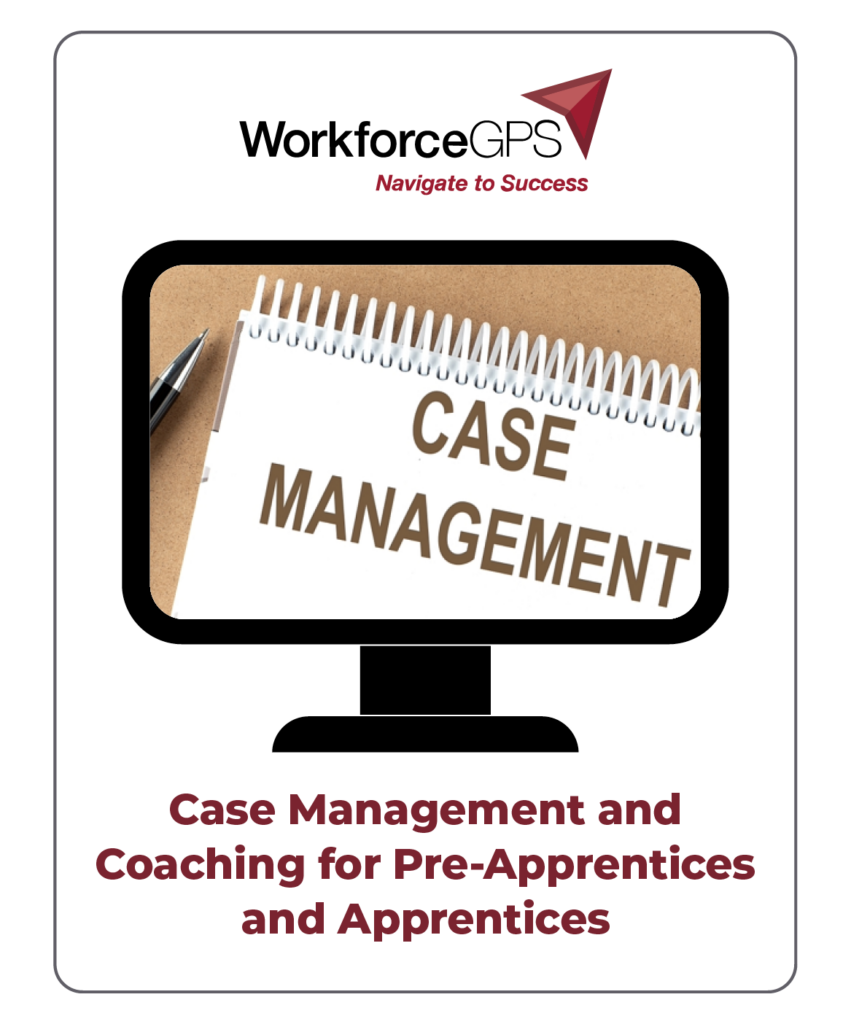
Case Management and Coaching for Pre-Apprentices and Apprentices
Workforce GPS
August 2024
TOPICS: Apprenticeship , Career Pathways , Mentorship , Trainer and Mentor Development , Training
Working with pre-apprentices and apprentices requires a combination of case management and coaching. This webinar provides the fundamentals of case management and coaching and teaches a framework for effective service delivery. This session also focuses on the use of assessments for productive service planning, quality program documentation and team communication for successful handoffs.
MODERATOR(S)
- Luis Roig, Contracting Officer’s Representative, Office of Apprenticeship, U.S. Department of Labor Employment and Training Administration
PRESENTER(S)
- Amy Landesman, Grantee Coach, ICF
- Valerie Taylor, Grantee Coach, ICF
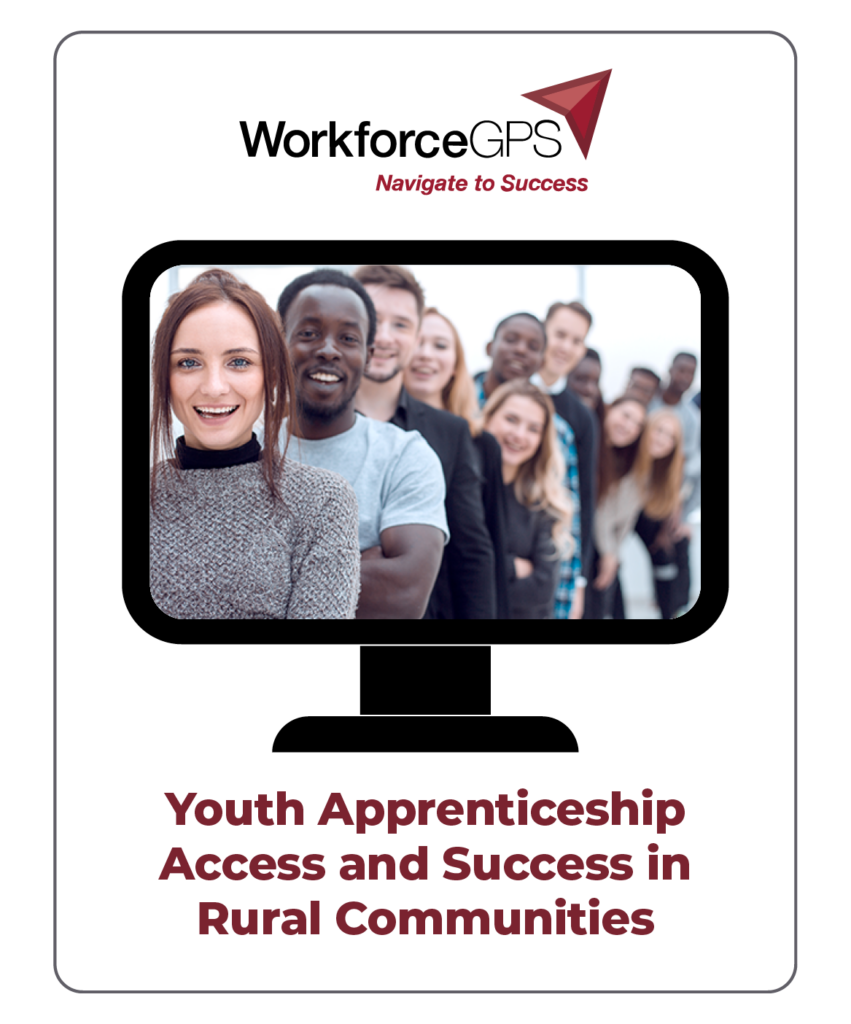
Youth Apprenticeship Access and Success in Rural Communities
WorkforceGPS
August 2024
In rural communities, widely dispersed populations face a multitude of access challenges. Faced with a declining talent pool, lower educational attainment, and rising poverty rates caused by the Covid-19 pandemic, there is an urgent need to prepare young people in rural areas for high-demand careers.
As part of the Implementing Workforce Programs for Rural Youth series, this webinar, hosted by the Office of Apprenticeship, focused on best practices and creative solutions for increasing pre-apprenticeship and youth apprenticeship access, enrollment, retention, and program completion for young people in rural areas. Featured youth apprenticeship intermediaries and partners shared their accomplishments in developing youth apprenticeship opportunities in rural areas, establishing networks of support, and best utilizing available resources to ensure pre-and youth apprenticeship success.
MODERATOR(S)
- Maisha Meminger, Manpower Analyst , Division of Youth Services, U.S. Department of Labor, Employment and Training Administration
PRESENTER(S)
- Vanessa Bennett, Associate Director, Center for Apprenticeship & Work-Based Learning, Jobs for the Future
- Zach Boren Senior Policy Program Manager, Urban Institute
- Bhavani Arabandi, Senior Research Associate, Urban Institute
- Jacqueline Rayfield, Policy Analyst, Urban Institute
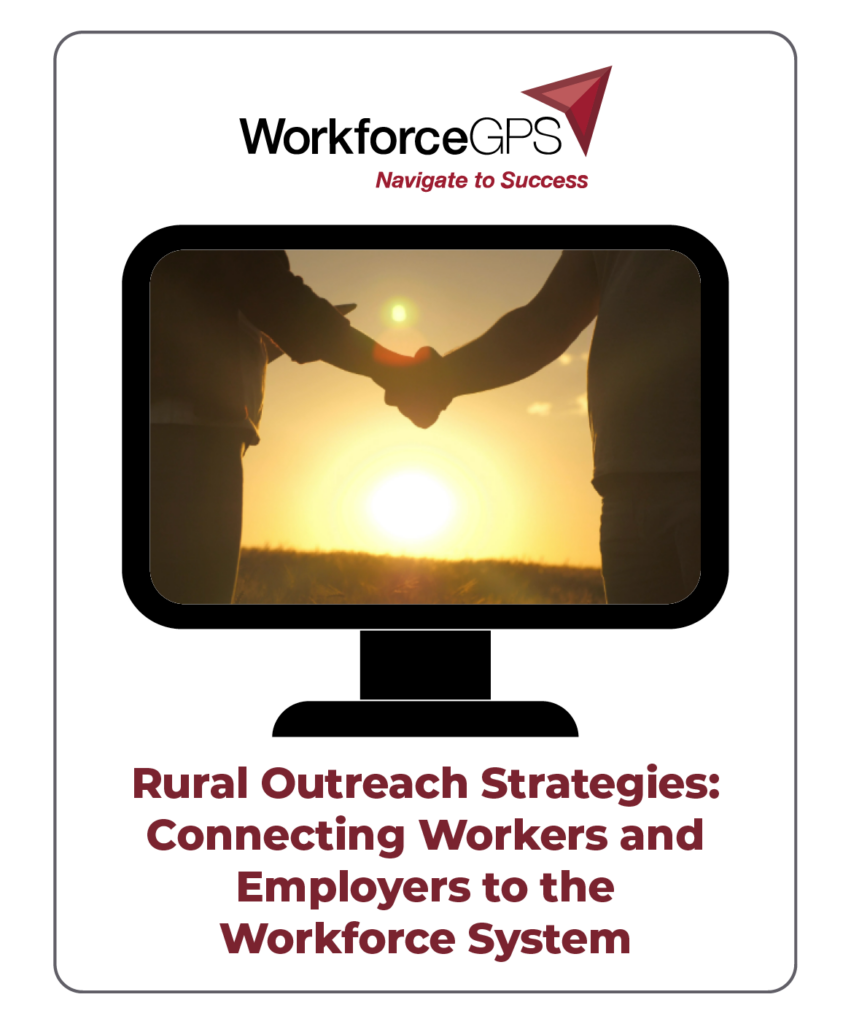
Rural Outreach Strategies: Connecting Workers and Employers to the Workforce System
WorkforceGPS
August 2024
Bringing services to rural workers and employers has long been a challenge in the workforce development system. This webinar features two real-world solutions: the use of mobile units, and the use of virtual job fairs.
Hear from South Carolina and Massachusetts about their successful implementation of their unique strategies.
MODERATOR(S)
- Tim Theberge, Division Director, Office of Trade Adjustment Assistance
PRESENTER(S)
- Adam Wagoner, Deputy Director, South Carolina Department of Employment and Workforce
- Chris Mills, Program Coordinator, MassHire Department of Career Services
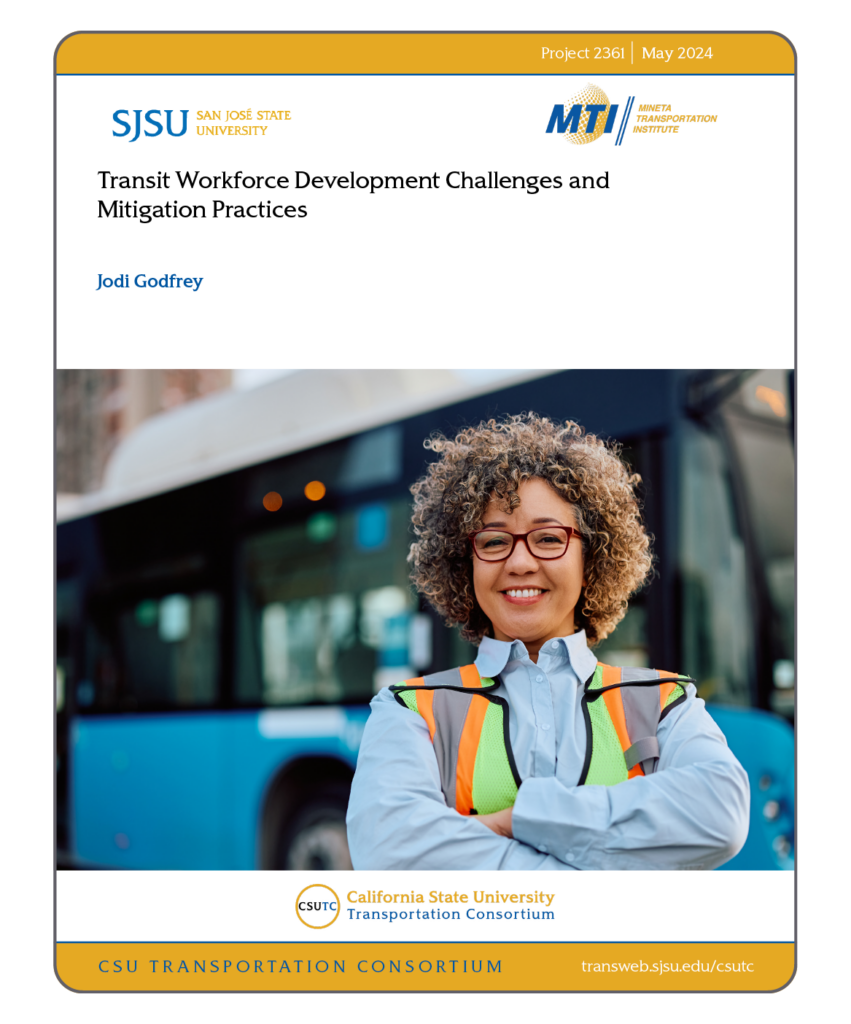
Transit Workforce Development Challenges and Mitigation Practices
San Jose State University
August 2024
TOPICS: Hiring and Recruitment , Retention , Workforce Shortage
The goal of this research is to provide transit industry executives and transportation professionals with awareness of the many tools that are available to help attract more qualified candidates to the transit industry, as well as ways to advance the development
of the transit workforce. This research highlights social media recruiting; online hiring platform improvements; and partnerships with career centers, universities, and recruitment centers to attract new employees to the transit workforce. In addition, increases in pay, benefits, bonuses, providing flexible schedule options, and some other atypical ideas have successfully been used to retain workers in the transit workforce. This research focuses on ways in which all transit stakeholders can invest in all aspects of industry workforce development to ensure qualified employees choose the transit industry and that they are subsequently trained to be the most beneficial assets to the organization and remain there via effective retention strategies.
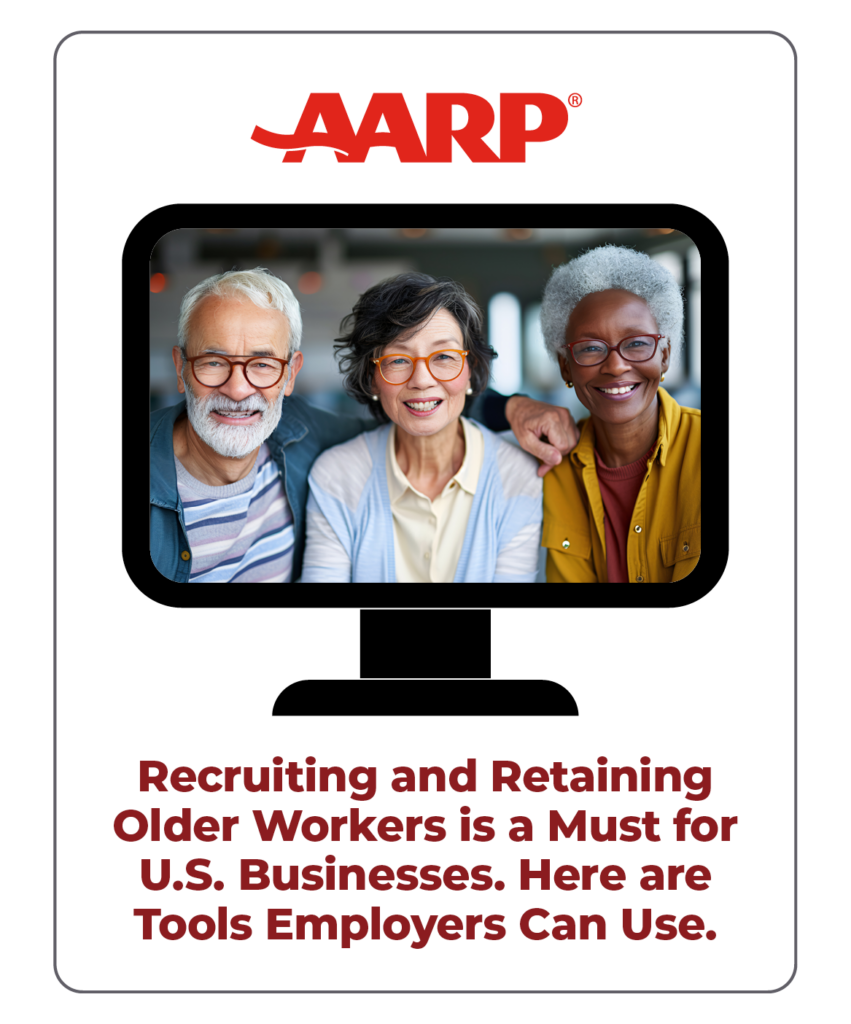
Recruiting and Retaining Older Workers is a Must for U.S. Businesses. Here are Tools Employers Can Use.
AARP
July 2024
Shifting demographics in the U.S. workforce indicate that businesses are probably going to need to recruit, train, and retain older workers to ensure their companies remain competitive. However, workplace surveys indicate that most firms are currently not prepared to find and welcome workers who are 50 years of age or older.
Fortunately, a broad array of evidence-based hiring and talent development strategies are at the ready for U.S. employers. These strategies draw from a recent and comprehensive review of employer practices and their influence on economic security and mobility for U.S. workers.
Three key connected takeaways for employers to consider as they plan for ways to leverage this segment of the workforce are as follows:
• Engage directly with older employees in developing their digital skills.
• Seek out the social networks in which older workers operate to find the best recruiting matches.
• Lean into current or former employees and their online connections to identify these social networks.
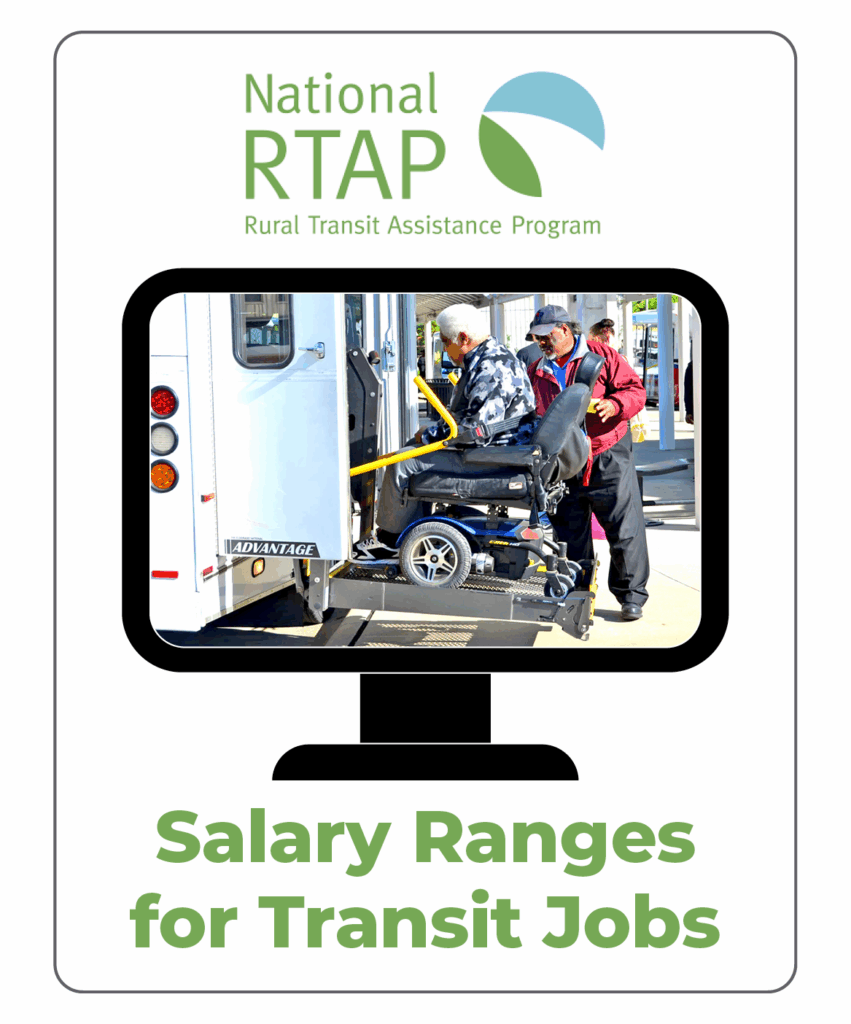
Salary Ranges for Transit Jobs
In June and July of 2024, National RTAP completed a survey of rural and tribal public transit agencies; the survey included a section on annual salaries and hourly pay rate ranges, annual salary increases, and benefits offered to full-time and part-time employees. National RTAP received responses from 391 agencies, representing 43 states, with 327 agencies providing information about jobs and annual salary and hourly ranges. The dataset is not exhaustive but can help rural and tribal transit providers in determining salary ranges for various positions.
The survey data is aggregated in a downloadable spreadsheet, which is available on the National RTAP landing page at the link below.
National Rural Transit Assistance Program
July 2024
TOPICS: Hiring and Recruitment , Policy and Planning , Retention
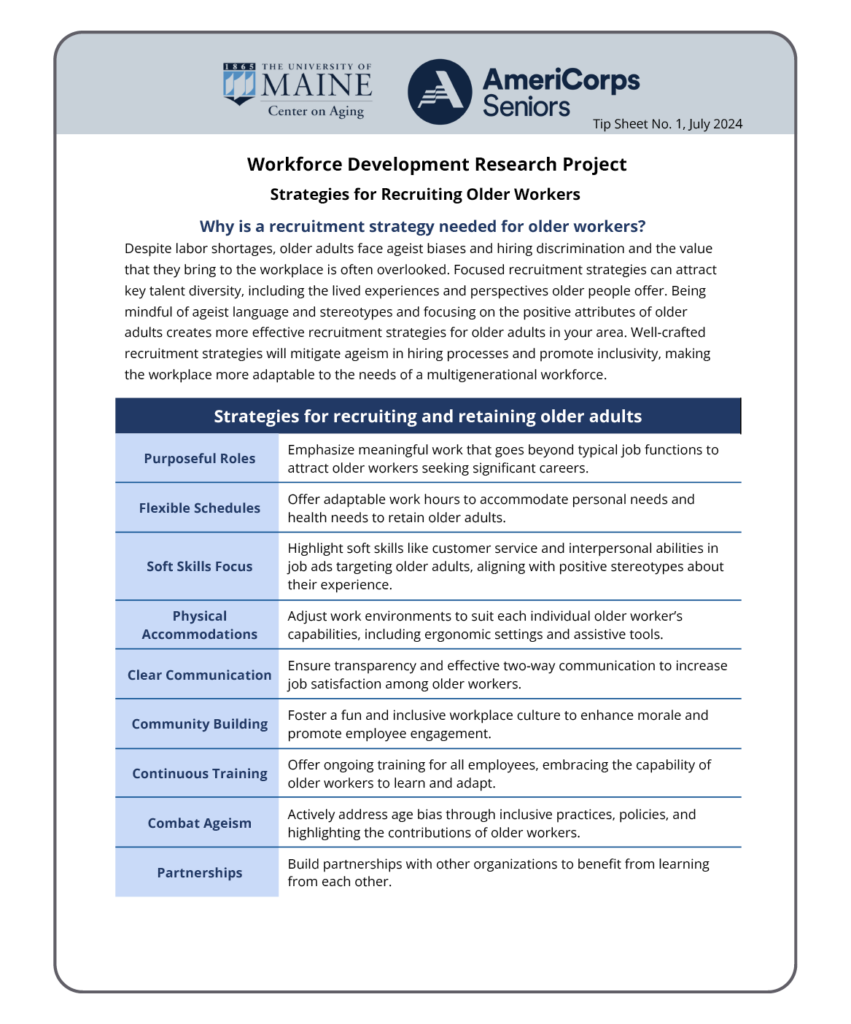
5 Tip Sheets for Working with Older Adults
UMaine Center on Aging & AmeriCorps Seniors
July 2024
TOPICS: Community Engagement , Retention , Workforce Shortage
Given current workforce shortages, reaching out and engaging older workers is of interest to many employers. The AmeriCorps Seniors research team developed five older adult workforce program tip sheets on topics relevant to interacting with older adults in the workforce. You can view the tip sheets on the project website, which are linked here:

Steering Success: AC Transit’s Holistic Strategy for Bus Operator Shortage
A 2022 American Public Transportation Association survey of 117 transit agencies of all sizes, 71% reported that they have either had to cut service or delay service increases because of worker shortfalls. While the transportation industry as a whole grapples with recruitment and retention techniques, some transit agencies have already found measurable success. This perspective examines the causes for the bus operator shortage—including as an example of the wider industry issues—as well as potential solutions, including a comprehensive approach by Oakland-based agency AC Transit, which improved retention of new bus operators by 20 percent.
Mineta Transportation Institute
July 2024
TOPICS: Hiring and Recruitment , Retention , Workforce Shortage
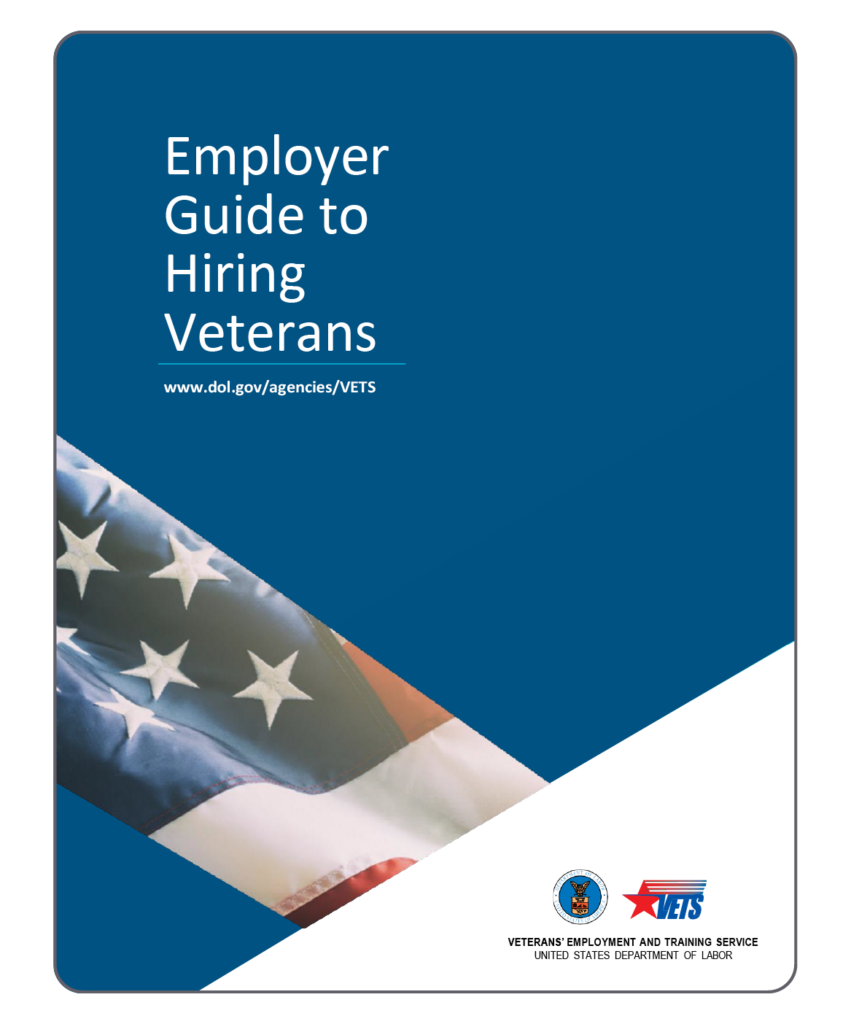
Employer Guide to Hiring Veterans
Employers recognize the value veterans bring to the workplace but often find it challenging to connect with separating service members and veterans seeking employment. Veterans are in high demand, so it requires dedicated efforts by employers to find and hire veterans.
This guide intends to:
• Provide accurate information about service member and veteran demographics.
• Share federal, state, and other resources with employers to facilitate veteran employment; and
• Make recommendations on how to attract, train, and retain veterans.
United States Department of Labor
TOPICS: Community Engagement , Hiring and Recruitment , Retention
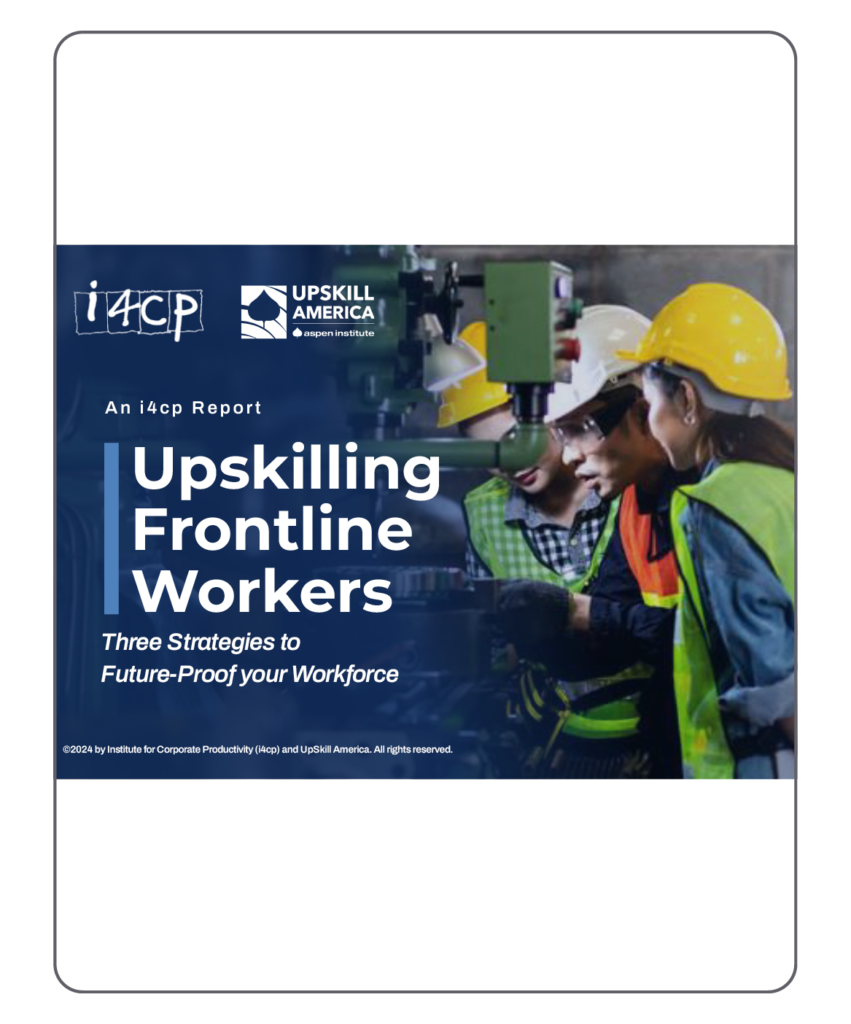
Upskilling Frontline Workers: Three Strategies to Future-Proof your Workforce
UpSkill America & Institute for Corporate Productivity (i4cp)
TOPICS: Apprenticeship , Career Pathways , Trainer and Mentor Development , Training
The rapid advancement and proliferation of technology increases the need for accelerated and continuous workforce development. Prioritizing the upskilling of frontline workers requires a variety of educational programs, and there is no single answer to the upskilling challenge. Still, UpSkill America and the Institute for Corporate Productivity (i4cp) created this report of best practices that can help any organization become more productive and resilient via a skilled workforce.
Read the brief to learn more about next practices in upskilling, including internal training, apprenticeship, and tuition assistance that will help any organization to be more productive and resilient for the future.
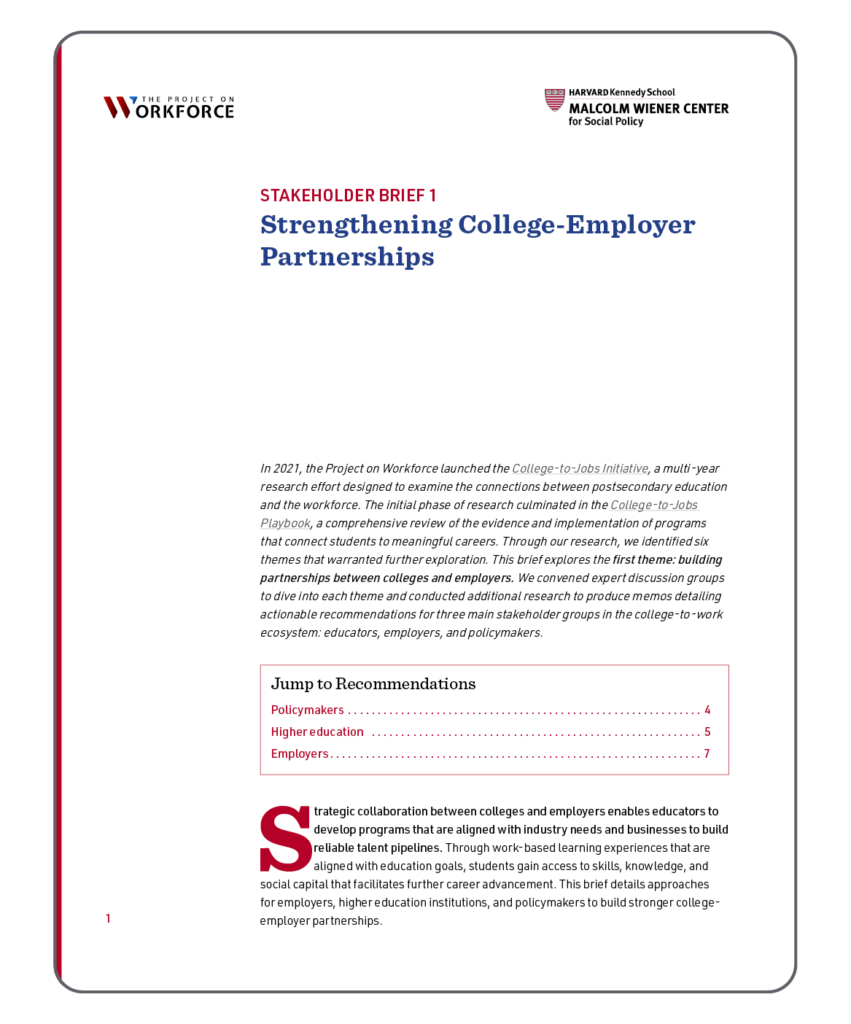
College-to-Jobs Initiative: Policy and Practice Series
The Project on Workforce
The Project on Workforce released new recommendations for educators, employers, and policymakers on how to improve college-to-jobs connections. With these webinars and stakeholder briefs, they aim to increase attention and investment in college-to-career transitions and show how colleges can better deliver on economic prosperity.
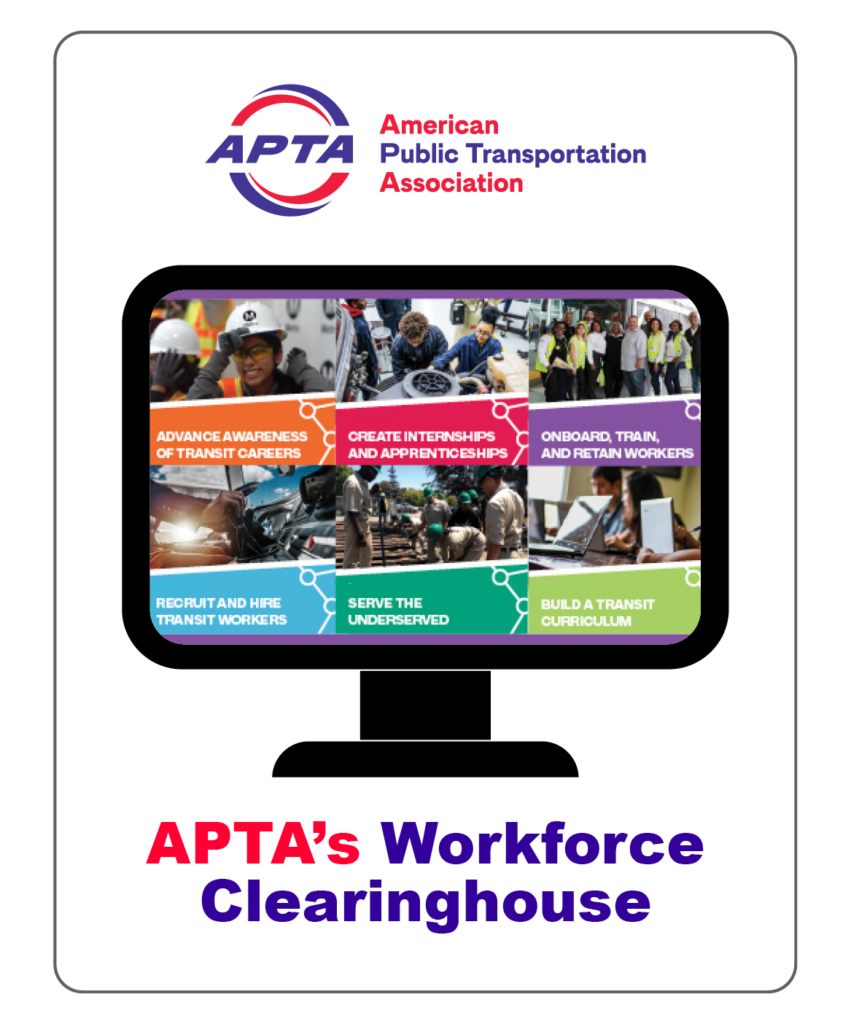
APTA’s Workforce Clearinghouse
APTA’s Workforce Clearinghouse connects users with convenient access to industry materials, stories, and recommended practices. Use the search bar or choose a categorical grouping to find resources from APTA’s six ‘Workforce Mini Guides’ as well as selected examples from the initial workforce volume – APTA’s Transit Workforce Readiness Guide.
American Public Transportation Association (APTA)
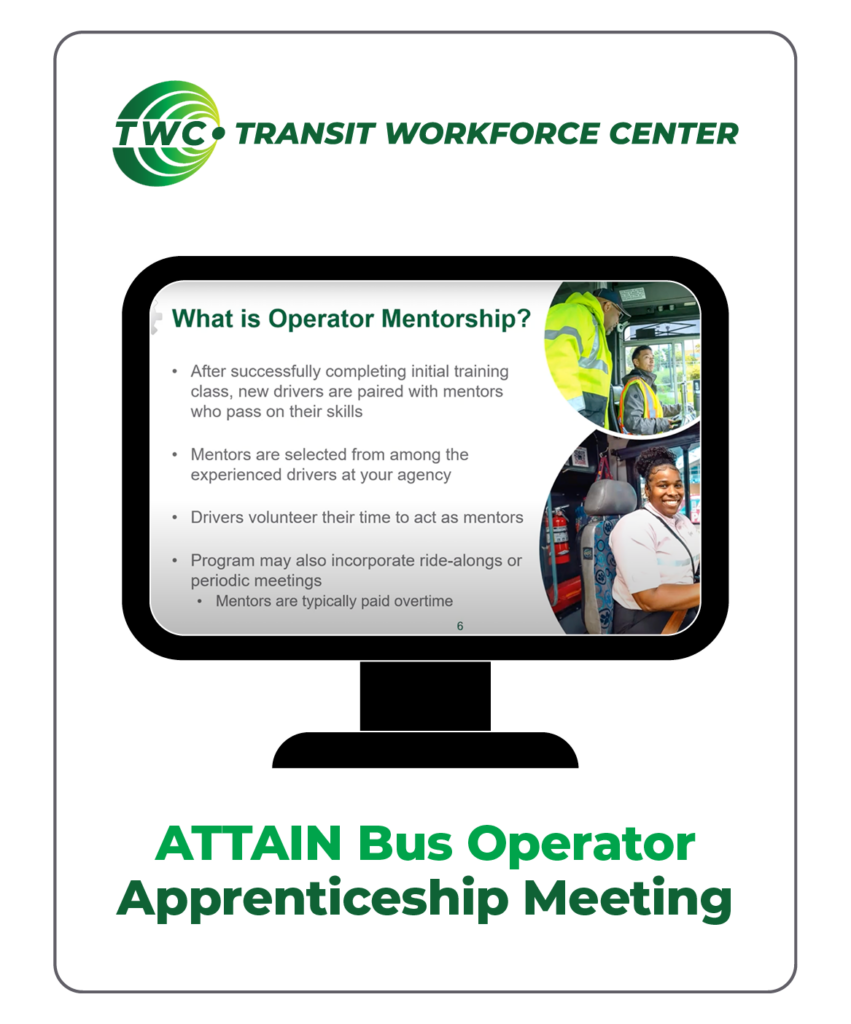
ATTAIN Bus Operator Apprenticeship Meeting
TWC’s American Transit Training and Apprenticeship Innovators Network (ATTAIN) met on May 17, 2024 to discuss bus operator apprenticeship. Check out the recording for short presentations from transit peers across the country and an engaging and interactive discussion about the development of bus operator mentorship and apprenticeship programs, how they work, and the benefits they offer.
Transit Workforce Center
May 2024
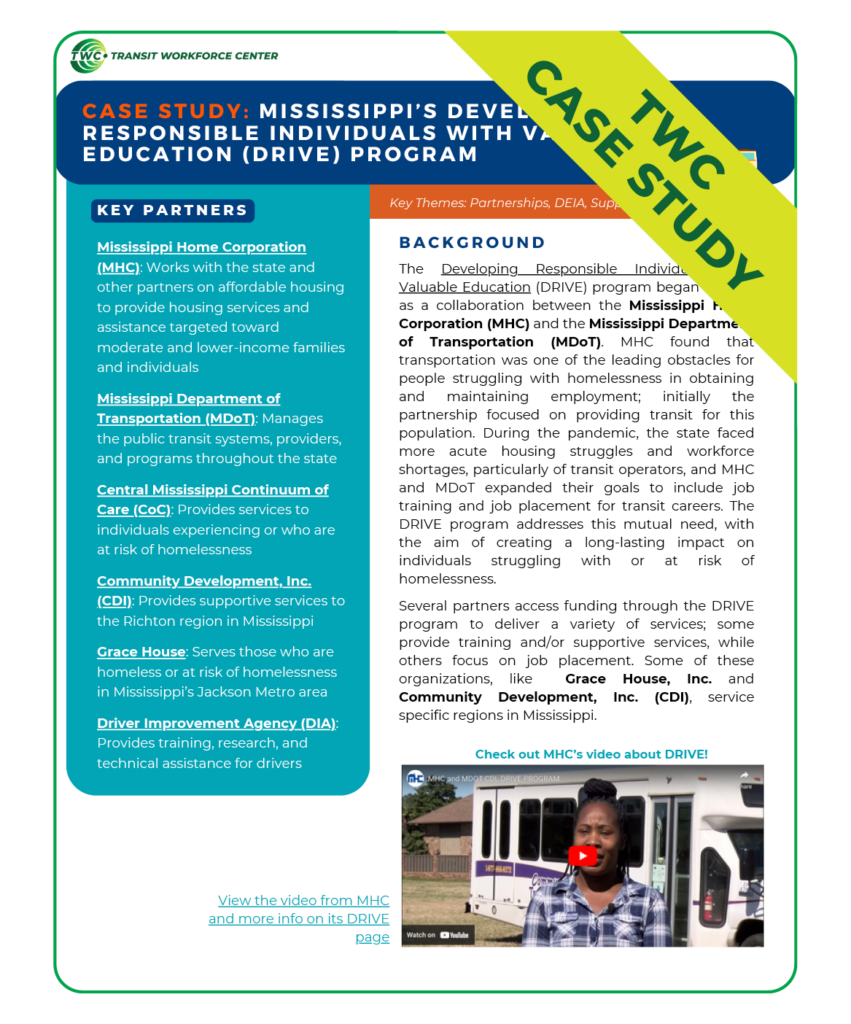
Mississippi’s Developing Responsible Individuals with Valuable Education (DRIVE) Program
This TWC case study is about the Mississippi Developing Responsible Individuals with Valuable Education (DRIVE) Program, which uses Emergency Solutions Grants (ESG) from the U.S. Department of Housing and Urban Development, distributed by the Mississippi Home Corporation (MHC), to partners such as Grace House, Inc. and Community Development, Inc. (CDI). These partners use the funding in a variety of creative ways to provide housing and other supportive services to DRIVE participants while they complete training and certification for a commercial driver’s license (CDL). Partners also provide job assistance to participants, placing them and helping them succeed in local transit jobs. Learn more about the program, services offered, and how stakeholders leverage funding in the full case study.
Transit Workforce Center
May 2024
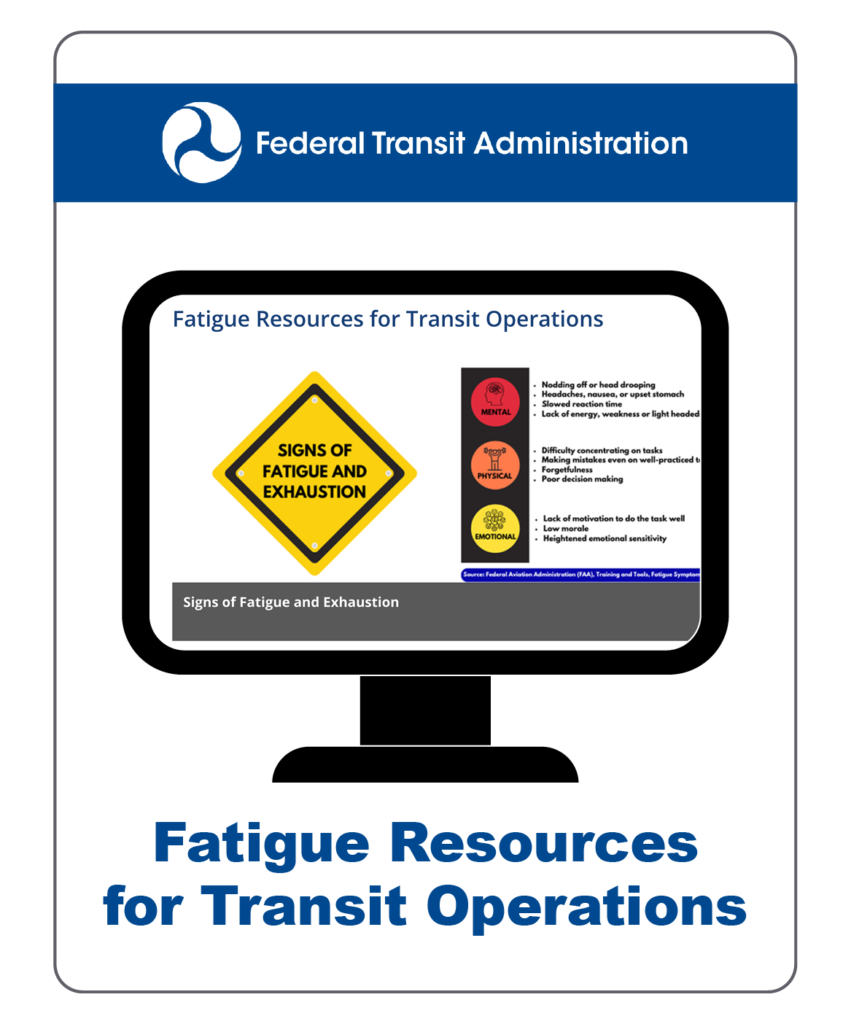
Fatigue Resources for Transit Operations
To support the transit industry, FTA has compiled resources that can be used to better understand fatigue and fatigue-related issues in the workplace. The site includes resources about understanding sleep, causes of fatigue, symptoms and warning signs, effects, relevance to transit workers and agencies, and fatigue risk management systems.
Federal Transit Administration
TOPICS: Policy and Planning , Safety and Health , Training

Workplace Mental Health Toolkit
The Workplace Mental Health Toolkit assists employers’ efforts to support the mental health and well-being of all workers, including people with mental health conditions. Through this toolkit, organizations can learn how to create a mental health-friendly workplace and help their employees access resources that will lead to improved well-being.
Employer Assistance and Resource Network on Disability
TOPICS: Policy and Planning , Retention , Safety and Health
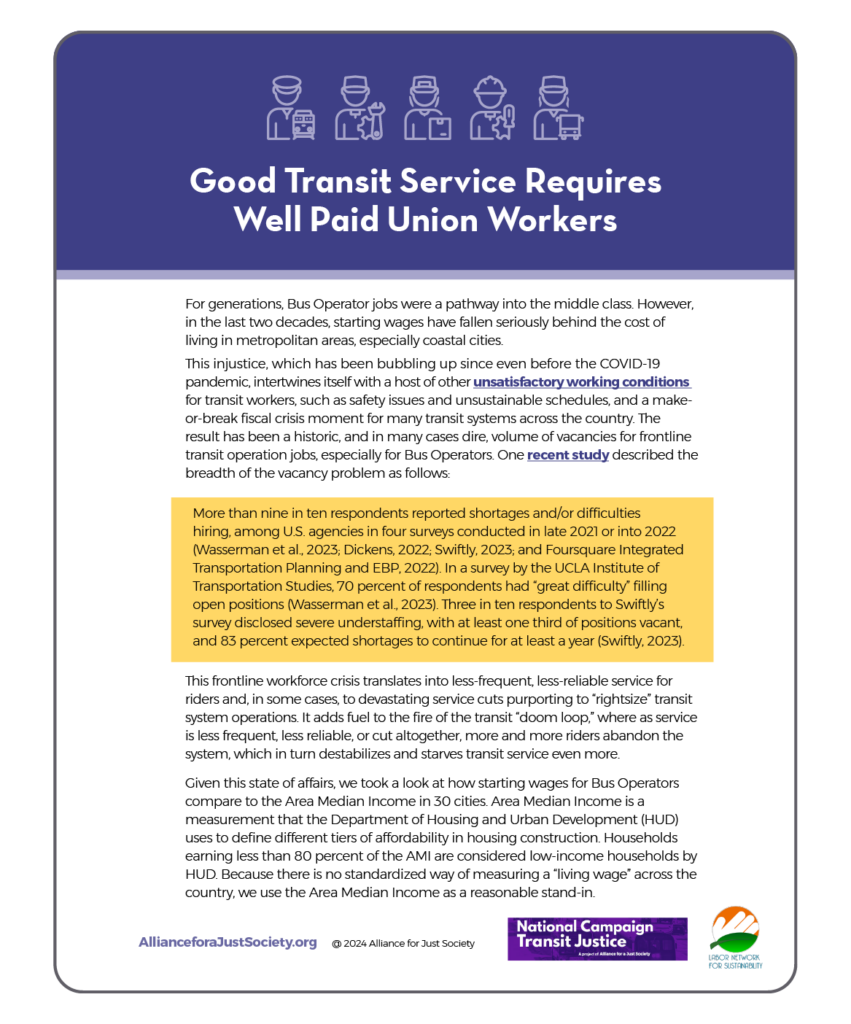
Good Transit Requires Well Paid Union Workers
This report presents bus operator wages as compared with Area Median Income in 30 cities across the U.S., pointing out that in the last two decades, starting wages for our nation’s bus operators have fallen seriously behind the cost of living. In the face of a workforce shortage, the report makes the case for decision makers to ensure higher wages for frontline transit workers.
The National Campaign for Transit Justice
March 2024
TOPICS: Hiring and Recruitment , Policy and Planning , Retention , Workforce Shortage
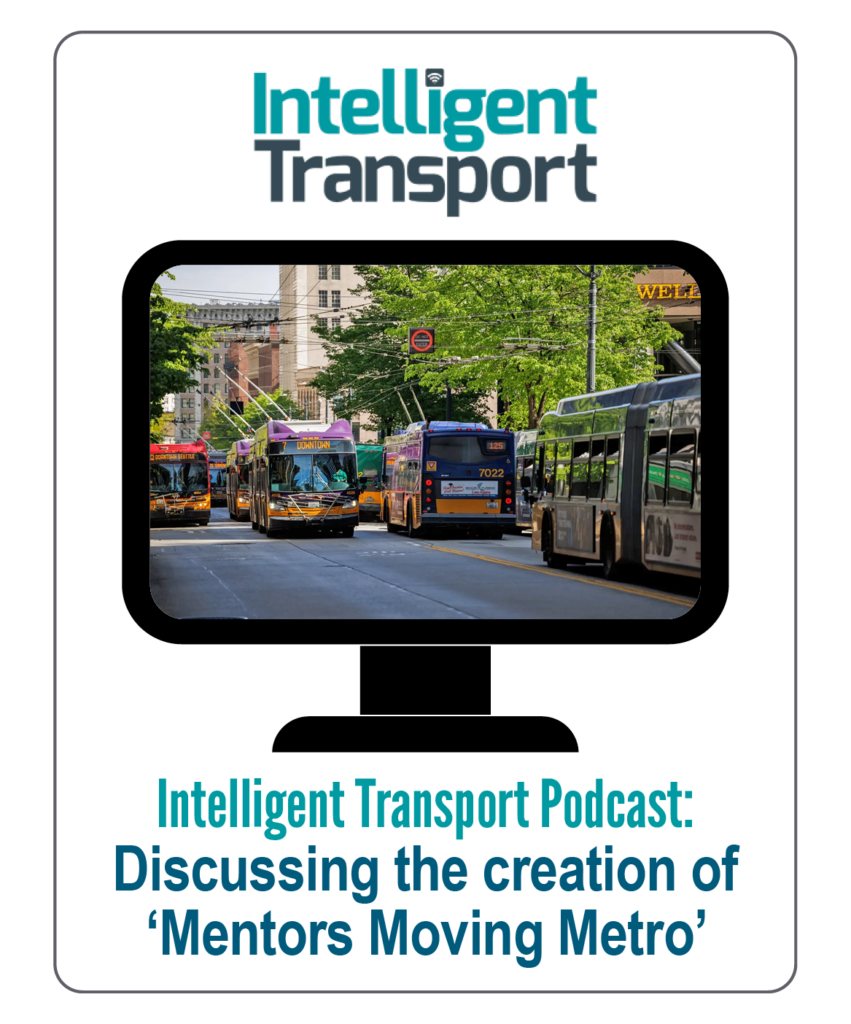
Intelligent Transport Podcast: Discussing the creation of ‘Mentors Moving Metro’
“Mentors Moving Metro” is a partnership between Metro and the Amalgamated Transit Union (ATU) Local 587 that will match experienced operators with new, part-time operators for six to 12 months. In this podcast discussion, Metro’s Director of Bus Operations, Phil DeVault, and transit operator and ATU member, Patrick Brady, talk about how “Mentors Moving Metro” is helping foster relationships and provide knowledge that can only come those who have been “in the seat.” They discussed the origins of the program, how mentors can be a morale boost for operators, and how it can foster greater interaction between operators and management. They finished the podcast by discussing their vision on developing it from a mentorship program to an apprenticeship program for drivers joining Metro in the future.
Intelligent Transport
March 2024
TOPICS: Apprenticeship , Career Pathways , Labor-Management Partnerships , Mentorship , Training
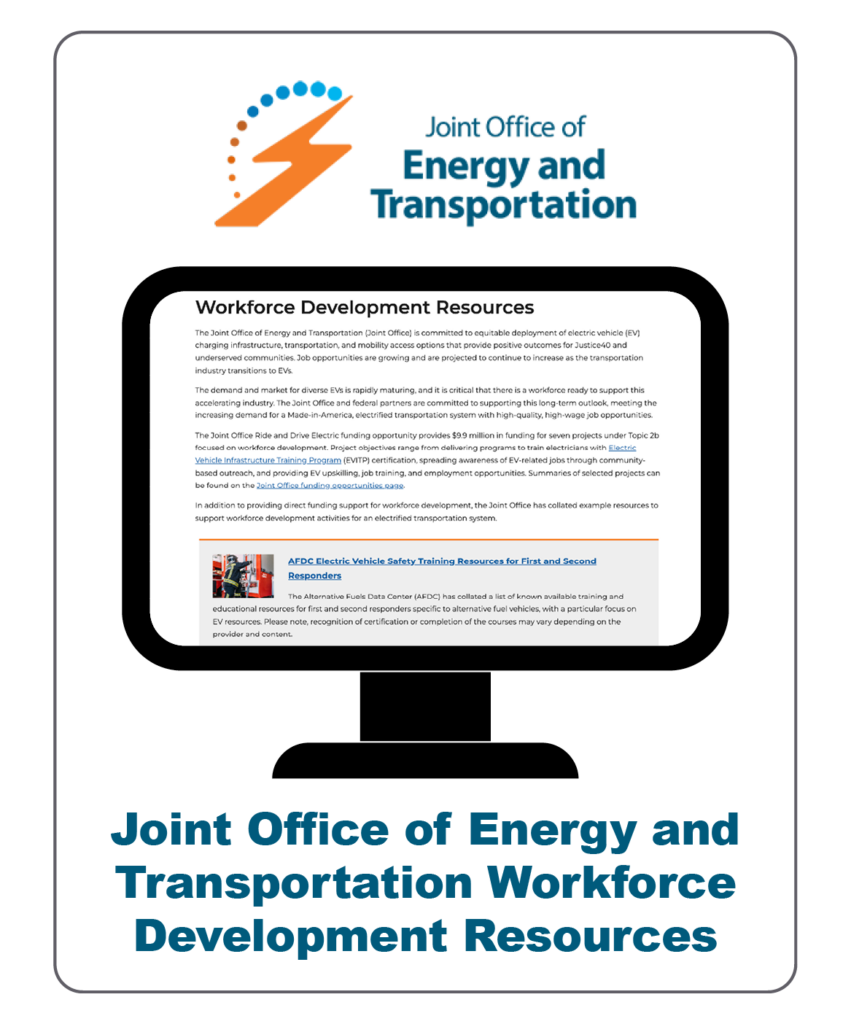
Joint Office of Energy and Transportation Workforce Development Resources
The Joint Office of Energy and Transportation (Joint Office) supports the deployment of low-no, convenient, and accessible transportation infrastructure. In addition to providing direct funding support for workforce development, the Joint Office has collated example resources to support workforce development activities for an electrified transportation system.
Joint Office of Energy and Transportation
TOPICS: Apprenticeship , Funding Opportunities , Low-No , Policy and Planning , Training , Workforce Shortage
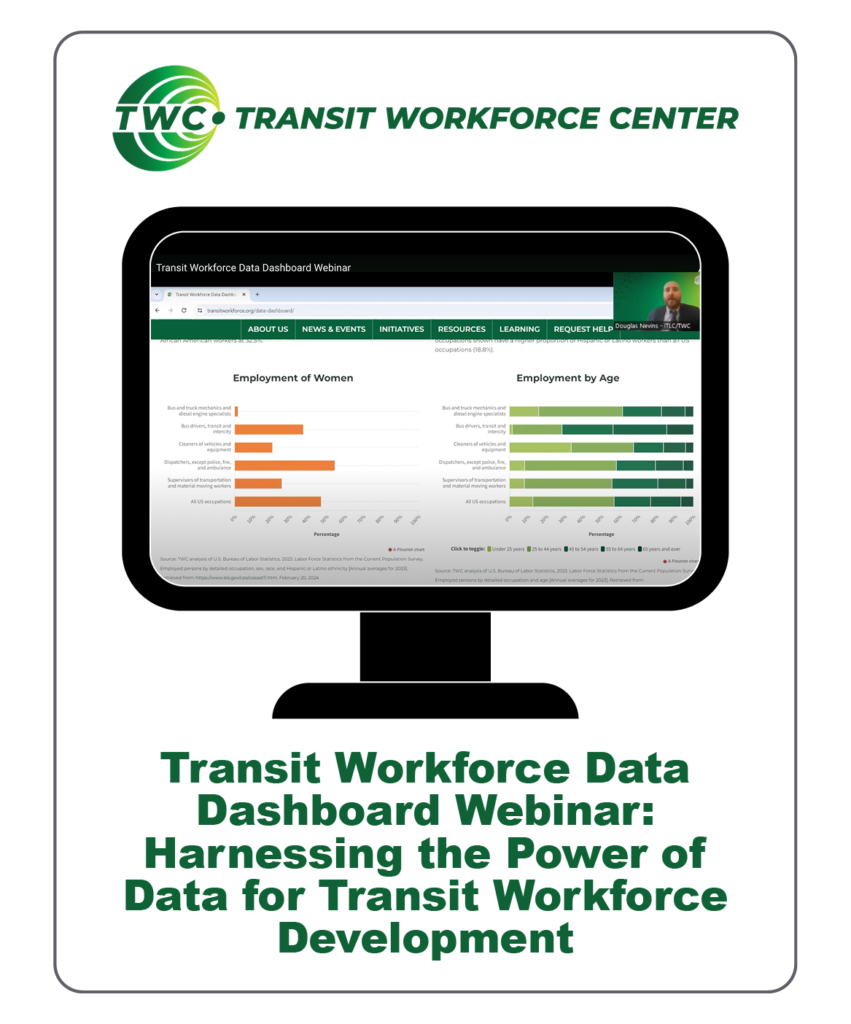
Transit Workforce Data Dashboard Webinar: Harnessing the Power of Data for Transit Workforce Development
TWC hosted a webinar titled “Transit Workforce Data Dashboard Webinar: Harnessing the Power of Data for Transit Workforce Development” on February 28, 2024. The Dashboard features innovative visualizations of transit and transportation workforce statistics and demographics from the National Transit Database (NTD) and Bureau of Labor Statistics (BLS). It can be used to highlight key issues, like the high proportion of transit workers nearing retirement age, the potential for greater participation in key transportation occupations, and the need to hire extensively in the coming decade. A new interactive page launched in February, allowing users to filter NTD employment data by agency.
TWC demonstrated the full dashboard, discussed lessons learned from working with NTD and BLS data, and opened up a Q&A for participants to ask questions or share their unique data needs.
Transit Workforce Center
February 2024
At the end of the webinar, TWC shared a survey to collect unique transit workforce data needs and feedback for potential additions to the Data Dashboard. The survey continues to accept responses and can be found below.
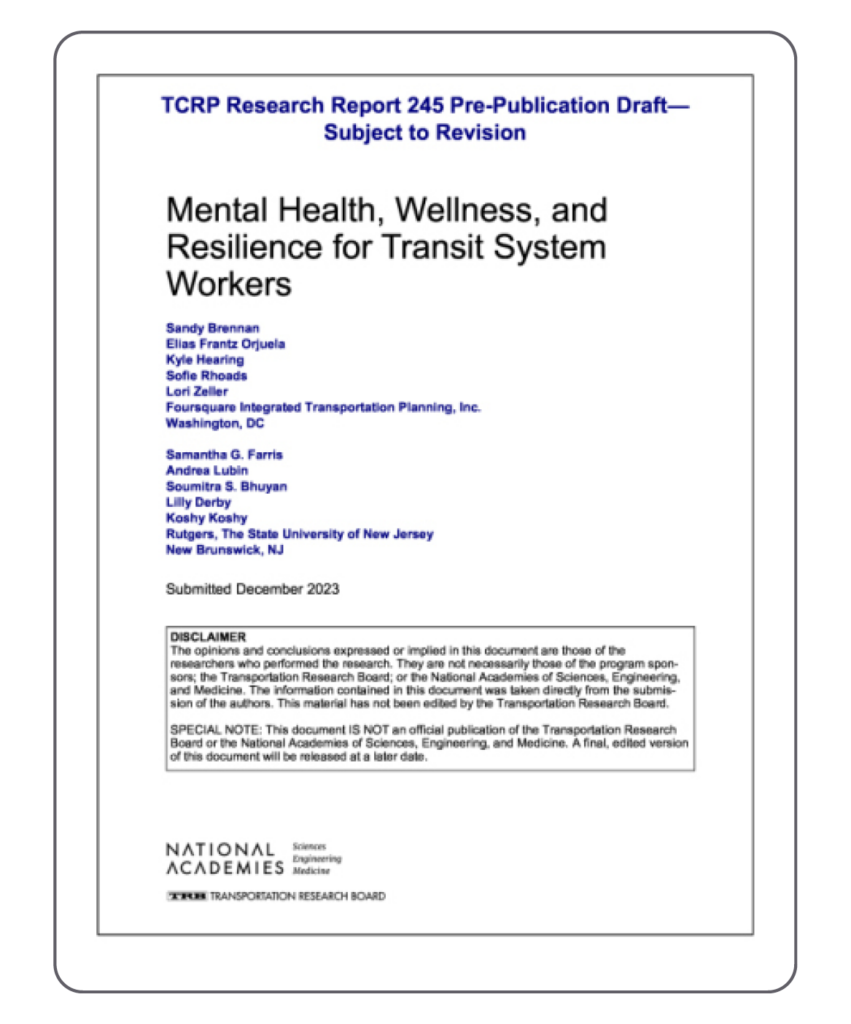
Mental Health, Wellness, and Resilience for Transit System Workers
TCRP Research Report 245: Mental Health, Wellness, and Resilience for Transit System Workers provides a detailed summary of common factors that influence the mental health, well-being, and resiliency of frontline transit workers and includes a range of solutions that transit agencies can implement to address them. Findings were determined using a mix of research methods, including multiple interviews and focus groups with frontline employees, transit agency management, and union leadership at two different points in the project.
Transit Cooperative Research Program
February 2024
TOPICS: Policy and Planning , Safety and Health
Contributor(s): Sandy Brennan, Elias Frantz Orjuela, Kyle Hearing, Sofie Rhoads, Lori Zeller, Samantha G. Farris, Andrea Lubin, Soumitra S. Bhuyan, Lilly Derby, Koshy Koshy; Transit Cooperative Research Program; Transportation Research Board; National Academies of Sciences, Engineering, and Medicine
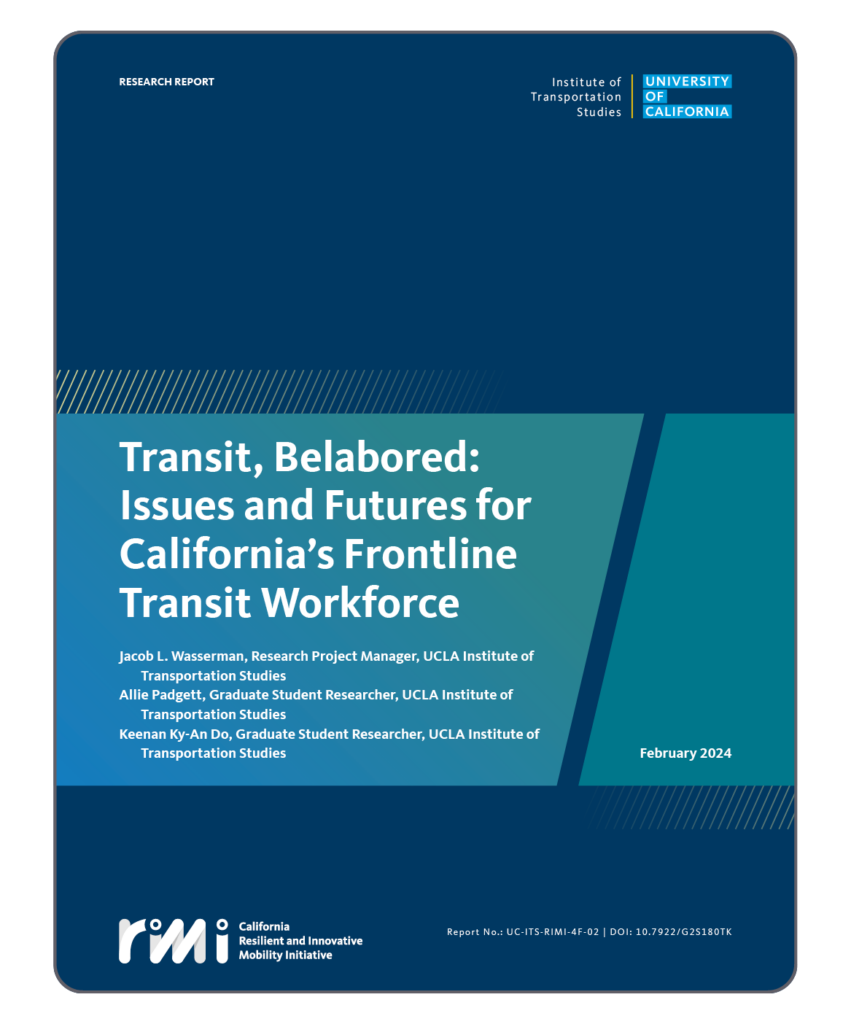
Transit, Belabored: Issues and Futures for California’s Frontline Transit Workforce
This report focuses on frontline transit workforce issues, including employee pay, issues before and after the COVID-19 pandemic, and the workforce shortage. The report is mainly about transit operators, but also touches on mechanics. It draws on quantitative and qualitative data, including wage data by agency and sector, contracts and agency documents, and interviews with union leaders, agency managers, and operators themselves.
Institute of Transportation Studies
February 2024
TOPICS: Hiring and Recruitment , Policy and Planning , Retention , Workforce Shortage
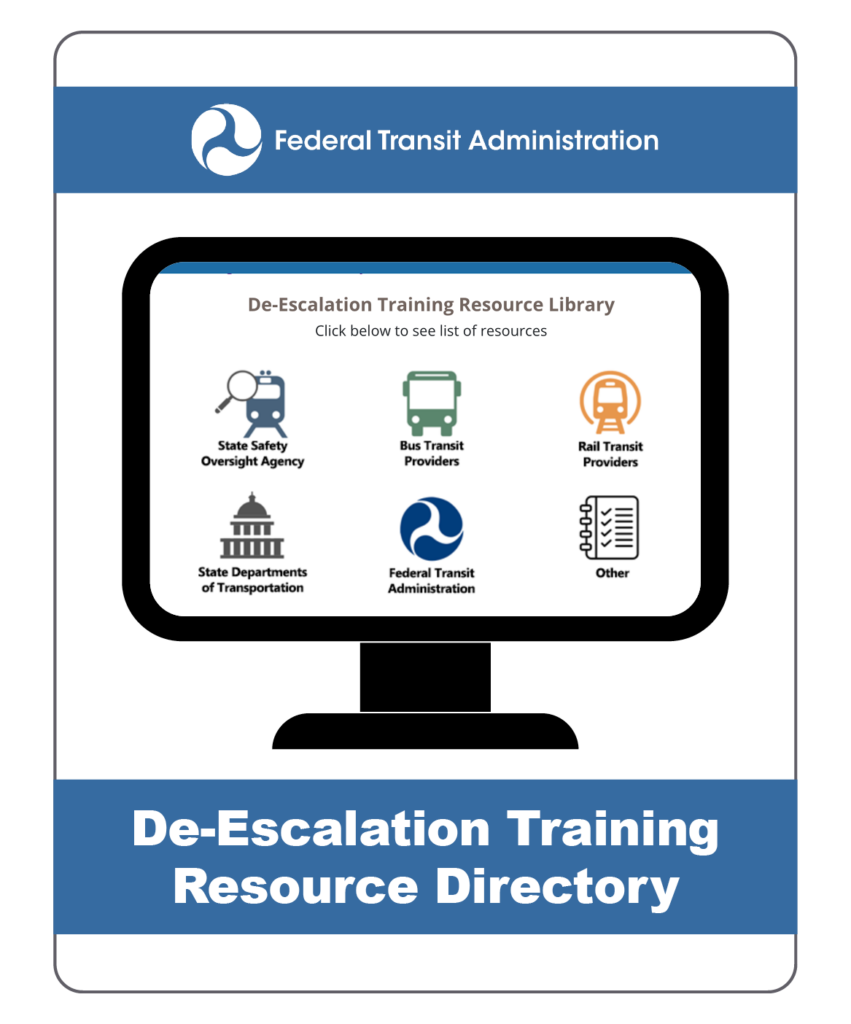
De-Escalation Training Resource Directory
The Federal Transit Administration (FTA) has gathered these resources to support the transit industry in developing, implementing, and updating their training programs. The resources illustrate ways agencies throughout the transit industry are implementing de-escalation training.
Federal Transit Administration
February 2024
TOPICS: Policy and Planning , Safety and Health , Training
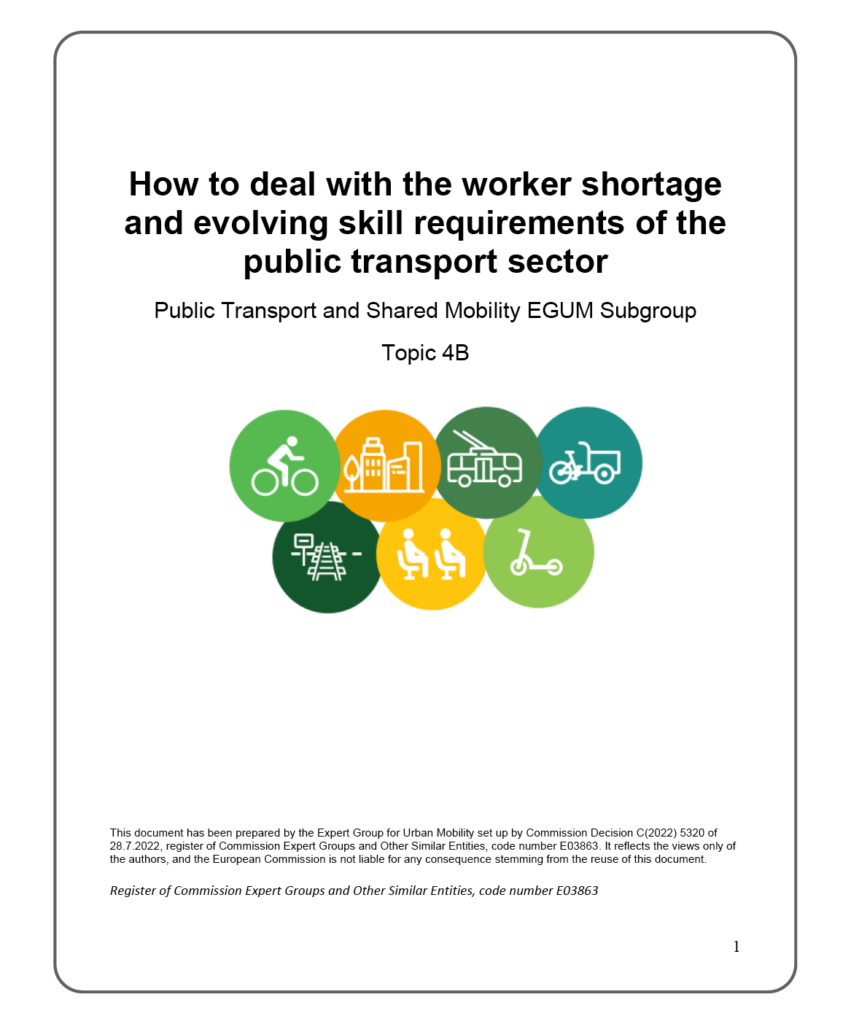
How to Deal with the Worker Shortage and Evolving Skill Requirements of the Public Transport Sector
This report provides a European counterpart to those produced within the United States on the transit workforce shortage. It gives an overview of the workforce shortage’s causes, as well as recommendations for addressing evolving skill requirements and more.
Expert Group on Urban Mobility, European Commission
February 2024
TOPICS: Community Engagement , Hiring and Recruitment , Training , Workforce Shortage
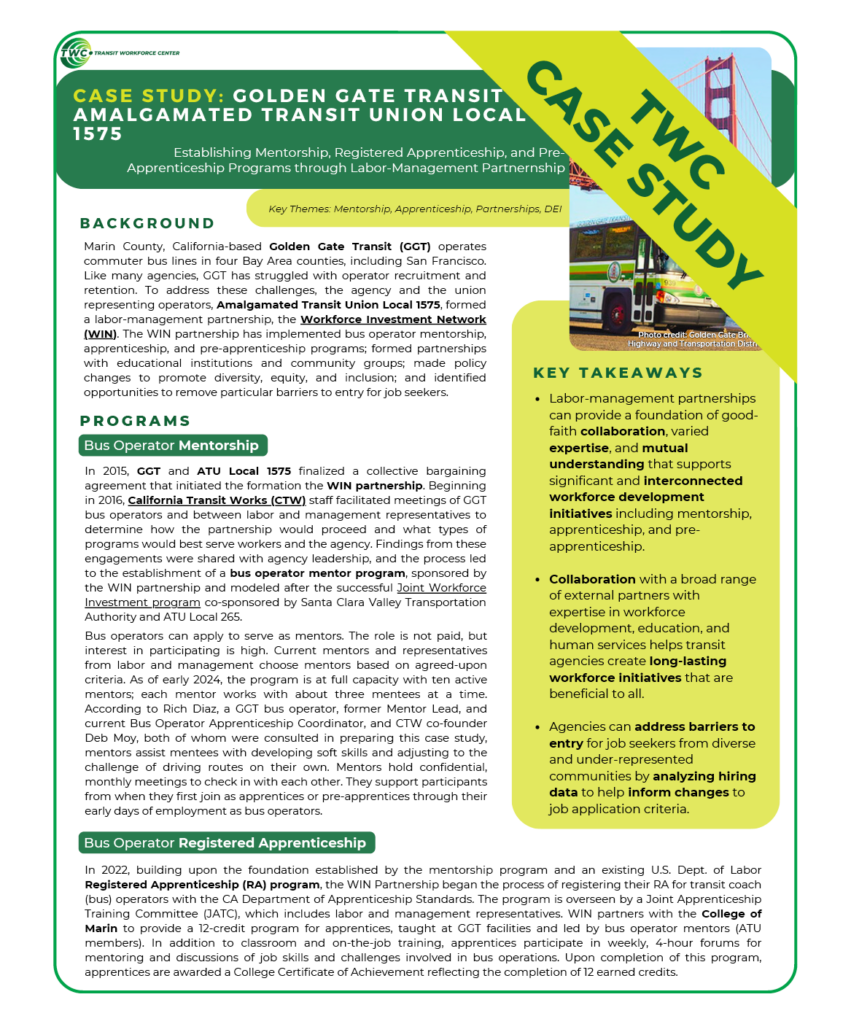
Case Study: Golden Gate Transit & Amalgamated Transit Union Local 1575
Marin County, California-based Golden Gate Transit (GGT) operates commuter bus lines in four Bay Area counties, including San Francisco. Like many agencies, GGT has struggled with operator recruitment and retention. To address these challenges, the agency and the union representing operators, Amalgamated Transit Union Local 1575, formed a labor-management partnership, the Workforce Investment Network (WIN). The WIN partnership has implemented bus operator mentorship, apprenticeship, and pre-apprenticeship programs; formed partnerships with educational institutions and community groups; and identified opportunities to remove particular barriers to entry for job seekers.
Transit Workforce Center
February 2024
Read Rich Diaz’s Transit Career Story on the TWC Blog to learn more.
View the full case study below:
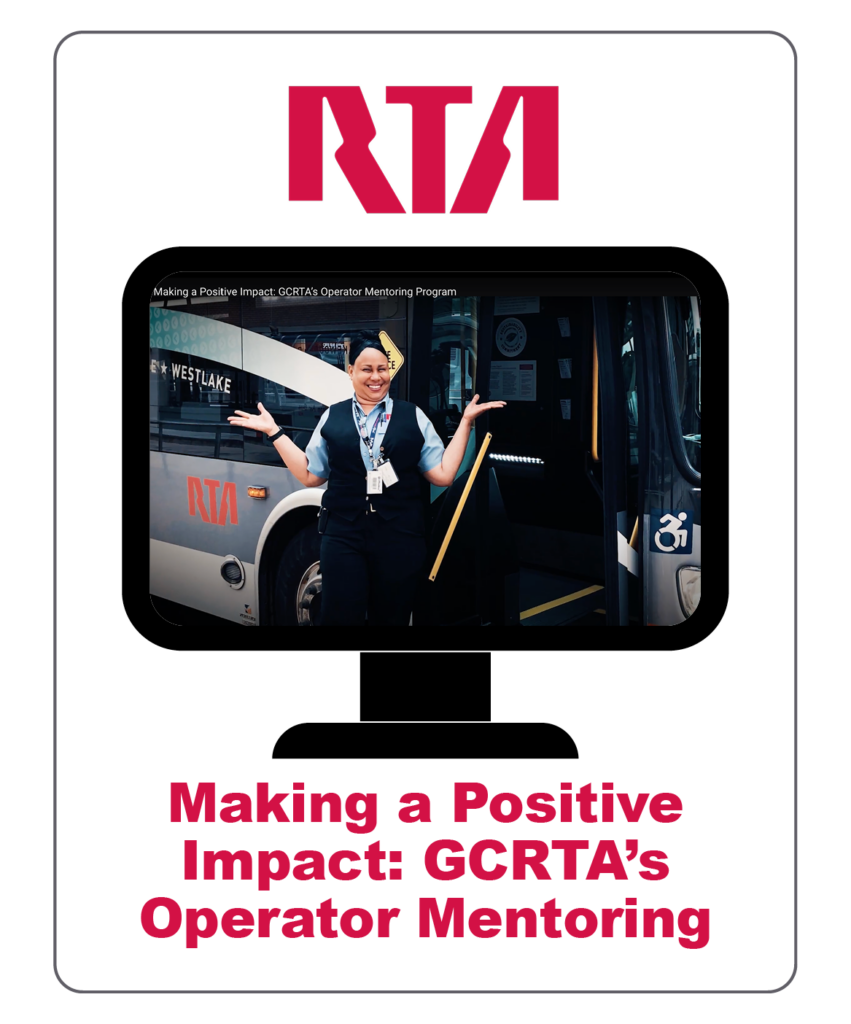
Making a Positive Impact: GCRTA and ATU Local 268’s Operator Mentoring Program
This video provides an overview of the Greater Cleveland Regional Transit Authority (GCRTA) and Amalgamated Transit Union (ATU) Local 268 operator mentoring program. Incorporating the voices of frontline workers, it explains the benefits of mentoring that GCRTA has realized and provides a window into how the program developed.
Greater Cleveland Regional Transit Authority, Amalgamated Transit Union Local 268
February 2024
TOPICS: Mentorship
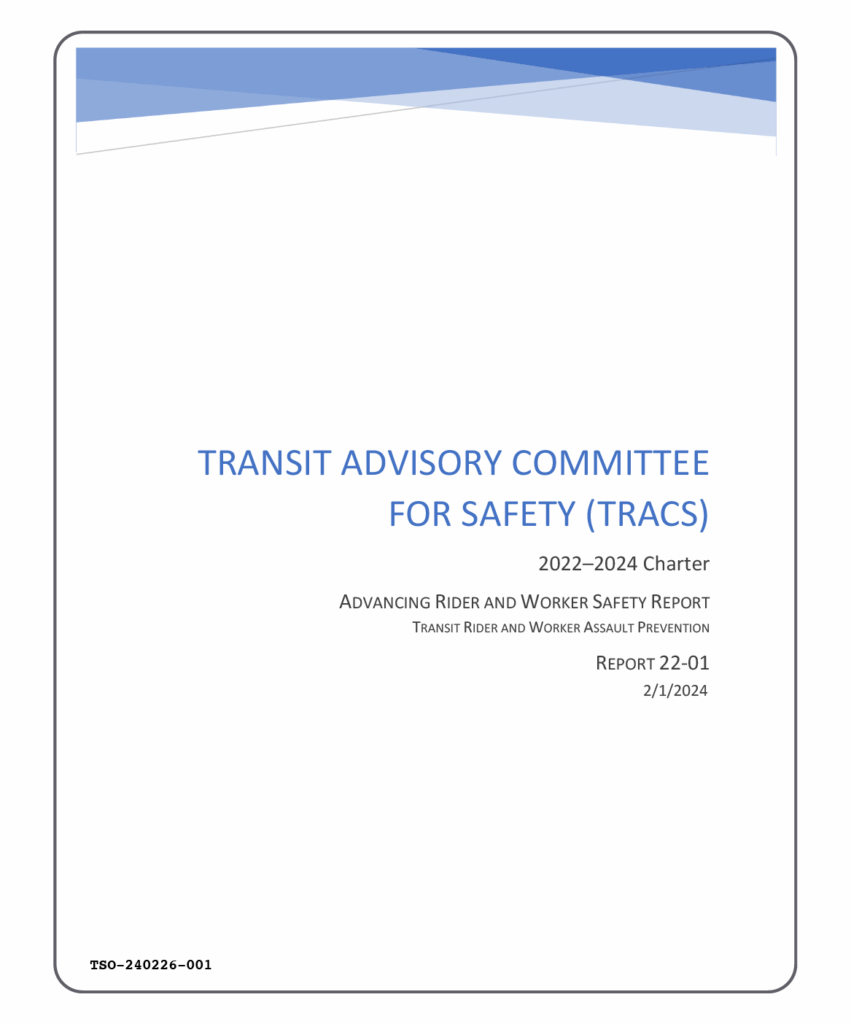
Advancing Rider and Worker Safety
The 2022-2024 Charter tasked the Transit Advisory Committee for Safety (TRACS) with developing recommendations that the Federal Transit Administration could implement to improve public safety. This report includes recommendations related to one of the Charter’s safety focus areas: Advancing Rider and Worker Safety.
Transit Advisory Committee for Safety
February 2024
TOPICS: Policy and Planning , Safety and Health , Training
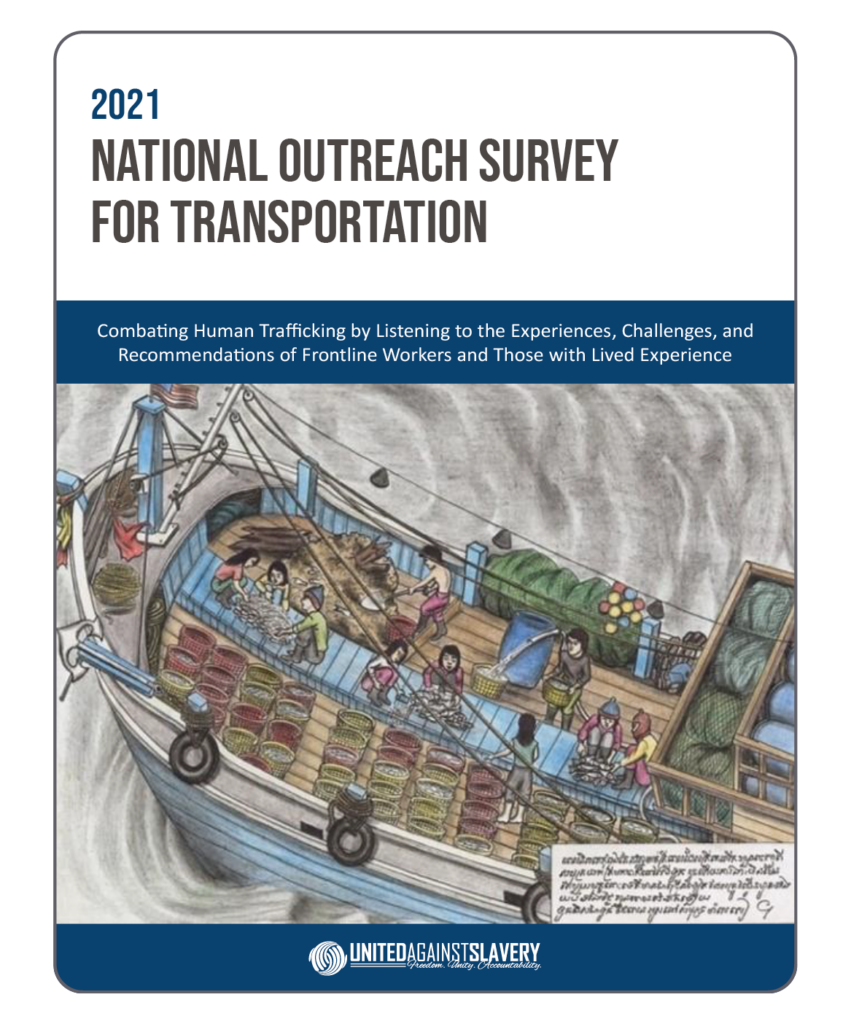
National Outreach Survey for Transportation (NOST)
This report explores the status of sex and labor trafficking in the transportation industry. It explains and highlights a survey of frontline data collected from across the transportation industry, as well as from sex and labor trafficking survivors and direct victim service providers. Data analysis includes information about the current knowledge base on sex trafficking among frontline transportation workers and suggestions for training.
United Against Slavery
January 2024
TOPICS: Policy and Planning , Safety and Health , Training
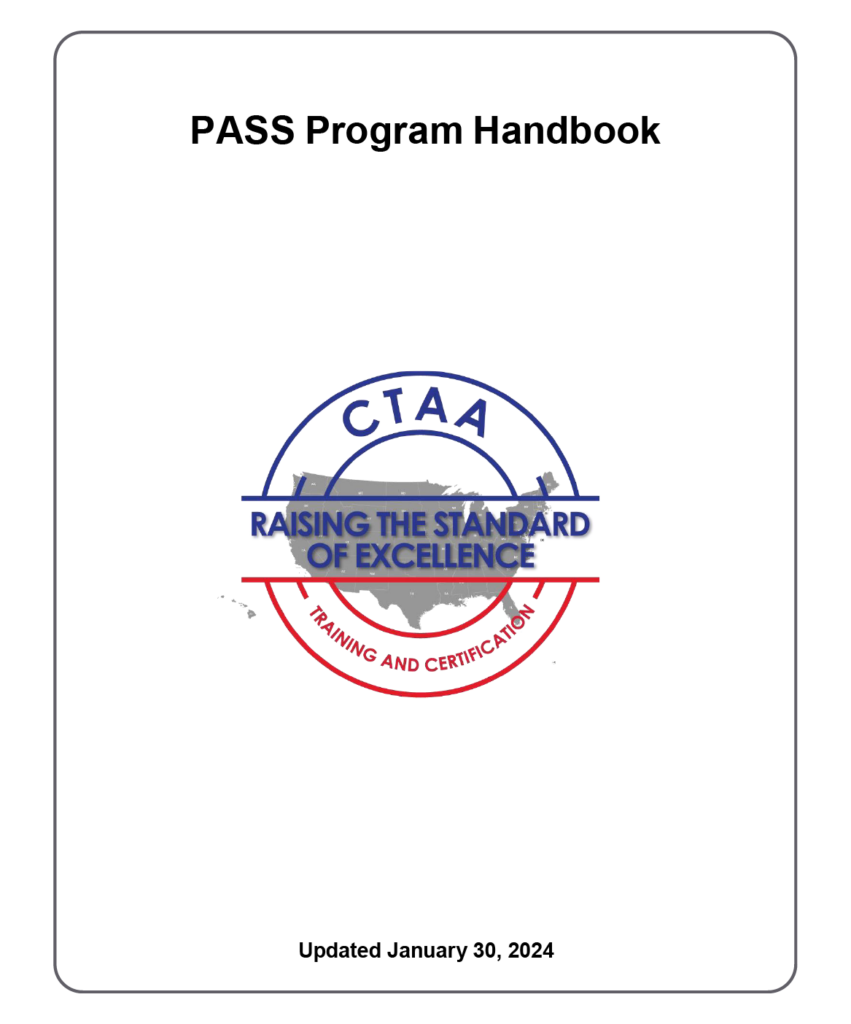
Passenger Assistance, Safety And Sensitivity (PASS) Program Handbook
CTAA’s Passenger Assistance, Safety and Sensitivity (PASS) driver training program provides resources and standards for operators to transport passengers in the most safe, sensitive and careful manner possible. PASS is ideal for non-emergency medical transportation (NEMT) trips, for ADA paratransit services, for specialized transit for older passengers, for human and social service riders — really any transportation operation where the passengers require extra care.
Community Transportation Association of America
January 2024
TOPICS: Community Engagement , Safety and Health , Training
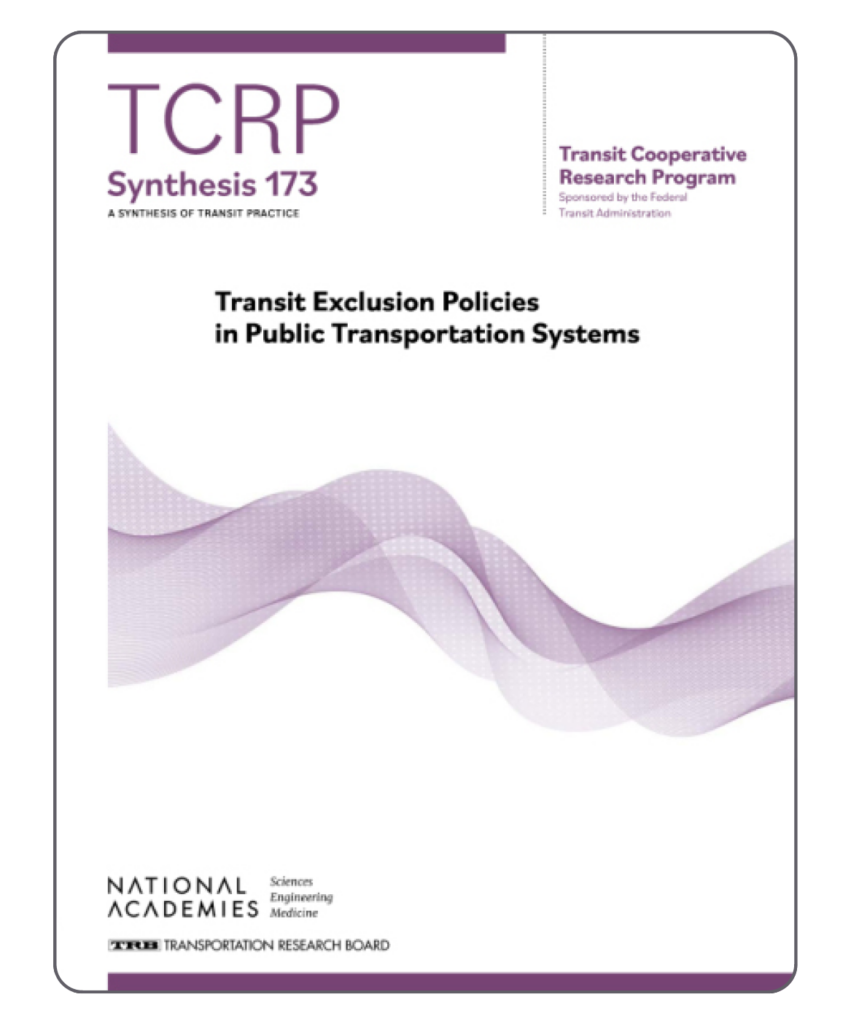
Transit Exclusion Policies in Public Transportation Systems
This report documents the practice of the use of transportation exclusion policies in North American transit systems. It is designed to help transit agencies in understanding the usefulness of such policies, as well as understanding the methods for creating, amending, or supplementing exclusion policies to maximize their effectiveness in reducing crime and disorder within their respective transit systems.
Transit Cooperative Research Program
January 2024
TOPICS: Policy and Planning , Safety and Health , Training
Contributor(s): National Academies of Sciences, Engineering, and Medicine; Transportation Research Board; Transit Cooperative Research Program; Patricia Bye; Deborah Matherly
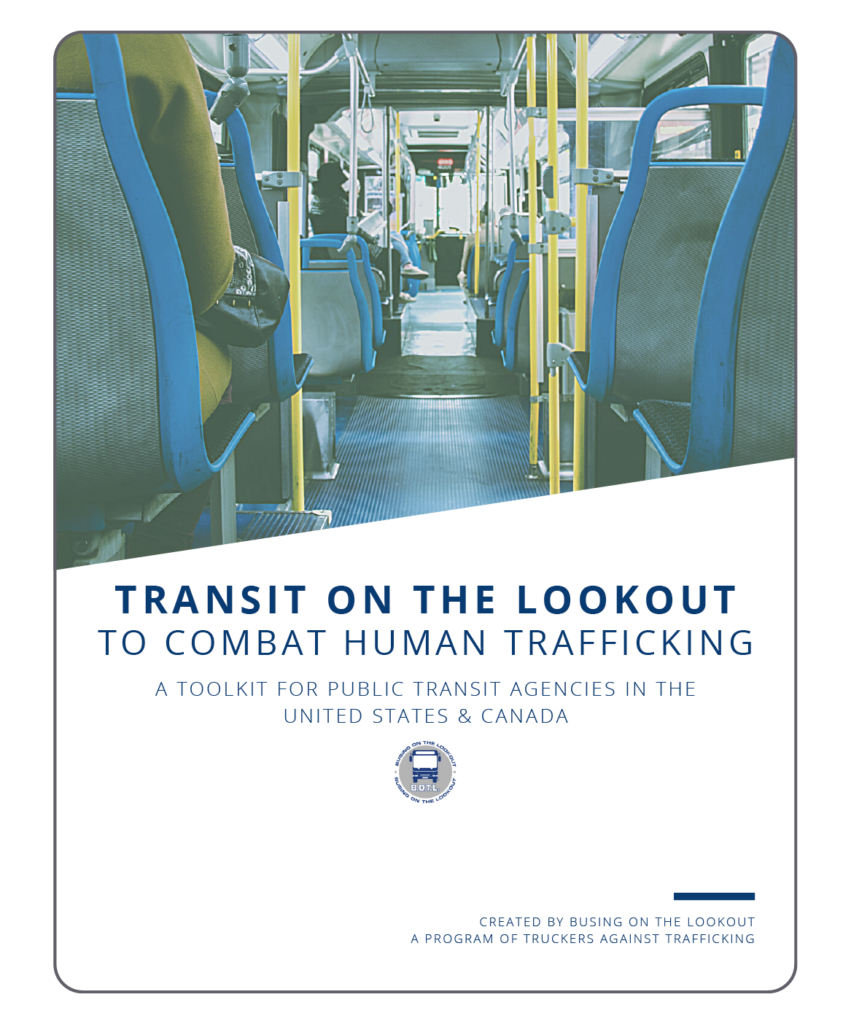
Human Trafficking: Awareness to Action
This webinar reviews the anti-trafficking resources available to transit agencies, shares success stories from the transit industry, and highlights a newly developed template for implementing human trafficking response protocols, which are vital to effective anti-trafficking initiatives. The accompanying toolkit guides transit agencies on steps they can take to help combat human trafficking, including how they can partner with Busing on the Lookout (BOTL) to implement anti-human trafficking training and policies in their operations.
Presenters:
- Jodi Godrey, Center For Urban Transportation Research
- Lexi Higgins, Busing on the Lookout (BOTL) at Truckers Against Trafficking
American Public Transportation Association
January 2024
TOPICS: Safety and Health
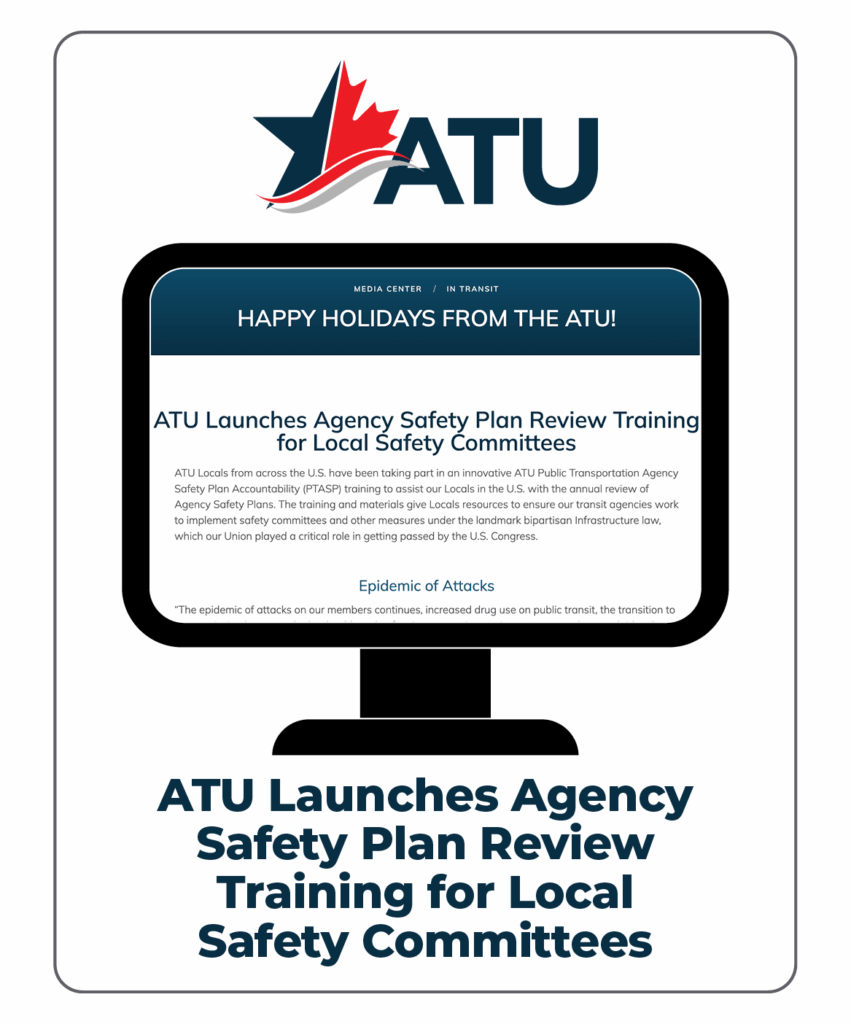
ATU Launches Agency Safety Plan Review Training for Local Safety Committees
ATU Locals from across the U.S. have been taking part in an innovative ATU Public Transportation Agency Safety Plan Accountability (PTASP) training. The training and materials give locals resources to ensure transit agencies work to implement safety committees and other measures under the bipartisan Infrastructure law.
ATU International
December 2023
TOPICS: Labor-Management Partnerships , Safety and Health , Training
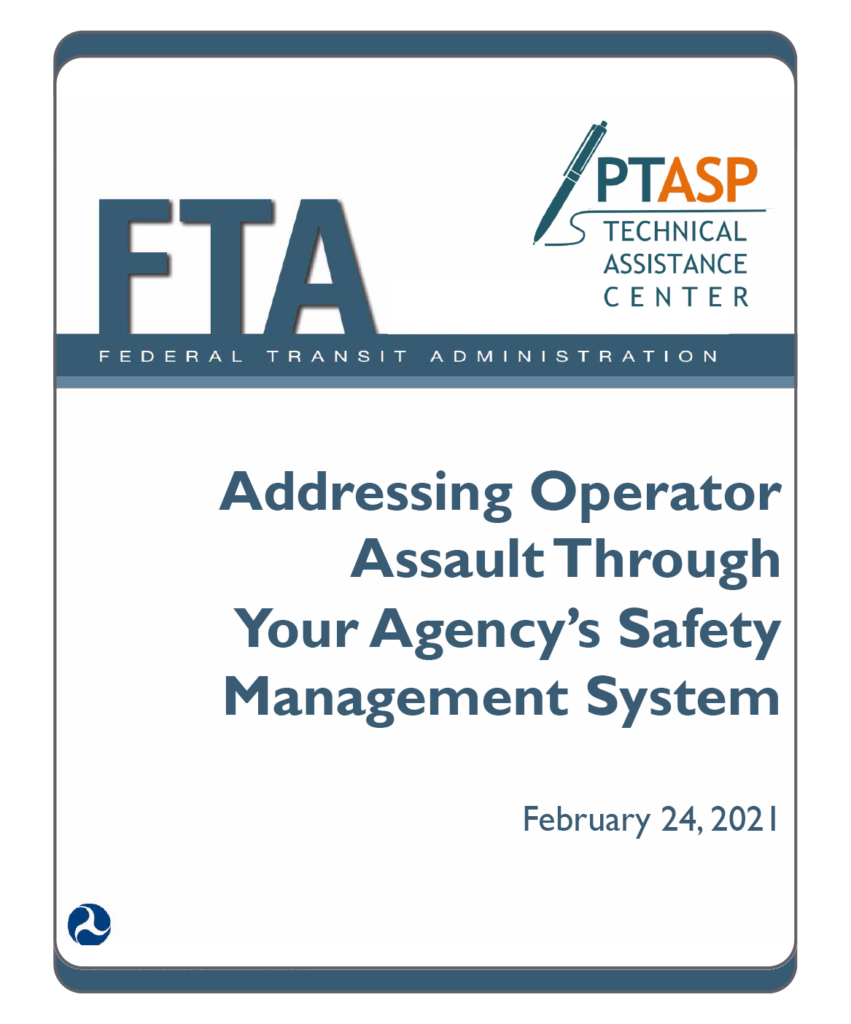
Using Your Safety Management System (SMS) to Protect Transit Workers from Assaults
FTA is working with transit agencies to address the ongoing risk of assaults on transit workers using Safety Management System principles and methods, which FTA adopted as the basis of its Public Transportation Safety Program and Public Transportation Agency Safety Plans (PTASP) regulation.
FTA has developed technical assistance resources to help transit agencies conduct safety risk assessments related to assaults on transit workers and develop safety risk mitigations.
Check out FTA’s full page of crime prevention assistance resources.
Federal Transit Administration
December 2023
TOPICS: Policy and Planning , Safety and Health
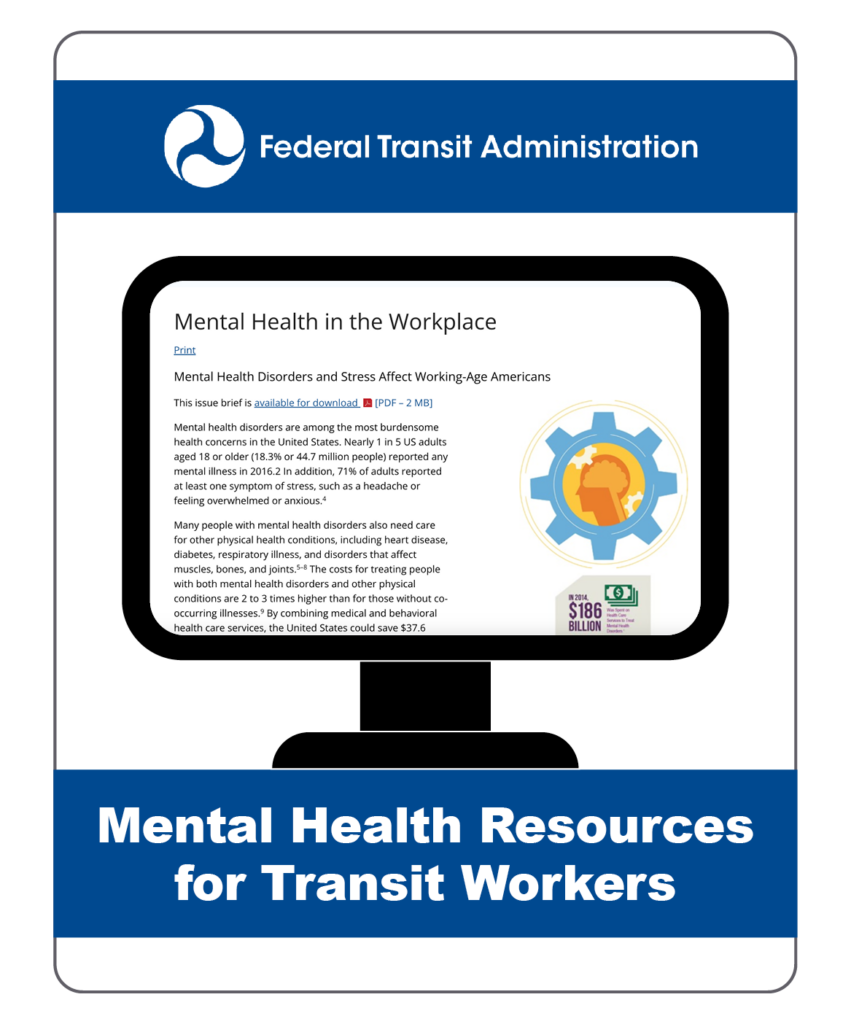
Mental Health Resources for Transit Workers
The Federal Transit Administration has aggregated the mental health resources to support transit industry workers during challenging times. Topics include suicide prevention, active shooter preparedness, mental health first aid, and more.
U.S. Department of Tranportation, Federal Transit Administration
December 2023
TOPICS: Safety and Health
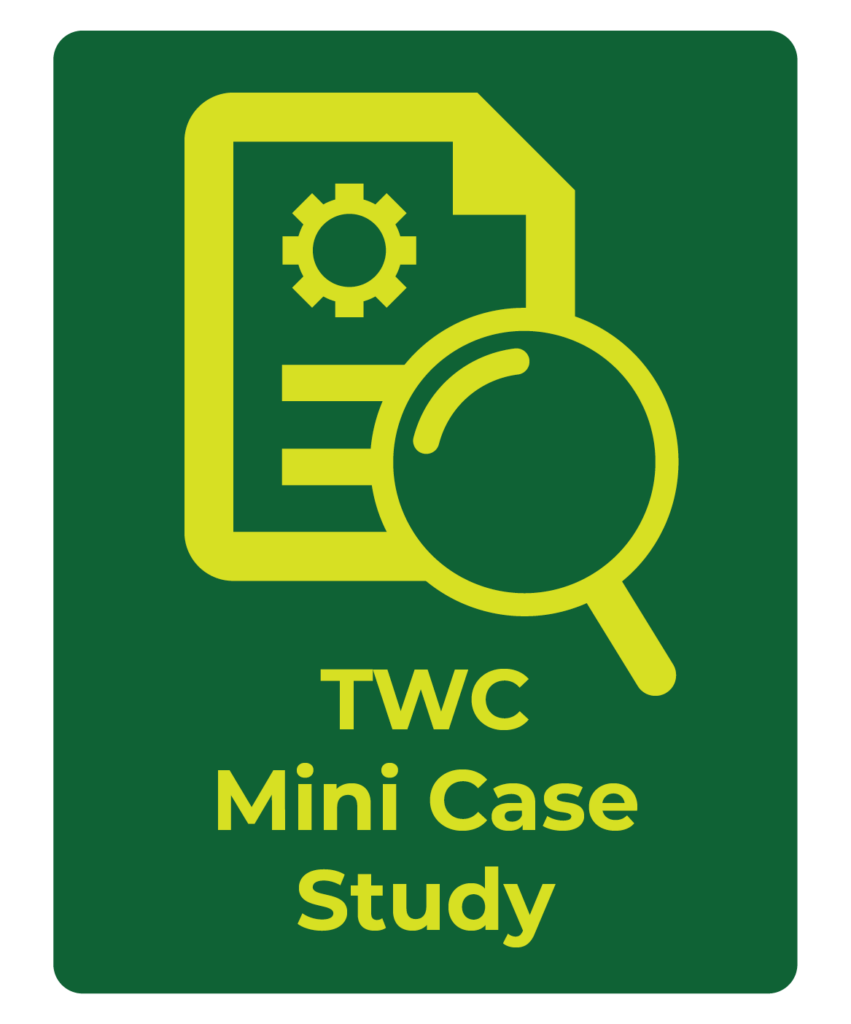
Approaches to Childcare Support in the Transit Industry: Prairie Hills Transit
Across the nation, the lack of access to affordable and accessible childcare is often a major employment barrier for workers in the transit industry. TWC hosted a pivotal discussion on this issue in the webinar, “Approaches to Childcare Support in the Transit Industry”.
Check out the presentation from Barb Cline, Executive Director of Prairie Hills Transit (Spearfish, South Dakota) who shares her approach to creating childcare solutions tailored for her transit employees. She will delve into the inception of the Prairie Hills program, their ongoing hurdles, and the successes that have marked their journey.
Transit Workforce Center
November 2023
TOPICS: Community Engagement , Policy and Planning , Retention , Workforce Shortage
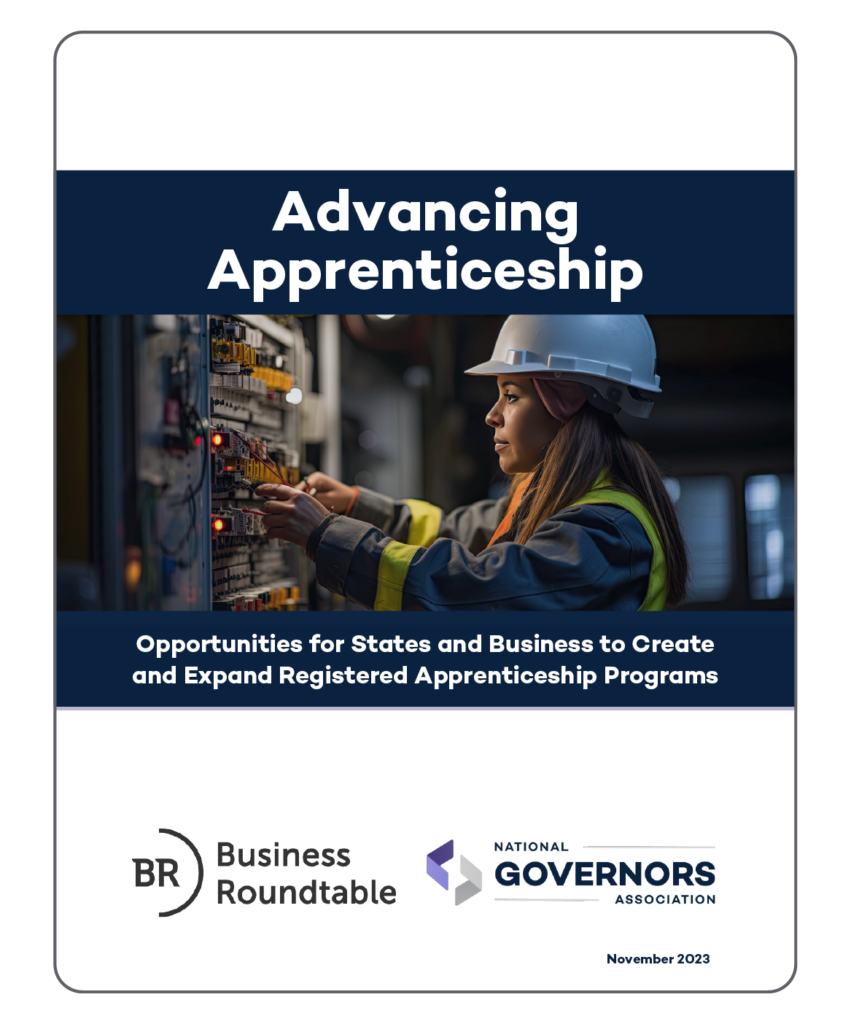
Advancing Apprenticeship: Opportunities For States And Business To Create And Expand Registered Apprenticeship Programs
This publication highlights the significance of Registered Apprenticeship Programs (RAPs) as one of several strategies and opportunities that employers and states can implement and offer to individuals as a viable path toward securing and prospering in a career. Registered Apprenticeship plays an important role in the U.S. economy and workforce ecosystem by satisfying employer talent needs while providing training and employment pathways for individuals in family-sustaining, in-demand careers. A registered apprenticeship is an intensive program that offers an individual paid on-the-job experience, coupled with classroom learning that together provides a jobseeker with the necessary skills to secure gainful employment.
National Governors Association
November 2023
TOPICS: Apprenticeship , Career Pathways , Policy and Planning
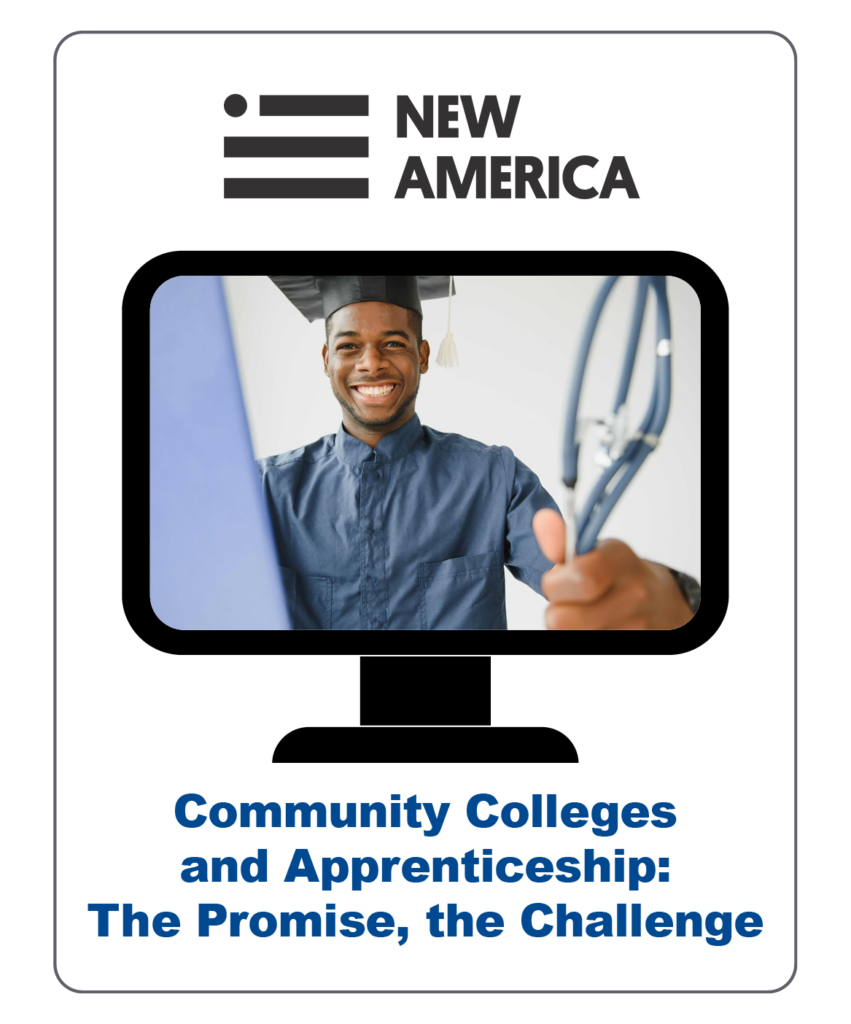
Community Colleges and Apprenticeship: The Promise, the Challenge
To better understand the challenges and opportunities facing community colleges that want to expand apprenticeship opportunities to their students, New America conducted a year-long study. They spoke to apprenticeship, workforce development, and community college leaders about the community colleges role in expanding apprenticeship.
New America Center on Education and Education Policy
November 2023
TOPICS: Apprenticeship , Career Pathways , Policy and Planning
Based on these conversations, we chose case studies and conducted in-depth interviews with leaders from the Community College System of New Hampshire’s ApprenticeshipNH, Arapahoe in Colorado, San Jacinto in Texas, and Howard Community College in Maryland’s programs in IT and cybersecurity, and Coastal Alabama Community College’s nursing apprenticeship.

Critical Conversations: The Public Transport Frontline Worker Crisis
Public transportation agencies across the country are facing challenges in attracting, recruiting, and retaining frontline employees. Critical Conversations provides insights from youth on transit’s frontline workforce crisis – bus and train operators, and entry-level mechanics. Researchers conducted a national survey targeting respondents under the age of 30, compiled agency-specific human resources information, and held focus groups asking participants to share their experiences and insights about challenges, lessons learned, and opportunities regarding the workforce crisis.
introducing youth to American infrastructure
November 2023
Contributors: Dr. Jamaal Schoby, Dr. Beverly Scott
The Barr Foundation provided support for the research element of this important youth empowerment and “people-readiness” initiative.
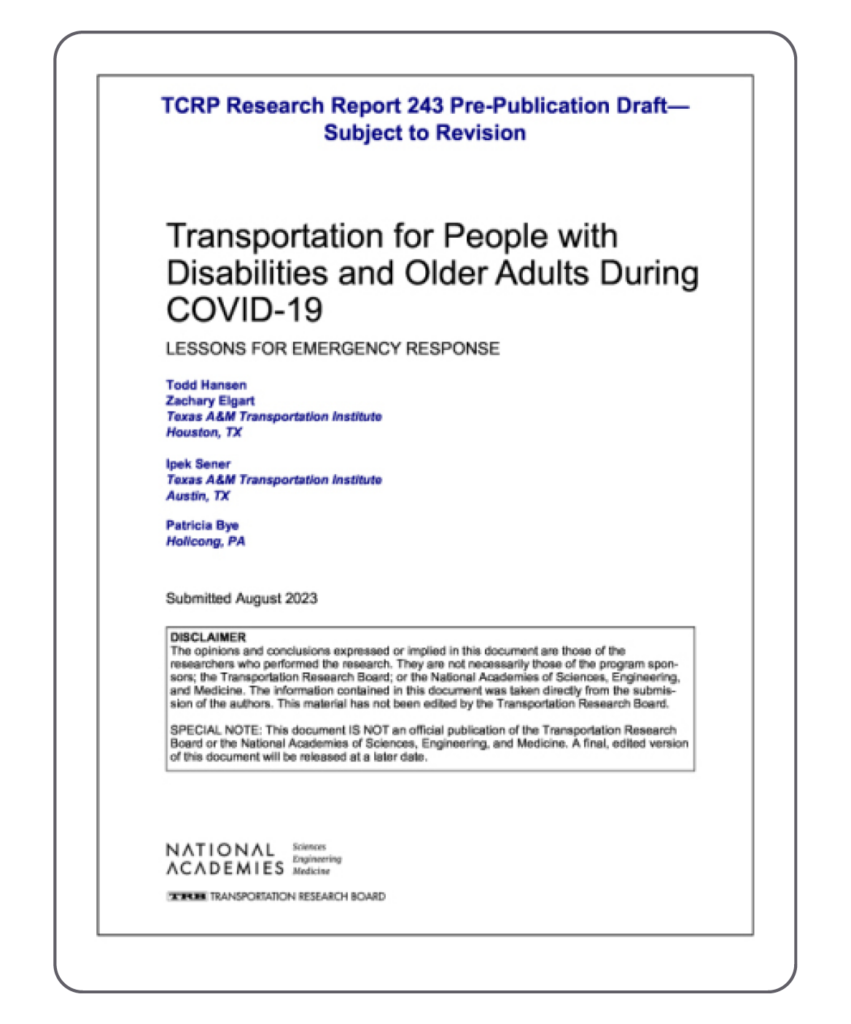
Transportation for People with Disabilities and Older Adults During COVID-19: Lessons for Emergency Response
This pre-publication report aims to provide transportation organizations (including transit agencies, specialized transportation providers, and other local government agencies and stakeholders) with helpful information and strategies on providing service for persons with disabilities and older adults in emergency situations.
Transportation Cooperative Research Program
October 2023
TOPICS: Community Engagement , Policy and Planning , Safety and Health
Contributor(s): National Academies of Sciences, Engineering, and Medicine; Transportation Research Board; Transit Cooperative Research Program; Todd Hansen; Zachary Elgart; Ipek Sener; Patricia Bye
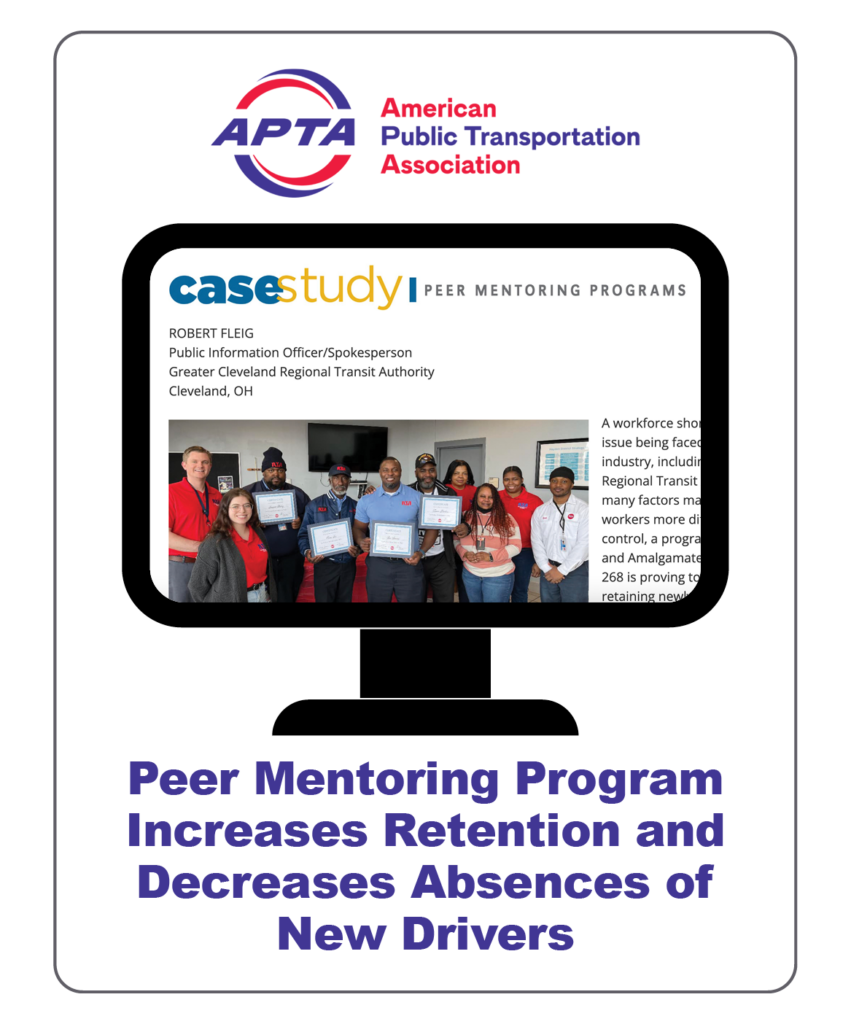
Peer Mentoring Program Increases Retention and Decreases Absences of New Drivers
This case study from APTA’s Passenger Transport presents findings from the mentorship program at Greater Cleveland Regional Transit Authority (GCRTA). GCRTA and ATU local 268 launched their Positive Impact Program, a peer mentoring program that has seen impacts on retention and absenteeism within its first nine months.
American Public Transportation Association
October 2023
TOPICS: Labor-Management Partnerships , Mentorship , Retention , Workforce Shortage
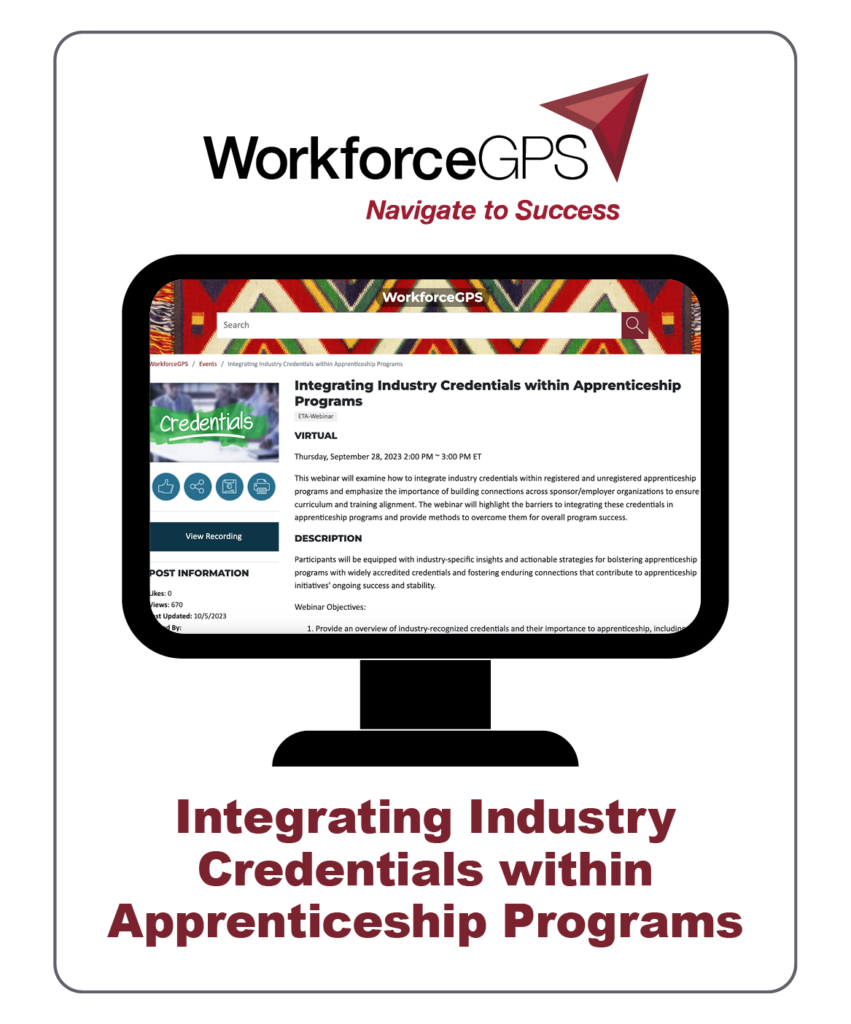
Integrating Industry Credentials within Apprenticeship Programs
This webinar examines how to integrate industry credentials within registered and unregistered apprenticeship programs and emphasizes the importance of building connections across sponsor/employer organizations to ensure curriculum and training alignment.
WorkforceGPS
September 2023
TOPICS: Apprenticeship , Career Pathways
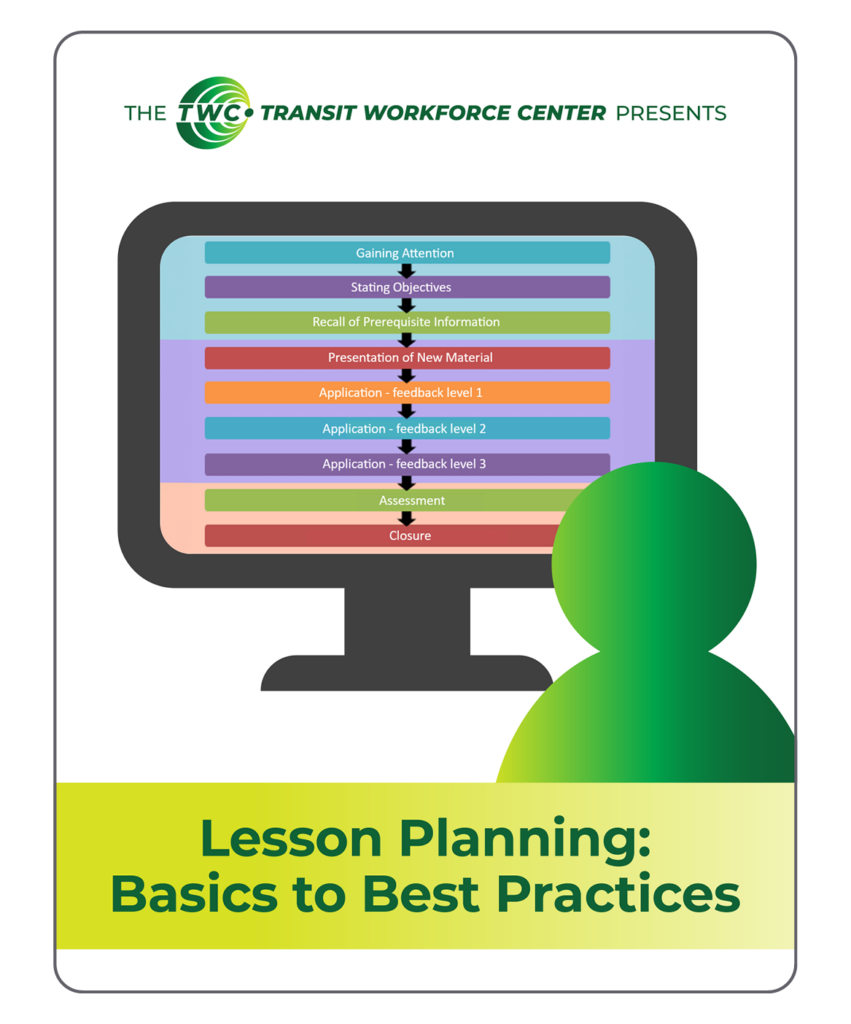
Lesson Planning Webinar: Basics to Best Practices
Have you ever been tasked with developing or delivering a class and didn’t know where to start? Do you have a class that isn’t engaging learners and you don’t know why? On September 26, 2023, TWC hosted an informative webinar on Lesson Planning basics and best practices with award winning author and advisor on all things training, Dr. Chuck Hodell. We took a high-level look at Lesson Planning for those new to training, as well as discussed how to overcome inherent challenges and best practices for transit trainers.
Transit Workforce Center
September 2023
TOPICS: Trainer and Mentor Development , Training
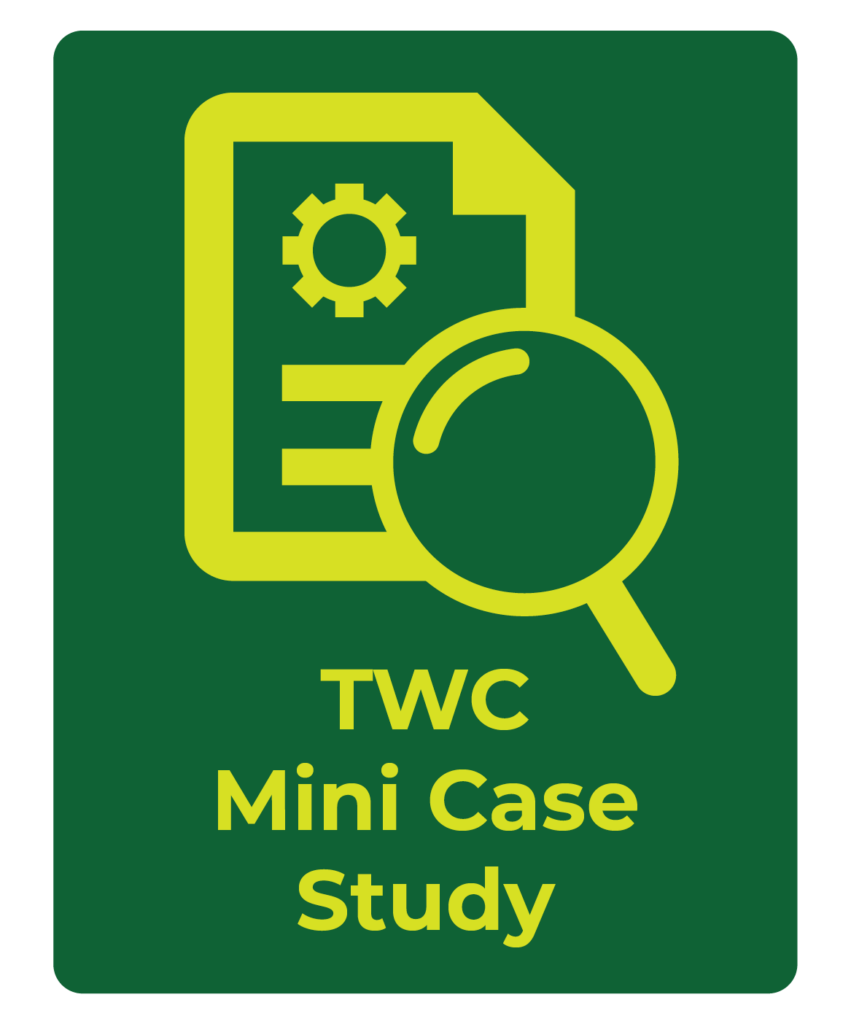
Approaches to Childcare Support in the Transit Industry
Transit Workforce Center
September 2023
- There are many ways to support the childcare needs of employees; there is no one-size-fits-all model.
- The models examined in this case study include a voucher system, an on-site center managed directly by the agency, and a discounted center managed by a contractor with supplemental referral services.
- Challenges remain, including childcare affordability and availability.
- Still, these programs can boost morale and attendance among working parents and caregivers.
At New York City’s Metropolitan Transit Authority (MTA), the first sign of a problem was attendance. Los Angeles Metro experienced a similar phenomenon of worker absences, which grew worse during the COVID-19 pandemic. At Prairie Hills Transit in South Dakota, the agency (like many employers in the community) struggled just to get workers in the first place. In community after community, public transit is suffering from low employee availability, and a key driver of the workforce shortage is clear—a lack of affordable childcare.
The good news for the public transit industry is that a variety of models already exist that support the childcare needs of frontline workers. This case study describes three such models: a voucher system, an on-site center managed directly by the agency, and a discounted center managed by a contractor with supplemental referral services. Across the spectrum of agency sizes—from a small rural agency to an agency serving one of the world’s largest cities—transit providers have opportunities to support their workers, both as employees and as parents.
Please see the summary table at the end of the case study for an overview of each of these programs.
Background: The Urgency of Childcare Needs
The United States used to have one of the highest rates of working women among Organization for Economic Cooperation and Development (OECD) countries, but in recent years, the U.S. rate has declined. As parents struggle to find stable access to childcare, they are forced to limit their workforce participation, leave employment altogether, or pay an often-unsustainable portion of their income towards a childcare program. Using data from the National Survey of Children’s Health, the Center for American Progress (CAP) estimated that in 2016 nearly two million Americans made career sacrifices due to issues with childcare.
As the United States, and in particular the transit industry, faces a difficult and ongoing labor shortage, it is important for mothers to be able to participate in the workforce if they choose. Even though women are less present in the labor force, families are becoming increasingly dependent on the maternal income. Only about 30 percent of families with children rely solely on a father’s income; women are primary or equal earners in about two-thirds of families. Women of color with children are even more likely than white women to be in the labor force, be primary breadwinners, and be in low-earning jobs (NWLC).
Despite this necessity, childcare remains a determining obstacle. An analysis of the 2016 Early Childhood Program Participation Survey (ECPP) indicated that half of American families struggle to find adequate childcare, with cost most commonly reported as a barrier. Another CAP analysis found that over half of Americans live in childcare deserts (areas with few or no options for childcare). The maternal workforce participation rate is an average of three percent lower in these deserts than in areas with adequate childcare. Hispanic/Latino families are more likely to reside in childcare deserts and more likely to report location as an obstacle to obtaining childcare. The prevalence of location as an obstacle can be further explored with these interactive childcare desert maps.
Even small steps to alleviate childcare burdens can help parents join the workforce. A study of Washington, DC’s universal, full-day preschool program found that since the program’s inception, the rate of mothers participating in the city’s workforce increased by 12 percent. Subsidies to support parents in finding childcare assistance can have positive impacts on their workforce participation as well. A study of childcare and parent labor force participation found that just a 10 percent decrease in childcare costs could lead to a 0.5-2.5 percent increase in maternal employment. A paper from the National Bureau of Economic Research indicated that if childcare costs were capped at seven percent of income, the rate of low-income mothers in full-time jobs would increase by 18 percent and the overall maternal employment would increase by 10 percent, which would add 12 million mothers to the workforce. For individual families and the overall economy, these increases are important, and they are essential to mitigating the workforce shortage in the transit industry.
Childcare Examples in Public Transportation
Transport Workers Union (TWU) Local 100 – New York City Transit Child Care Fund (CCF)
In New York City, TWU Local 100 and NYC Transit came together to create the Child Care Fund (CCF), a financial assistance program designed to support the families of Local 100 members who need help paying for childcare expenses. In 2002, Local 100 proposed a new benefit for its members in the collective bargaining agreement: funds through CCF to support parents of young children in obtaining childcare. MTA management, concerned about the effects of worker absences on its operations, agreed to the new benefit. “Workers were doing the calculus of whether it’s worth it to spend X amount on childcare versus just staying home and not working and caring for the child instead. Childcare is very expensive,” said Charles Jenkins, Director of TUF. This no-win choice weighed particularly heavy on women. Jenkins recounted how historically, transit has been a predominantly male industry with few accommodations for women, even proper bathrooms, until recently. Long-standing worker shortages in public transit have led the industry to begin thinking differently.
CCF provides financial support to parents for either a year-round childcare program or for summer camps; the employee can choose. The employee also has the discretion to choose who cares for their child—CCF covers about forty percent of the cost of childcare in a licensed facility (up to $320 weekly), and about twenty percent (up to $160 weekly) if the provider is not licensed—for example, if the caregiver is a family member. If the employee chooses the summer camp option, fifty percent is covered (up to $1,000). The benefit is offered to all employees in good standing who have completed one year of employment, until the employee’s child reaches age 12.
The program is not without challenges. It is first-come-first-served, with limited funds, although most people who seek out the benefit do receive it. Some members report they didn’t know about the fund, and even with a subsidy, childcare remains expensive. Still, CCF’s support helps. “Our members are very thankful for the benefit,” Jenkins said, and the agency and union have found that attendance is high when adequate childcare is in place.
Prairie Hills Transit (Spearfish, South Dakota)
Over a thousand miles away and in a much more rural area, the childcare landscape looks different. Prairie Hills, SD, has struggled for years with a lack of childcare providers in the community. Around 2010, Prairie Hills Transit (PHT) Executive Director Barb Cline noticed that federal funds were available for the construction of new buildings. Thinking creatively, she pursued grants and loans from the U.S. Department of Agriculture for the purpose of constructing a childcare facility within the PHT campus. “We knew this was a community problem, bigger than our own staff,” Cline reported. With only about 50 employees, PHT’s staff didn’t have enough children for a center limited to employees, so the agency opened its doors to the wider community.
Today, this licensed, on-site childcare center can accommodate up to 41 children. To handle demand, PHT is expanding to a new rented location which can enroll another 25 or so children. Because childcare has a low profit margin, no external company would take on the contract, so PHT hired its own manager for the program. Now that the building has been constructed, the program sustains itself financially. Employees of PHT receive a thirty percent discount, while other parents in the community pay full price (though some use government benefits to pay and segmented payment plans are available). Children don’t age out formally, but most enrollees are age five or younger. PHT has found that male and female employees alike take advantage of the program. Recognizing that employees won’t be able to transport their children from school to after-school childcare in the middle of a shift, PHT obtained a separate bus with car seats to provide those trips themselves.
PHT reported several challenges it encountered as the program unfolded. Licensing requirements for childcare centers have gotten stricter and PHT has had to invest time to adapt. Another challenge for the agency has been the “human versus the financial”: if a parent only wants part-time childcare, the center wants to accommodate the family’s needs, but the accommodation results in the loss of a full-time spot and thus a loss of funds. Availability of childcare remains a challenge because demand is so high, even though PHT employees receive some degree of priority; “our waiting list is 12 pages long,” Cline said. Even with a subsidy, affordability is still a question for some families. However, employee turnover is low at PHT and childcare may be part of the reason.
PHT has realized that because of the geographic dispersion of employees and the low turnover of children in the center, some employees are not able to take advantage of the center’s offerings. As the program looks to the future, PHT is looking to build a second shared-use facility to expand capacity.
LA Metro (Los Angeles, CA)
Like so many other transit agencies, Los Angeles Metro found its workforce depleted as the COVID-19 pandemic progressed. The agency recognized that a lack of childcare delayed re-entry into the workforce.
LA Metro offers three options for their employees to find support The first is, through a memorandum of understanding, a partnership with Pathways LA to provide referral services to LA Metro employees seeking childcare. Pathways LA gives parents digestible information about childcare options and assistance navigating the possibilities available. LA Metro also utilizes its employee assistance program through ComPsych Corporation Guidance Resources, which connects employees to a Work-Life Specialist. This specialist provides personalized resources custom to the needs of the individual employees seeking childcare in their area. The third support is more recently established: LA Metro has leased a space it owns, beginning June 2023, to Pathways LA for a childcare center within walking distance from Metro’s central maintenance facility and headquarters. This arrangement was established through a competitive bid process. The center is not exclusive to LA Metro employees, but employees receive a 15% discount and get priority enrollment. The center serves children up to age 5 and offers everything from an infant center to an educational curriculum for older children to special needs programming. LA Metro has hired a coordinator to oversee the relationship between Pathways LA and Metro, which has been indispensable to facilitating a smooth partnership, the agency reported.
As childcare needs have evolved, LA Metro has persevered in seeking the best options for its employees within available resources. Before the Pathways LA partnership, LA Metro had partnered with a different third-party provider; with the new partnership, largely because of inflation, prices have risen and employees that transferred from one provider to the other were impacted by the change. Prices were already steep and employees felt the increase keenly. Another challenge has been the limitations of a single facility location: the fact that the center is close to LA Metro’s headquarters and central maintenance garage reduces travel and logistics for some parents, but not all Metro employees report to those locations. For LA Metro, a multi-pronged approach has been most successful.
Conclusion
Finding adequate childcare services is an imperative step in entering or re-entering the workforce, but it’s not easy for every parent. In the face of a widespread workforce shortage, if transit agencies are able to help parents with this step, it can help rebuild and maintain their workforce. These examples provide evidence that agencies of varied sizes across the county can find a childcare supportive service program that works for them. LA Metro found that neither subsidies nor self-administration of a childcare center was realistic for them, but partnerships with an established and trusted provider could further their employees’ access to childcare resources. On the other hand, Prairie Hills Transit, facing a childcare desert in their community, established their own center. Meanwhile, MTA and TWU Local found that cost, not availability, was the primary limiting factor for their employees, and they were able to address that challenge for many families. Other transit agencies can take similar steps, utilize their own unique resources, and learn from the challenges faced in these examples to facilitate access to childcare services for their employees, which in turn will contribute to a stronger and more reliable workforce.
Summary of MTA/TWU Local 100, Prairie Hills Transit, and LA Metro Childcare Programs
For more information on these programs, contact:
- Barb Cline, Prairie Hills Transit: bkcline@prairiehillstransit.com
- Jodi Stewart, LA Metro: stewartj@metro.net
- Shayna Gleason, TWC: sgleason@transportcenter.org
Contributing Authors: Shayna Gleason, Michaela Boneva
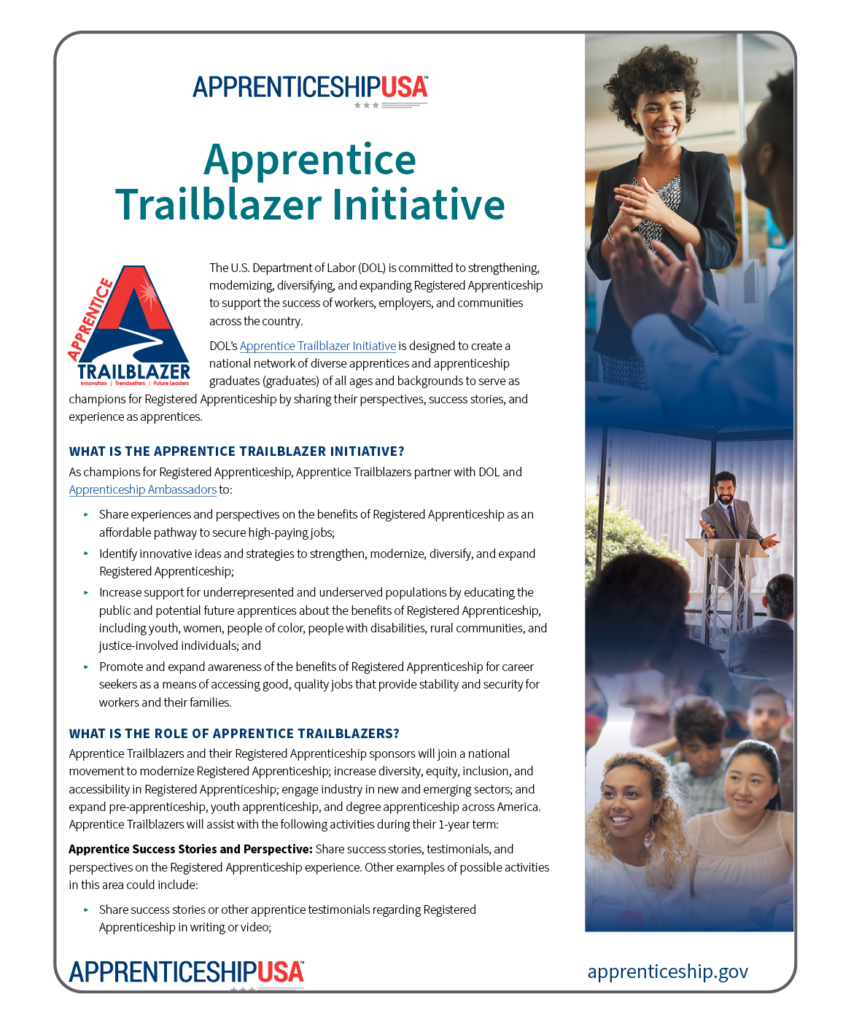
Apprentice Trailblazer Initiative
The Apprentice Trailblazer Initiative is designed to create a national network of apprentices and apprenticeship graduates to feature their stories and hear their perspectives, show how Registered Apprenticeships increase opportunities, and bring awareness to other career seekers who may be interested in becoming apprentices.
Department of Labor; ApprenticeshipUSA
TOPICS: Apprenticeship , Career Pathways , Community Engagement , Mentorship
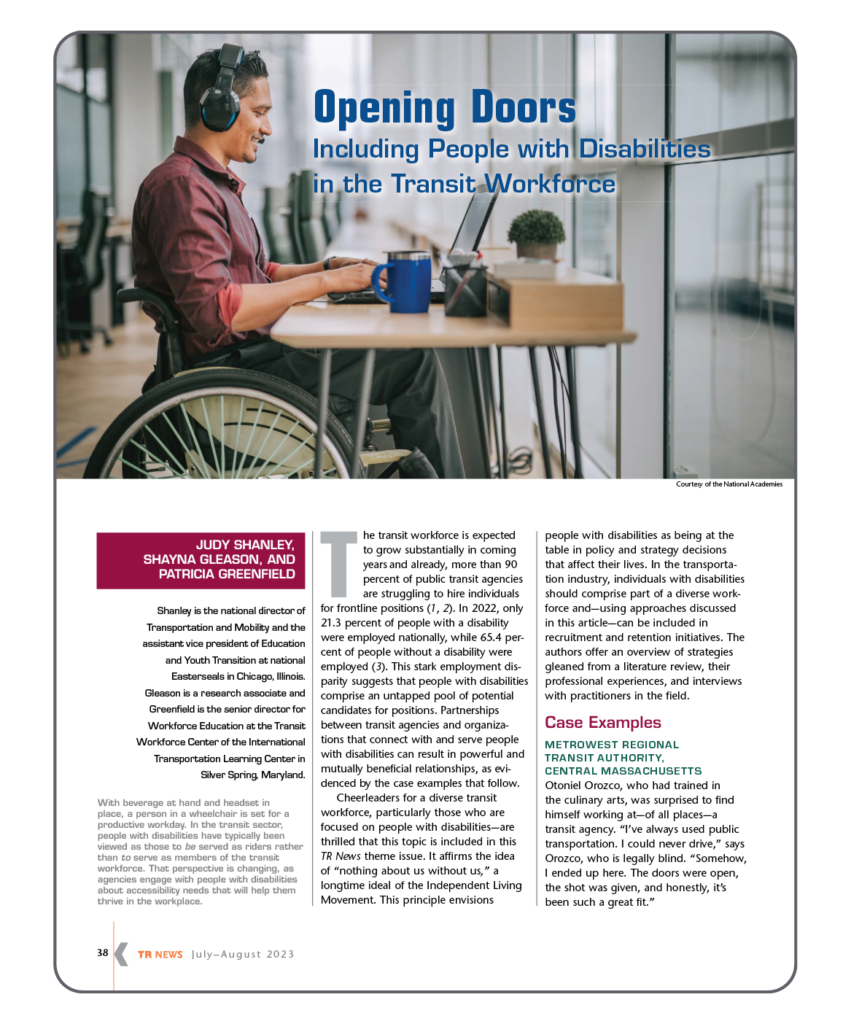
Opening Doors: Including People with Disabilities in the Transit Workforce
TR News
August 2023
In the transportation industry, individuals with disabilities should be included in recruitment and retention initiatives. “Opening Doors: Including People with Disabilities in the Transit Workforce” offers an overview of strategies and is one of the feature articles in the July-August 2023 edition (Issue 346) of TR News, TRB’s magazine.
Authors: Judy Shanley (National Center for Mobility Management), Shayna Gleason (International Transportation Learning Center), and Patricia Greenfield (International Transportation Learning Center)

Flagstaff Mountain Line Economic Contribution Analysis (FY 2022)
This study was requested by Mountain Line and was conducted by the Economic Policy Institute (EPI) housed in the W. A. Franke College of Business at Northern Arizona University. Its purpose is to provide Flagstaff city residents and decision makers with an understanding of the local economic benefits Mountain Line provides, including jobs supported by Mountain Line.
Northern Arizona University Economic Policy Institute
August 2023
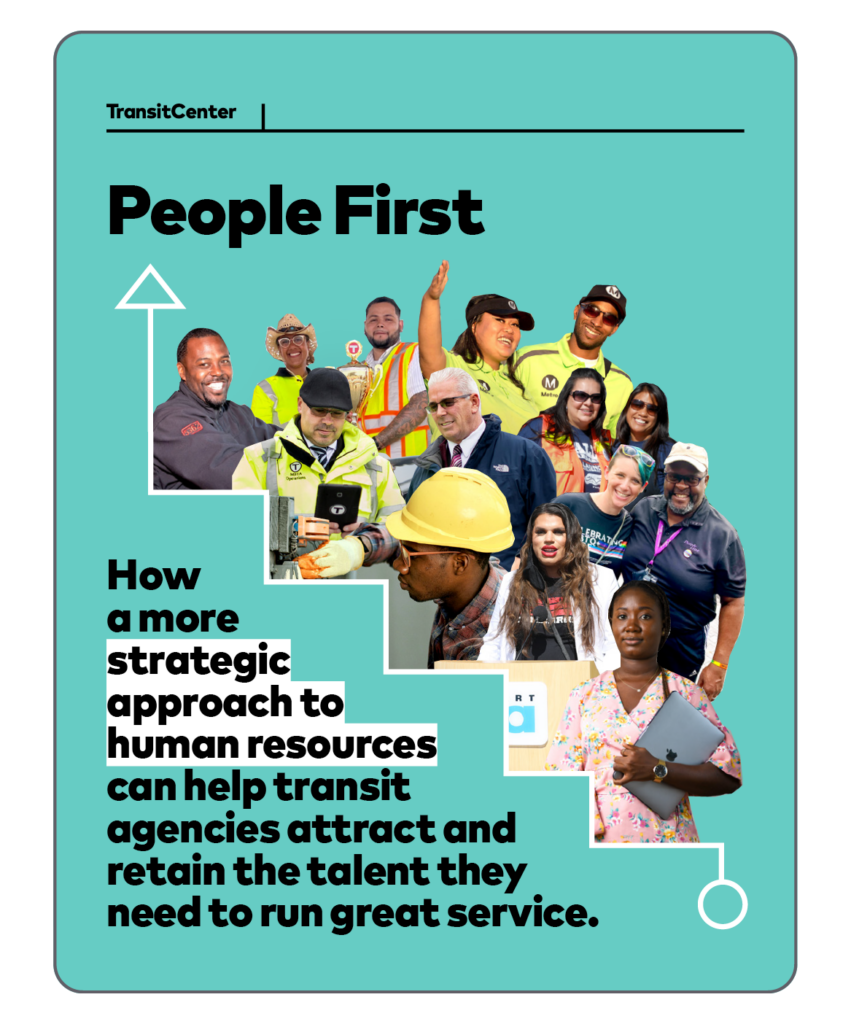
People First
This report from TransitCenter describes the current transit industry workforce shortage and provides recommendations for agency leadership, policy makers, and community advocates to help address the issue, including creating a robust human resources department, as well as strategies to address recruitment, training, and retention.
TransitCenter
July 2023
TOPICS: Workforce Shortage
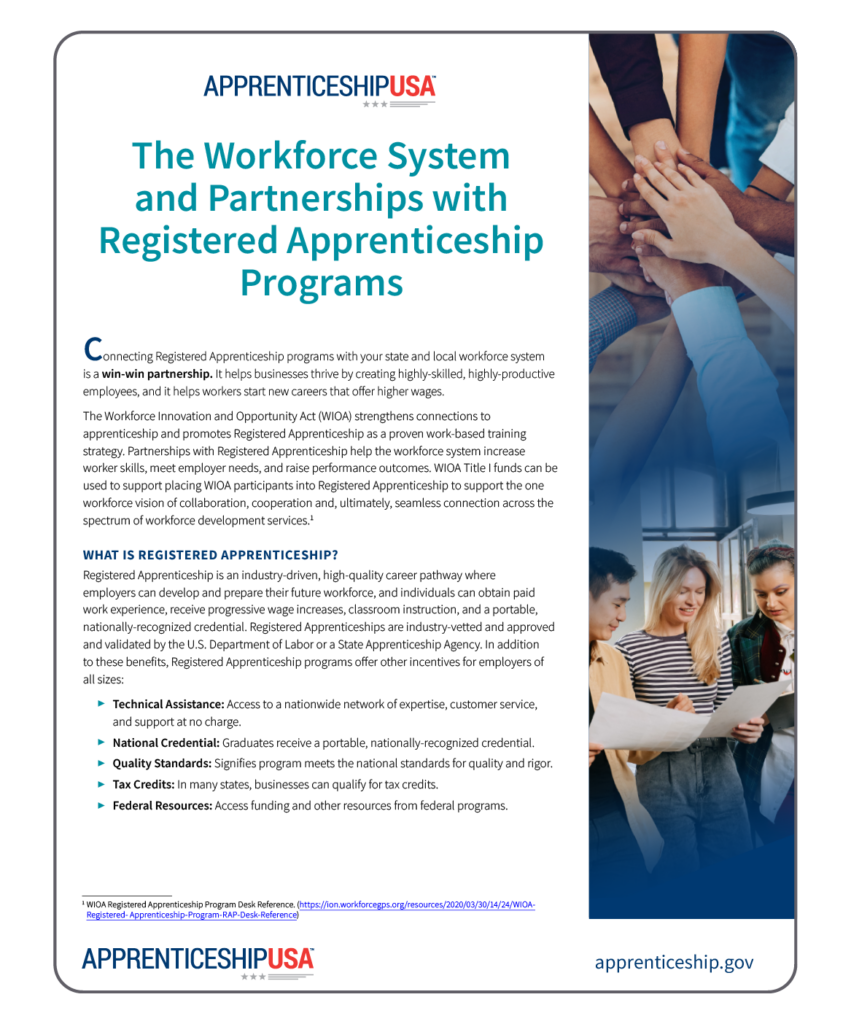
Workforce Innovation and Opportunity Act
This landing page provides information about WIOA as well as resources to help employers take advantage of WIOA funding to support apprenticeship.
Department of Labor
TOPICS: Apprenticeship , Funding Opportunities
The Workforce Innovation and Opportunity Act (WIOA) was signed into law on July 22, 2014. WIOA is designed to help job seekers access employment, education, training, and support services to succeed in the labor market and to match employers with the skilled workers they need to compete in the global economy.
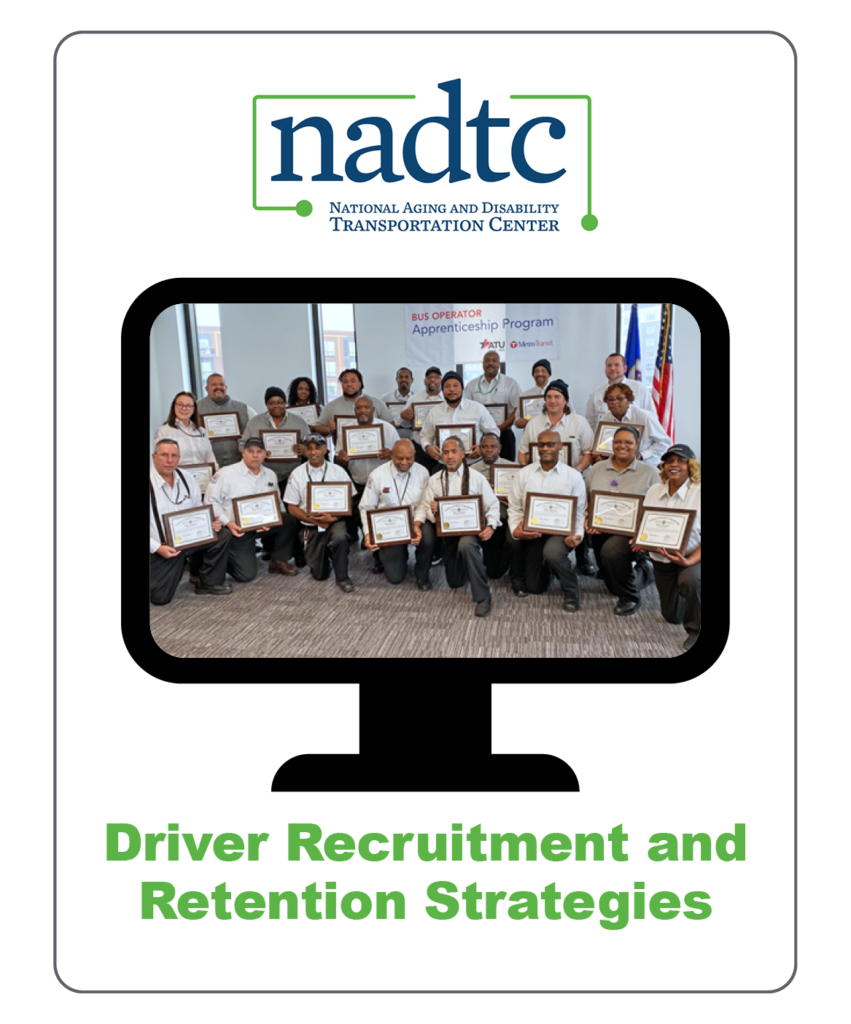
Driver Recruitment and Retention Strategies
This blog post from the National Aging and Disability Transportation Center discusses recruitment and retention strategies for transit agencies, particularly in regard to older and disabled workers in the face of industry-wide labor shortages. It includes examples of successful partnerships and effective mentoring programs.
National Aging and Disability Transportation Center
July 2023
TOPICS: Community Engagement , Hiring and Recruitment , Mentorship , Retention , Workforce Shortage
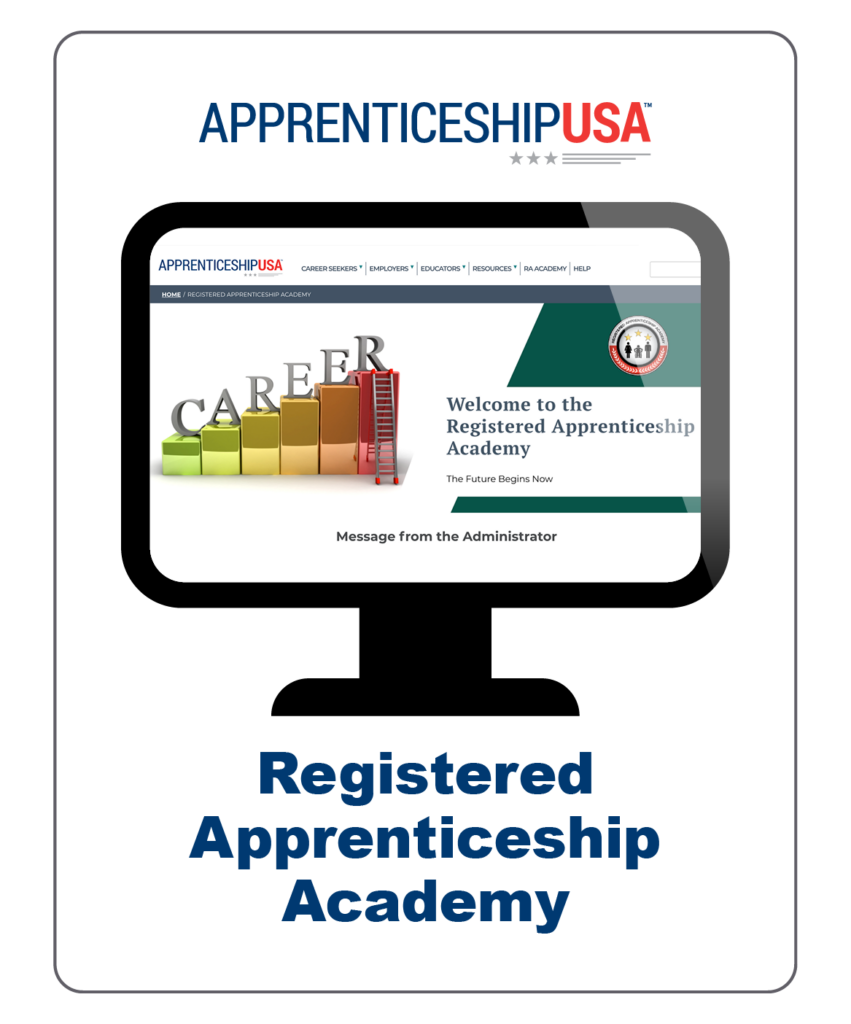
Registered Apprenticeship Academy
This page, created by the ETA’s Office of Apprenticeship, offers a wide range of courses, webinars, and other resources for program sponsors, apprentices, state apprenticeship agency partners, and other stakeholders to provide training, enhance skills, and stay up to date on best practices for registered apprenticeships.
Employment and Training Administration
TOPICS: Apprenticeship
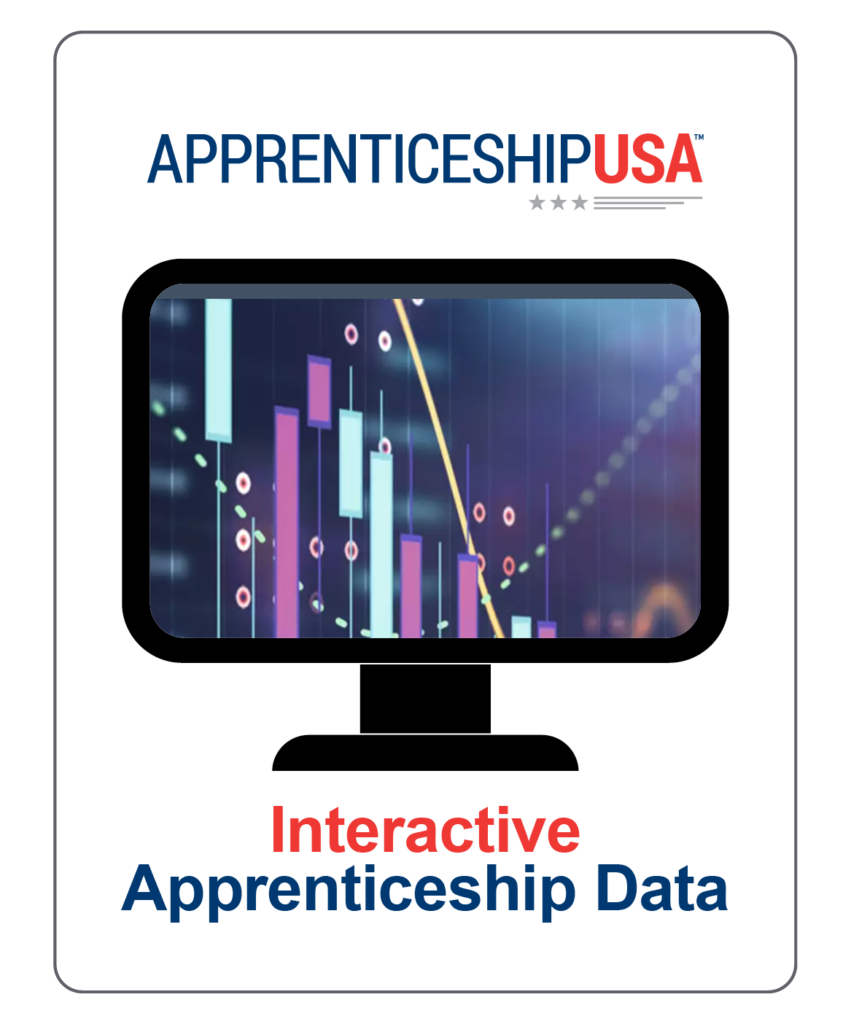
Interactive Apprenticeship Data
This dashboard provides key statistics on apprentices by fiscal year (FY) (October through September), including state and national program data entered or uploaded into the Registered Apprenticeship Partners Information Database System (RAPIDS).
Apprenticeship USA
June 2023
TOPICS: Apprenticeship
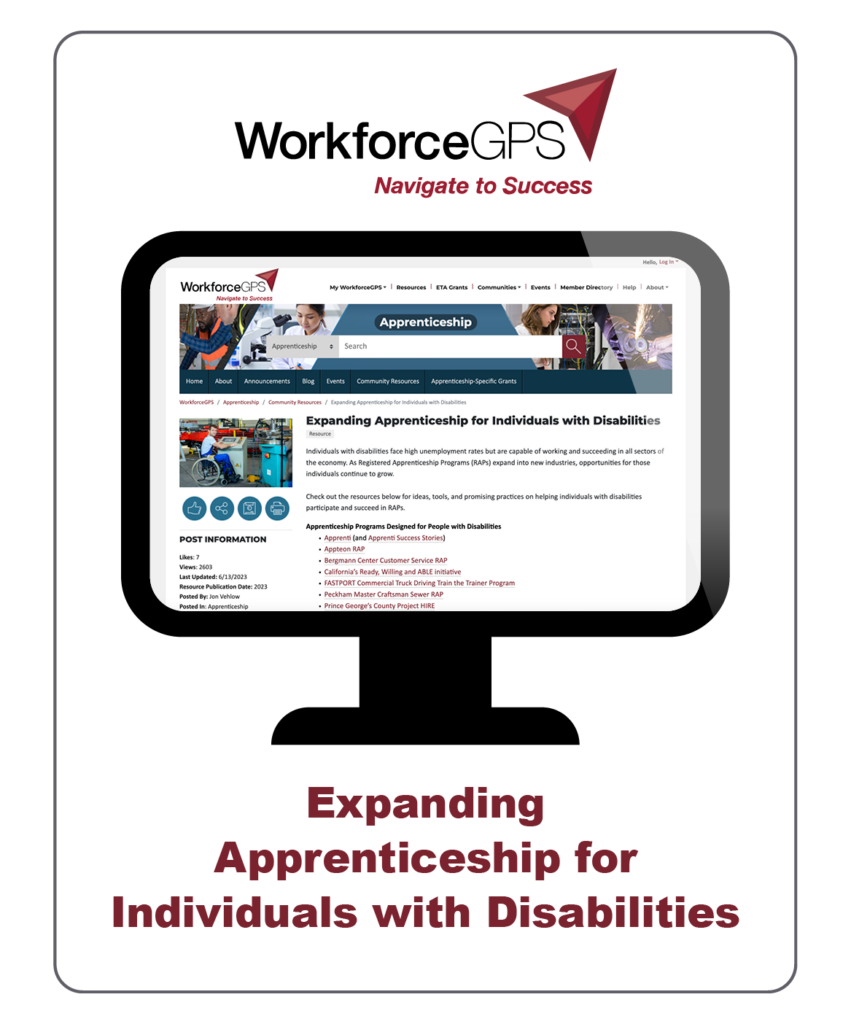
Expanding Apprenticeship for Individuals with Disabilities
This landing page features a variety of resources aimed at providing information, ideas, tools, and practices for supporting individuals with disabilities in apprenticeship programs. The resources include specific programs, toolkits and guides, outreach and background materials, and research.
WorkforceGPS
June 2023
TOPICS: Apprenticeship , Community Engagement , Mentorship
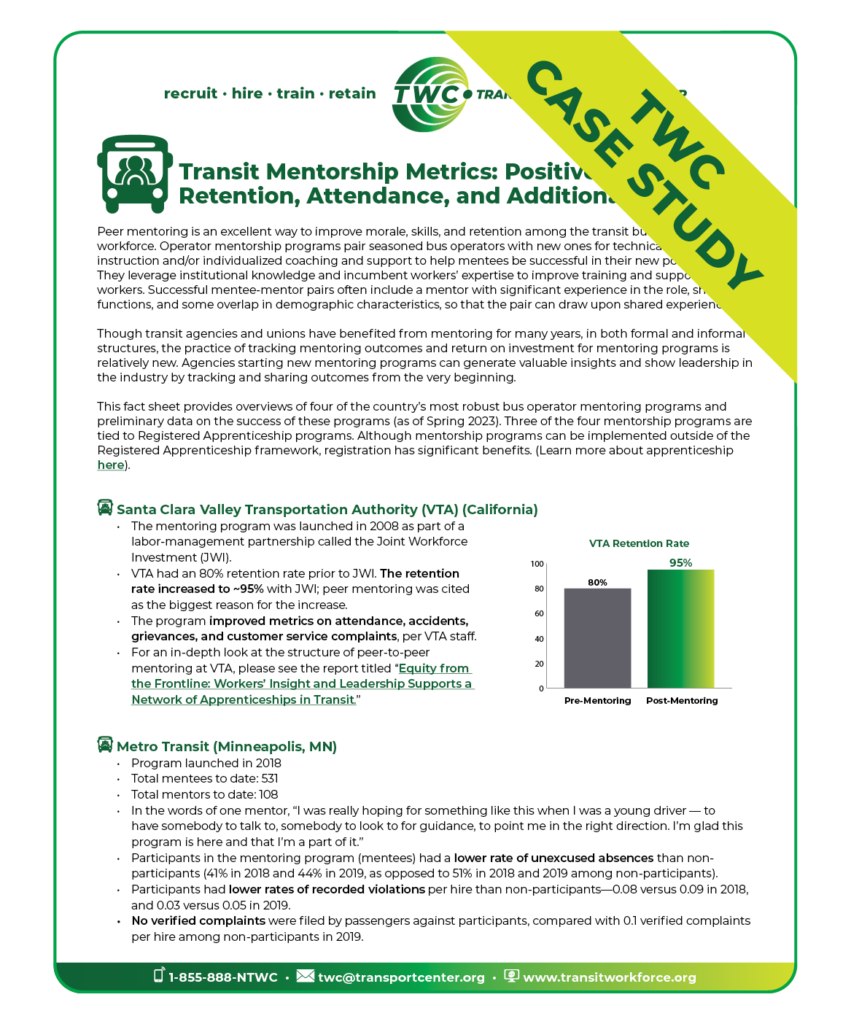
Transit Mentorship Metrics: Positive Signs for Retention, Attendance, and Additional Outcomes
Transit Workforce Center
June 2023
TOPICS: Apprenticeship , Mentorship , Policy and Planning , Retention , Training
This fact sheet provides overviews of four of the country’s most robust bus operator mentoring programs and preliminary data on the success of these programs (as of Spring 2023). Operator mentorship programs pair seasoned bus operators with new ones for technical skill instruction and/or individualized coaching and support to help mentees be successful in their new positions. They leverage institutional knowledge and incumbent workers’ expertise to improve training and support for new workers. The Mentoring Fact Sheet provides insight into the role mentorship programs can play in improving retention rates of workers, decrease unexcused absences, reduce rates of recorded violations, and lower complaints.
Contributing Authors: Shayna Gleason, Douglas Nevins, Michaela Boneva
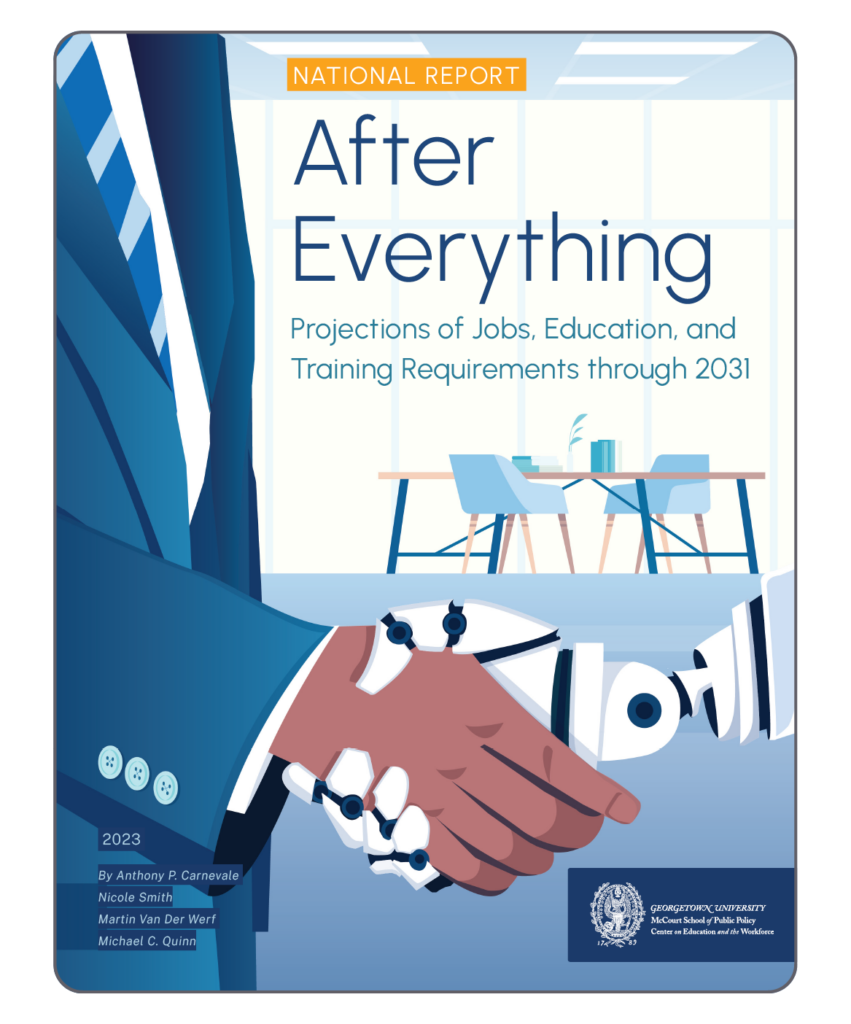
After Everything: Projections of Jobs, Education, and Training Requirements through 2031
By 2031, 72 percent of jobs in the US will require postsecondary education and/or training. Between 2021 and 2031, there will be 18.5 million job openings per year on average, and some 12.5 million of these annualized openings will require at least some college education. After Everything: Projections of Jobs, Education, and Training Requirements through 2031 includes a national overview of job projections and their educational requirements across industries, occupational clusters, and detailed occupational groups. These latest projections demonstrate the central role postsecondary education plays in preparing the workforce of the future.
Georgetown University Center on Education and the Workforce
June 2023
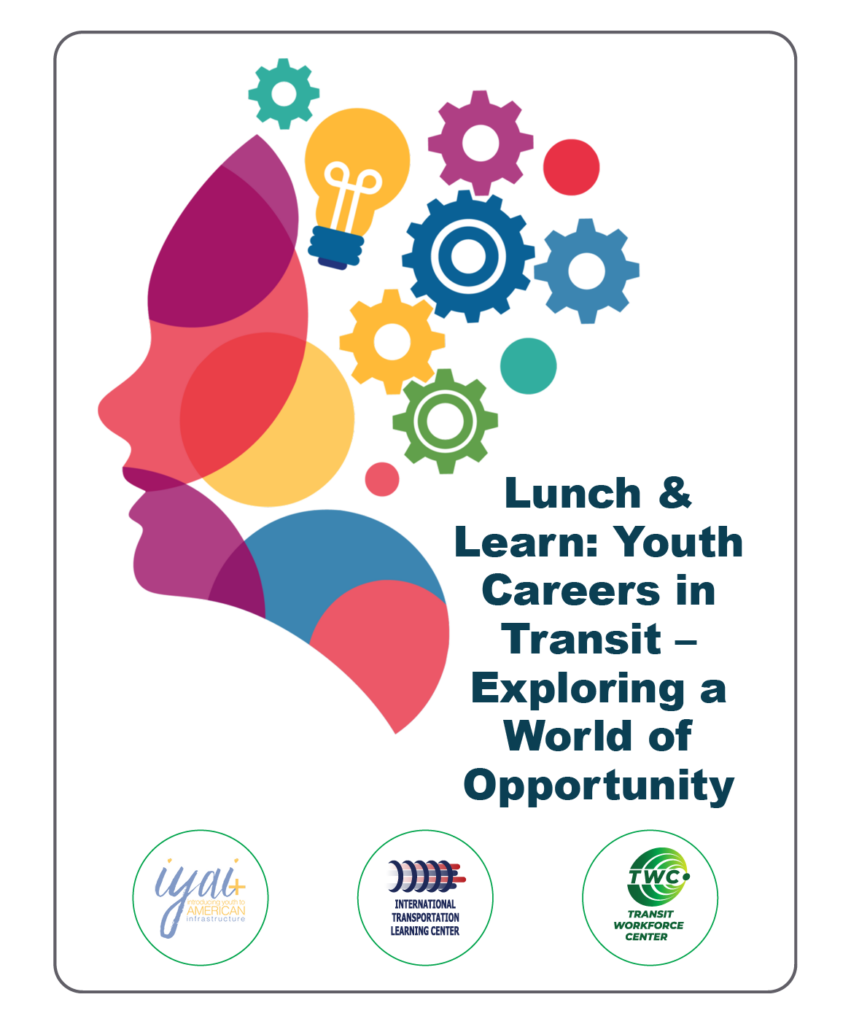
Lunch & Learn: Youth Careers in Transit – Exploring a World of Opportunity
This is Part 4 of Iyai’s 6-part 2023 Transportation/Mobility Career Awareness Lunch and Learn series. This webinar is co-sponsored with the International Transportation Learning Center / Transit Workforce Center. This webinar features presenters at various stages of their transit careers discussing their work and their own career pathways, engaging in an interactive discussion with the audience.
introducing youth to American infrastructure; International Transportation Learning Center/Transit Workforce Center
May 2023
TOPICS: Apprenticeship , Career Pathways , Community Engagement , Mentorship
Program: Iyai’s Dr. Beverly Scott and TWC’s Shayna Gleason present an overview of the program series and career landscape, followed by participants talking about their work and careers. Speakers include:
- Marvin Alfred, President, Amalgamated Transit Union (ATU) Local 113 (Toronto);
- Kyisha Bond, mechanic apprentice, IndyGo (Indianapolis),
- Inez Evans, President and CEO, IndyGo (Indianapolis);
- Andrew Falotico, Health and Safety Representative, ATU Local 113 (Toronto);
- Desiree Patrice, Deputy Chief of Capital Transformation, MBTA (Boston).
After the presentations, Karen Philbrick from the Mineta Transportation Institute facilitates a conversation between the audience and presenters.
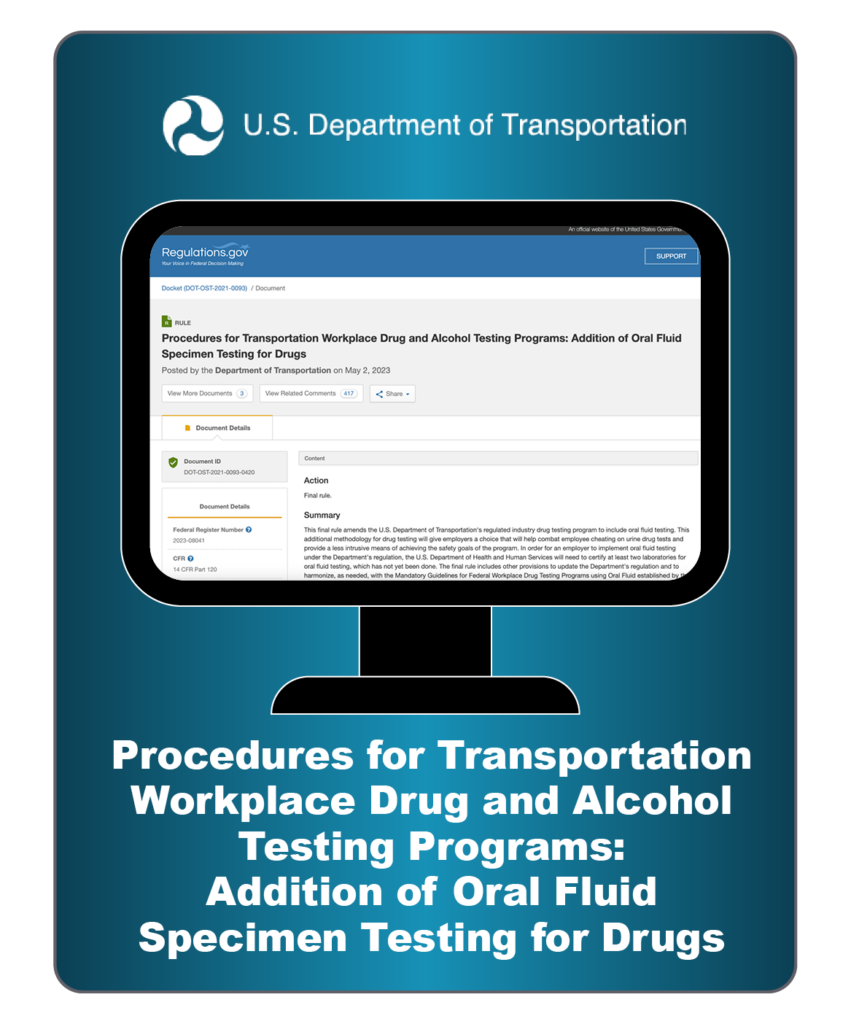
Procedures for Transportation Workplace Drug and Alcohol Testing Programs: Addition of Oral Fluid Specimen Testing for Drugs
This rule amends the U.S. Department of Transportation’s regulated industry drug testing program to include oral fluid testing. This additional methodology for drug testing will give employers a choice that will help combat employee cheating on urine drug tests and provide a less intrusive means of achieving the safety goals of the program.
Department of Transportation
May 2023
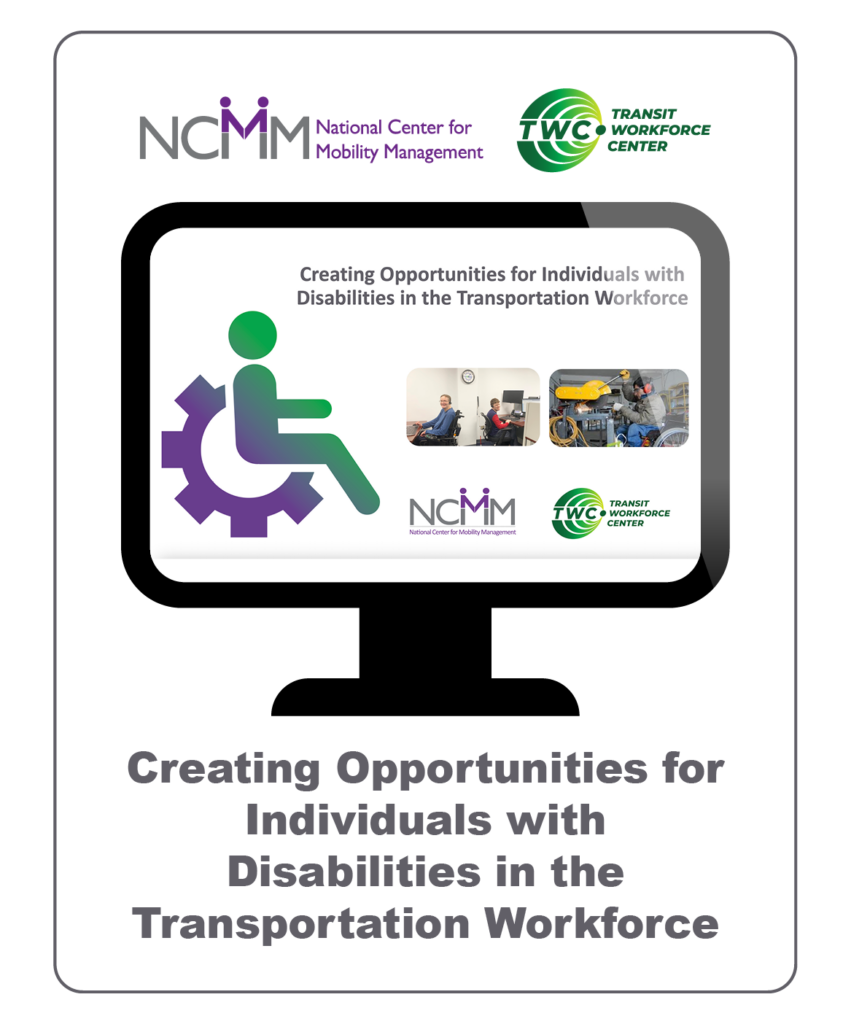
Creating Opportunities for Individuals with Disabilities in the Transportation Workforce
When transportation professionals are equipped with knowledge and skills about disability topics, they can help create welcoming and engaging employment settings for individuals with disabilities. This new NCMM/TWC learning module offers hiring professionals strategies to recruit and retain individuals with disabilities in the transportation workforce.
National Center for Mobility Management; Transit Workforce Center
May 2023
TOPICS: Community Engagement , Hiring and Recruitment , Retention
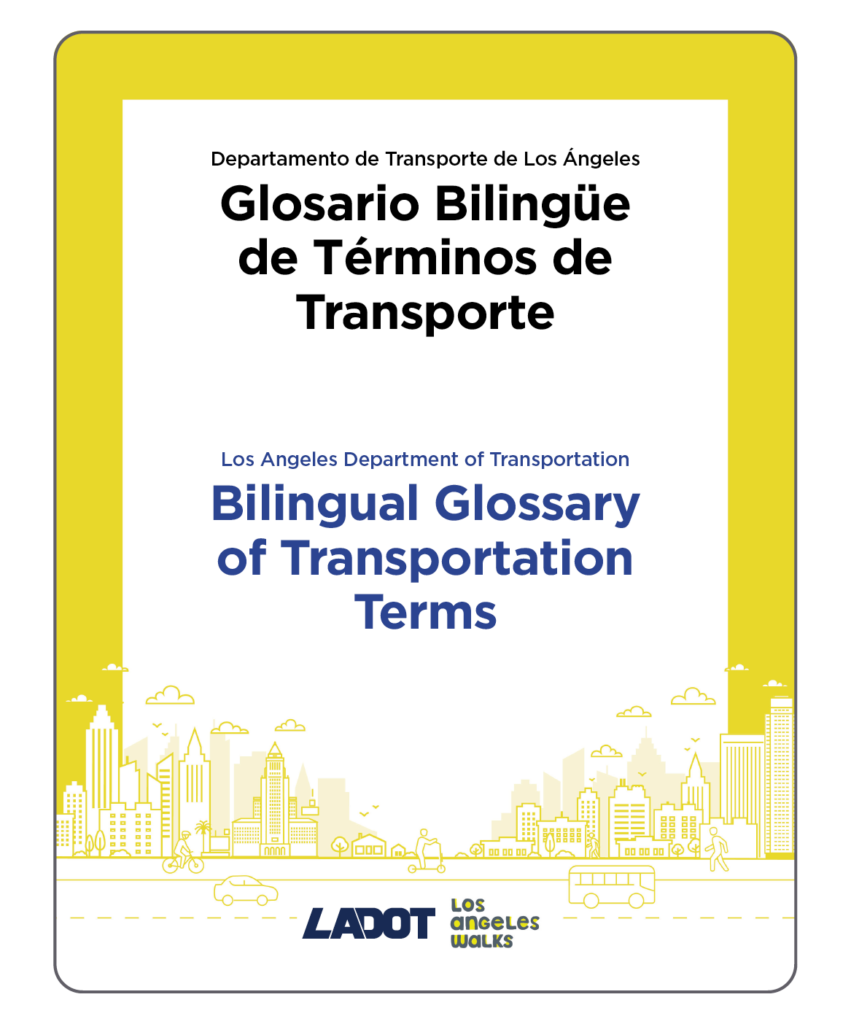
LADOT Bilingual Glossary of Transportation Terms
Los Angeles Department of Transportation
May 2023
TOPICS: Community Engagement , Hiring and Recruitment , Training
In 2020-2022, LADOT collaborated with LA Walks, community members, transportation and planning practitioners, advocates and others to develop LADOT’s first Spanish glossary. The project includes over 100 transportation planning and community engagement terms to improve and standardize LADOT’s Spanish language communication, as well as empower Spanish speaking communities to advocate for transportation improvements.
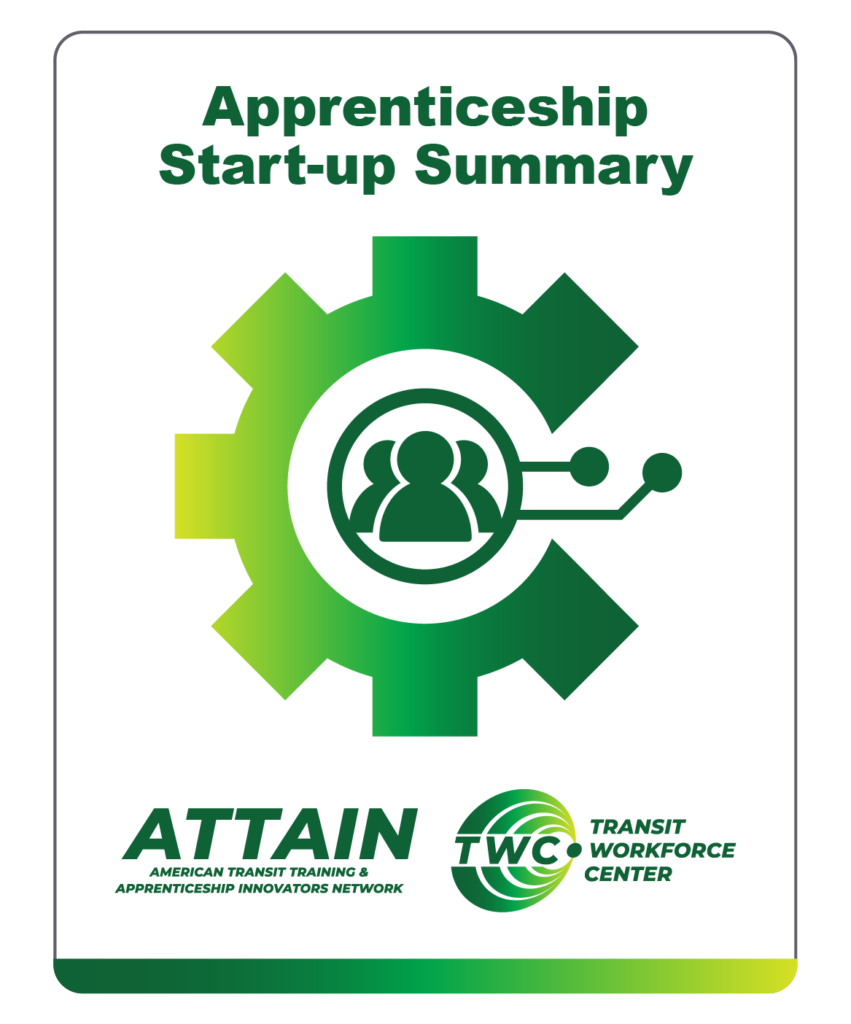
Apprenticeship Start-up Summary
These summaries outline the steps to tailor an effective Registered Apprenticeship (RA) program. These steps can be completed in order or, in some cases, concurrently. Apprenticeship programs are customizable to meet the employers’ skill requirements.
ProgressWorx
April 2023
TOPICS: Apprenticeship , Career Pathways , Labor-Management Partnerships , Mentorship , Training
If the workforce for the occupation to be registered as an apprenticeship is represented by a labor union, the employer and union would register the program as an Individual Joint program. If the workforce is not represented, the program would be registered as an Individual Non-Joint program by the employer.
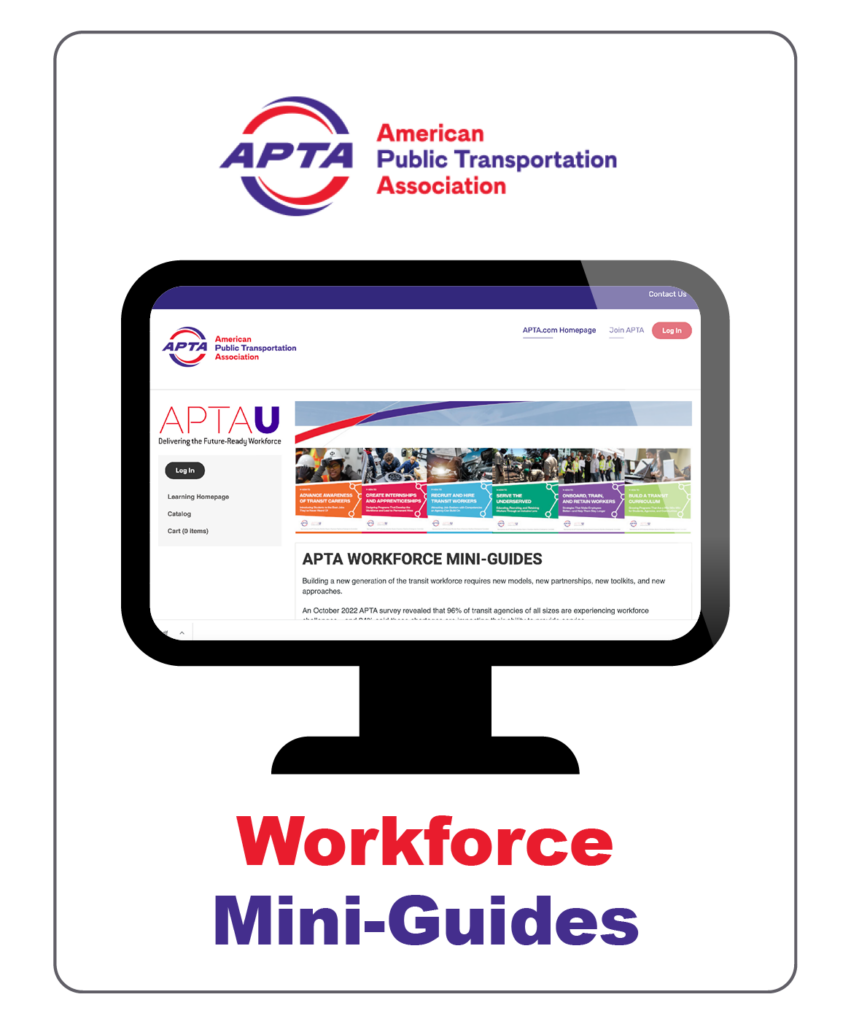
Workforce Mini-Guides
These six workforce development mini-guides are designed to help develop and implement successful strategies to address the critical workforce shortages seen across the public transportation industry. They cover these topics: advancing awareness of transit careers; creating internships and apprenticeships; recruiting and hiring transit workers; serving the underserved in the workforce; onboarding, training, and retaining workers; and building a transit curriculum.
American Public Transportation Association
April 2023
An October 2022 survey conducted by APTA revealed that 96 percent of transit agencies of all sizes are experiencing workforce challenges, and 84 percent said these shortages are impacting their ability to provide service. APTA developed these mini-guides building on their 2021 Transit Workforce Readiness Guide and combining industry insights and stories, case studies, lessons learned, and best practices.
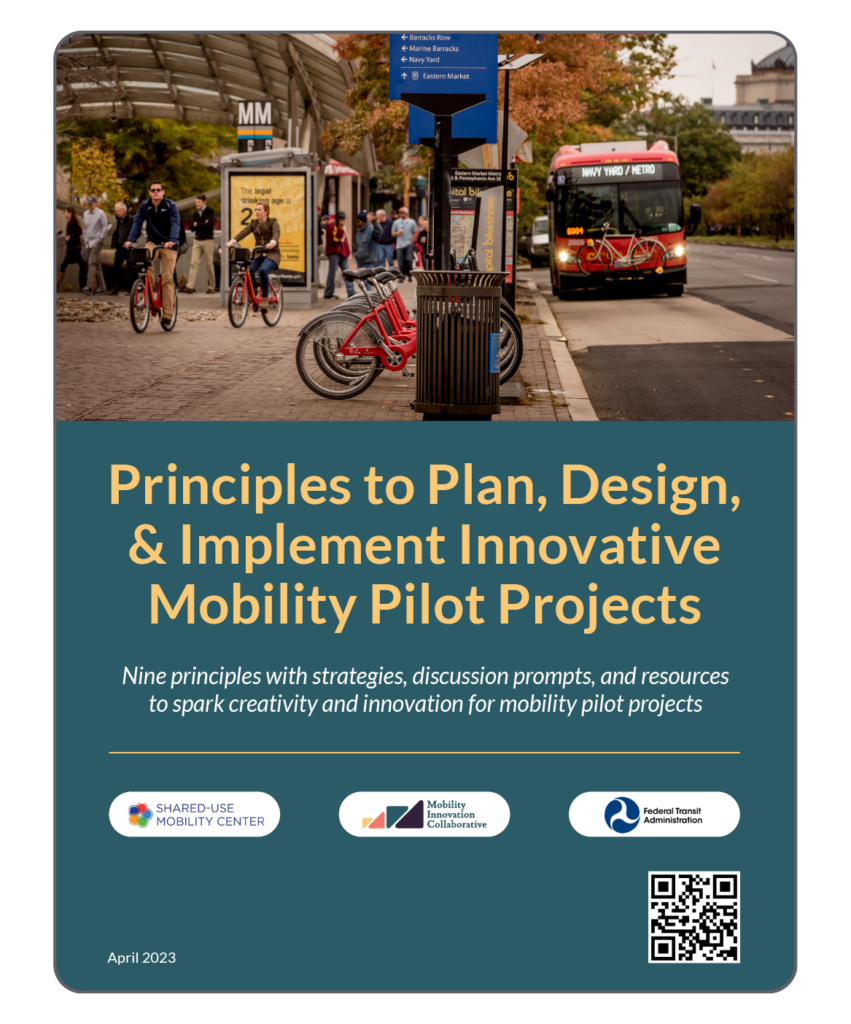
Guidebook for Mobility Innovation: Principles to Plan, Design, & Implement Innovative Mobility Projects
Shared-Use Mobility Center
April 2023
TOPICS: Policy and Planning , Training
This guidebook is designed to help mobility innovators in the transportation sector while developing and implementing a pilot project. It provides a series of principles to better plan, design, and implement innovative mobility pilot projects. These principles have supporting information about strategies to execute this principle, examples of this principle in action, resources about this principle, and questions to prompt team discussions. The guidebook includes advice and support for training transit workers during a pilot project.
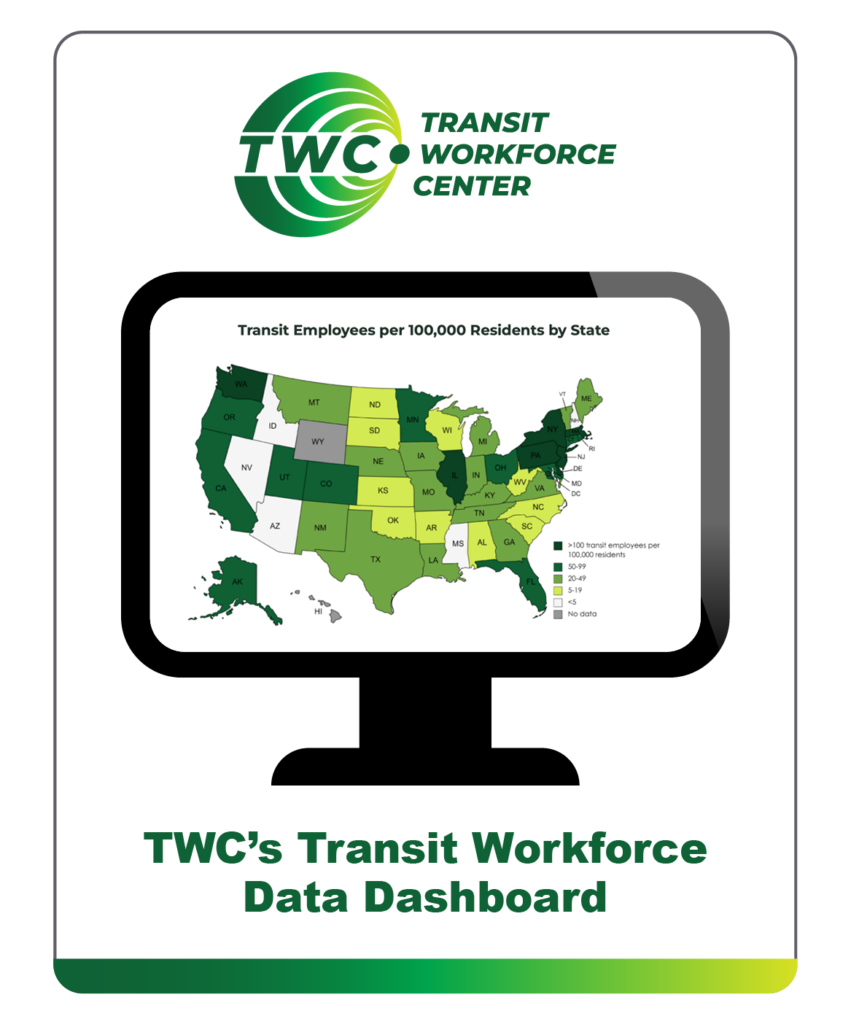
TWC’s Transit Workforce Data Dashboard
Launched in March, 2023, the Transit Workforce Data Dashboard presents quantitative, descriptive data about the composition of the transit workforce and trends in transit employment using a series of charts and graphics. This information is relevant for industry discussions in a range of contexts, including: strategic workforce planning in recruitment, retention, and other areas; examining and addressing opportunities and challenges related to workforce demographics; and identifying training and funding needs.
Transit Workforce Center
March 2023
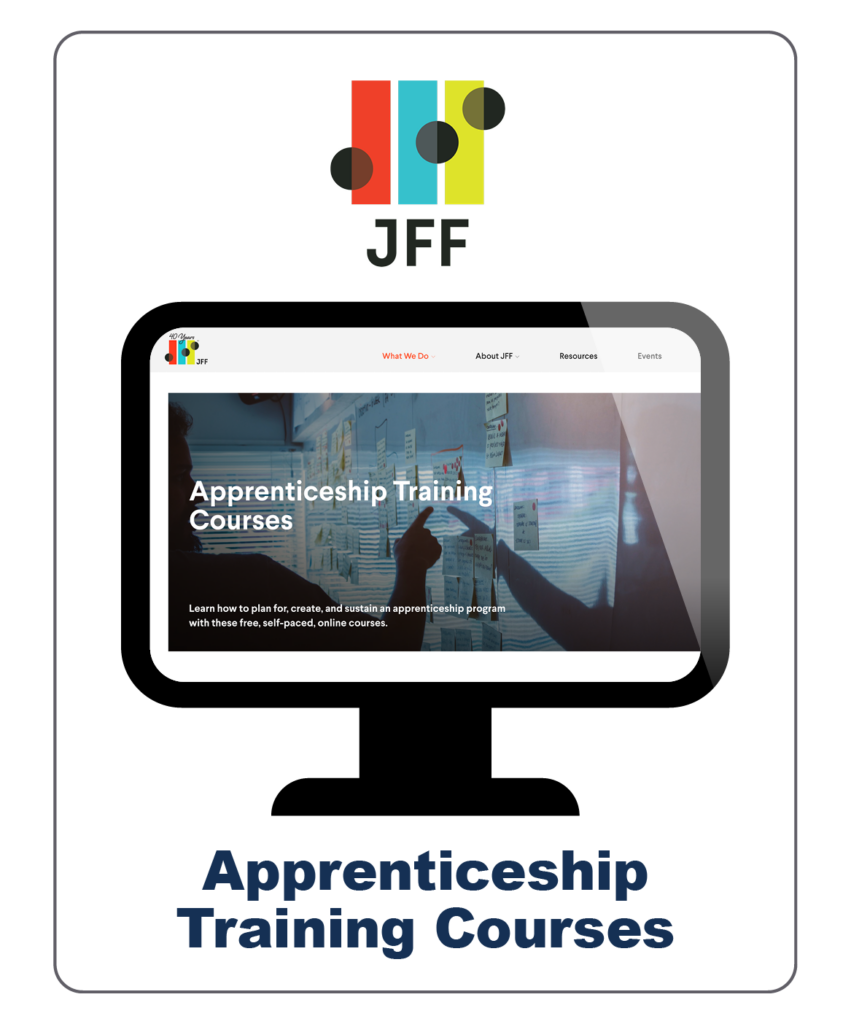
Apprenticeship Training Courses
This series of free online training courses will help transit providers and others plan for, create, and sustain registered apprenticeship programs. Several courses have already been released and others are forthcoming.
Jobs for the Future
March 2023
TOPICS: Apprenticeship , Career Pathways , Mentorship , Trainer and Mentor Development , Training
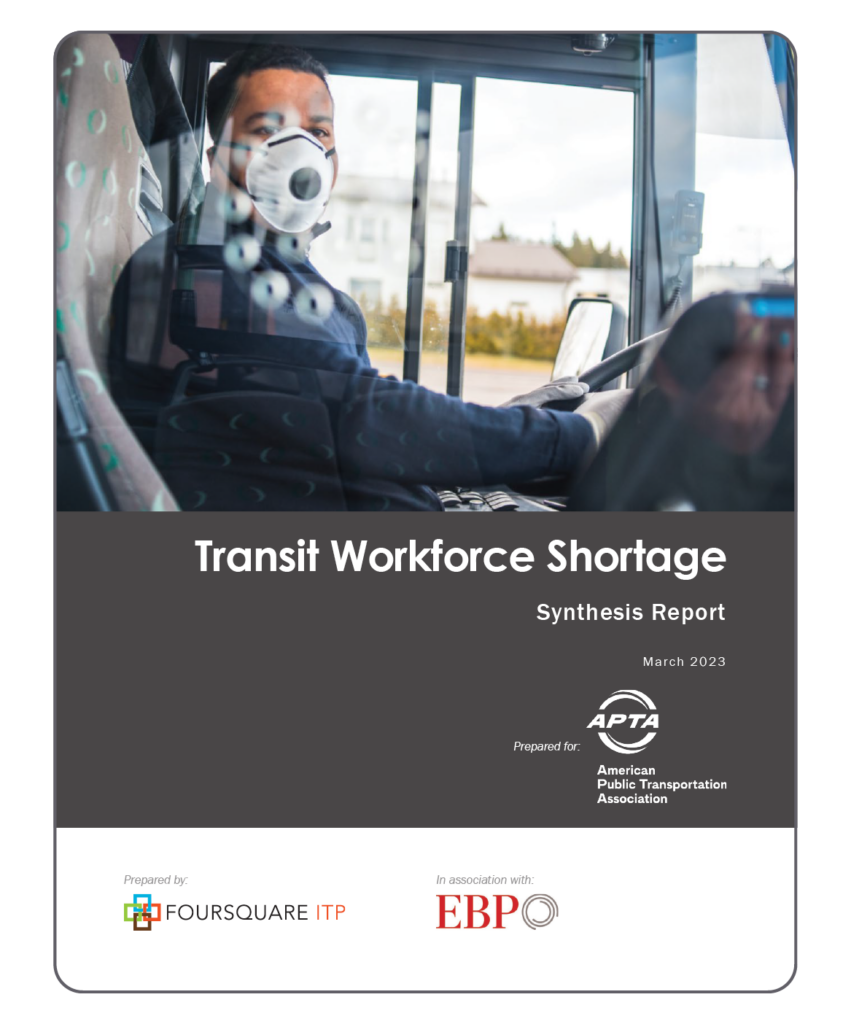
Transit Workforce Shortage: Synthesis Report and Toolkit
The Transit Workforce Shortage Study builds a framework for APTA, its members, and its partner organizations to better understand the workforce shortage’s causes and provides best practices for recruiting, hiring, and retaining transit operations workers.
American Public Transportation Association
March 2023
APTA’s Transit Workforce Shortage Study combines information from a survey of public transit workers and interviews with public transportation agencies to provide insight into ways to address the national shortage of transit workers. The report provides information on actions agencies have taken to address the workforce shortage, and the toolkit provides step-by-step answers to workforce shortage scenarios agencies are facing every day.
This report builds on findings from the first interim report.
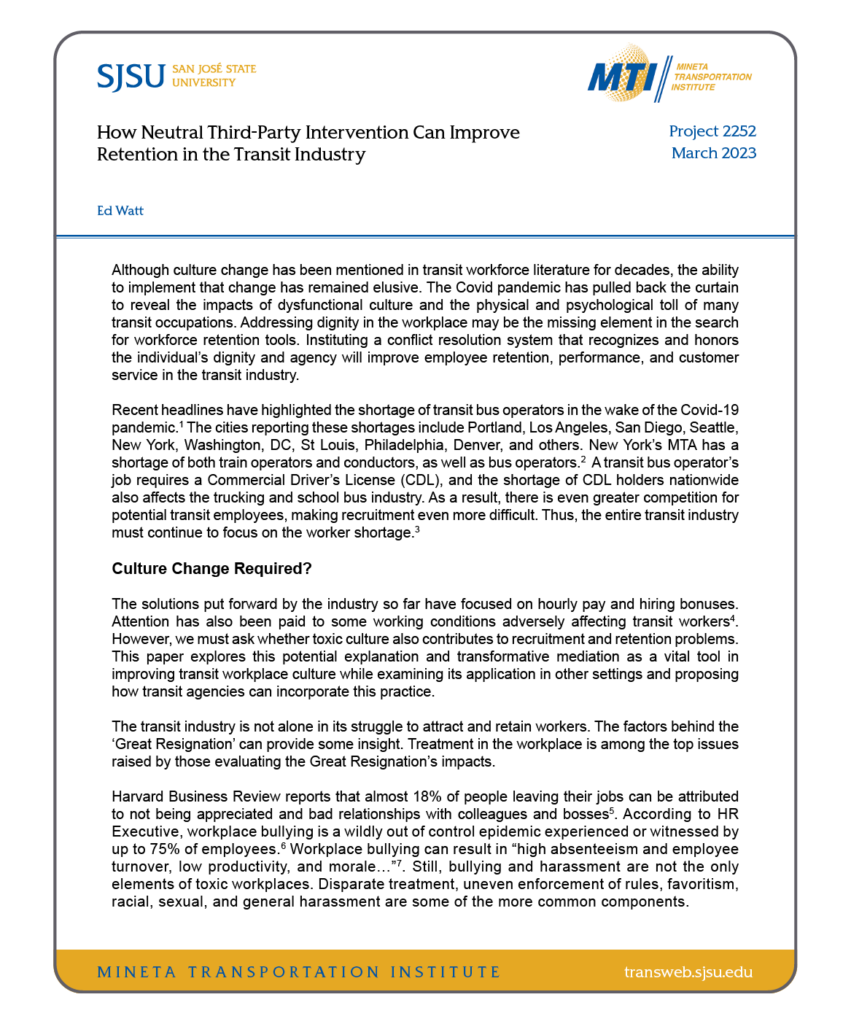
How Neutral Third-Party Intervention Can Improve Retention in the Transit Industry
This study proposes methods that follow transformative mediation in order to improve hiring and retention at transit agencies and other companies by providing an organizational culture that respects each person’s dignity, identity, and opinions.
Mineta Transportation Institute
March 2023
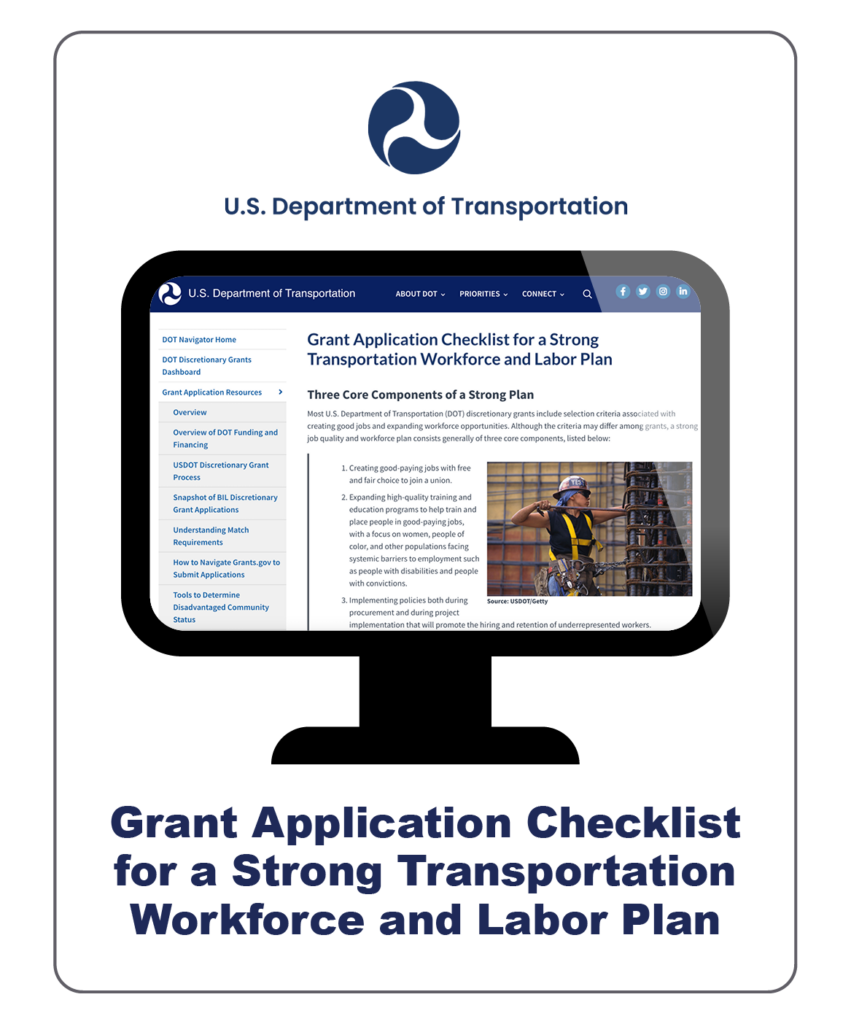
Grant Application Checklist for a Strong Transportation Workforce and Labor Plan
This checklist provides information on the components of an ideal labor plan when applying to DOT discretionary grants in order to best meet the criteria for a strong workforce. The checklist prompts grant applicants to consider their labor-management partnerships, workforce training and education, and hiring and retaining workers.
US Department of Transportation
February 2023
TOPICS: Funding Opportunities , Policy and Planning
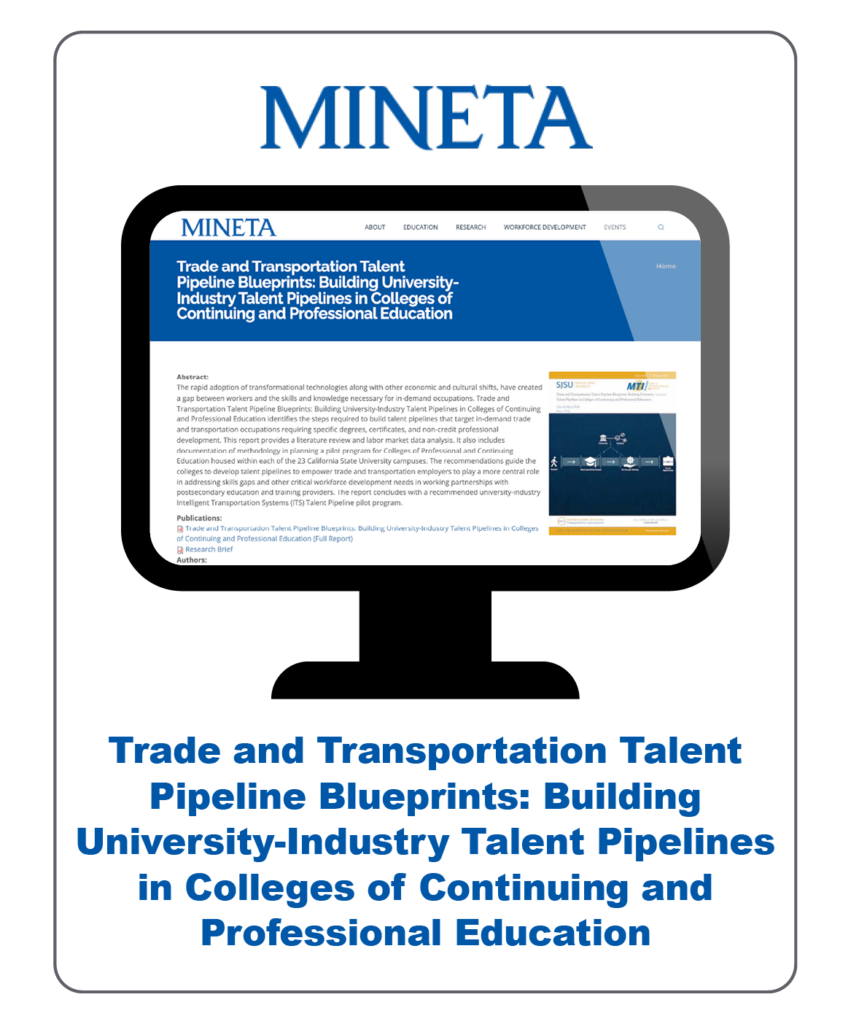
Trade and Transportation Talent Pipeline Blueprints: Building University-Industry Talent Pipelines in Colleges of Continuing and Professional Education
This report identifies the steps required to build talent pipelines that target in-demand trade and transportation occupations requiring specific degrees, certificates, and non-credit professional development and provides a literature review and labor market data analysis. It also includes documentation of methodology in planning a pilot program for Colleges of Professional and Continuing Education housed within each of the 23 California State University campuses.
Mineta Transportation Institute
February 2023
TOPICS: Career Pathways , Hiring and Recruitment , Policy and Planning , Training

Realizing the Workforce Potential of Infrastructure Investments
This report details strategies for states to realize the workforce and job quality potential of infrastructure investments in critical sectors, particularly those poised for significant additional investments through the IIJA and IRA. The report explains specific funding streams on which states can capitalize and outlines a framework for priority actions that states can take to foster broad opportunity to benefit from good quality jobs connected to state spending in two of the most significant infrastructure sectors. The framework highlights examples of models and uses of these strategies from around the country, including a summary of instances of public infrastructure agencies embedding job quality and workforce aims into competitive procurement processes to influence private sector practices.
Markle; Eno Center for Transportation; National Association of State Energy Officials
February 2023
TOPICS: Policy and Planning , Procurement
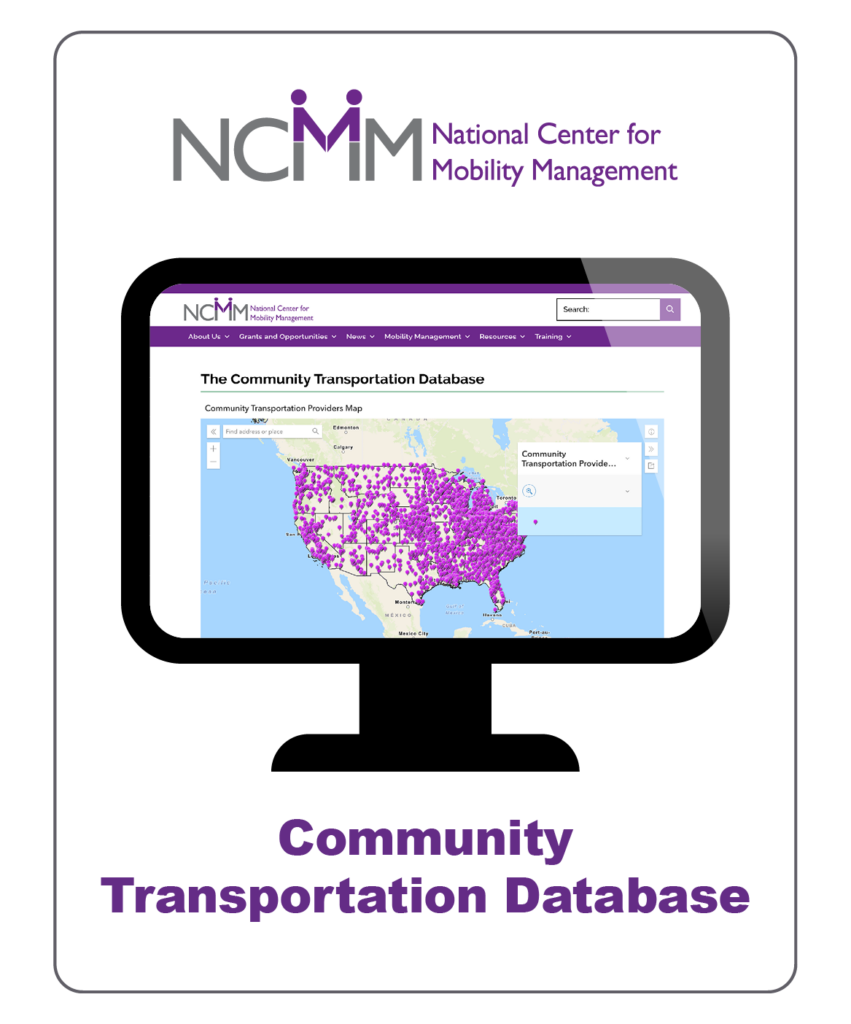
Community Transportation Map and Database
The National Center for Mobility Management developed a national transit database depicting the approximate location of transit agencies and organizations across the United States. The database combines existing datasets with new research to create an exhaustive list of organizations that provide transportation services to communities across the country. It contains public transit providers, community action agencies, senior centers, and others that provide transportation.
National Center for Mobility Management
January 2023
TOPICS: Policy and Planning
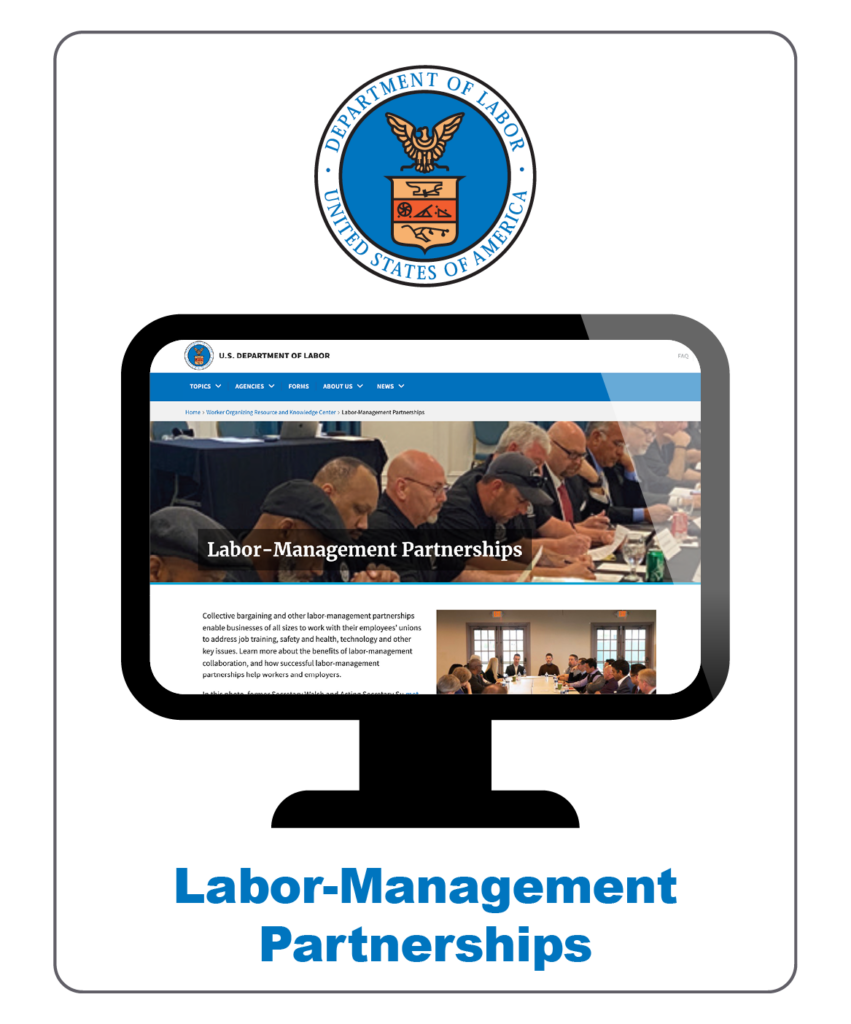
Labor-Management Partnerships
This page from the US Department of Labor explains the benefits of labor-management partnerships, successful examples of partnerships, how successful labor-management partnerships help workers and employers, and provides additional resources for support.
Department of Labor
January 2023
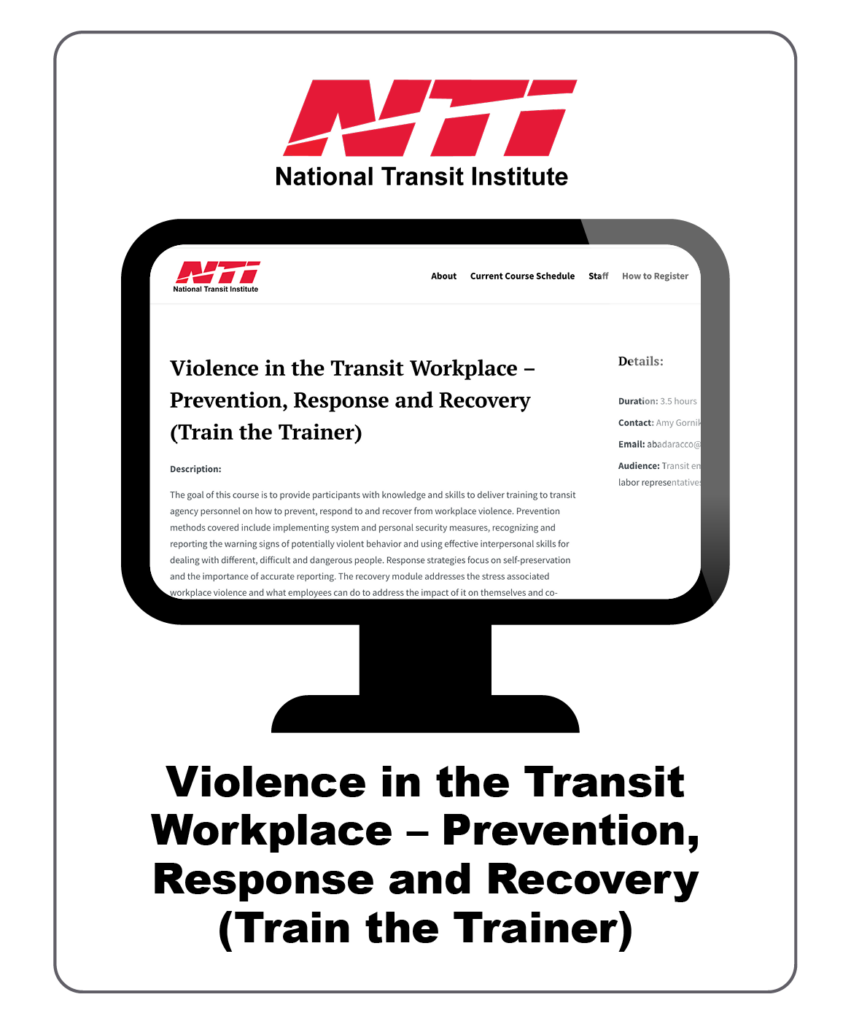
Violence in the Transit Workplace – Prevention, Response and Recovery (Train the Trainer)
The goal of this course is to provide participants with knowledge and skills to deliver training to transit agency personnel on how to prevent, respond to, and recover from workplace violence. Prevention methods covered include implementing system and personal security measures, recognizing and reporting the warning signs of potentially violent behavior and using effective interpersonal skills for dealing with different, difficult and dangerous people.
National Transit Institute
You can register for the course with the Rutgers University Noncredit Course Catalog & Registration System.
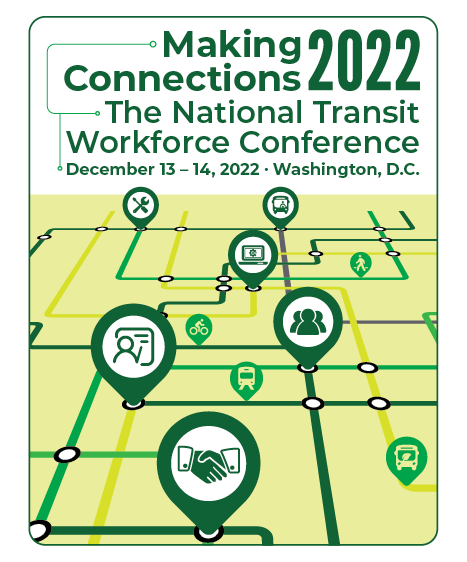
Making Connections 2022 – Conference Overview and Videos
The Transit Workforce Center hosted Making Connections 2022: The National Transit Workforce Conference in Washington, D.C. on December 13-14, 2022. This conference brought together participants from urban, suburban, rural, and tribal public transportation and industry stakeholders in plenaries, workshops, networking, and ongoing dialogue. Discussions and sessions featured topics including recruitment and retention, training, mentoring and apprenticeships, new technologies, and preparing today’s and tomorrow’s workforce.
Transit Workforce Center
December 2022
Session materials from Making Connections 2022 are hosted on the TWC Resource Center. Please click here to view all related materials. A PDF copy of the conference schedule is linked below.
Opening Video:
Recap Video:
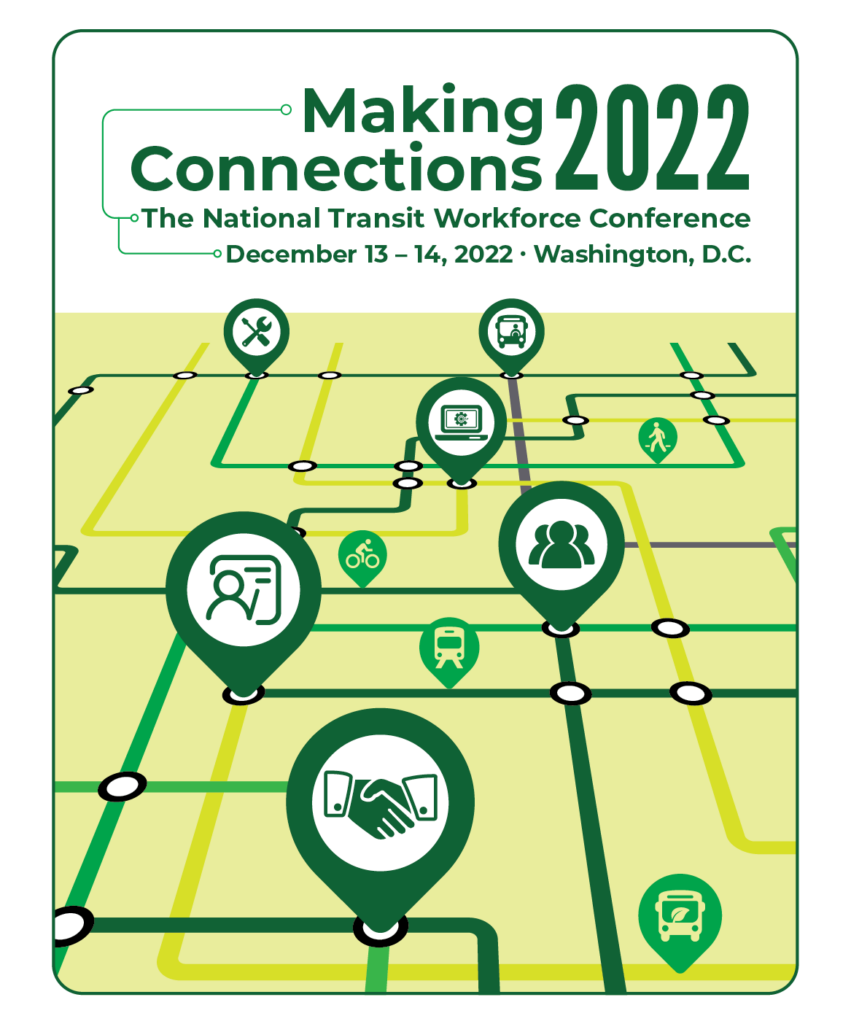
Making Connections 2022 – Transit Instructional Systems Design Boot Camp
This session about instructional systems design was presented as part of TWC’s Making Connections 2022 transit workforce conference in December, 2022.
Transit Workforce Center
December 2022
TOPICS: Making Connections Conference , Training
Session Summary: From Adult Learning Theory to measurable learning objectives to learning models that are proven to enhance understanding and retention – the highly interactive Transit Instructional Systems Design Boot Camp was designed to help participants gain a basic working knowledge of the full ISD process. Based on Chuck Hodell’s best-selling book, ISD From the Ground Up, this session introduced transit trainers and managers to the widely-used and theory-supported system of instructional design practice that provides the foundation for today’s transit classroom and field instruction.
Moderator
- Julie Deibel-Pundt: Program Director, Instructional Design – International Transportation Learning Center/Transit Workforce Center
Speakers
- Dennise Cardona: Digital Content Manager – University of Maryland Baltimore County
- Chuck Hodell: Affiliate Professor – University of Maryland School of Pharmacy; Faculty Lecturer – Northeastern University; Academic Advisor – International Masonry Training and Education Foundation

Making Connections 2022 – Growing Your Own Through Apprenticeship: A Joint Approach to Building Skills
This session about apprenticeship was presented as part of TWC’s Making Connections 2022 transit workforce conference in December, 2022.
Transit Workforce Center
December 2022
Session Summary: Apprenticeship programs create a foundation for strong, effective workforce development programs. The ability to build and maintain these programs requires strong labor-management partnerships, or, in the case of nonunion agencies, ongoing involvement of, and management engagement with, the frontline workforce. In this session, panelists from transit agencies presented examples of challenges met and lessons learned as they designed and implemented their apprenticeship programs. Attendees heard how apprenticeship can support a variety of frontline transit occupations and the benefits that apprenticeship offers.
Moderator
- Jamaine “G” Gibson: Director of Apprenticeships and Workforce Development – Amalgamated Transit Union
Speakers
- Dexter Bishop: Elevator/Escalator Journeyman – Amalgamated Transit Union/Local 689
- Stephanie Deiger: Chief Human Resources Officer – Southeastern Pennsylvania Transportation Authority
- Brian Funk: Chief Operating Officer and Deputy General Manager – MetroTransit Minneapolis
- Michael Hanssen: Supervisor of Technical Skills Training – Washington Metropolitan Area Transit Authority
- Alec Johnson: Bus Operator Apprenticeship Coordinator – MetroTransit Minneapolis/Amalgamated Transit Union Local 1005

Making Connections 2022 – Hands-On Instructional Training for Transit Trainers
This session about hands-on instructional training was presented as part of TWC’s Making Connections 2022 transit workforce conference in December, 2022.
Transit Workforce Center
December 2022
Session Summary: Hands-on instructional training is a critical piece to any organization’s training program. This workshop addressed hands-on training and its importance, best practices, lessons learned, and how to create effective hands-on training. Workshop participants observed hands-on welding simulation. The goal of this session was for participants to leave with the knowledge and resources to make hands-on training impactful and meaningful!
Moderators
- Kristen Ribaudo: Instructional Systems Design Consultant – International Transportation Learning Center/Transit Workforce Center
- Grant Young: Instructional Systems Design Consultant – International Transportation Learning Center/Transit Workforce Center
Speakers
- Ed Hogan: Chief Welding Instructor – Southeastern Pennsylvania Transportation Authority
- Grace Kuka: Welding Instructor – Southeastern Pennsylvania Transportation Authority

Making Connections 2022 – Designing an Impactful Training Program: Linking Program Design to Classroom Learning and On-The-Job Training for Transit Frontline Workers
This session about program design was presented as part of TWC’s Making Connections 2022 transit workforce conference in December, 2022.
Transit Workforce Center
December 2022
TOPICS: Apprenticeship , Making Connections Conference , Retention , Training
Session Summary: This workshop covered the basic building blocks of program design. Participants evaluated the pieces needed to develop a robust program that enables trainers to link good program design to effective classroom and on-the-job learning. This workshop was relevant to those looking to build new programs or refine current programs.
Moderator
- Grant Young: Instructional Systems Design Consultant – International Transportation Learning Center/Transit Workforce Center
Speakers
- Mike Glaeser: Manager, Bus Maintenance Training – Washington Metropolitan Area Transit Authority
- Colleen May: Senior Director of Training – Southeastern Pennsylvania Transportation Authority
- Danielle Wallace: Apprenticeship and Pathways Manager – King County Metro Transit
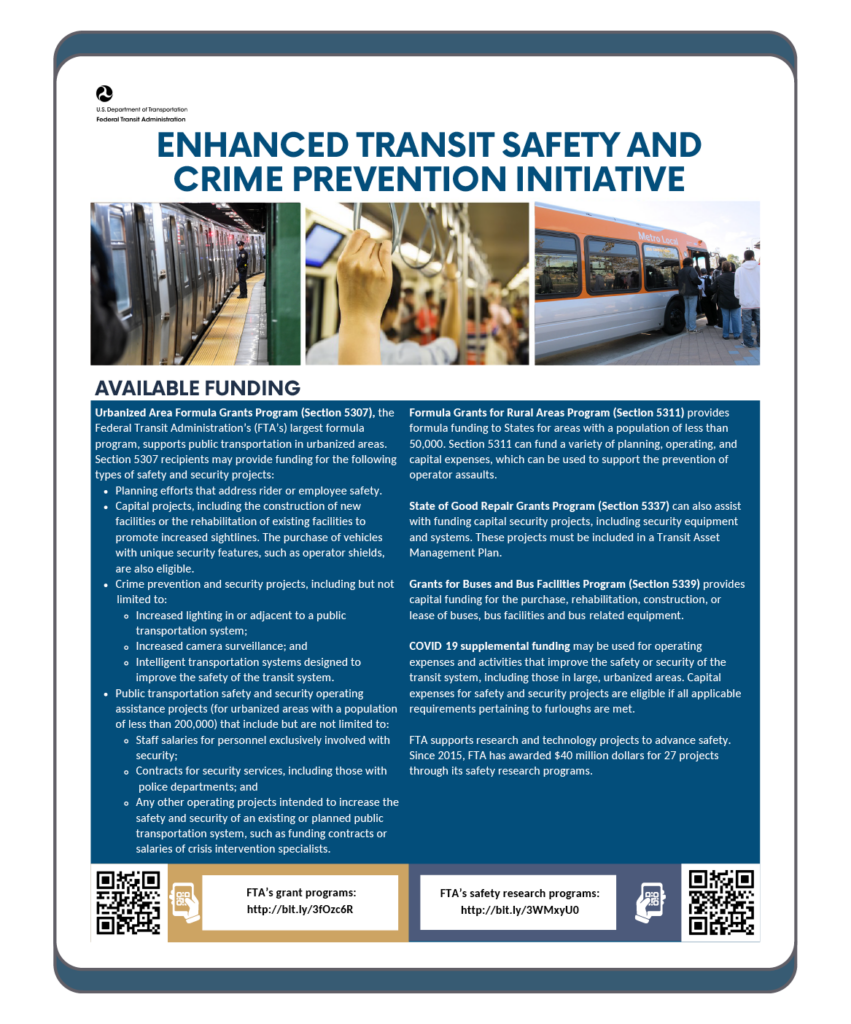
Enhanced Transit Safety and Crime Prevention Initiative FTA Funding Sources Factsheet
To help ensure the continued safety of our nation’s public transit systems, FTA launched the Enhanced Transit Safety and Crime Prevention Initiative to provide information and resources to help transit agencies address and prevent crime on their systems and protect transit workers and riders.
Federal Transit Administration
November 2022
TOPICS: Funding Opportunities , Safety and Health
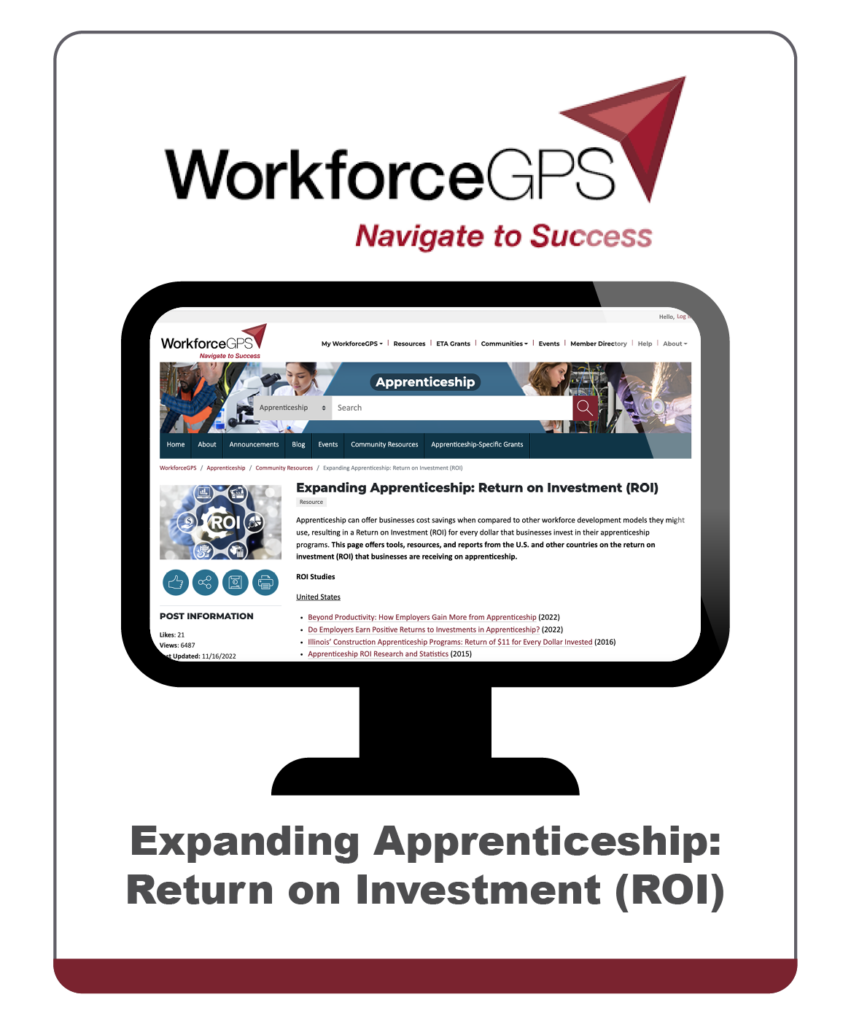
Expanding Apprenticeship: Return on Investment (ROI)
This is the landing page for Apprenticeship ROI resources on the WorkforceGPS website (sponsored by the Employment and Training Administration of the US Department of Labor). It is updated periodically and includes recent publications released as part of the evaluation of the American Apprenticeship Initiative. These resources attest to the value of apprenticeship programs for organizations and for workers.
WorkforceGPS
November 2022
TOPICS: Apprenticeship , Program Evaluation and ROI
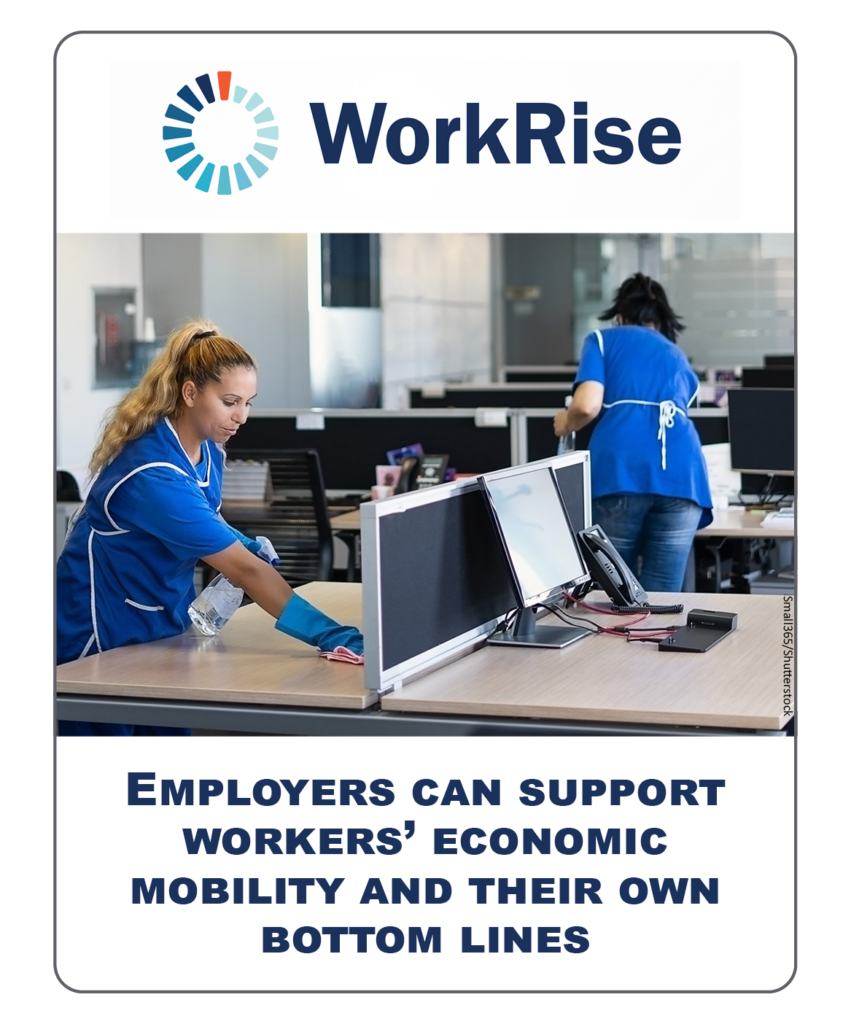
Employers can support workers’ economic mobility and their own bottom lines
This article provides a concise description of several strategies employers can use to create clear advancement pathways in their workplaces, which will help attract and retain quality candidates. It discusses research around what modern-day employees are looking for in a workplace and a position. It also links to a related article, which provides an overview of the framework created by Jobs for the Future (JFF) to describe the components of a good job.
WorkRise
November 2022
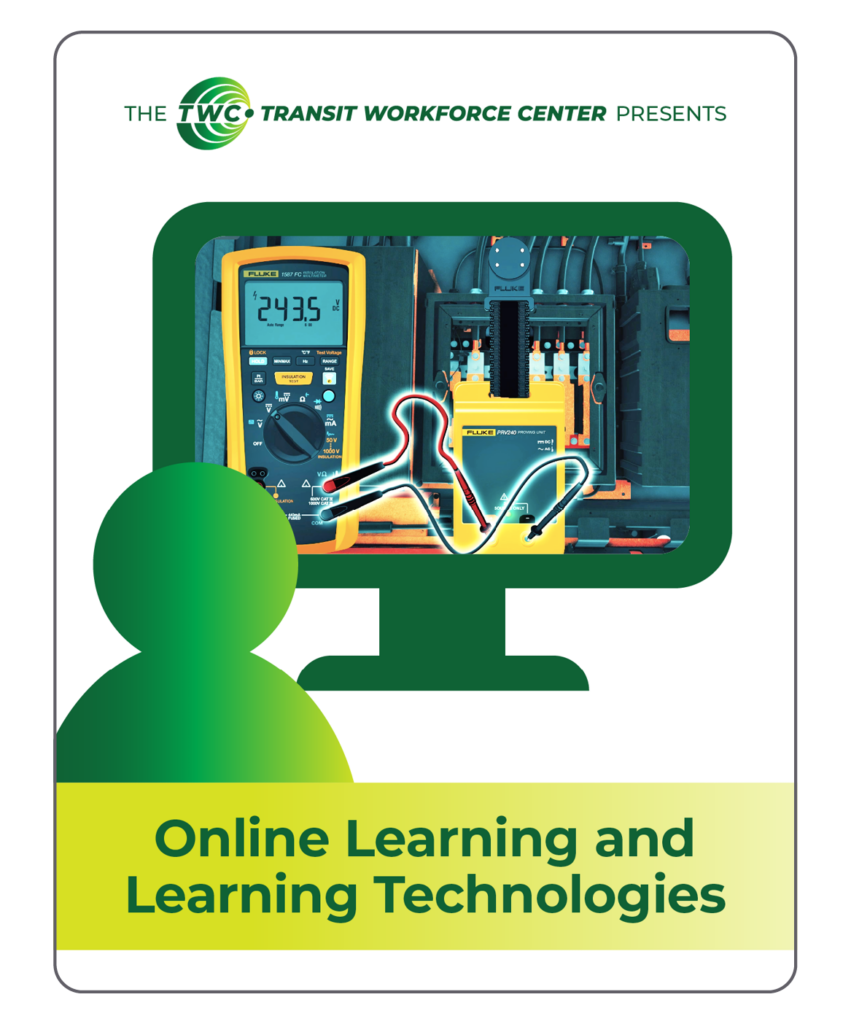
Online Learning and Learning Technologies Webinar
On October 25, 2022, TWC hosted an exciting webinar that explores online training, best practices in training delivery, and exciting trends in online technology for the transit industry.
Transit Workforce Center
October 2022
TOPICS: Training
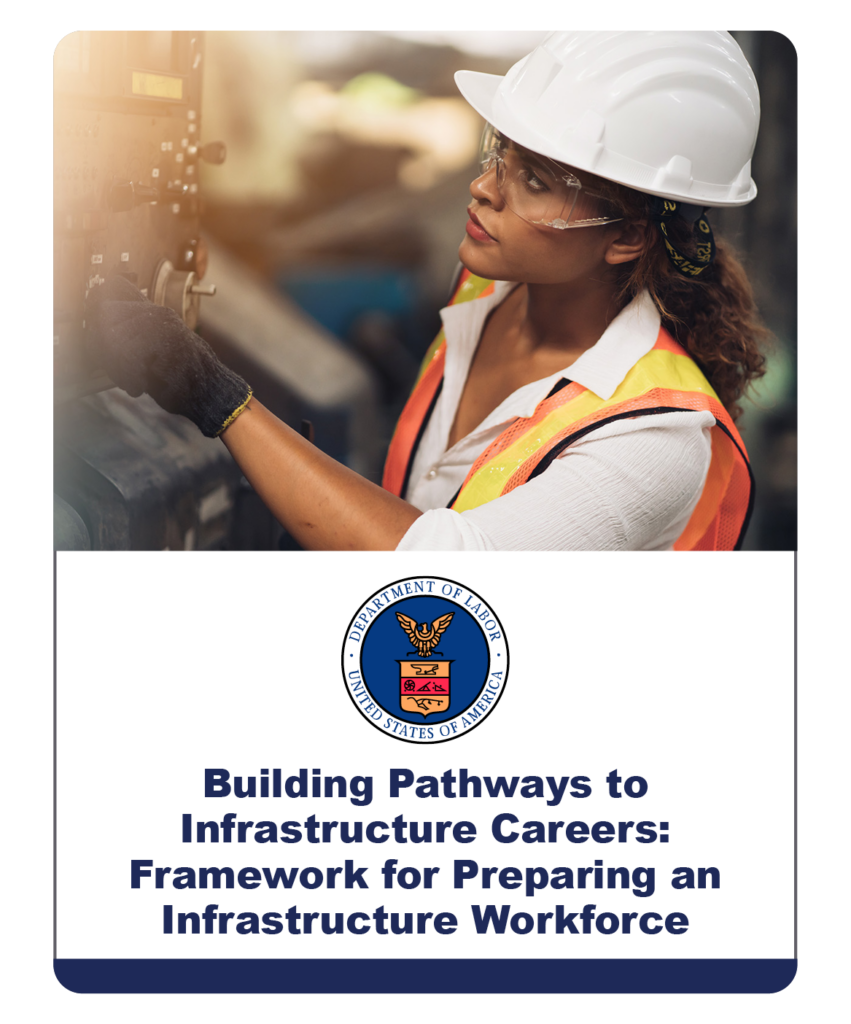
Building Pathways to Infrastructure Careers: Framework for Preparing an Infrastructure Workforce
This resource provides a framework for all workforce stakeholders, including infrastructure project leads, to engage the public workforce system in implementing the Bipartisan Infrastructure Law with strong workforce commitments and proven strategies that produce high-quality education, training, and employment opportunities for all workers.
U.S. Department of Labor, Employment and Training Administration
October 2022
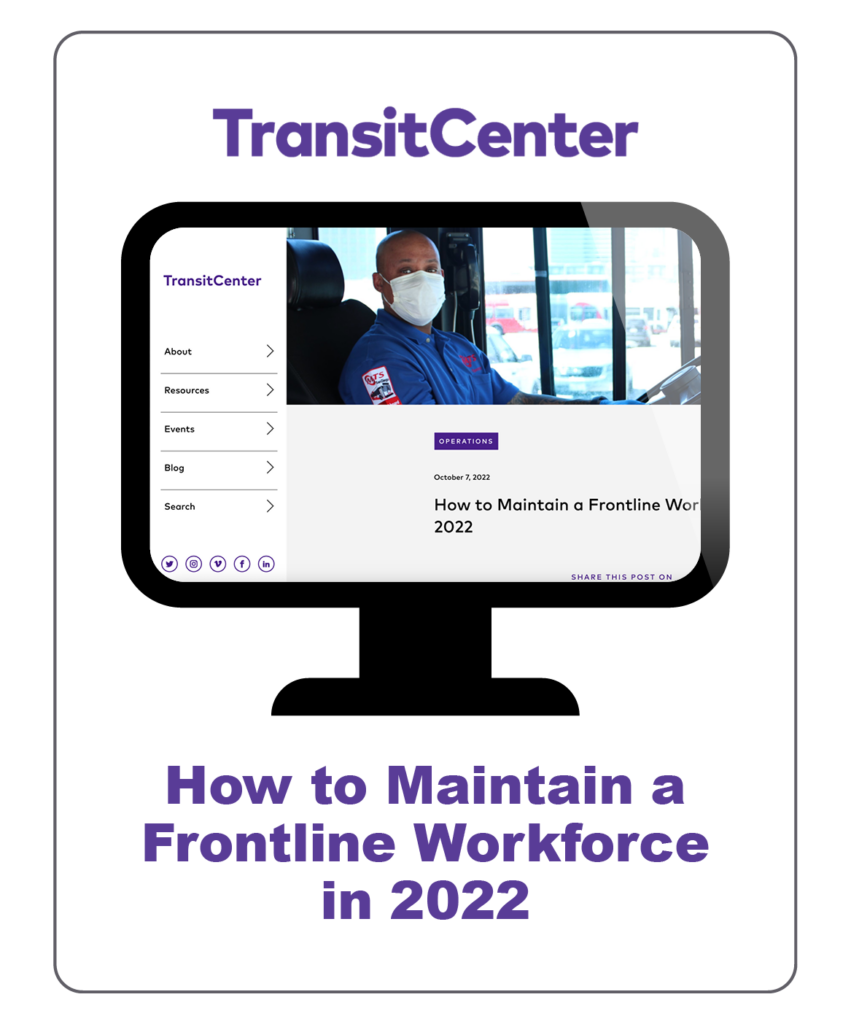
How to Maintain a Frontline Workforce in 2022
TransitCenter
October 2022
TOPICS: Hiring and Recruitment , Retention
This blog post considers steps taken by transit agencies in New York City and San Diego in order to bolster and maintain their frontline workforces in the aftermath of the pandemic and years of labor shortages in the transit industry. The post describes actions like increasing wages, easing CDL requirements, and increasing recruitment efforts.
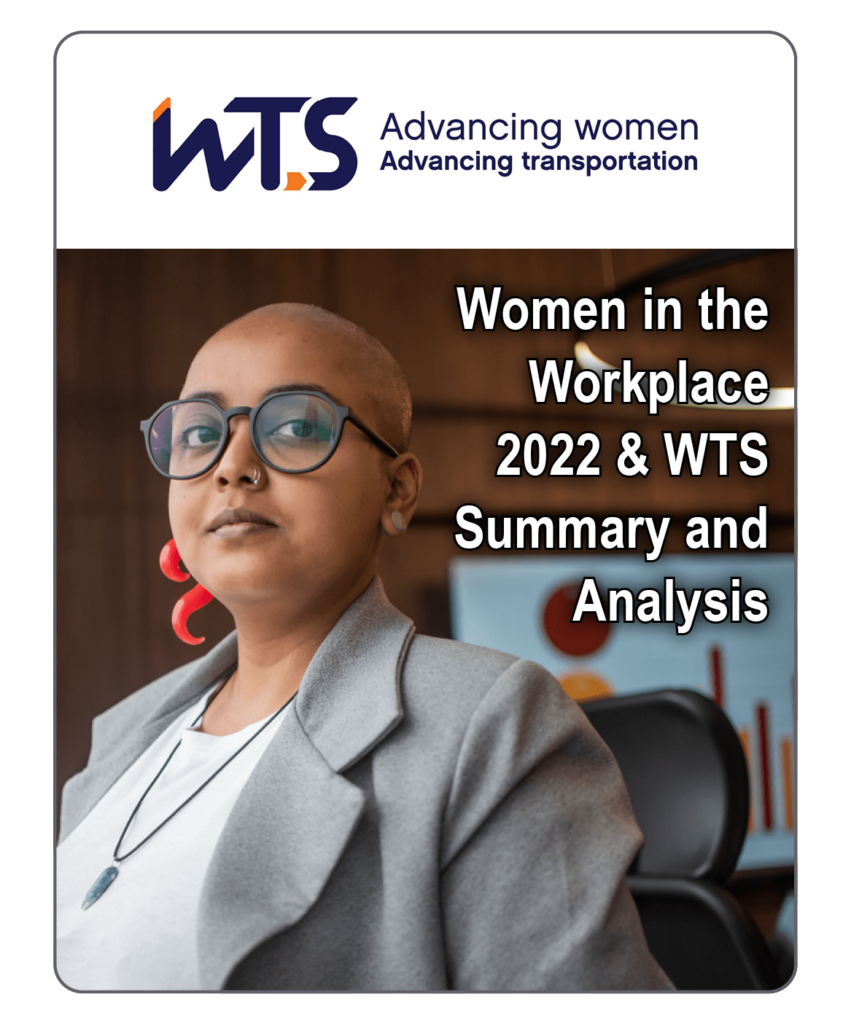
Women in the Workplace 2022
Launched in 2015 by LeanIn.Org and McKinsey & Company, Women in the Workplace is the largest study on the state of women in corporate America. The summary from WTS International outlines the report’s implications for the transportation workforce.
LeanIn.Org; McKinsey & Company; WTS International
October 2022
TOPICS: Career Pathways , Community Engagement
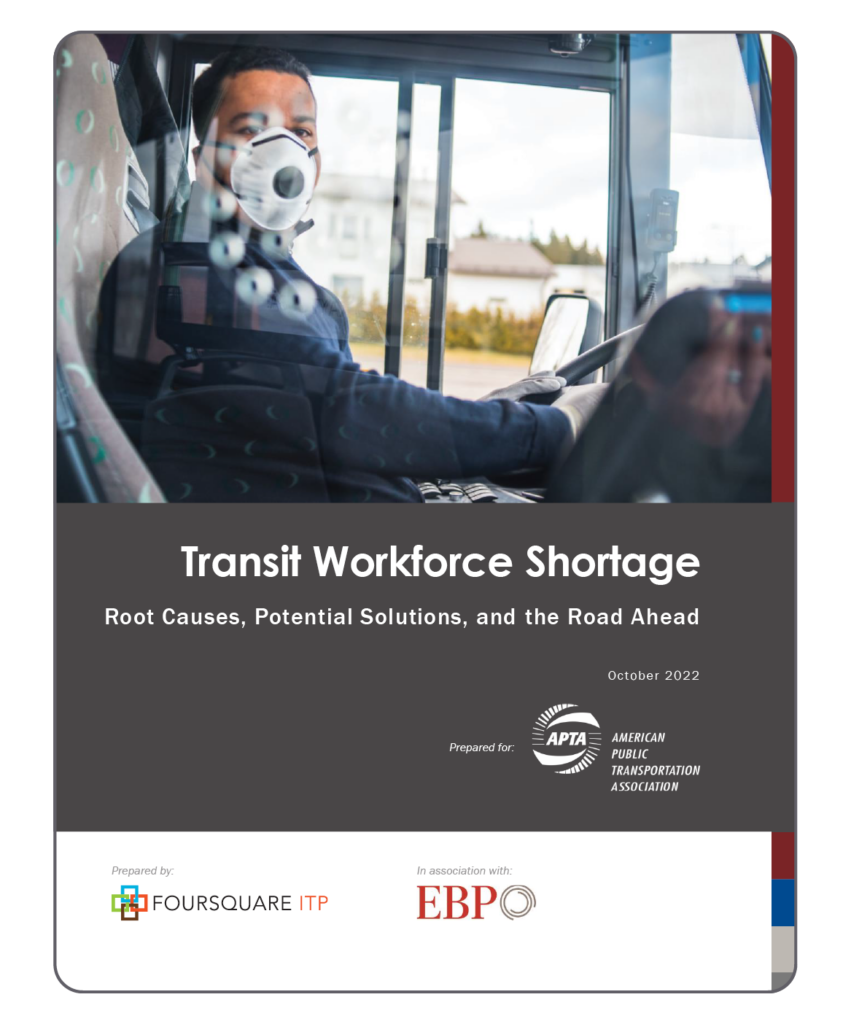
Transit Workforce Shortage: Root Causes, Potential Solutions, and the Road Ahead
American Public Transportation Association
October 2022
TOPICS: Hiring and Recruitment , Policy and Planning , Retention , Workforce Shortage
Public transit providers across North America face a shortage of operators and mechanics during a period of economic instability and reshuffling exacerbated by the COVID-19 pandemic. However, agencies’ ability to respond to the worker shortage has been hampered by inadequate information about its causes and effects. The Transit Workforce Shortage Study builds a framework for APTA, its members, and its partner organizations to better understand the workforce shortage’s causes and provides best practices for recruiting, hiring, and retaining transit operations workers. The study is comprised of two phases. This document, the Interim Findings Report, synthesizes the findings from Phase 1, which included a survey of transit agencies and background research into the macro causes of the shortage.
This report was followed by a full synthesis report and toolkit.
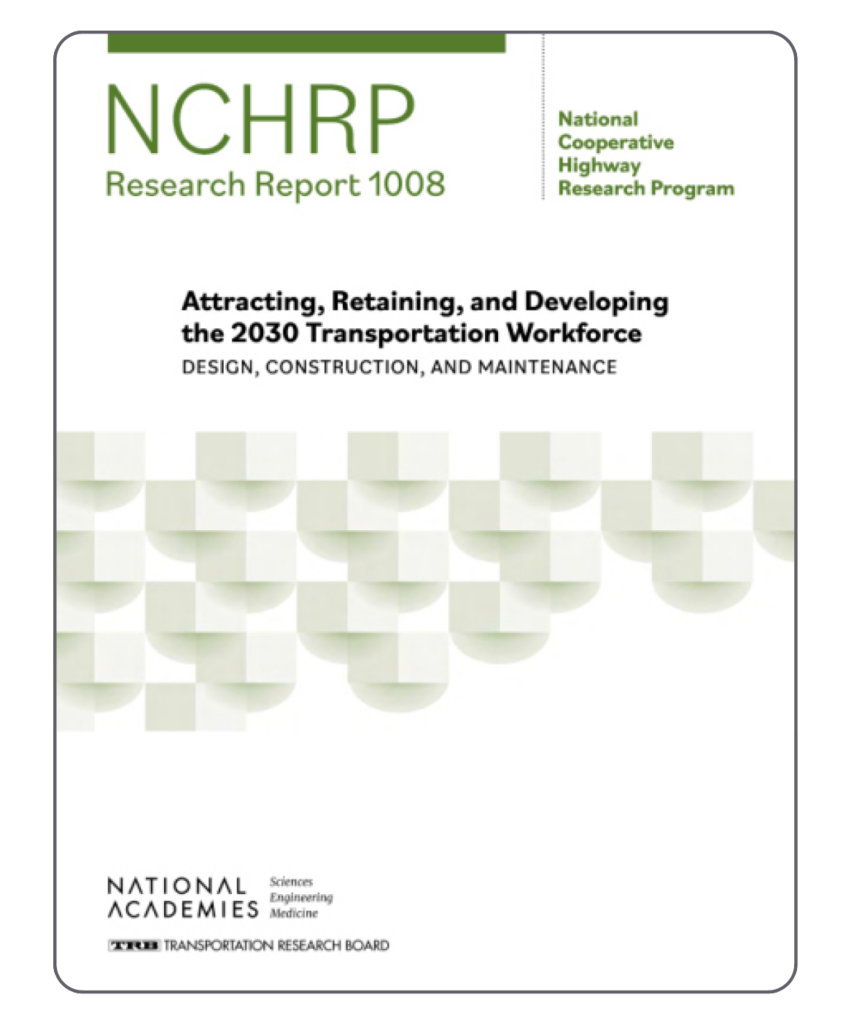
Attracting, Retaining, and Developing the 2030 Transportation Workforce
This report provides a guide with specific strategies and action plans to help agencies identify and address workforce needs through 2030 and beyond.
National Cooperative Highway Research Program
October 2022
State departments of transportation are responsible for providing a safe, efficient, and effective transportation system of infrastructure and services. To meet these responsibilities, transportation agencies need a highly skilled workforce with the expertise required to identify and address current transportation needs while also being prepared to address the challenges of the future.
Contributor(s): National Academies of Sciences, Engineering, and Medicine; Transportation Research Board; National Cooperative Highway Research Program; Candace Blair Cronin; Allison Alexander; Grace Arnold; Juan Carlos Batarse; Kelly Dray; Sasha Iliev; Jessica Jenkins; Erik Smallwood; Rachel Smart; Jake Streng; Mara Campbell; Susan Gallagher; Tyler Reeb; Tom O’Brien; Glenn McRae
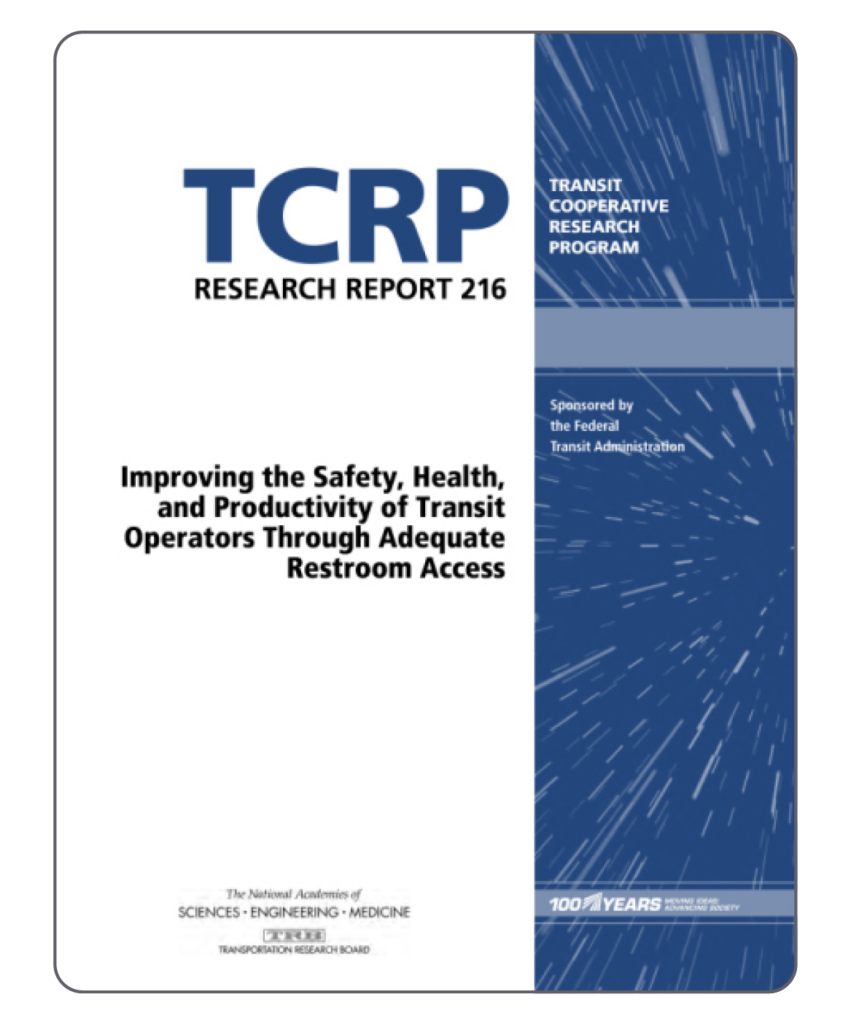
Improving the Safety, Health, and Productivity of Transit Operators Through Adequate Restroom Access
This report presents a catalog of good practices, tools, and resources that provide a foundation for implementable strategies to improve restroom access, primarily for transit vehicle operators. The report compiles research from 100 transit agencies on current and best practices; the impact of restroom access on health, safety, and operations, and lessons learned.
Transit Cooperative Research Program
October 2022
TOPICS: Policy and Planning , Safety and Health
A toolbox accompanying the report includes helpful resources such as restroom inventory, planning, and cost estimation tools, as well as templates for restroom access policies and contract language.
Contributor(s): National Academies of Sciences, Engineering, and Medicine; Transportation Research Board; Transit Cooperative Research Program; Robin Mary Gillespie, City University of New York; RLS & Associates Robbie Sarles
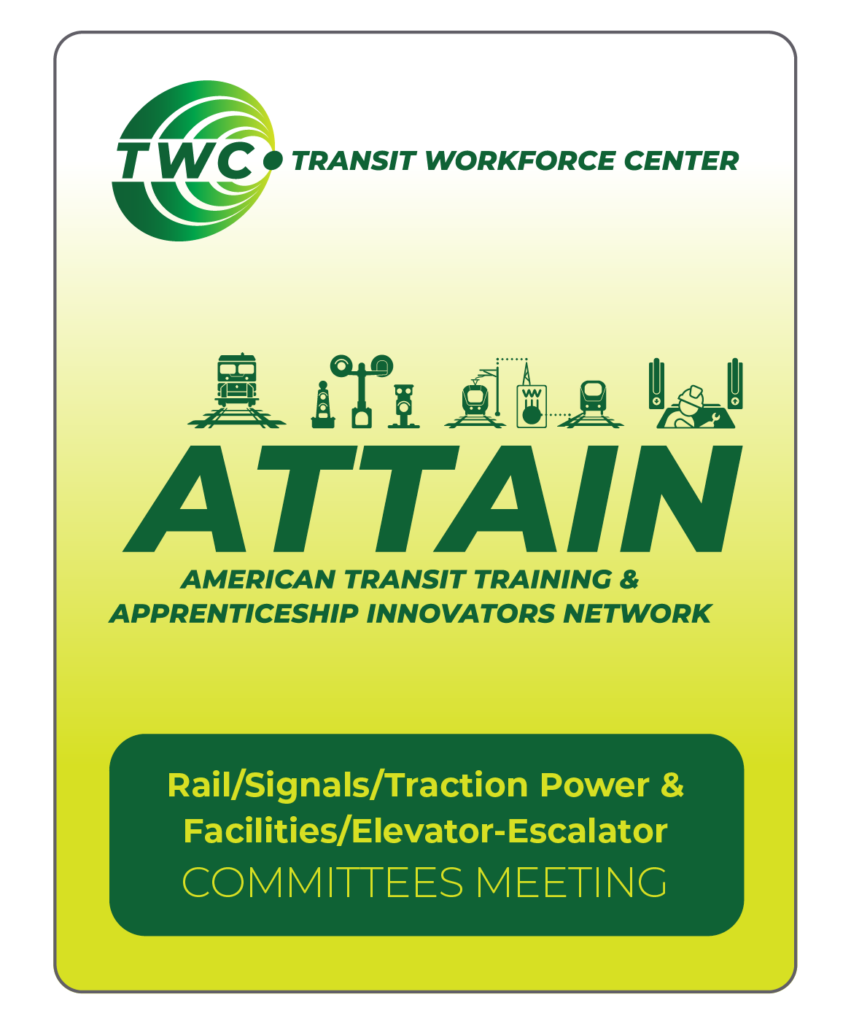
ATTAIN Rail/Signals/Traction Power and Facilities/Elevator-Escalator Committees Meeting
This recorded meeting of the ATTAIN committees for Rail/Signals/Traction Power and Facilities/Elevator-Escalator serves as a resource for transit industry stakeholders and includes presentations on apprenticeship and case studies of successful programs across the country.
Transit Workforce Center
September 2022
TOPICS: Apprenticeship , Career Pathways , Community Engagement , Hiring and Recruitment , Training
The American Transit Training and Apprenticeship Innovators Network (ATTAIN), run by the Transit Workforce Center (TWC), is a peer network created for transit agencies and labor unions to explore new apprenticeship programs or enhance existing programs for their frontline workforce.
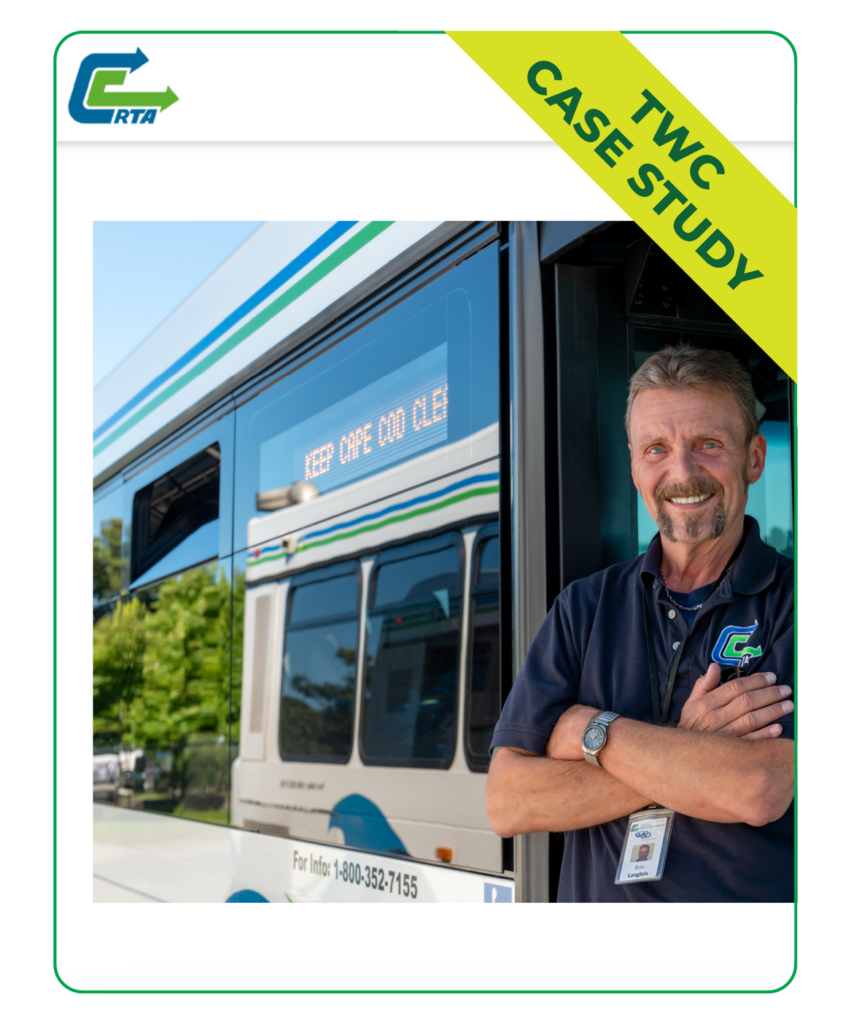
Recruiting Older Workers and Retirees at Cape Cod Regional Transit Authority
Cape Cod Regional Transit Authority; Transit Workforce Center
September 2022
Cape Cod Regional Transit Authority (CCRTA) in Massachusetts serves 15 towns within a 400 square miles area in an area where the population triples in the summer with seasonal residents. CCRTA runs seven year-round fixed route lines, several on-demand and hybrid on-demand services, and three summer shuttle services. In 2021, CCRTA served approximately 2.5 million people with 98 drivers.
Faced with driver shortages, CCRTA and Amalgamated Transit Union Local 1548 worked together and negotiated driver raises and $1,000 bonuses paid after 90-days. In addition, a six-step salary scale to reach the top pay grade was reduced to two steps. Drivers can now reach the top pay level within two years.
Barnstable County’s older adult population is among the largest per capita in the country, and CCRTA has instituted hiring initiatives aimed toward the older worker and retiree population. In connecting with this population, CCRTA has taken a variety of actions, including:
- Reaching out through Cape Cod Elder Services to communicate CCRTA’s interest in hiring older workers. CCRTA’s Human Services Transportation Manager sits on this organization’s board, facilitating ongoing contact.
- Targeting recruitment of retiring teachers, firefighters, police, and school bus drivers. Cape Cod RTA staff visited schools, fire houses, police stations, and municipal offices to share recruitment information.
- Visited each town on Cape Cod, talked with local retirement agency officials, and posted and mailed banners and notices.
- Overall increase in the agency’s traditional and social media presence generally, including advertising explicitly aimed at older adults, including on social media. Developed advertising, messaging, and imagery to make older workers and retirees feel welcome. To see samples of advertising, visit Cape Cod RTA Jobs on Facebook, the ad on their website’s front page, and see the video, featuring older drivers, on the CCRTA career page.
- Emphasizing the short time it takes to reach the highest salary level, a compelling message for older people and retirees, who often value salaries more than benefits, as well as the ability to reach the highest level within their time at the agency.
- Offering various employment options, including full-time and part-time, and seasonal. The agency has found that individual needs lead to varied choices; they estimate their older employees have split 50-50 in what scheduling option they choose.
- Providing full CDL training, testing and additional agency-specific training for all employees without CDLs. The agency pays for all training.
- Offering options for non-CDL drivers, who operate smaller vans. The agency encourages the CDL route because it gives drivers more flexibility in shifts and allows them to work and get paid at a higher rate.
- Currently exploring working with the Barnstable County Retirement Commission to arrange for a notice about CCRTA employment options to be part of the Commission’s information packet when an employee puts in for retirement.
CCRTA values its older workforce and their commitment to the job; through its efforts, it has been able to hire a dozen older adults / retirees as drivers. The agency notes that with this population, it is reasonable to expect excellent attendance, while also allowing for the potential of more short-term disability and time for medical appointments. COVID-19 saw CCRTA lose about half of its older adult workforce, given that population’s sensitivity to exposure. However, CCRTA is renewing its recruitment efforts in this area through the various methods noted.
For more information, contact:
Penny Grossman, H.R. Manager – Pgrossman@capecodrta.org – 508-385-1430, ext. 106
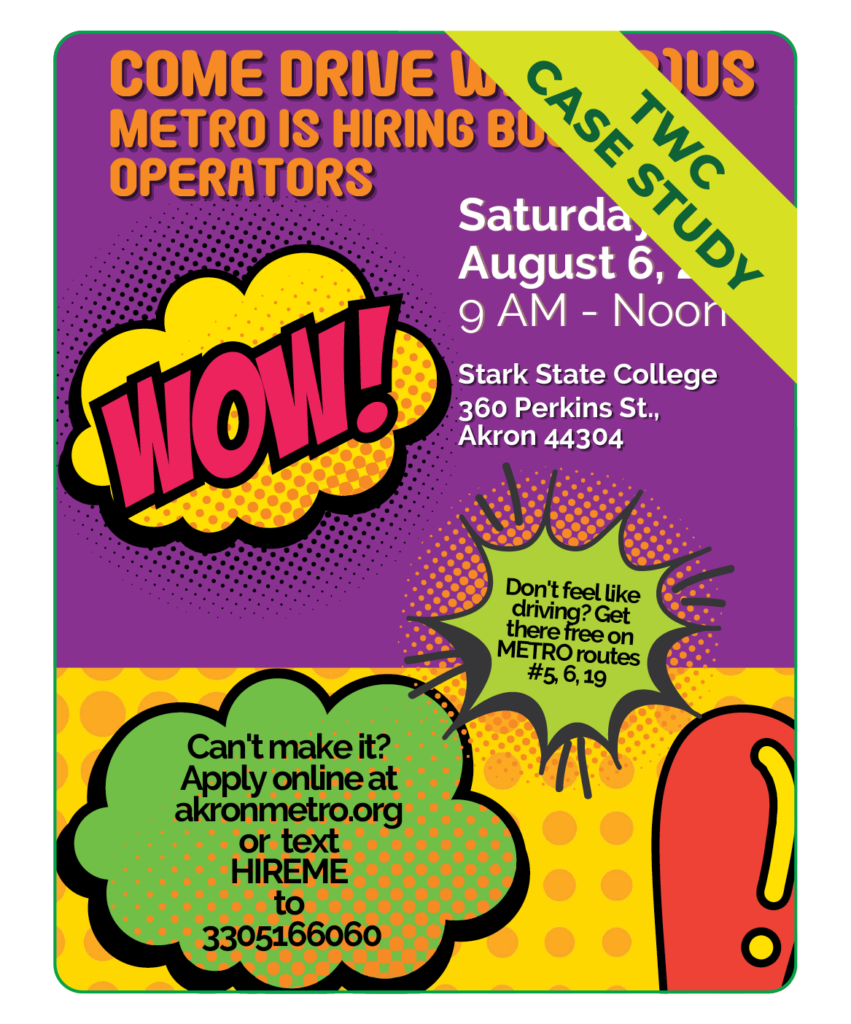
Come Drive with (B)us – Akron METRO Operator Recruitment Event
Akron METRO Regional Transit Authority; Transit Workforce Center
September 2022
TOPICS: Hiring and Recruitment
Organizations
Akron METRO Regional Transit Authority (METRO): Transit agency serving Summit County, Ohio and the city of Akron, with a fleet totaling 231 vehicles: 140 large buses and 91 smaller paratransit vehicles. METRO employs 425 team members.
Stark State College: Local event venue and partner in advertising campaign. METRO is currently in the final stages of an agreement with Stark State to supplement its CDL training program.
Program Summary
METRO’s “Come Drive with (B)us” event was a major initiative designed to recruit bus operators. Held at Stark State College, the event featured on-site bus-related activities, interviews and job applications. Extensive outreach activities before the event through multiple outlets, combined with the themed ad campaign, brought 99 interested participants and resulted in 71 contingent offers. The key “draw” to this event was the ability to test drive our vehicles on a closed course alongside our staff. METRO’s idea was that if the thought of driving a bus was keeping people from applying, they could offer a nontraditional mechanism to overcome that hesitancy. Once that challenge was overcome, the process could focus on the soft skills related to empathy and great customer service that are critical to success.
Key Program Elements
- Pre-event publicity
- Pop Art themed ad campaign (viewable on Facebook; an example is attached below as a PDF)
- Free and purchased advertising through social media, including Instagram, Facebook, and Twitter posts
- Information on METRO’s website
- Print ads in local daily and weekly publications
- Two digital billboards, and flyers on buses and posters at METRO’s transit center
- A radio ad on several local radio stations
- Two days before to the event, Stark State College promoted the event on their digital sign, readable from the expressway
- Four radio personalities from four different stations drove the bus two to three weeks prior to the event and promoted on the air, including one station that put together its own video.
- Television interviews that resulted in a full story and a variety of mentions of the event on other stations
- Creating two bus wraps with the pop art feel (see PDF below) on careers, though not event-specific
- Outreach to past applicants
- Videos of three in-house of staff driving for the first time, along with videos featuring County Executive and Representative Casey Weinstein, and an invite video from METRO’s CEO
- Event activities and design (see PDF of signage below)
- Participants were told to bring a valid driver’s license
- Four clearly-marked stations for applicants to go to where they had the opportunity to:
- Apply
- Interview
- Secure a mobility device
- Drive a bus
- Every applicant moved through all four stations
- At final stop, attendees received:
- Bag of information
- Swag
- Digital and paper copies of the CDL training booklet for them to start studying
- Event planning activities
- Started six to eight weeks before event
- Committee was made of HR, Marketing, Operations, Maintenance and Safety/Security
- Eighteen staff members worked the day of the event – five working check-in/applications, five doing on-site interviews, two working the mobility station, five running the “test drive” station, and one runner to move between all stations to relieve backlog
- Used seven 40 foot buses (2 spares) and 2 paratransit vehicles
Outcomes
- Ninety-nine event attendees interviewed and were able to test drive
- Twenty-five additional people applied who could not attend; follow up interviews were planned
- 71 of the 99 were moved through to a “contingent offer” pending background checks with a start date of September 26th
- Twenty-three of the 99 had areas of their application that required reviewing before proceeding
For more information on this event, contact: Jarrod Hampshire – Chief Operations Officer, METRO RTA 330.808.0144
More recruitment advertising materials and resources can be found here.
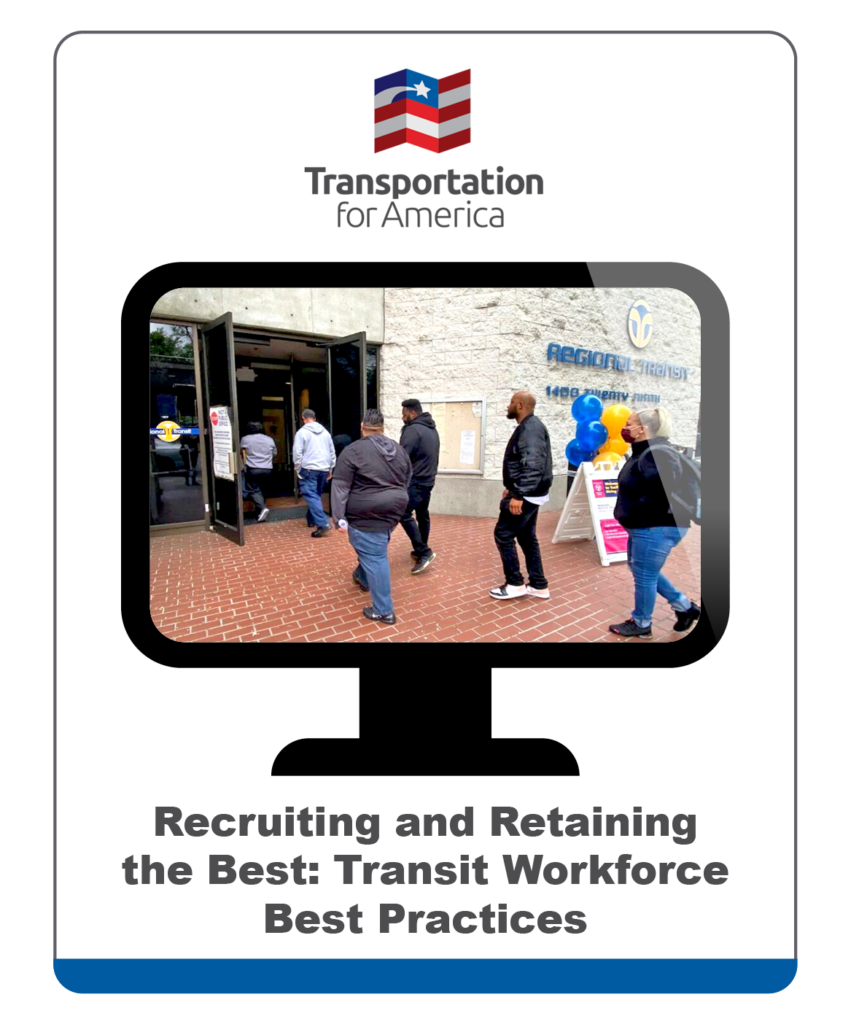
Recruiting and Retaining the Best: Transit Workforce Best Practices
This blog post from Transportation for America details successful strategies and best practices employed by transit agencies to empower their operator and maintenance workforces.
Transportation for America
September 2022
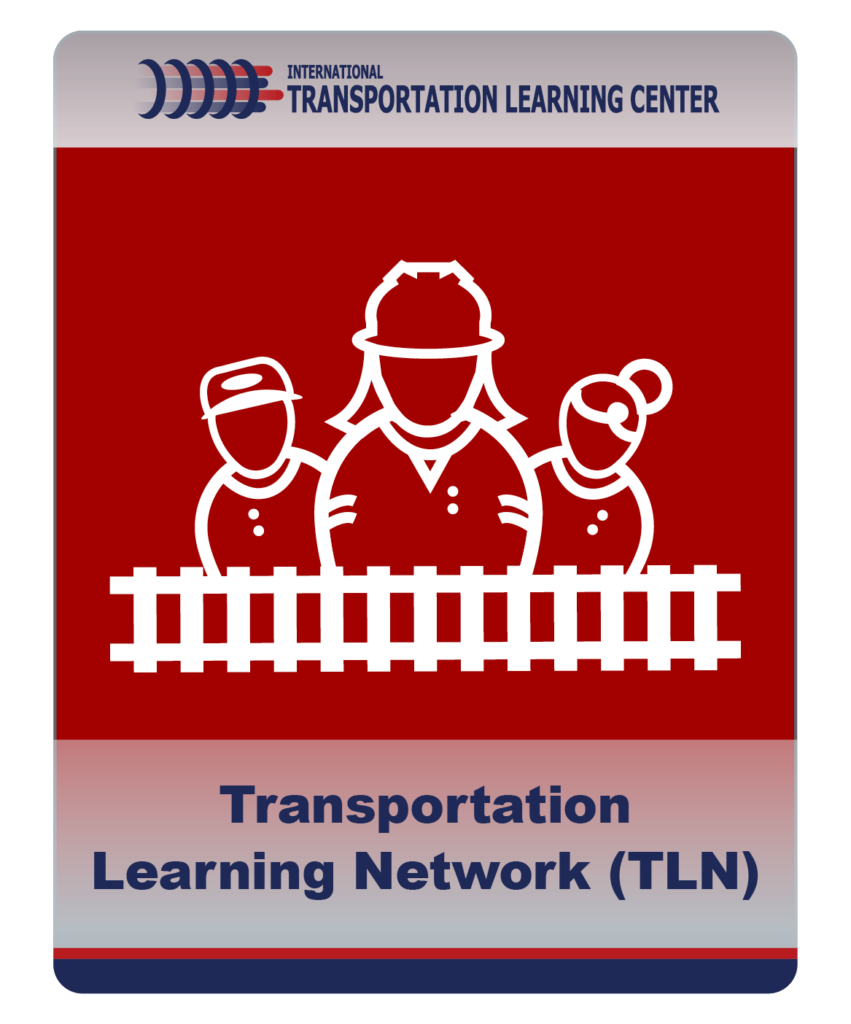
Transportation Learning Network (TLN)
The Transportation Learning Network (TLN) is part of an industry-wide effort aimed at strengthening transit training programs. It is designed and maintained by the International Transportation Learning Center, and provides a platform for accessing industry specific training materials – both for direct self-led online learning and also for download by trainers to use in a classroom or field settings. Topics covered include maintenance of transit elevators and escalators, signals, railcar and traction power.
International Transportation Learning Center
September 2022
TOPICS: Apprenticeship , Safety and Health , Training

Wire Women: Lighting it Up
This illustrated publication tells the stories of women who are undertaking apprenticeship to become union electricians. This resource could be used by transit agencies, unions, or apprenticeship programs as promotional material or for educational purposes.
Sharon Szymanski
September 2022
TOPICS: Apprenticeship , Career Pathways , Community Engagement
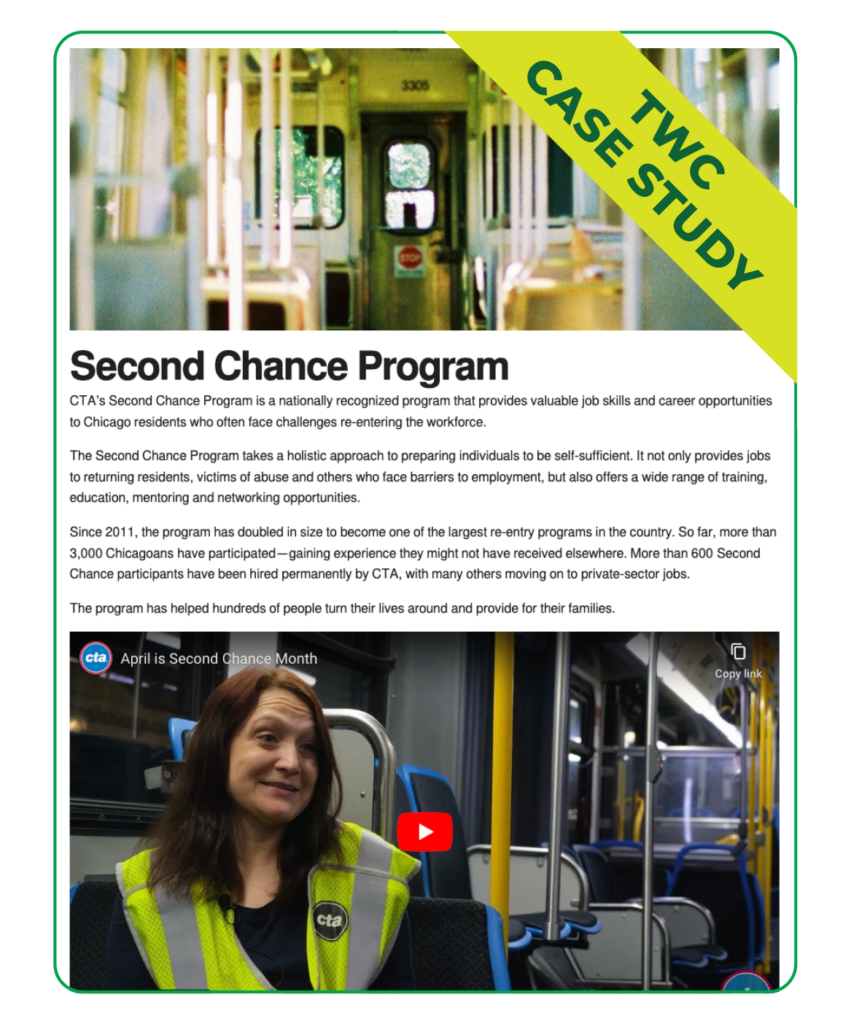
Second Chance Transit Programs
Several transit agencies across the country have established Second Chance programs to support formerly-incarcerated individuals as they reenter the workforce; these programs set pathways into frontline transit positions, often focusing on driver recruitment. These initiatives involve active collaboration between transit agencies and departments of corrections. Agencies have also worked with other partners, including their local unions, state and local workforce development agencies, ex-offender support programs, and local community organizations.
August 2022
Basic descriptions of some current state and local programs can be found at the links below.
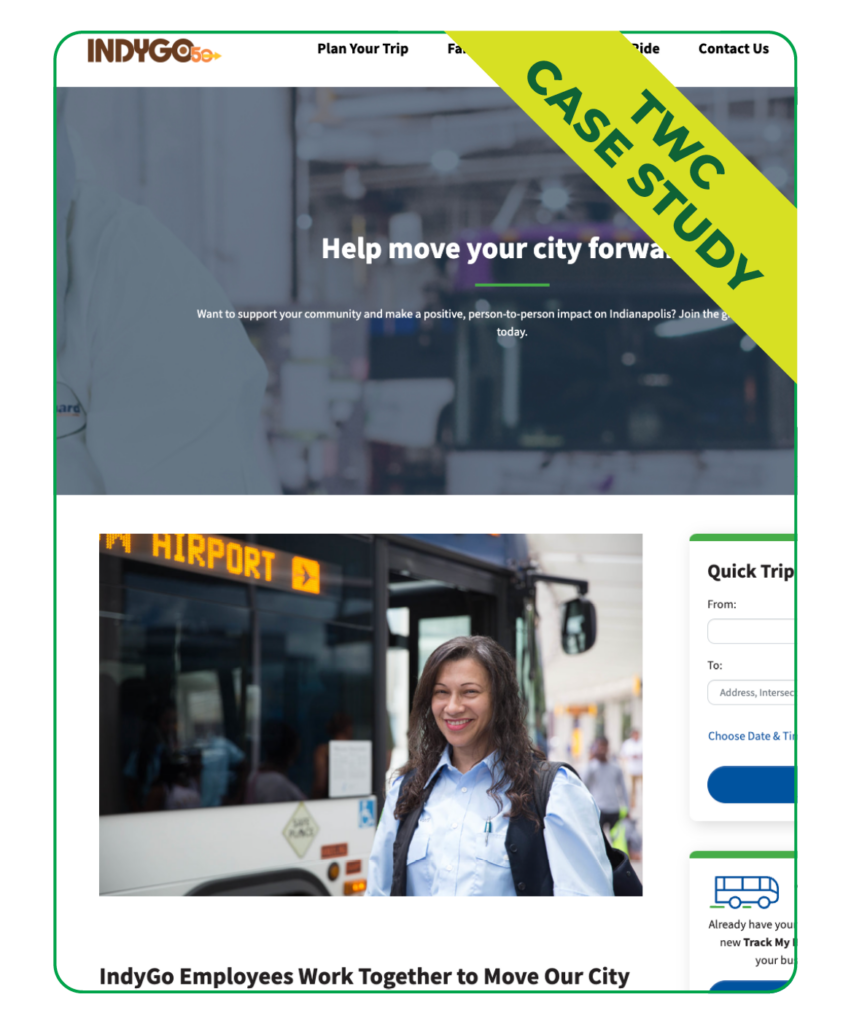
IndyGo’s Employment Opportunities Page
The IndyGo transit agency, based in Indianapolis, Indiana, offers high-quality career information on its website. This resource summarizes effective elements of the career page.
IndyGo
August 2022
TOPICS: Career Pathways , Hiring and Recruitment
IndyGo’s career page helps site visitors to understand what it’s like to work at the agency and how to apply. The page also highlights key job benefits and emphasizes the opportunity to serve the community. Overall, the employment section of IndyGo’s website demonstrates a number of key communication elements that support effective outreach to potential applicants. These elements include:
- An easily accessible and identifiable section on the website. “Employment” has its own clickable category, not a subcategory that may be harder to locate.
- Clear statements about IndyGo’s mission, emphasizing community service, connection, and working together to make a difference in people’s lives. These messages attract a range of potential target audiences, and they make clear the difference between a public service career, as opposed to other careers applicants may be considering.
- A detailed list of benefits, with additional specific benefits for drivers noted. Among those benefits, the list includes unique aspects of the driver position that distinguishes it from other potentially competing careers (e.g., long-haul trucking), noting benefits such as “all local work.”
- Highlighted aspects of the driver position that emphasize the connection with and support provided to riders.
- A thoughtful list of questions for potential applicants to consider about themselves and the type of work they might want before they decide to move ahead with the application.
- Detailed information on how and where to apply, basics of how to prepare for and what to bring to an interview, and important specifics about the steps of the hiring process and initial orientation and training programs.
- IndyGo’s Why I Drive segment on their website includes a video featured in the National Frontline Workforce Recruitment Campaign Toolkit video library elsewhere on this website. That link on IndyGo’s website also features brief worker profiles, another summary of benefits, and a note on IndyGo’s Second Chance Initiative.
- IndyGo’s website includes a prominent option to translate the site into Spanish.
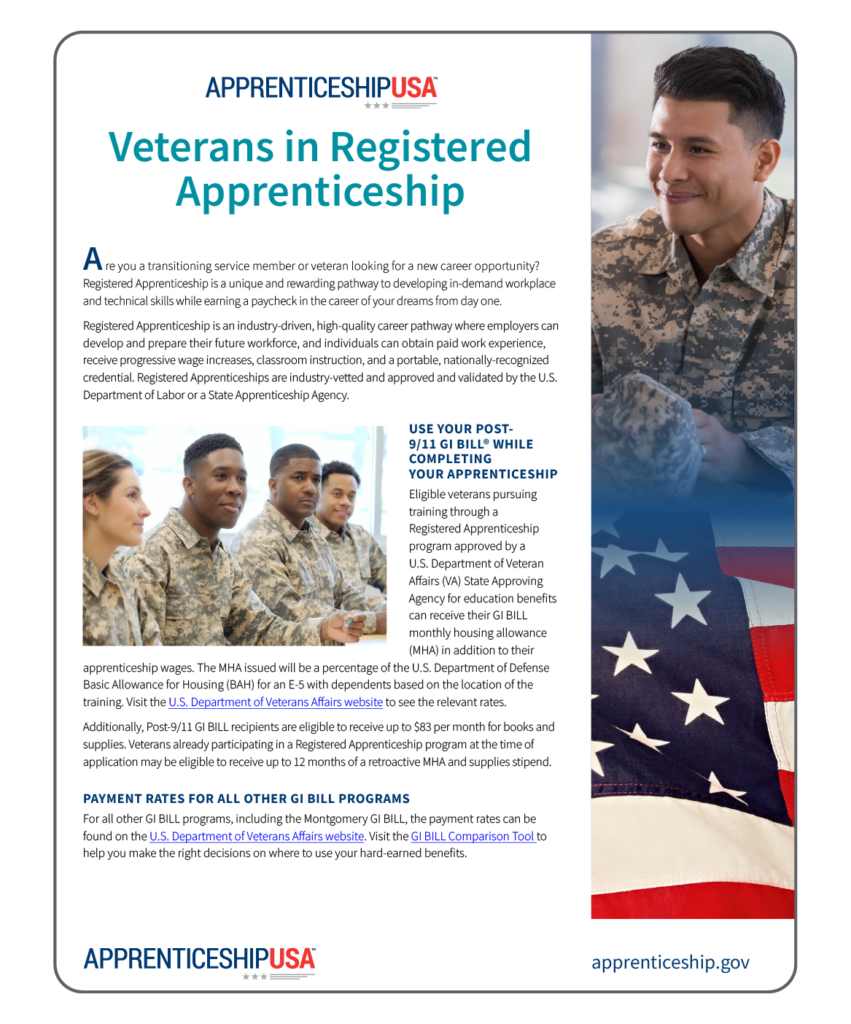
Veterans in Registered Apprenticeship
This fact sheet provides an overview of how veteran-specific public benefits can be applied to support a veteran’s completion of a registered apprenticeship program. It also provides links to resources for more detailed information on apprenticeship resources for service members, employment resources for veterans, and more.
ApprenticeshipUSA
August 2022
TOPICS: Apprenticeship , Community Engagement
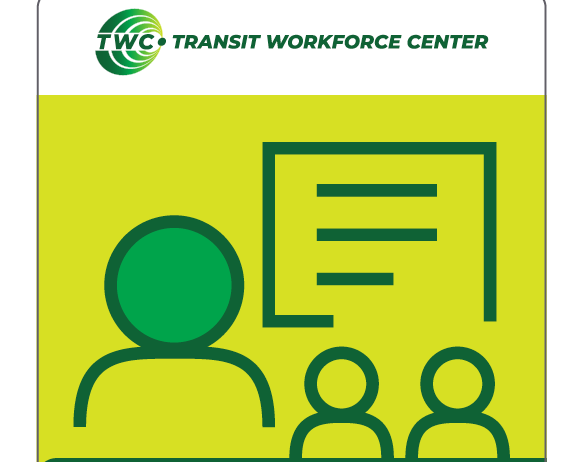
Train-the-Mentor
Transit Workforce Center
TOPICS: Mentorship , Trainer and Mentor Development , Training
This workshop is designed for employees or journeyworkers designated as mentors to support on-the-job learning for apprenticeship programs. The content includes a review of mentor roles, an introduction to learning styles, and a facilitated discussion about communication and problem solving. The second half of the workshop includes role playing exercises for the participants to practice what they learned. The instructor leads the participants through a structured review of that experience and review of the mentoring concepts presented. The program acknowledges the wisdom of the mentors and encourages them to view themselves as ambassadors for the apprenticeship and advocates for the apprentices.
Please follow the link below for additional details and to submit a mentor training request.
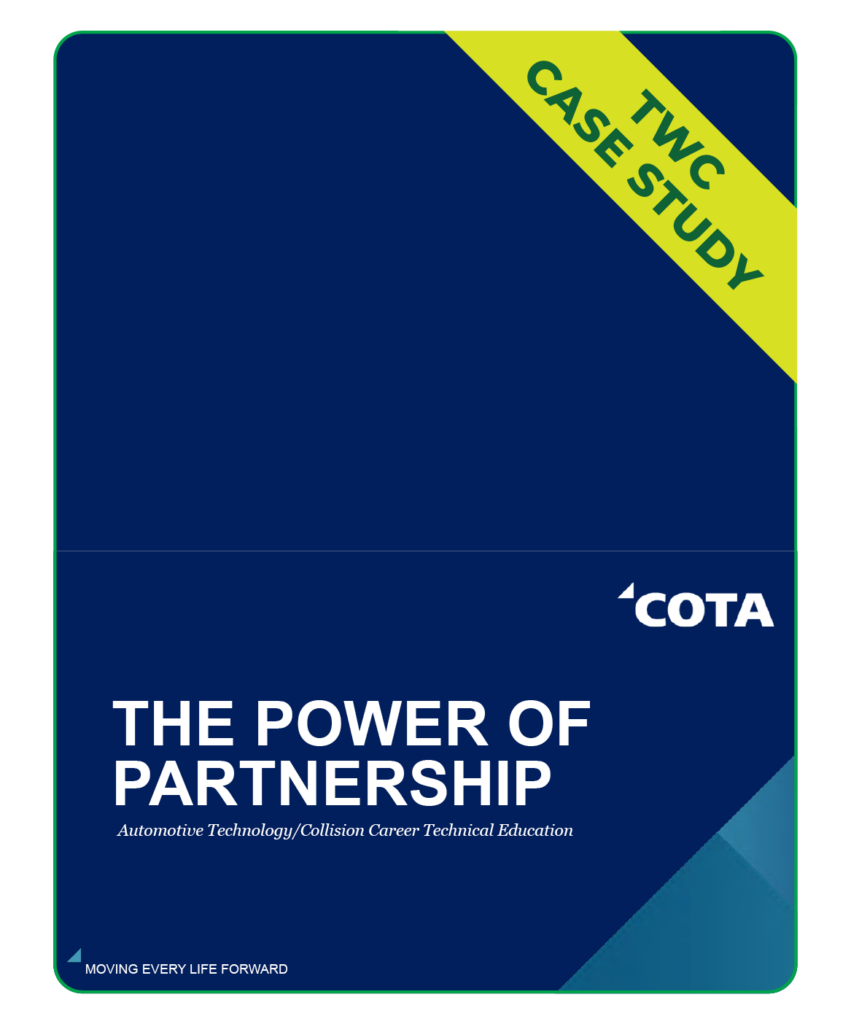
The Power of Partnership: Automotive Technology/Collision Career Technical Education Program
This multimedia case study details an internship program developed by the Central Ohio Transit Authority (COTA) and Transport Workers Union (TWU) Local 208. This resource contains a brief written summary, presentation slides, and video of a COTA-TWU Local 208 presentation. The entire June 7, 2022 TWC webinar, Recruiting and Developing Today’s Transit Workforce, can be found here. The complete webinar recording includes a question and answer session, beginning at 51:53, that covers more detail on this and other recruitment initiatives.
Transit Workforce Center; Central Ohio Transit Authority (COTA); Transport Workers Union Local 208
June 2022
To meet its need for vehicle maintenance technicians, COTA leadership partnered with TWU Local 208 and Columbus City Schools to provide a Vehicle Maintenance Internship Program, helping students already enrolled in an automotive program to develop additional technology competencies and prepare them for entry level positions. The COTA Vehicle Maintenance Internship Program provides career technical center high school students who have completed their junior year in a participating career-technical program the opportunity to work as paid interns in the Vehicle Maintenance Department at COTA. Students receive classroom training, hands-on training, laboratory experiences, and are partnered with mentors in preparation to enter the workforce as entry level automotive/collision technologies service technicians. From this foundation, COTA has now established a state-registered pre-apprenticeship and apprenticeship program to support vehicle technician hiring, retention, and workforce development.
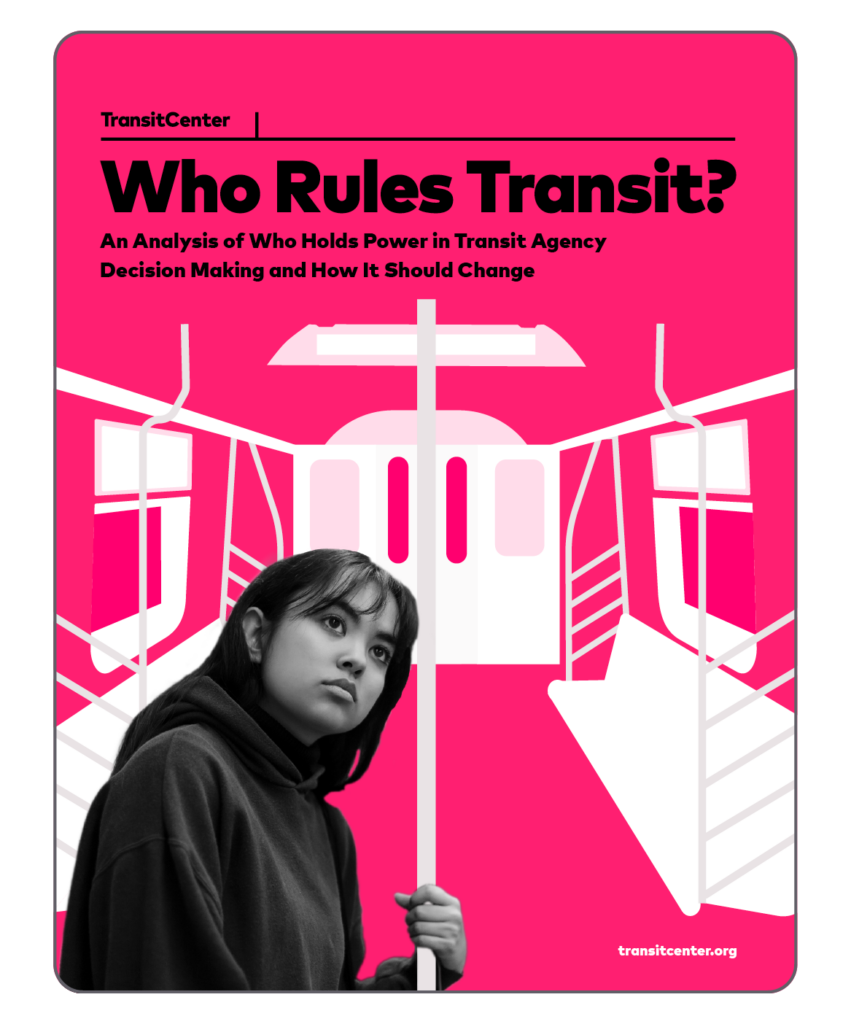
Who Rules Transit?
This report examines who makes key decisions at transit agencies and who is affected by these decisions. The report provides case studies of agencies that have taken steps to give transit riders and workers more power in the decision-making process.
TransitCenter
April 2022
TOPICS: Community Engagement , Policy and Planning
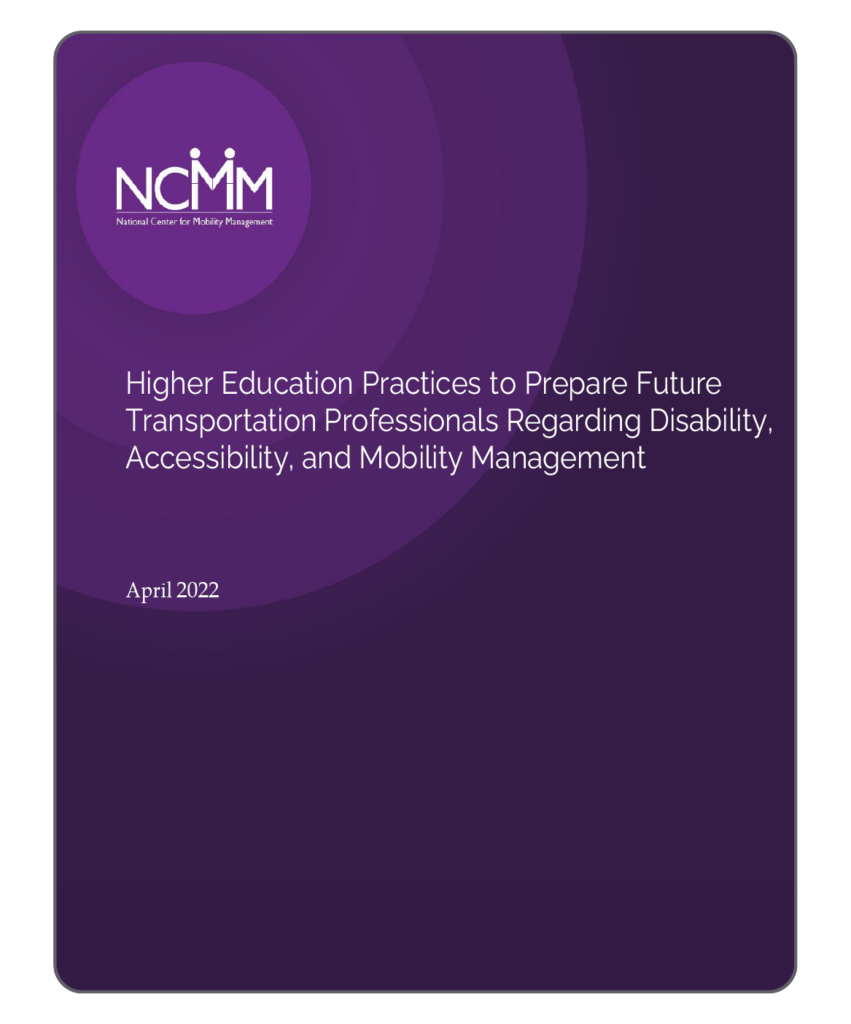
Higher Education Practices to Prepare Future Transportation Professionals Regarding Disability, Accessibility, and Mobility Management
This National Center for Mobility Management (NCMM) Information Brief provides the results of a NCMM study regarding mobility management, disability, and accessibility content in higher education preparation programs. This brief offers recommendations regarding how to integrate such content, as well as information on the recruitment and retention of individuals with disabilities in the transportation industry.
Please click the link below to view NCMM’s Mobility Management in Practice Series; this brief is listed among several 2022 publications.
National Center for Mobility Management (NCMM)
April 2022
TOPICS: Community Engagement , Hiring and Recruitment , Retention , Training
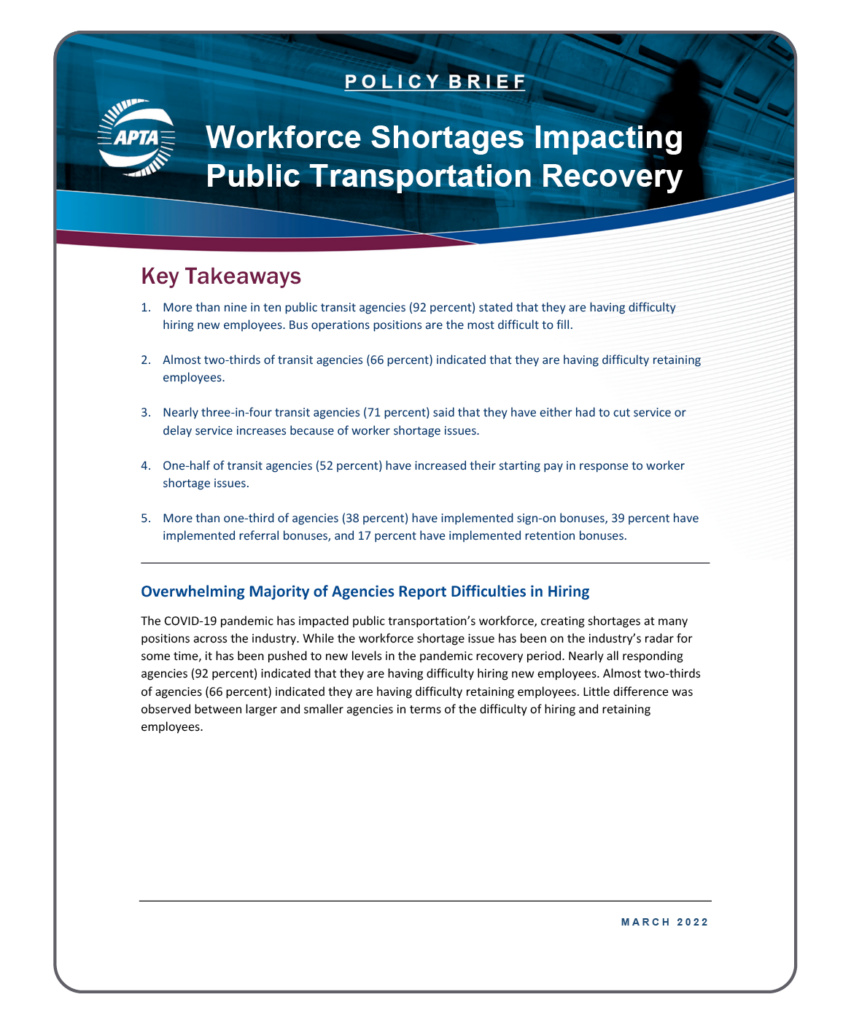
Workforce Shortages Impacting Public Transportation Recovery
This policy brief summarizes results from a survey the American Public Transportation Association (APTA) conducted with transit agencies in early 2022. The majority of responding agencies reported difficulties with hiring, with bus operator recruitment being the biggest challenge.
American Public Transportation Association
March 2022
TOPICS: Hiring and Recruitment , Workforce Shortage
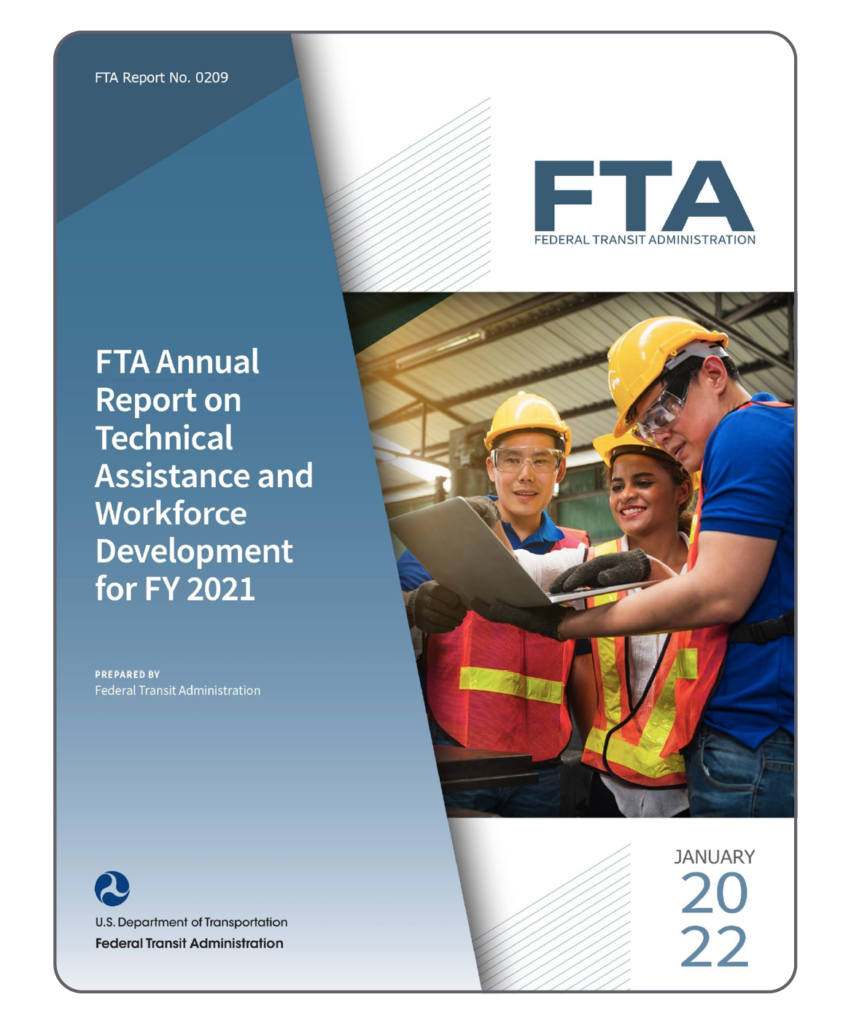
FTA Annual Report on Technical Assistance and Workforce Development for FY 2021
This statutorily required annual report provides information on FTA’s Technical Assistance and Workforce Development Program (49 U.S.C. § 5314), including technical assistance, workforce development, standards, human resources, and training projects active in Fiscal Year 2021. The report also describes FTA’s process for making upcoming allocations for FY 2022.
Federal Transit Administration
January 2022
TOPICS: Policy and Planning
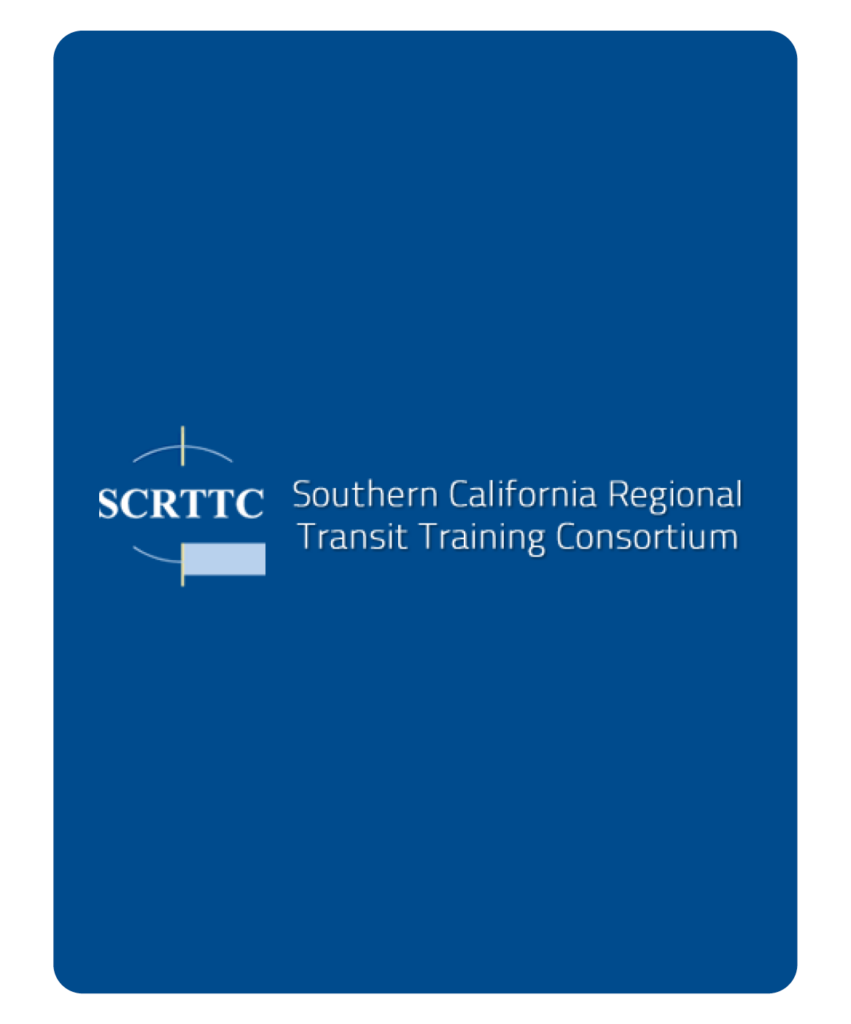
California Transit Training Consortium (CTTC)
The California Transit Training Consortium, founded as the Southern California Regional Transit Training Consortium, is comprised of community colleges, universities, transit agencies, and public and private partners collaborating to design, develop, and deliver technical training for the improvement of the transit workforce in California.
California Transit Training Consortium
TOPICS: Training
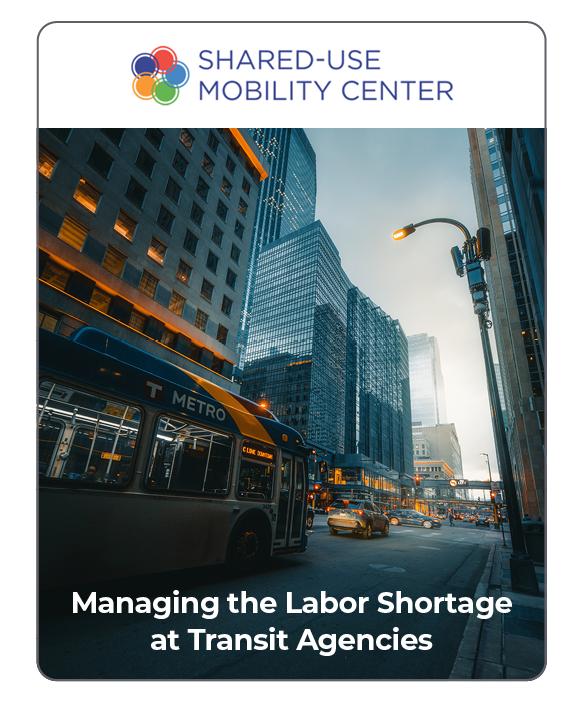
Managing the Labor Shortage at Transit Agencies
This article examines labor shortages in the public transit industry. It focuses on the following points:
- Transit agencies across the United States are experiencing a significant shortage in labor, that the COVID-19 pandemic has worsened. This shortage is negatively impacting the services they provide to the public.
- Employees at transit agencies have a significantly higher median age than employees in other industries.
- Transit agencies should use data and information to consider recruiting and retaining employees for the long term.
Shared-Use Mobility Center
November 2021
TOPICS: Hiring and Recruitment , Retention , Workforce Shortage
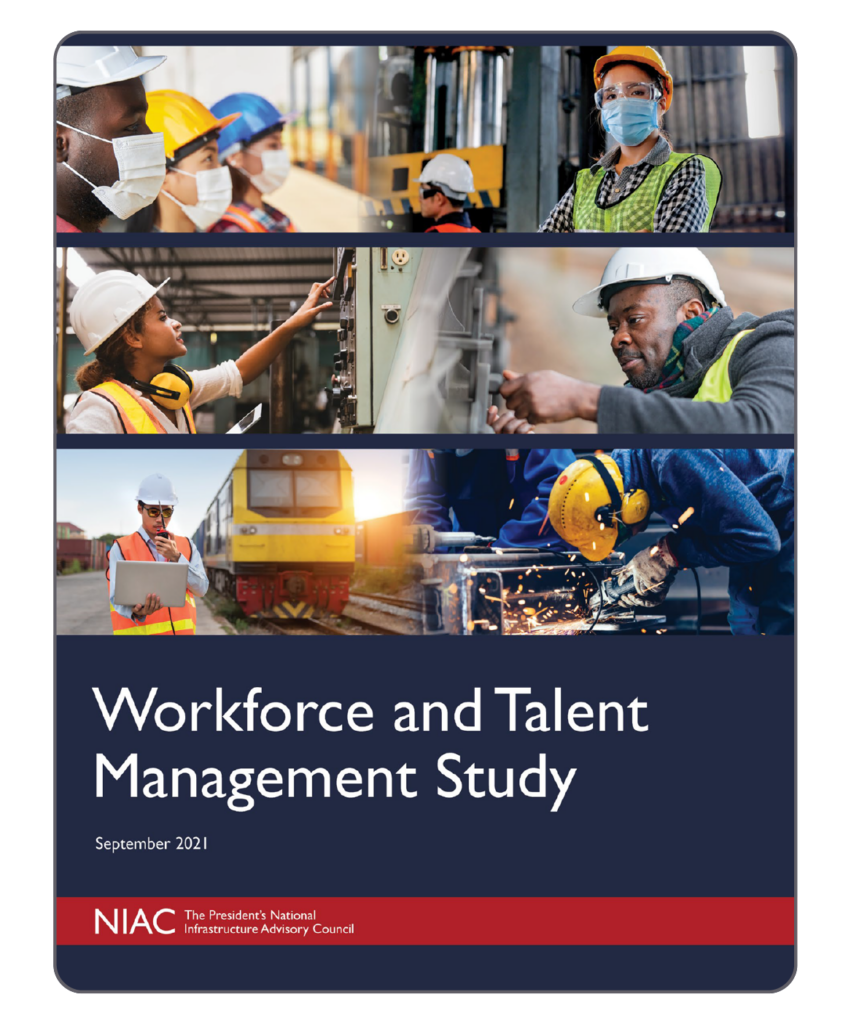
Workforce and Talent Management Study
This study provides an in-depth examination of the U.S workforce development system and offers nine recommendations to inform future policy development and keep the critical infrastructure workforce nimble in the face of change. The recommendations are guided by the principle that all workers must have access to the education, training, and resources necessary to begin and advance in critical infrastructure careers
National Infrastructure Advisory Council
September 2021
The Education/Career Readiness Continuum graphic on page 11 of the report might be useful to agencies considering comprehensive workforce development plans.

Rural Apprenticeships for Young People: Challenges and Strategies for Success
This report evaluates four rural registered apprenticeship programs in Maine, Arizona, Missouri, and Mississippi and identifies the key strategies in their approaches. It begins with defining rural apprenticeship programs and exploring their obstacles and benefits, and then discusses each of the four cases and concludes with recommendations for decisionmakers seeking to expand apprenticeship access in rural communities.
Urban Institute
August 2021
TOPICS: Apprenticeship , Community Engagement , Policy and Planning
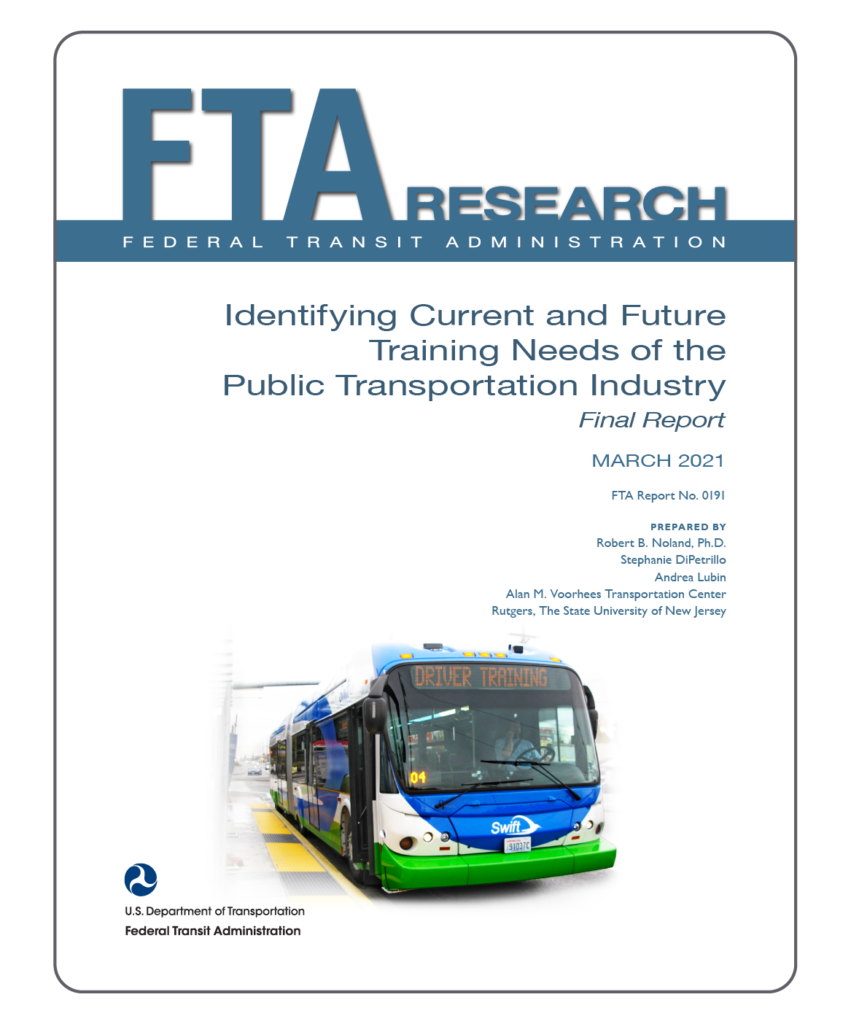
Identifying Current and Future Training Needs of the Public Transportation Industry
This report documents a study commissioned by the National Transit Institute (NTI) as part of its work to address training needs. The study investigates skills gaps among the workforce of the U.S. public transportation industry, identifies strategies to address those gaps, and explores approaches to more successfully recruit and retain the full spectrum of the transit workforce, from frontline to technical to professional staff.
Federal Transit Administration; National Transit Institute
June 2021
TOPICS: Hiring and Recruitment , Policy and Planning , Retention
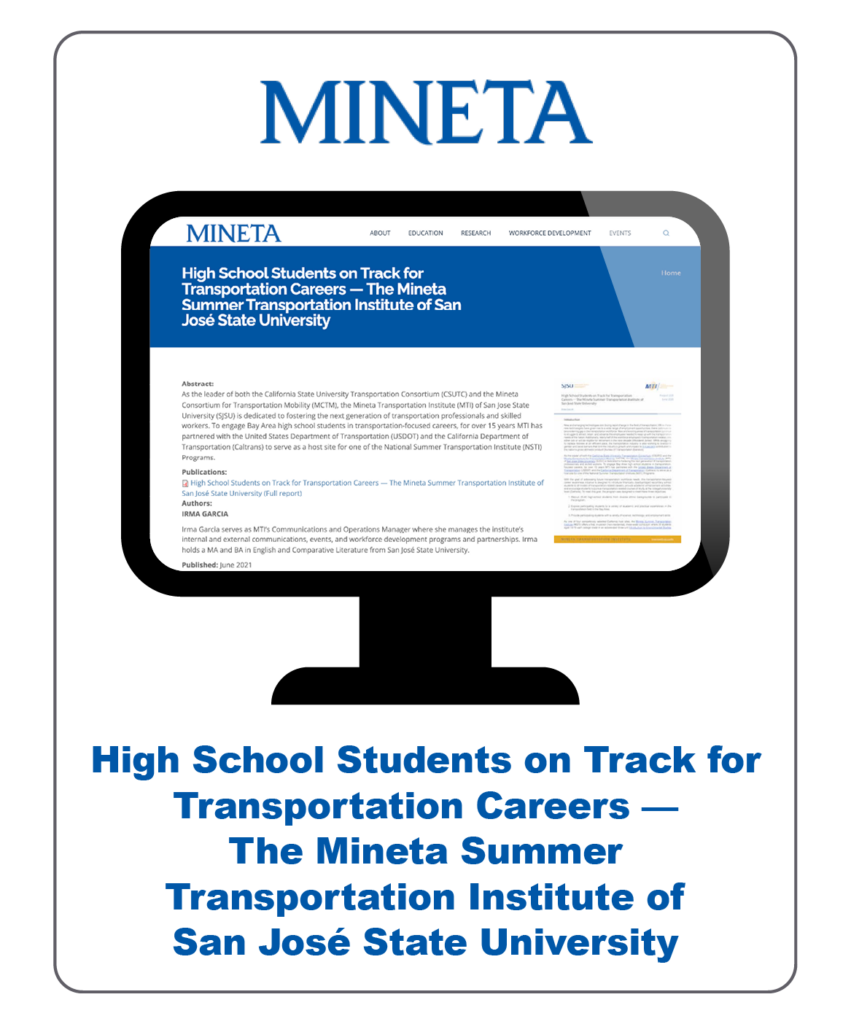
High School Students on Track for Transportation Careers
Mineta Transportation Institute
June 2021
TOPICS: Career Pathways , Community Engagement , Policy and Planning
This report provides an overview of the Mineta Summer Transportation Institute, one of the National Summer Transportation Institute (NSTI) Programs, which recruits high-school students, exposes them to a variety of academic and practical experiences in the transportation field in the Bay Area, and provides participating students with a variety of science, technology, and employment skills. The report shares program history, demographics, activities, etc.
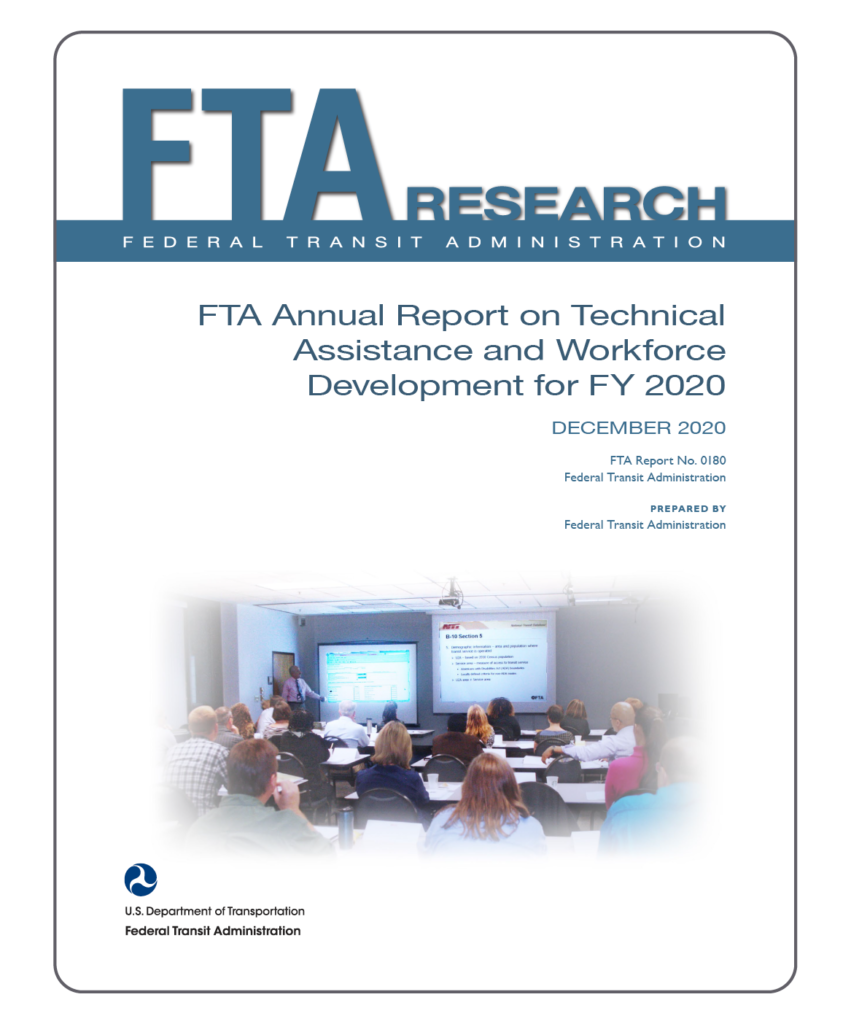
FTA Annual Report on Technical Assistance and Workforce Development for FY 2020
This statutorily required annual report provides information on FTA’s Technical Assistance and Workforce Development Program (49 U.S.C. § 5314). It provides information on technical assistance, workforce development, standards, human resources, and training projects active in FY 2020. The report also includes information on FTA’s process for making upcoming allocations for FY 2021.
Federal Transit Administration
May 2021

The Transit Workforce: A Path Forward
This plan was developed collaboratively between the Delaware Valley Regional Planning Commission and Temple University as a guide to addressing the systematic challenges facing Greater Philadelphia’s primary transit agencies: SEPTA, PATCO, and NJ Transit. This plan is intended as a guide for possible opportunities for the transit agencies to address identified challenges and themes and prioritized by participating stakeholders as areas that need to be addressed in the short term to ensure long-term success: pipeline development, pathways, and processes.
Delaware Valley Regional Planning Commission; Temple University
May 2021
TOPICS: Career Pathways , Policy and Planning , Workforce Shortage
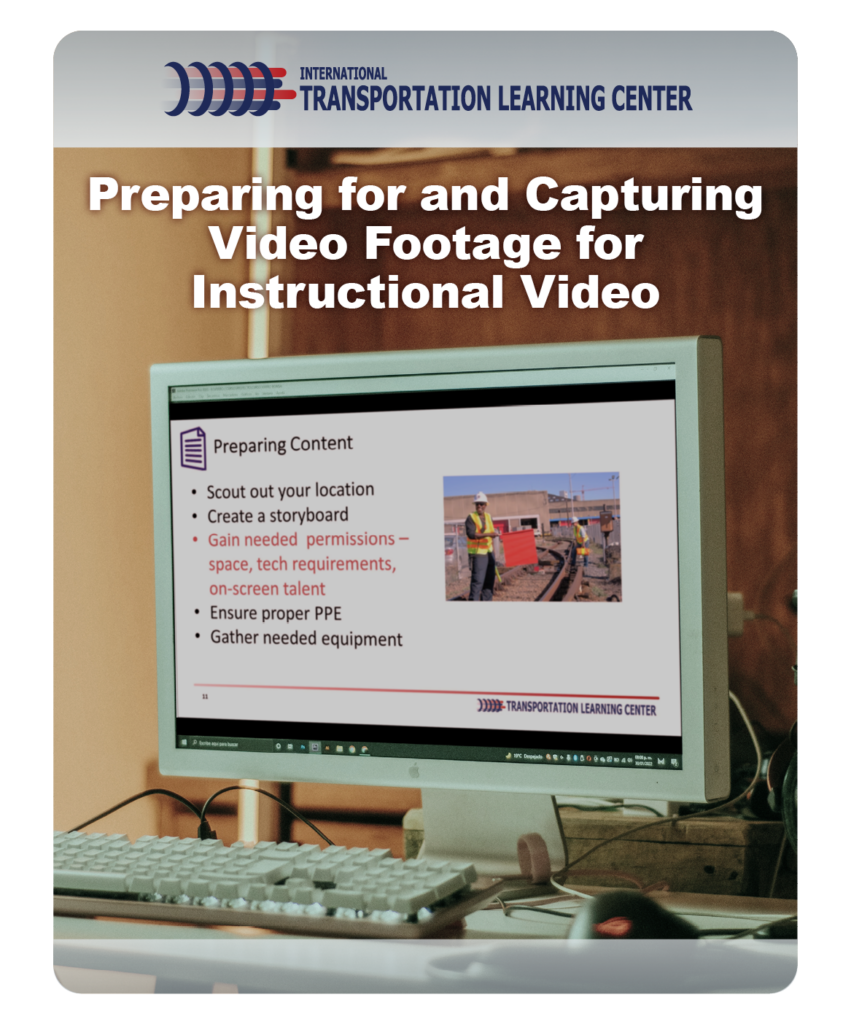
Preparing for and Capturing Video Footage for Instructional Video
International Transportation Learning Center
March 2021
TOPICS: Trainer and Mentor Development , Training
Digital and video instruction are two ways in which transit agencies can enhance their current training methods for their frontline employees. In a previous skill booster event, we showcased video editing software Filmora™. But before you can edit video, you need to capture it. As videography expert and the presenter of this session Kenyon Corbett says, “there is no replacement for good audio and video.”
This video uses real-world examples to demonstrate the Dos and Don’ts of capturing video and audio for instructional videos. It also outlines how best to prepare for this process.
This is one of several skill booster events held by the International Transportation Learning Center (ITLC). Other webinars can be found by filtering by resource type.
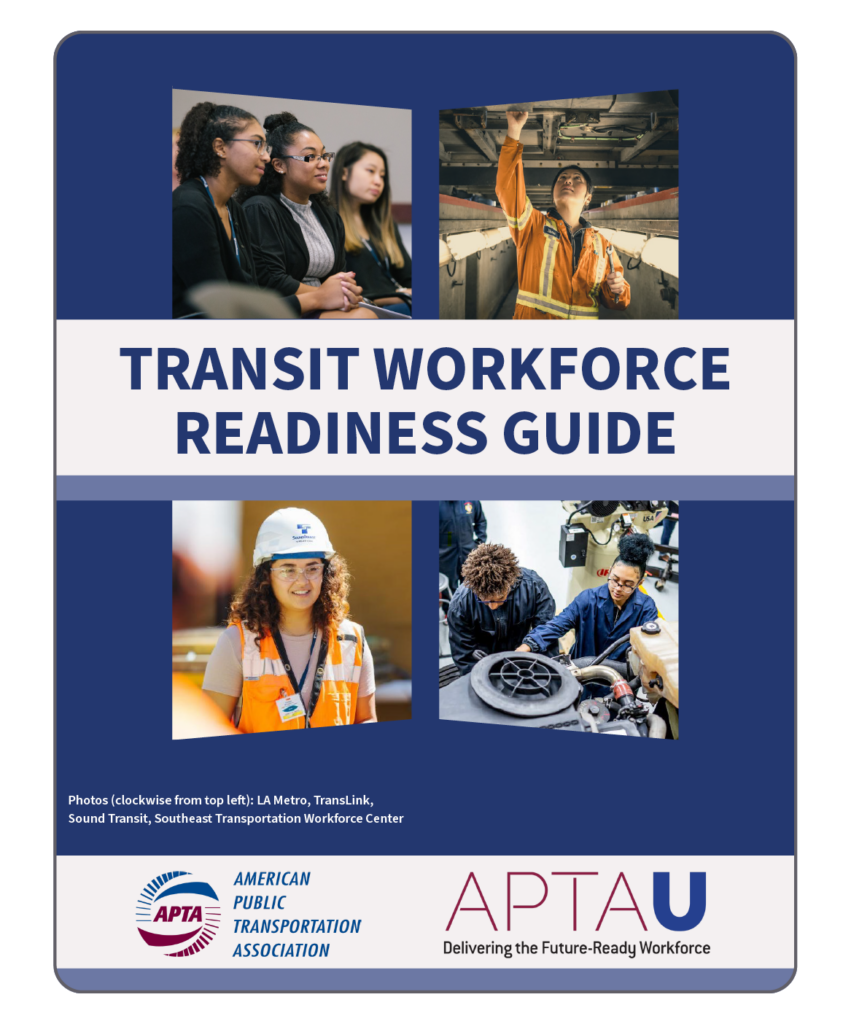
APTA Transit Workforce Readiness Guide
APTA’s Transit Workforce Readiness Guide is a highly interactive and easy-to-use online resource for executives and their staff to assist organizations in building a talent pipeline by attracting high school students into entry-level transit positions.
American Public Transportation Association
March 2021
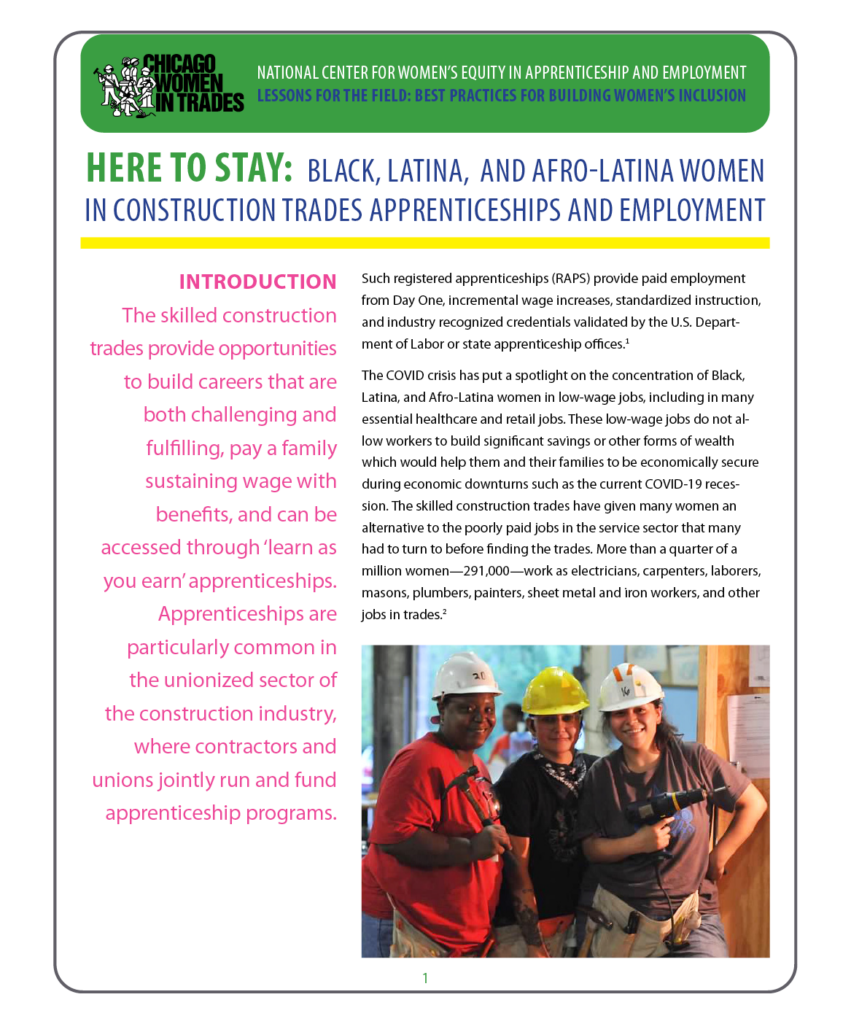
Here to Stay: Black, Latina, and Afro-Latina Women in Construction Trades Apprenticeships and Employment
Chicago Women in the Trades; Institute for Women's Policy Research
March 2021
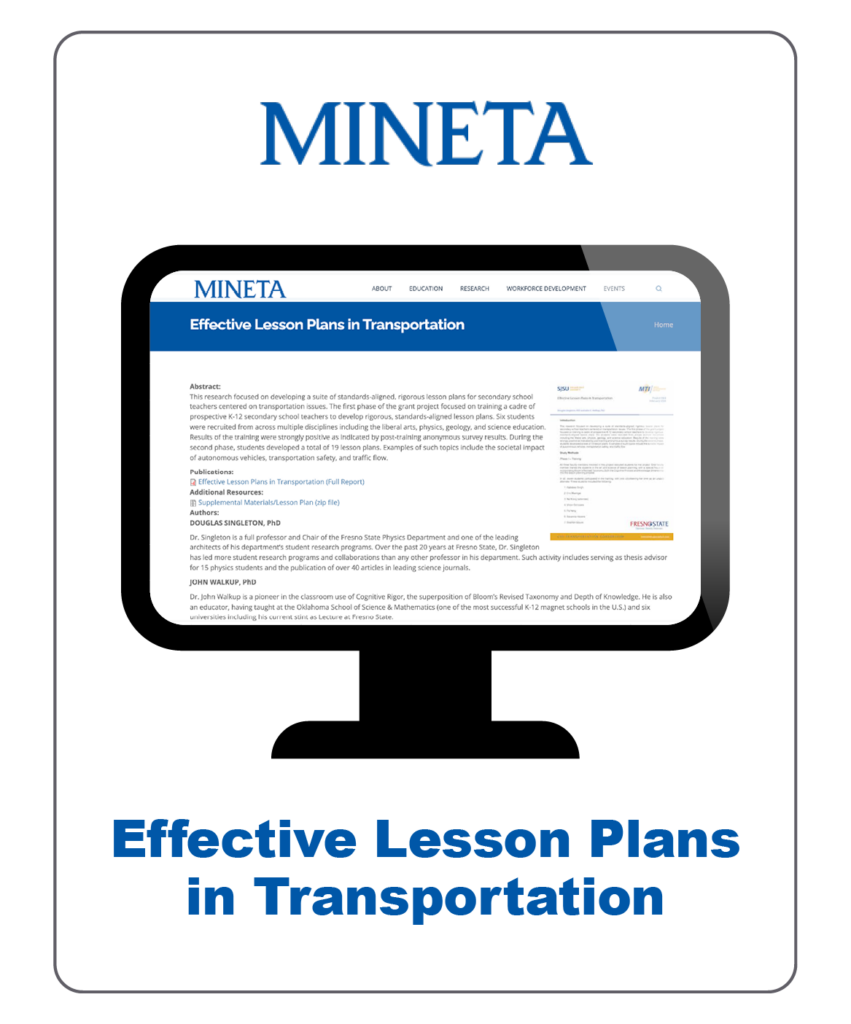
Effective Lesson Plans in Transportation
This research focuses on developing a suite of standards-aligned, rigorous lesson plans for secondary school teachers centered on transportation issues, such as the societal impact of autonomous vehicles, transportation safety, and traffic flow. It includes a report and lesson plans.
Mineta Transportation Institute
February 2021
TOPICS: Career Pathways , Policy and Planning
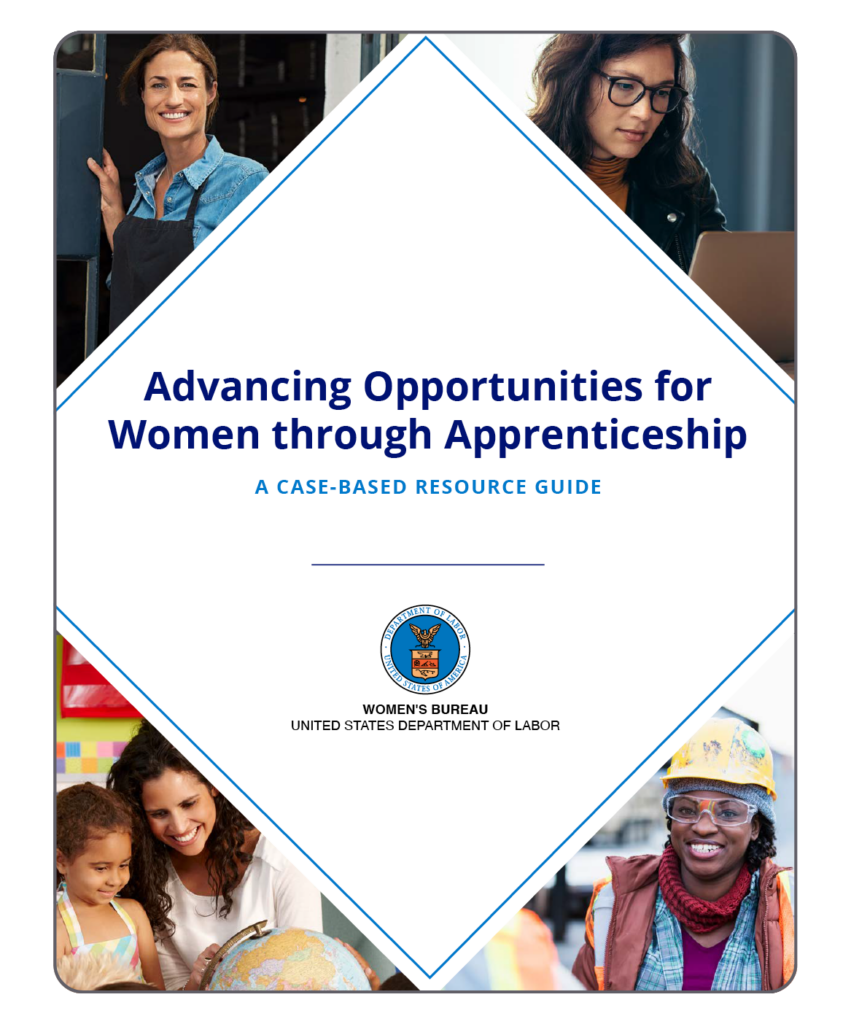
Advancing Opportunities for Women through Apprenticeship: A Case-Based Resource Guide
The Advancing Opportunities for Women through Apprenticeship case-based resource guide provides a framework for meaningful expansion of apprenticeship programs for women. The guide includes case studies on four high-quality pre-apprenticeship and apprenticeship programs in a range of industry sectors.
Department of Labor
TOPICS: Apprenticeship , Career Pathways , Community Engagement , Mentorship , Policy and Planning , Retention
The case studies were developed through on-site visits to the program locations; interviews with program staff, partners, and current and former participants; and a review of program materials and data. They provide information and insights related to partnership development, program design, and outcomes that outline how pre-apprenticeship and apprenticeship programs can help women access family-sustaining jobs and quality career pathways. The guide identifies common strategies across the four programs to help others learn how to create programs that successfully open pathways to in-demand jobs for women through apprenticeships.

Improving the Health and Safety of Transit Workers with Corresponding Impacts on the Bottom Line
Transit Cooperative Research Program
December 2020
TOPICS: Safety and Health
Transit workers experience more health and safety problems than the general workforce, primarily as a result of a combination of physical demands, environmental factors, and stresses related to their jobs. In response, TCRP Research Report 217 focuses on the prevalence of these conditions, costs associated with these conditions, and statistical analysis of data on participation in and the results of health and wellness promotion programs.
Contributor(s): National Academies of Sciences, Engineering, and Medicine; Transportation Research Board; Transit Cooperative Research Program; Jennifer Stoloff, Frankie Clogston, Fred Bellemore, Cynthia Khan, Jeff Pongsiri, Timothy Beggs, Econometrica, Inc.; Xinge Wang, Karitsa Holdzkom, Transportation Learning Center
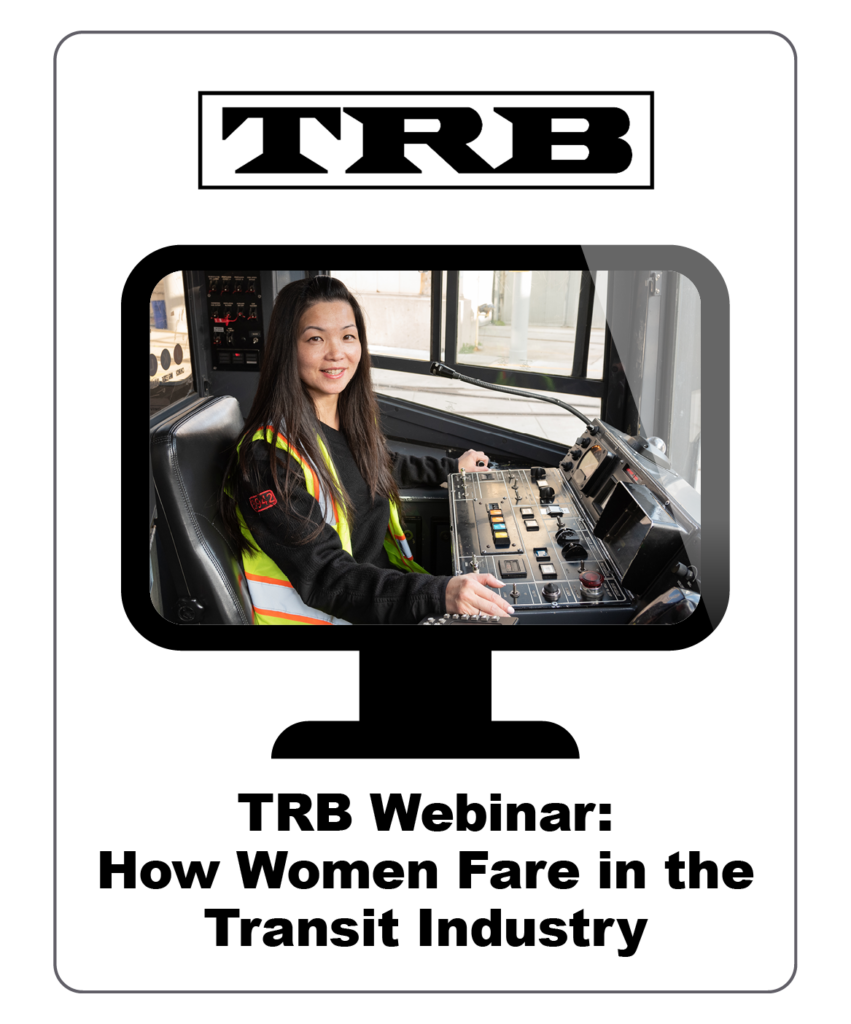
How Women Fare in the Transit Industry
In this TRB webinar, panelists discuss strategies to support women in transit and share examples of transit agencies that have effectively implemented programs to retain and advance women in the industry.
Transportation Research Board
September 2020
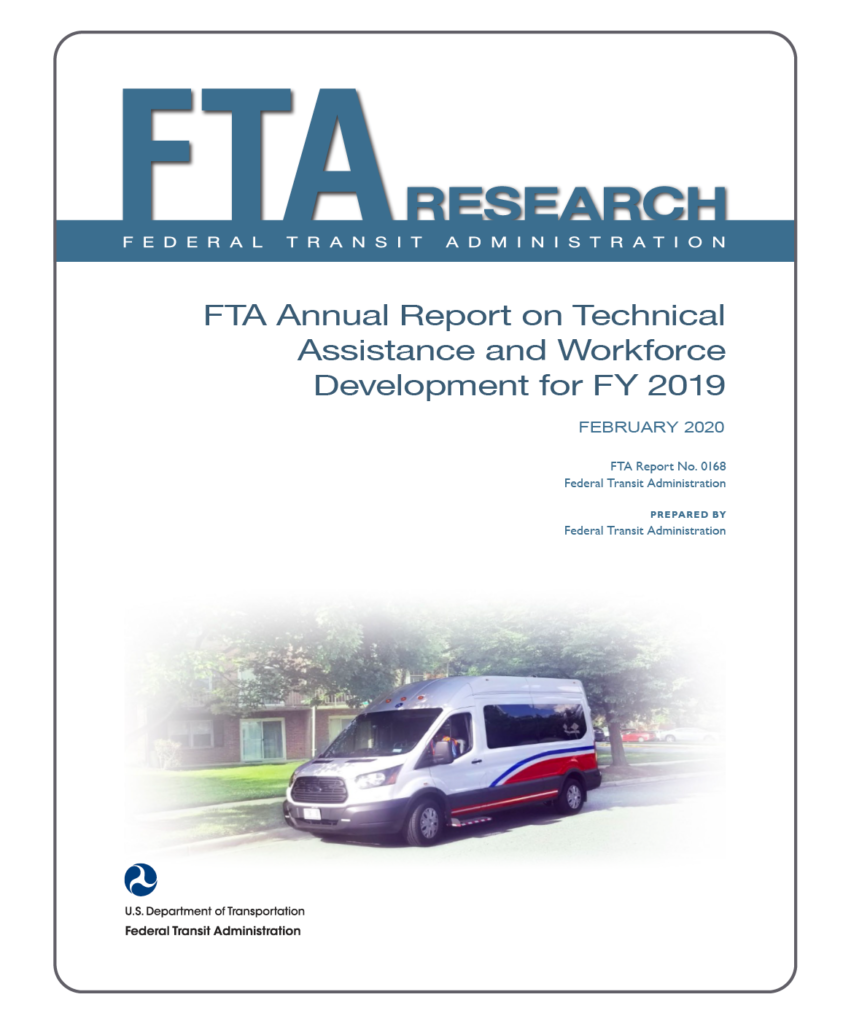
FTA Annual Report on Technical Assistance and Workforce Development for FY 2019
This statutorily required annual report provides information on FTA’s Technical Assistance and Workforce Development Program (49 U.S.C. § 5314). This annual report provides information on any technical assistance, workforce development, standards, human resources, and training projects active in Fiscal Year (FY) 2019.
Federal Transit Administration
July 2020
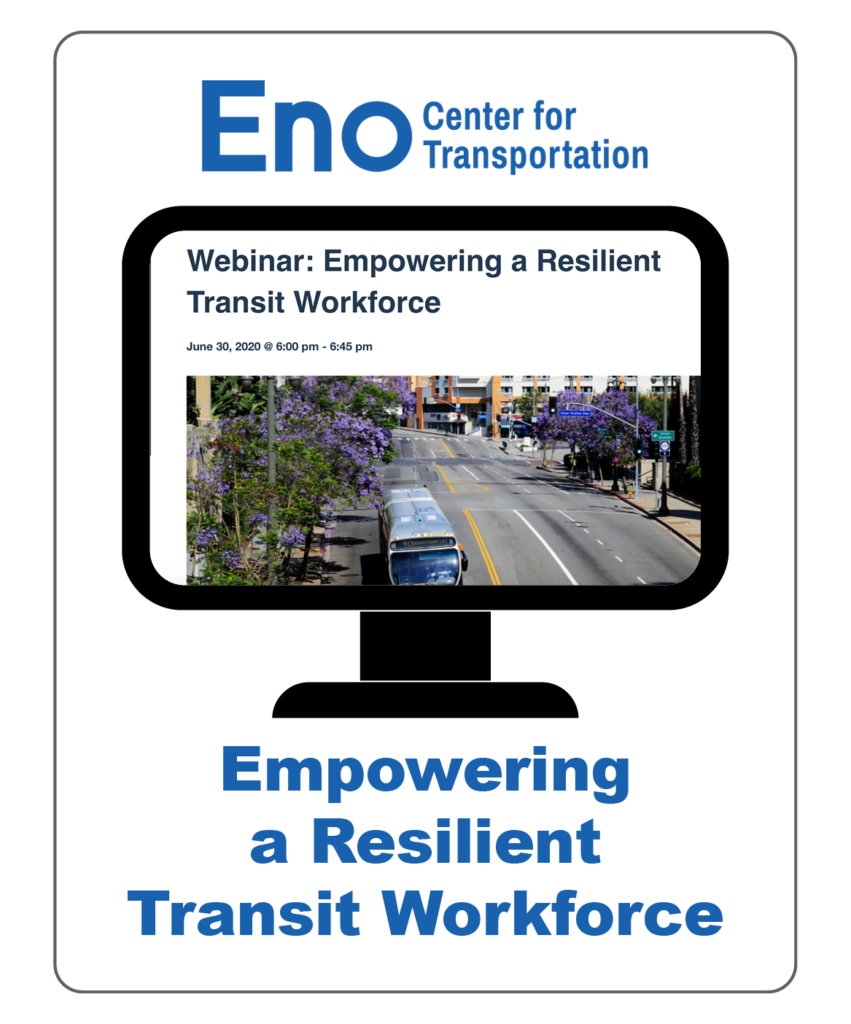
Empowering a Resilient Transit Workforce
This webinar identifies critical labor market benchmarks and addresses ways to cultivate a more resilient and empowered transit workforce, particularly in the post-COVID world. The speakers delve into resiliency challenges and education and training solutions.
Eno Center of Transportation
June 2020
TOPICS: Hiring and Recruitment , Retention , Workforce Shortage

What We Think We Learned: Transit Workforce Interview Themes
This report is a synopsis of the transit industry and workforce development interviews conducted in Greater Philadelphia from December 2019 to February 2020. The research team emphasized three distinct areas where the need for improvement should be elevated: Pipeline Development, Pathways, and Processes. While there are several ongoing successes within the transit industry, this document strives to focus on key identified gaps most conducive for joint problem-solving.
Delaware Valley Regional Planning Commission
March 2020
TOPICS: Apprenticeship , Career Pathways , Policy and Planning , Retention , Training
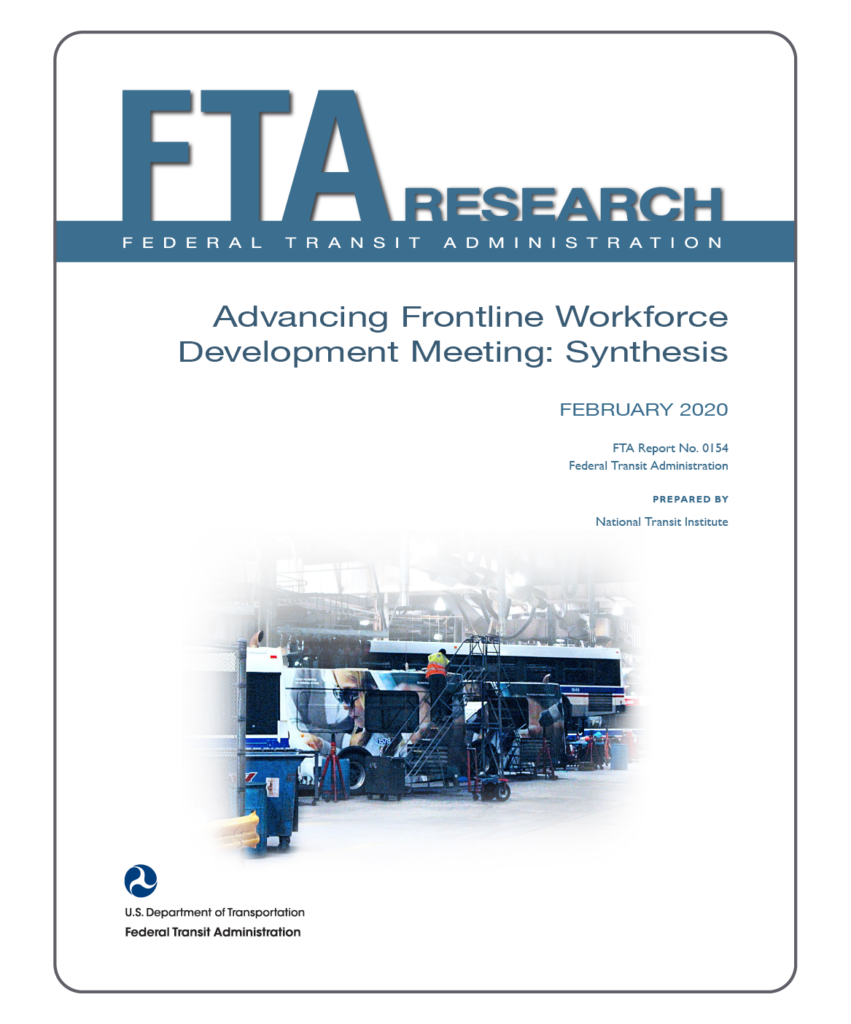
Advancing Frontline Workforce Development Meeting: Synthesis
This report synthesizes findings from a two-day gathering of more than two dozen transit industry labor and management representatives who engaged in in-depth discussions on frontline workforce training needs across the U.S. The purpose of the meeting was to identify immediate, short-term, and long-term training needs for the frontline public transportation workforce in the U.S. and ways to connect apprenticeship and formal training programs to support these needs.
National Transit Institute; Federal Transit Administration; International Transportation Learning Center
February 2020
TOPICS: Apprenticeship , Hiring and Recruitment , Policy and Planning , Training
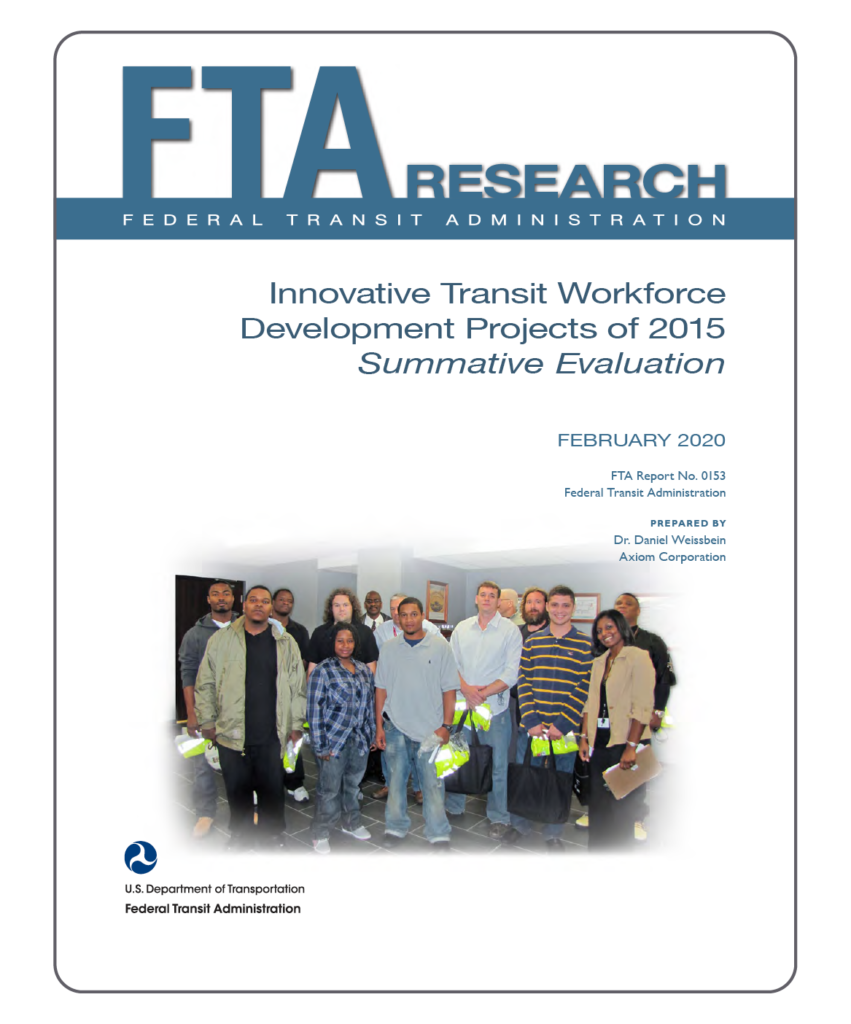
Innovative Transit Workforce Development Projects of 2015: Summative Evaluation
This report provides the results of an evaluation of Innovative Transit Workforce Development Program projects awarded in Fiscal Year 2015. Based on a competitive application process, FTA awarded 16 workforce development projects to transit authorities, higher education institutions, Native American tribes, and nonprofit organizations individually or as a consortium.
Federal Transit Administration
February 2020
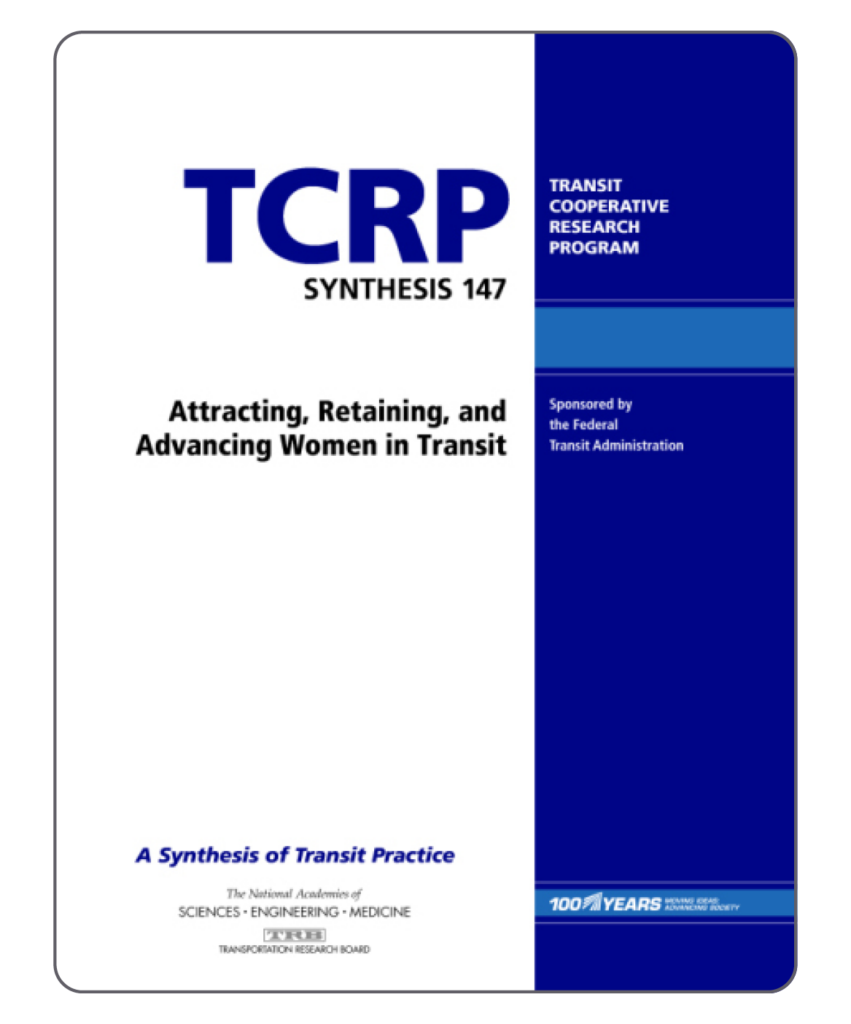
Attracting, Retaining, and Advancing Women in Transit
This TCRP report explores the strategies that have been deployed in transit and other related industries in order to attract, retain, and advance women in a variety of roles. It includes a survey and case studies from several major transit agencies.
Transit Cooperative Research Program
January 2020
TOPICS: Community Engagement , Hiring and Recruitment , Retention
Contributor(s): National Academies of Sciences, Engineering, and Medicine; Transportation Research Board; Transit Cooperative Research Program; ICF Allison Alexander
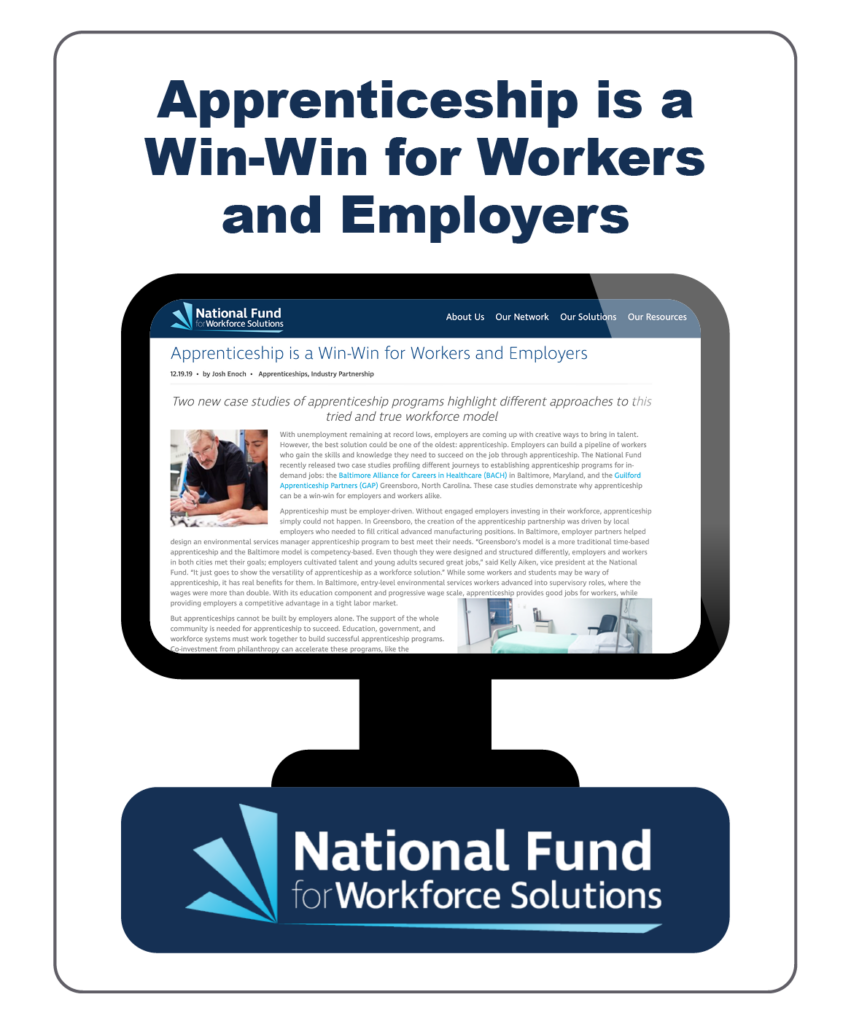
Apprenticeship is a Win-Win for Workers and Employers
These two case studies provide an analysis of apprenticeship programs at Baltimore Alliance for Careers in Healthcare (BACH) in Baltimore, Maryland, and the Guilford Apprenticeship Partners (GAP) in Greensboro, North Carolina. The case studies highlight the different approaches each organization used for their apprenticeship programs.
National Fund for Workforce Solutions
December 2019
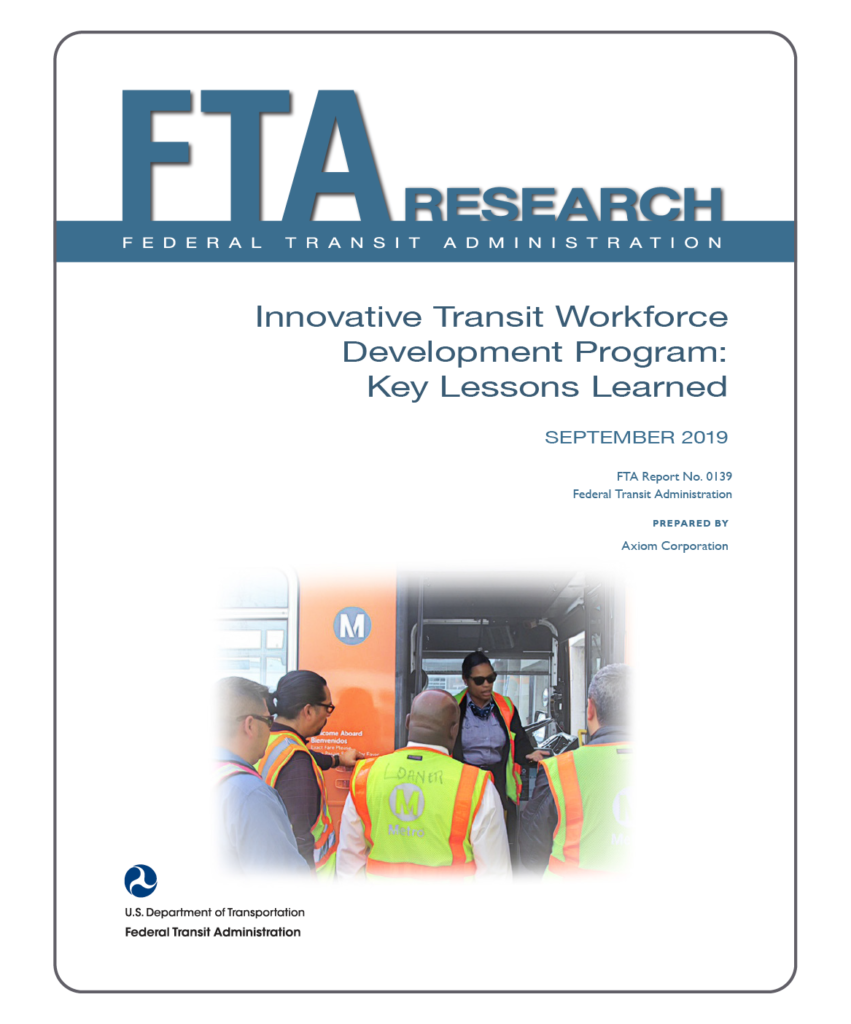
Innovative Transit Workforce Development Program: Key Lessons Learned
This report summarizes the impacts and lessons learned of individual project models, identifies transit workforce needs, and develops recommendations for the continuation or improvement of FTA’s workforce development efforts and investments.
Federal Transit Administration
September 2019
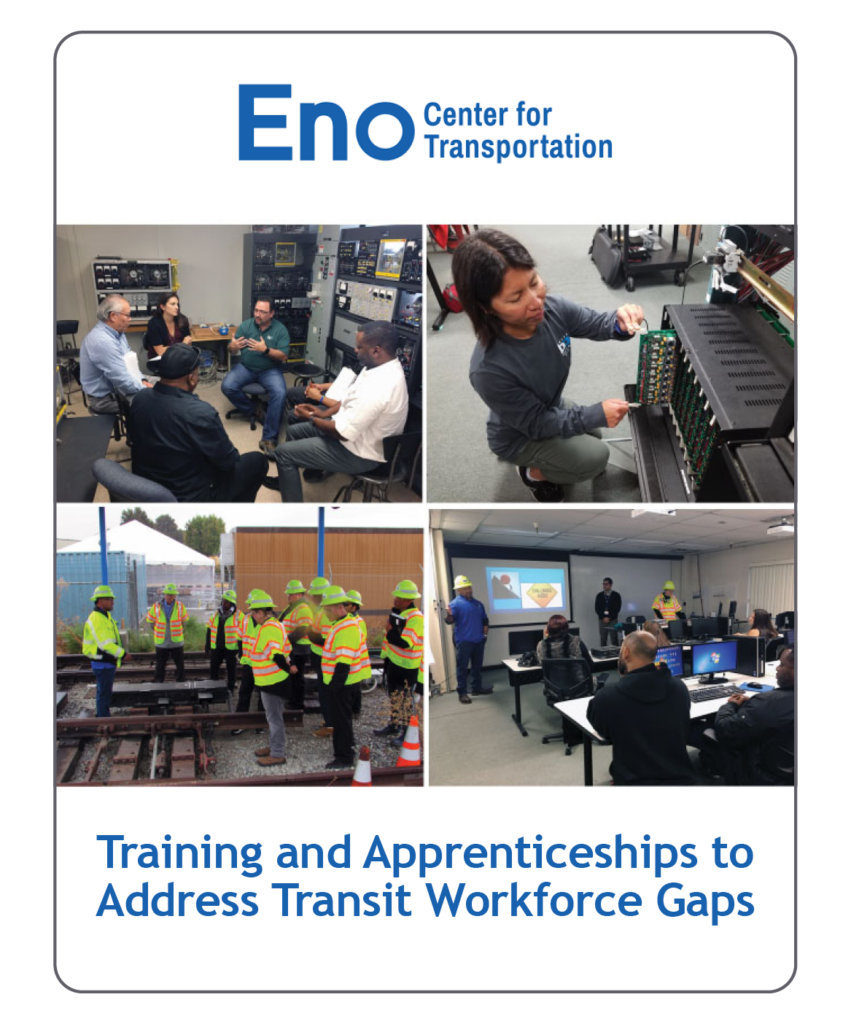
Training and Apprenticeships to Address Transit Workforce Gaps
This piece, penned by Jack Clark of the International Transportation Learning Center (ITLC), explores the role of training and apprenticeship programs in meeting workforce needs in transit, with a focus on operators. It discusses a few leading examples of apprenticeship programs in transit, as well as the role of mentorship in a strong apprenticeship program.
Eno Center for Transporation
August 2019
TOPICS: Apprenticeship , Career Pathways , Mentorship , Training
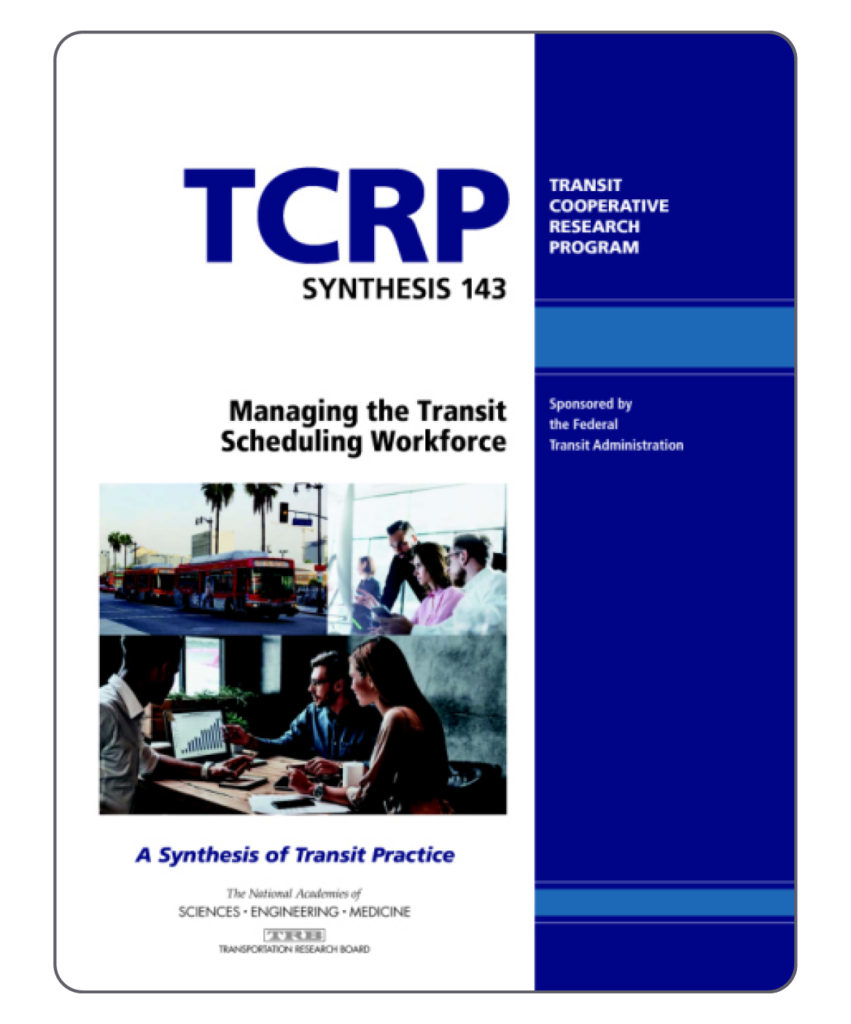
Managing the Transit Scheduling Workforce
Transit Cooperative Research Program
TOPICS: Career Pathways , Hiring and Recruitment , Training
This report is designed to assist transit agencies in managing their transit scheduling human capital. The report presents an overview of the practices and procedures transit agencies use to manage their scheduling workforce and will allow agencies to compare what they are currently doing with what others are doing in this area. The report also analyzes how transit systems are evolving their practices to adapt to industry and technological changes. It provides transit systems with new ideas and strategies to retain good schedulers.
Contributor(s): National Academies of Sciences, Engineering, and Medicine; Transportation Research Board; Transit Cooperative Research Program; Transit Cooperative Research Program Synthesis Program; Michael J. Walk; James P. Cardenas; Kristi Miller; Jessica Alvarez; Sandy Davis; Peter Hadley
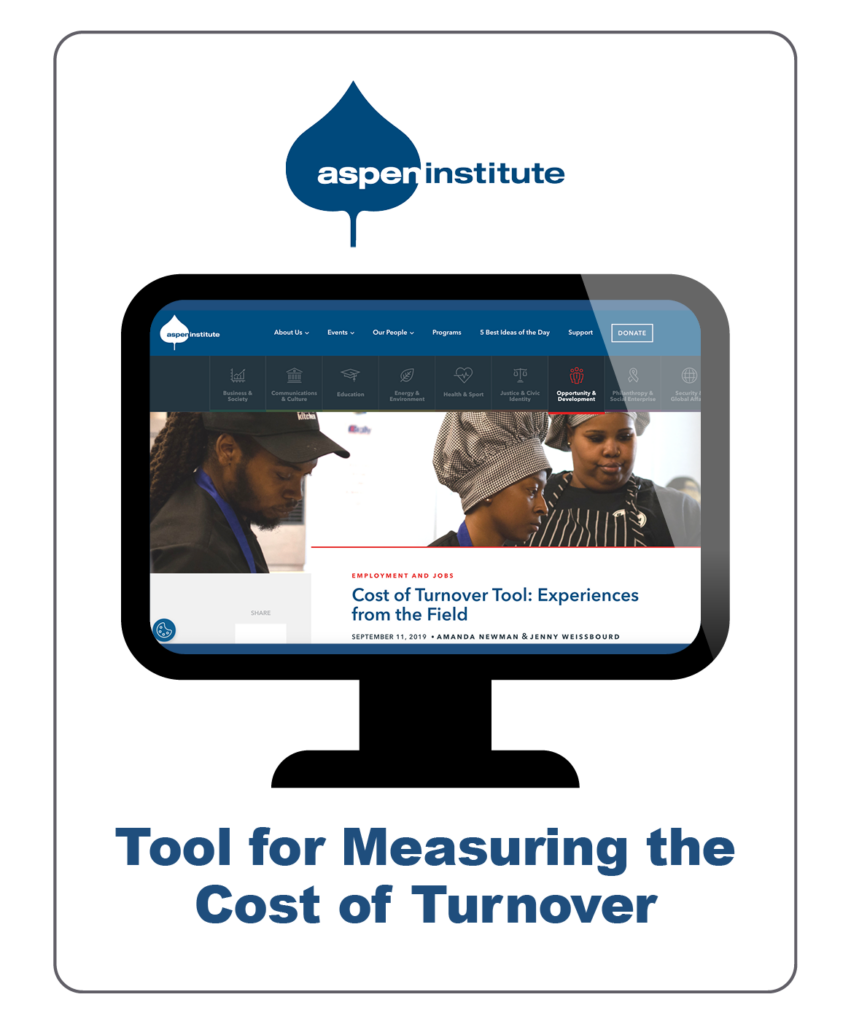
Tool for Measuring the Cost of Turnover
This Cost of Turnover Tool is a simple, “back of the envelope” calculator to help estimate how much it costs to replace staff. The tool can be useful for transit agencies looking to understand the costs of a low retention rate, or those looking to calculate the return-on-investment of mentoring or apprenticeship programs.
Aspen Institute
March 2019
TOPICS: Apprenticeship , Mentorship , Policy and Planning , Program Evaluation and ROI , Retention
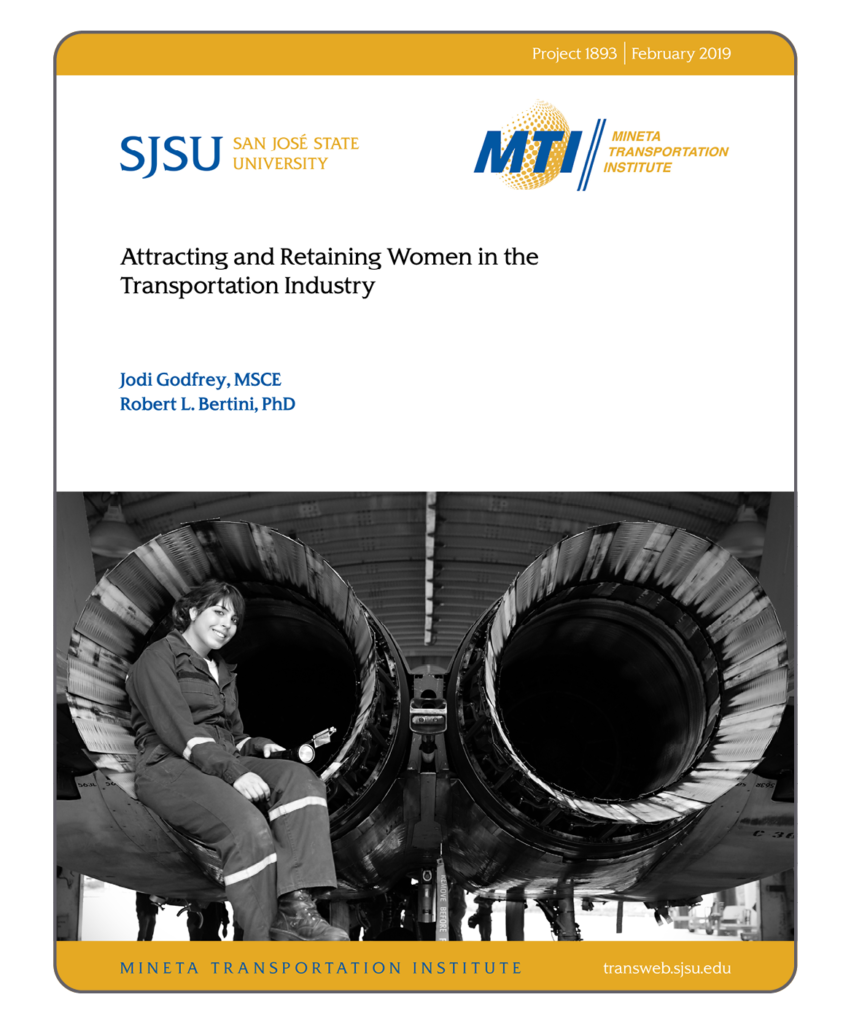
Attracting and Retaining Women in the Transportation Industry
This study synthesizes previously conducted research and identifies additional research needed to attract, promote, and retain women in the transportation industry, particularly emphasizing the importance of community-orientation and mentoring.
Mineta Transportation Institute
February 2019
TOPICS: Community Engagement , Hiring and Recruitment , Mentorship , Retention
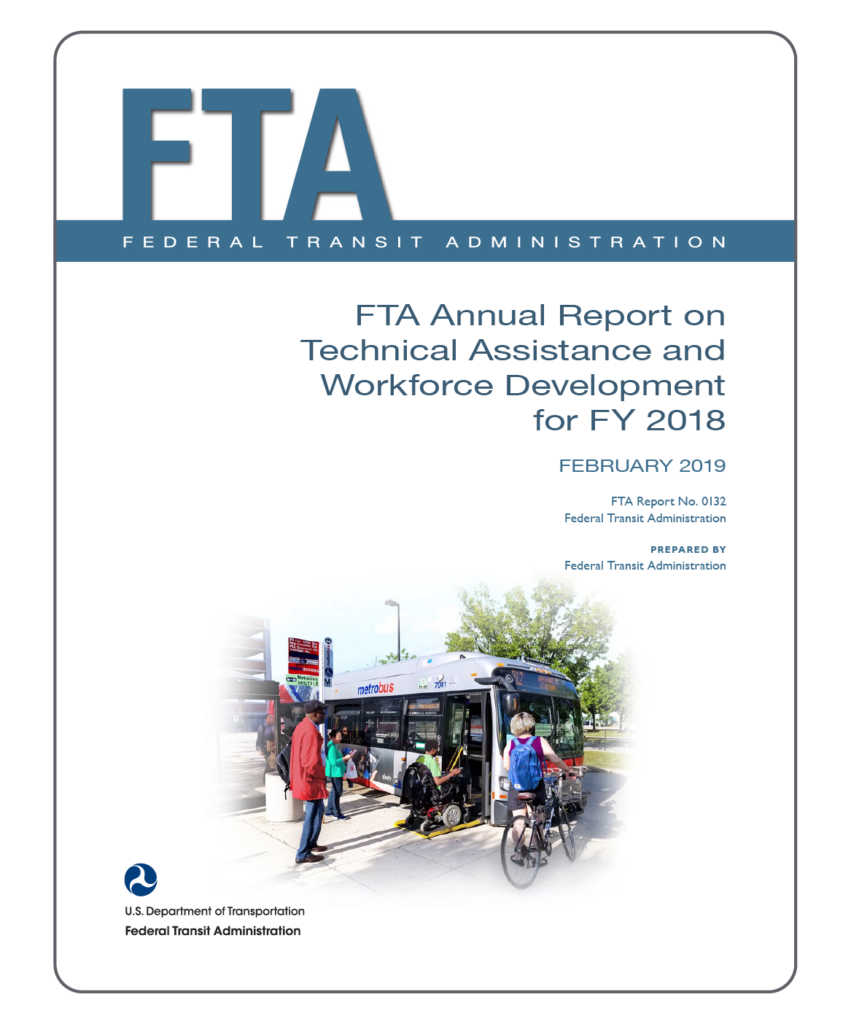
FTA Annual Report on Technical Assistance and Workforce Development for FY 2018
This annual report to Congress provides information on Fiscal Year 2018 technical assistance, standards, human resources and training projects to improve public transportation as authorized by federal public transportation law (49 U.S.C. § 5314). The report also includes information on FTA’s process for making allocations for FY 2019.
Federal Transit Administration
February 2019
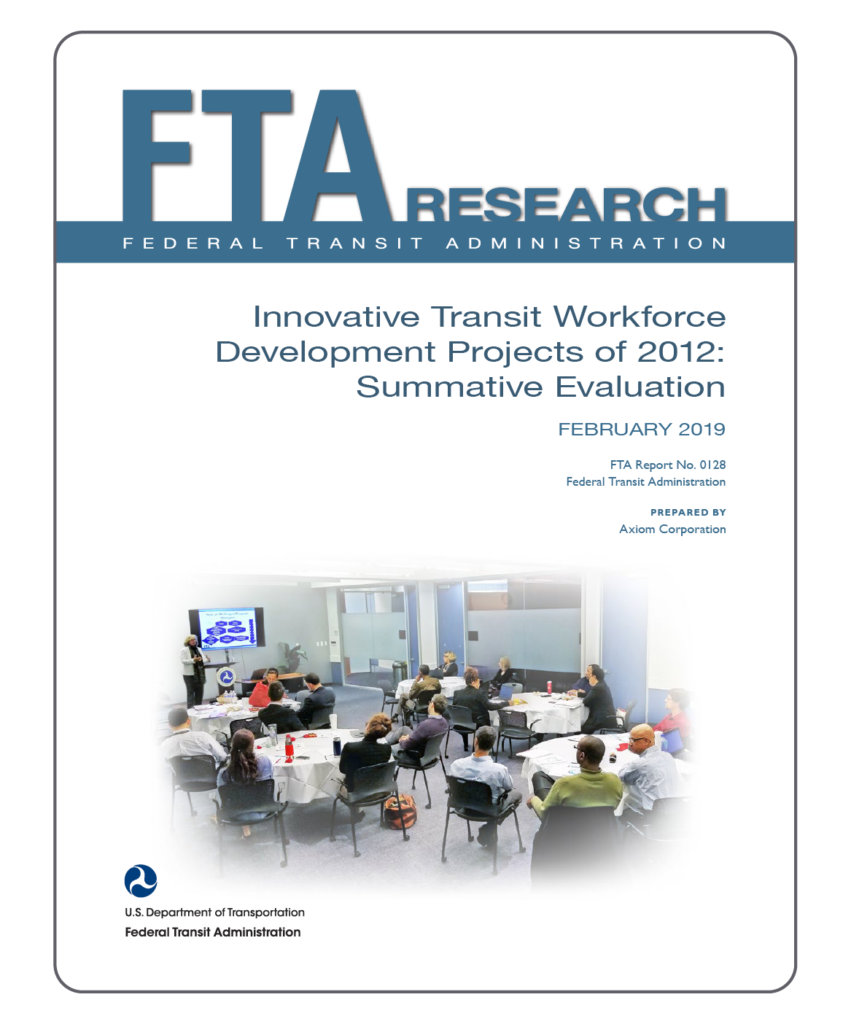
Innovative Transit Workforce Development Projects of 2012: Summative Evaluation
This report provides the results of the Innovative Transit Workforce Development Program Evaluation of projects awarded in Fiscal Year 2012. FTA awarded a total of $7,048,898 for 16 workforce development projects. Recipients included transit authorities, higher education institutions, Native American tribes, and nonprofit organizations.
Federal Transit Administration
February 2019
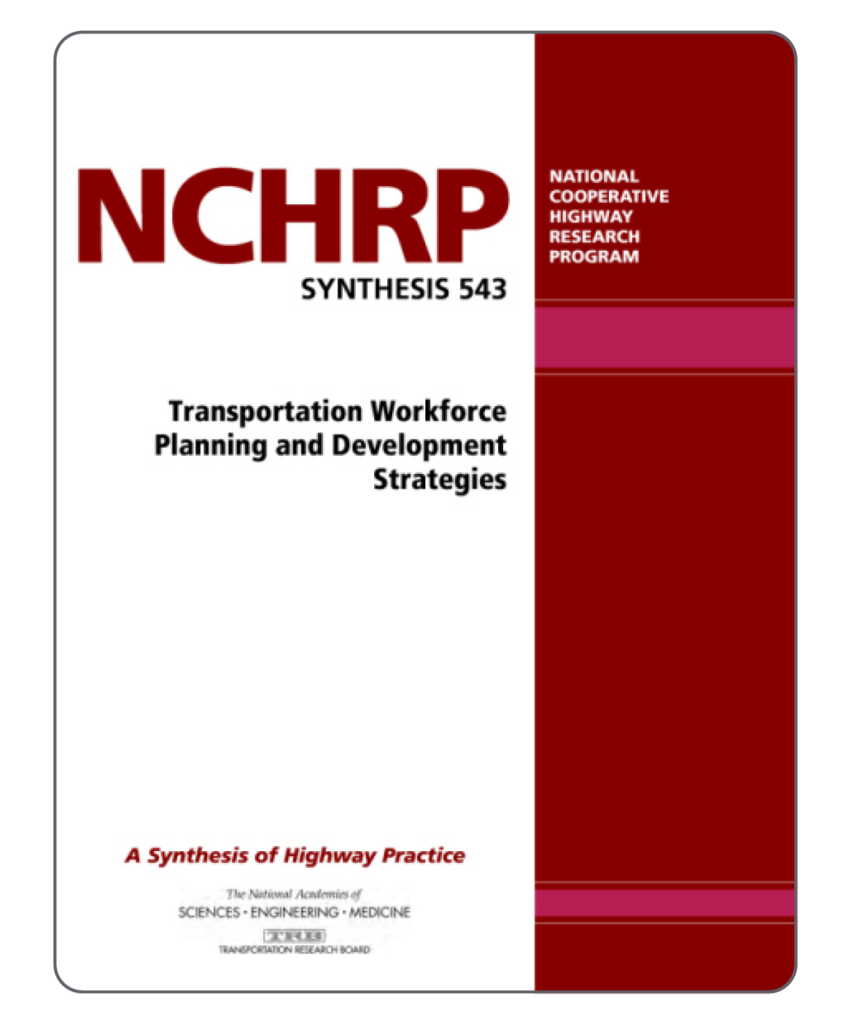
Transportation Workforce Planning and Development Strategies
This report is a synthesis of the current state of practice associated with the implementation of transportation workforce planning and development strategies at state departments of transportation (DOTs) and associated local and tribal technical assistance programs (LTAPs/TTAPs). The synthesis includes a literature review and survey results of both state DOTs and LTAPs, as well as case studies of five state DOTs, presenting an in-depth analysis of processes and considerations, challenges, lessons learned, and keys to success.
National Cooperative Highway Research Program
January 2019
TOPICS: Policy and Planning
Contributor(s): National Academies of Sciences, Engineering, and Medicine; Transportation Research Board; National Cooperative Highway Research Program; Robert Puentes; Alice Grossman; Brianne Eby; Alex Bond
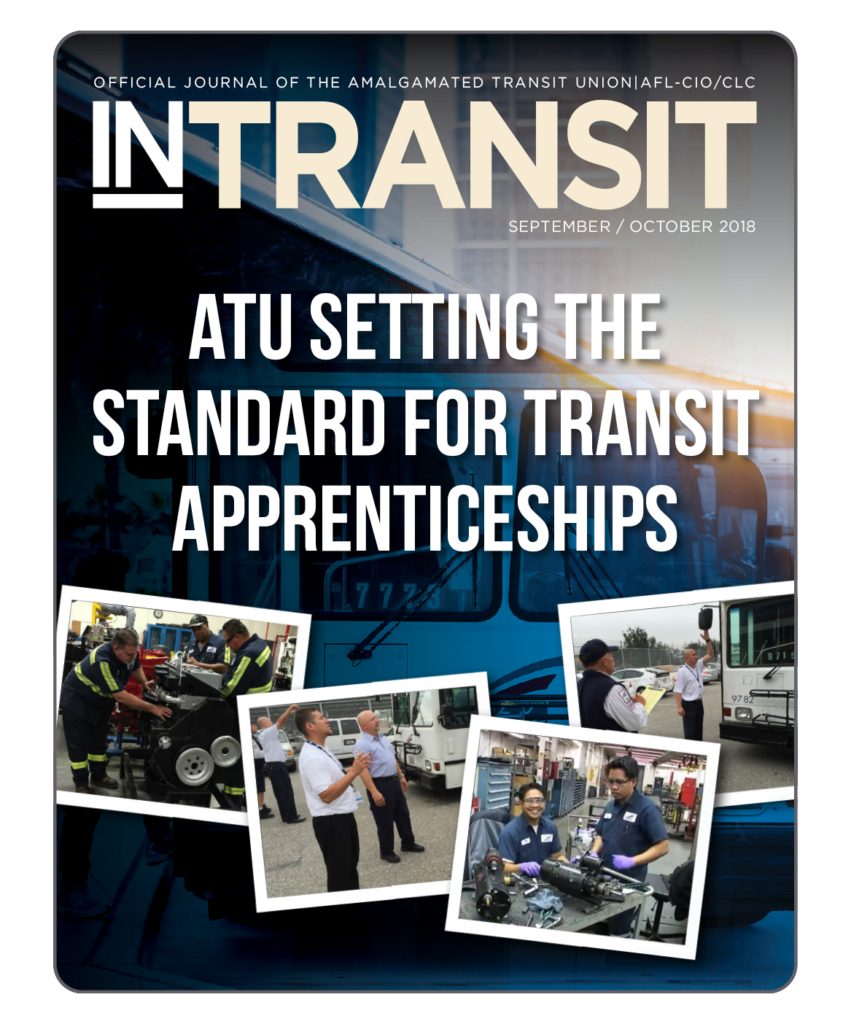
Setting the Standard for Transit Apprenticeships
This article in In Transit summarizes The Amalgamated Transit Union’s (ATU’s) and the International Transportation Learning Center’s (ITLC’s) efforts to promote apprenticeship program development. It discusses apprenticeship programs at several transit agencies and ATU locals, as well as the role of mentorship in a successful apprenticeship program.
Amalgamated Transit Union
September 2018
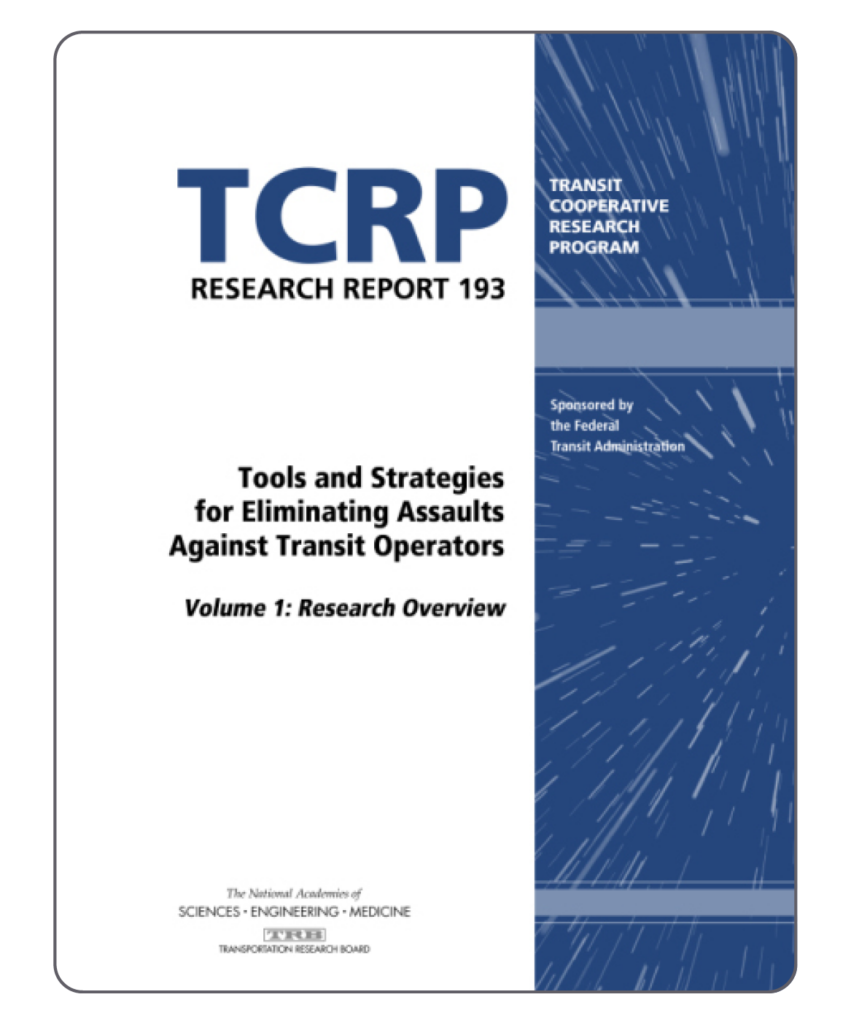
Tools and Strategies for Eliminating Assaults Against Transit Operators
This TCRP report documents policies, practices, and operating procedures related to preventing, mitigating, and responding to operator assaults. The varied format, scale, and implementation of policies and procedures set by transit agencies can shape mitigation approaches. Relevant skills and training required by transit operators to address this issue vary as well.
Transit Cooperative Research Program
May 2018
TOPICS: Policy and Planning , Safety and Health
Volume 1 documents the materials used to develop the report and Volume 2, the user guide, provides potential countermeasures and strategies to prevent or mitigate assaults against transit operators, including an operator assault risk management toolbox, vulnerability self-assessment tool, route-based risk calculator, as well as supportive checklists, guidelines, and methodologies.
Contributor(s): National Academies of Sciences, Engineering, and Medicine; Transportation Research Board; Transit Cooperative Research Program; Countermeasures Assessment and Security Experts, LLC and Transportation Resource Associates, Inc.
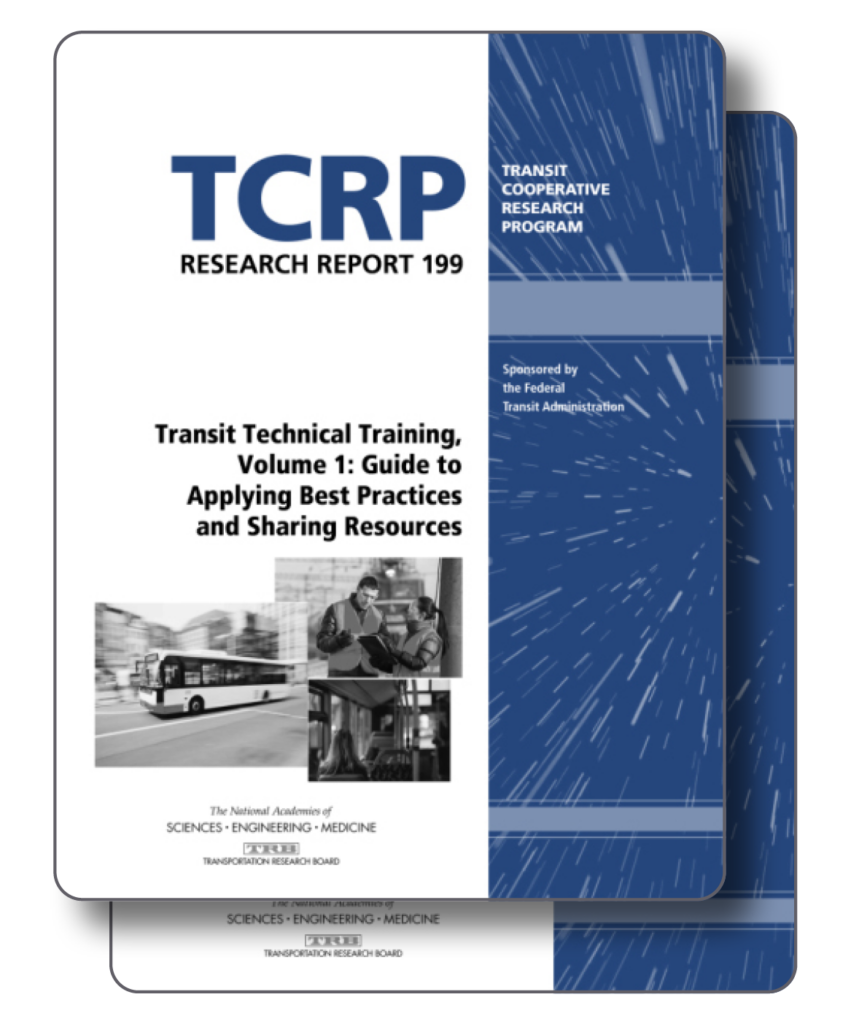
TCRP Research Report 199: Transit Technical Training (Volumes 1 & 2)
TCRP Research Report 199: Transit Technical Training is a two-volume set that presents guidance on technical training programs and the implementation of those for transportation agencies.
The report’s first volume, Guide to Applying Best Practices and Sharing Resources, documents the best models of technical training programs serving U.S. and international transportation agencies and related industries.
The second volume, Guide to Overcoming Barriers to Implementing Best and Innovative Training, provides public transportation agencies with best practices, strategies, and resources to assist with the implementation of effective and innovative training programs and techniques for frontline employees.
Transit Cooperative Research Program (TCRP)
January 2018
TOPICS: Apprenticeship , Safety and Health , Training
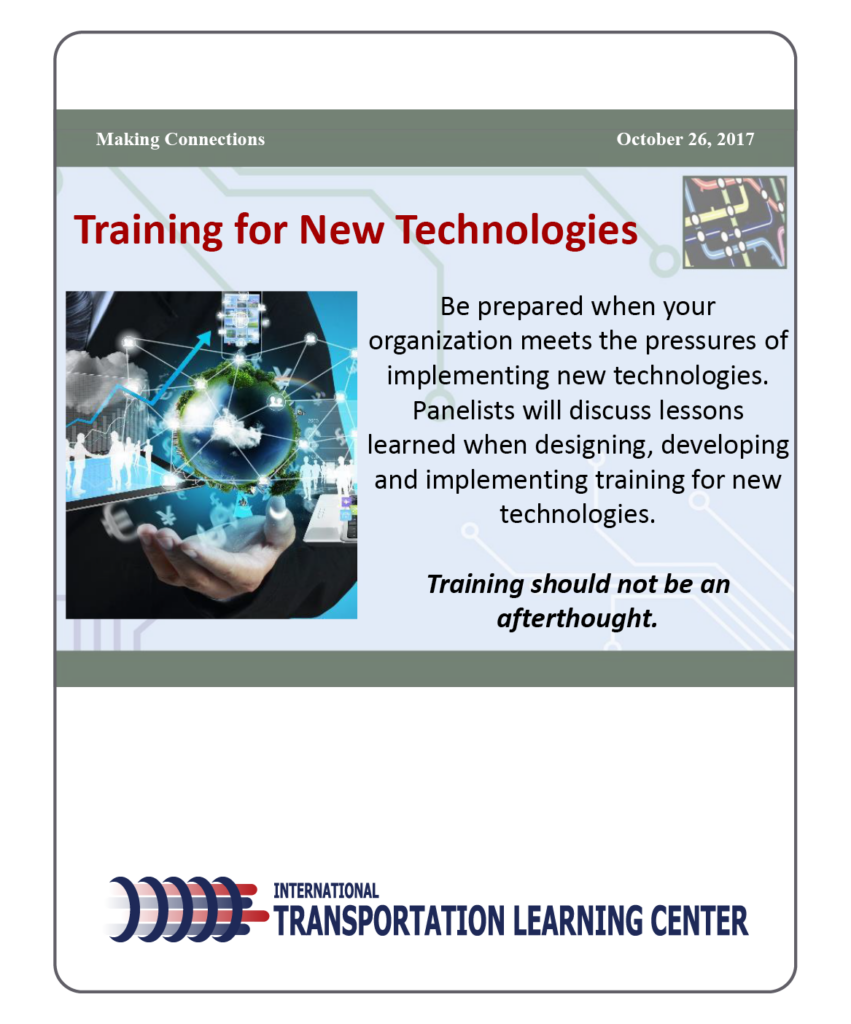
Training for New Technologies Workshop
This slide presentation is from the “Training for New Technologies” workshop held during the International Transportation Learning Center’s Making Connections conference held on October 26, 2017.
International Transportation Learning Center
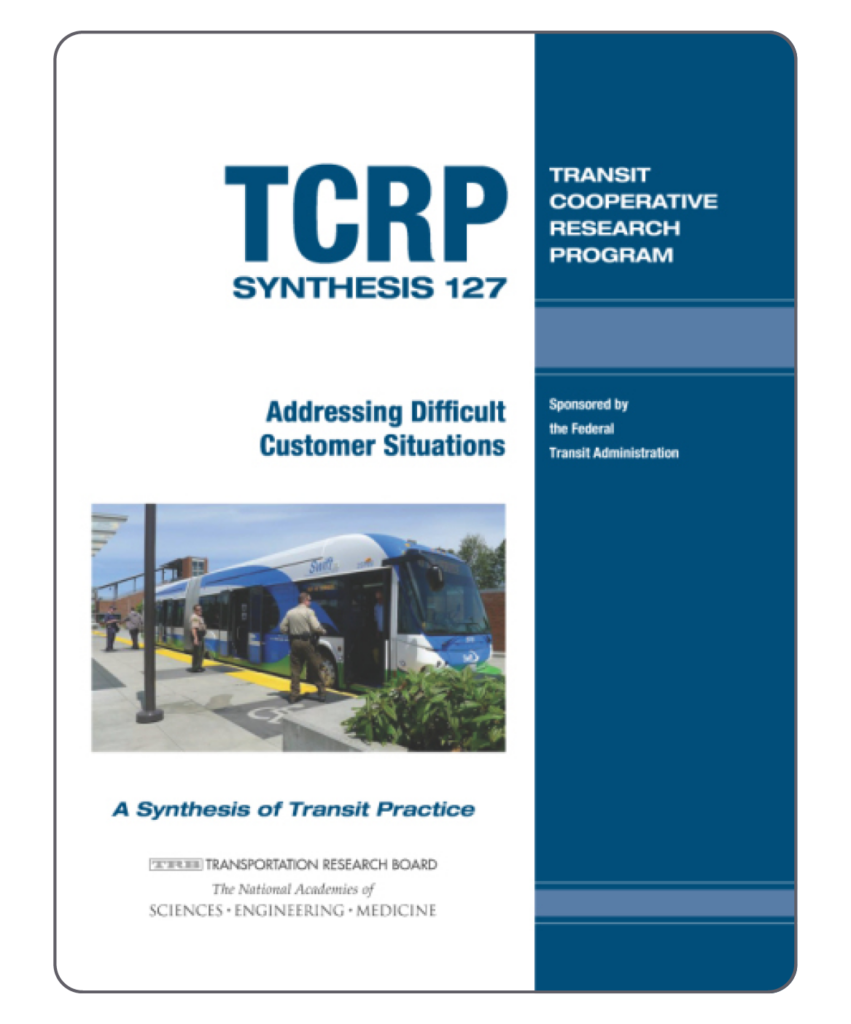
Addressing Difficult Customer Situations
This report considers issues surrounding difficult customers or passengers and the variety of circumstances that can arise when they utilize transit system facilities or vehicles. It identifies current practices used by transit agencies to prevent, prepare for, and deal with these incidents, including training programs for operators and other staff.
Transit Cooperative Research Program
March 2017
TOPICS: Policy and Planning , Safety and Health , Training
Contributor(s): National Academies of Sciences, Engineering, and Medicine; Transportation Research Board; Transit Cooperative Research Program Synthesis Program; Synthesis Program; Transit Cooperative Research Program; Joel M. Volinski
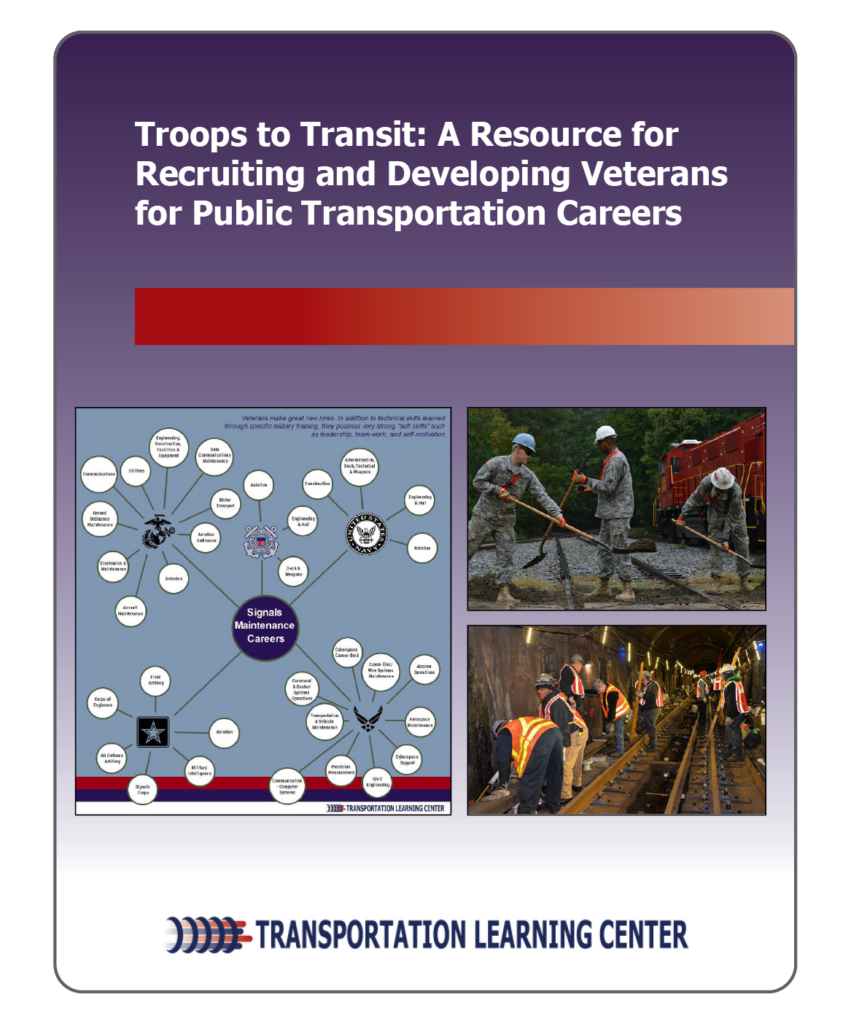
Troops to Transit: A Resource for Recruiting and Developing Veterans for Public Transportation Careers
The International Transportation Learning Center’s analysis of Bureau of Labor Statistics data has shown that the transportation industry in large will likely see a massive front-line labor shortage in the next ten years unless it is able to find and hire skilled workers. In fact, it is estimated that 126 percent of today’s transit workforce will have to be hired and trained in the next ten years.
In order to help fill this need, the center has produced a Veterans Crosswalk tool (see Excel document below) which matches skill-sets learned during military service with the kinds of skills that public transportation agencies look for when hiring signals maintainers. This product was produced in cooperation with a Veterans Taskforce made up of veterans who are also Subject Matter Experts in the field of Signals Maintenance. This detailed matrix has been distilled down into a user-friendly Veteran’s Factsheet (see PDF below) which provides at-a-glance information for both veterans interested in a signals career and for agencies looking to hire skilled veterans.
The tool is accompanied by a summary report.
International Transportation Learning Center
November 2016
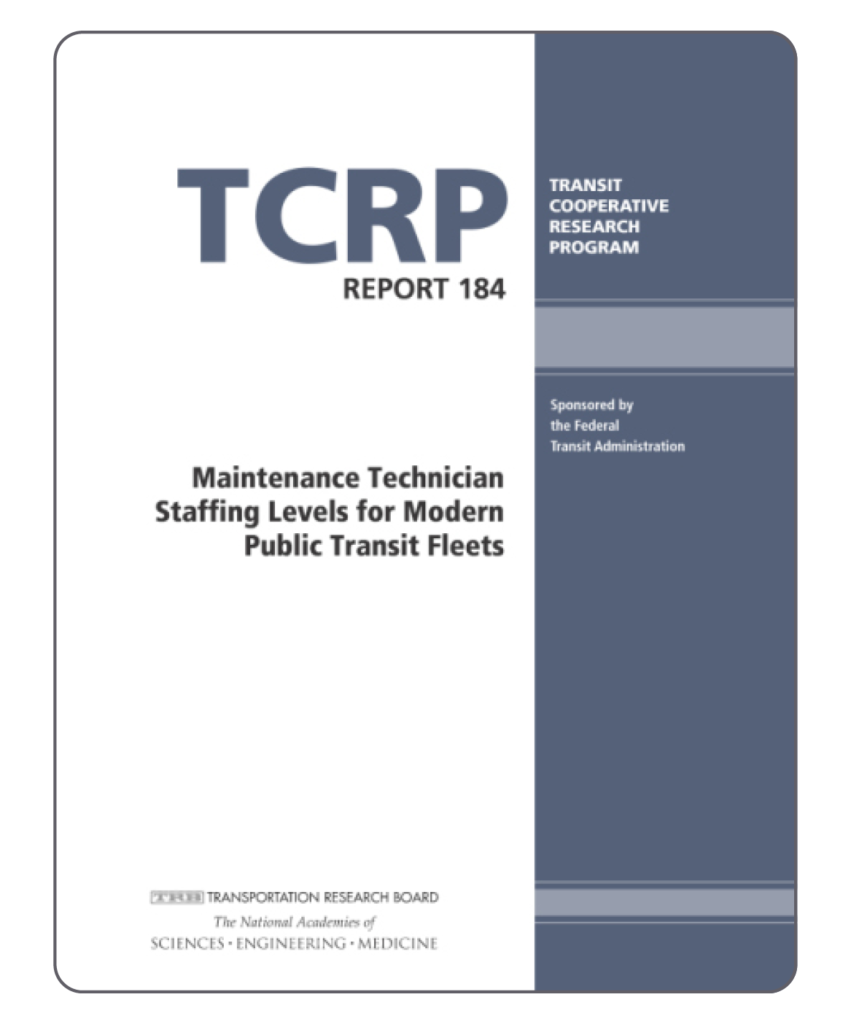
Maintenance Technician Staffing Levels for Modern Public Transit Fleets
This report identifies existing tools and practices used to determine optimum maintenance technician staffing levels and provides an analysis of variables that influence maintenance technician staffing needs. A Microsoft Excel maintenance staffing calculator and user guide is available.
Transit Cooperative Research Program
August 2016
Contributor(s): National Academies of Sciences, Engineering, and Medicine; Transportation Research Board; Transit Cooperative Research Program; Ken Mall; June Sekera; the Transportation Learning Center and Transit Resource Center
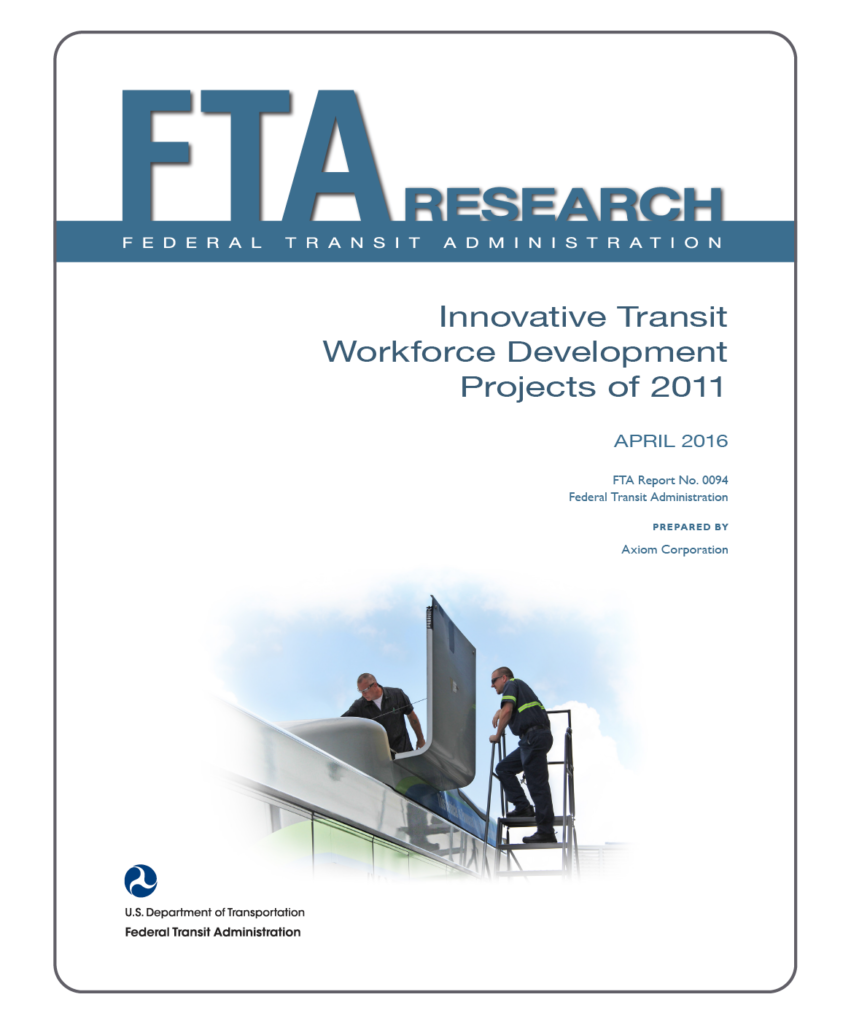
Innovative Transit Workforce Development Projects of 2011
This report provides the results of the Innovative Transit Workforce Program Evaluation of projects awarded in fiscal year 2011. The evaluation was conducted via review of updates and final report submitted by grantees and telephone interviews with grantees.
Federal Transit Administration
April 2016
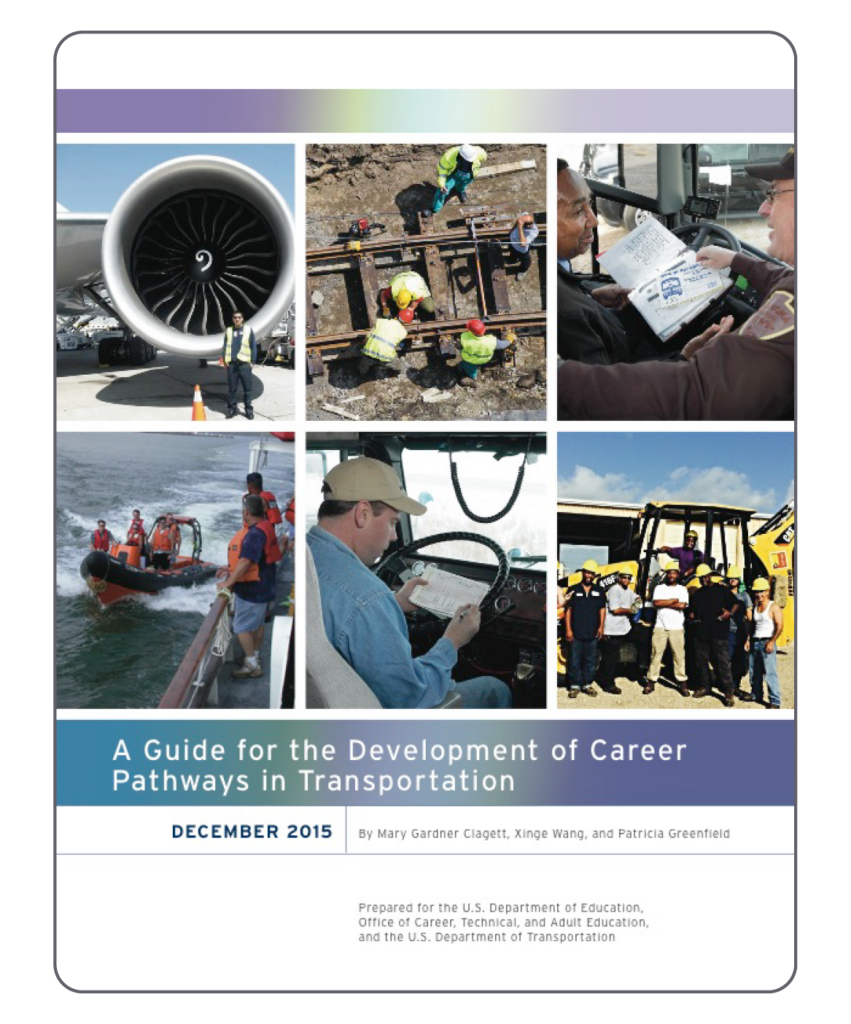
A Guide for the Development of Career Pathways in Transportation
This guide outlines the steps that transportation industry stakeholders can take to develop or expand Career Pathways to focus on the skills, competencies, and credentials needed for high-demand jobs in the transportation industry and its subsectors.
U.S. Department of Education; Jobs for the Future; International Transportation Learning Center
December 2015
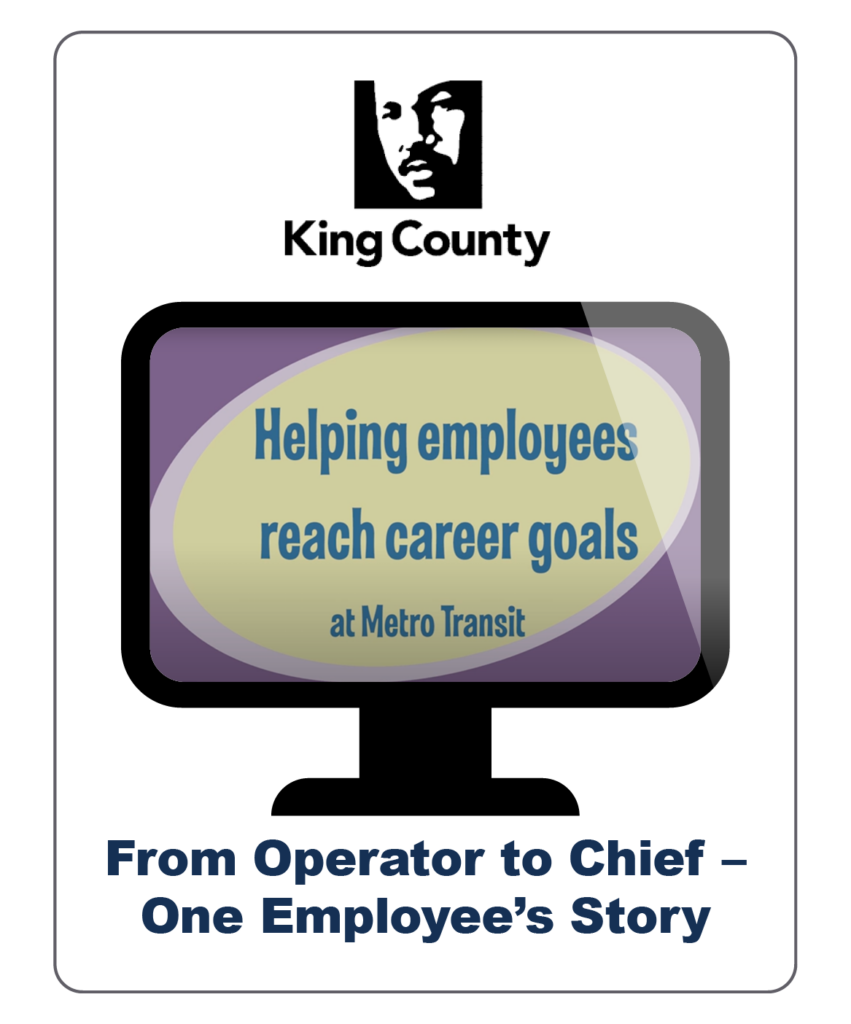
From Operator to Chief – One Employee’s Story
This video provides a description of King County DOT’s program for recruitment and advancement options for current employees, along with one employees’ story about how he was supported in his journey from bus operator to Base Chief.
King County Department of Transportation
October 2015
TOPICS: Career Pathways , Community Engagement , Hiring and Recruitment , Retention , Training
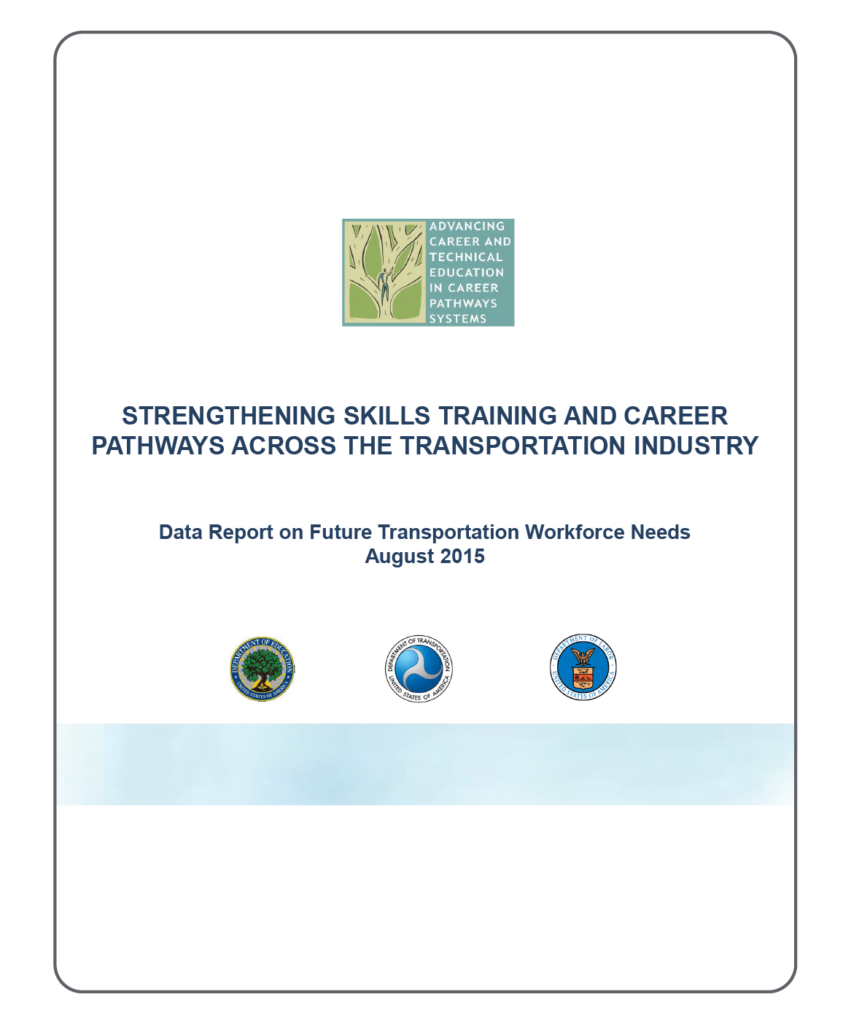
Strengthening Skills Training and Career Pathways Across the Transportation Industry
This report identifies high-demand jobs with good wages in transportation, discusses the role data plays in identifying future workforce skill needs, and analyzes the patterns in the education and work experience required for entry, as well as on-the-job training required for new entrants to gain full competency.
U.S. Department of Education, Office of Career, Technical, and Adult Education; U.S. Department of Transportation; U.S. Department of Labor
August 2015
TOPICS: Apprenticeship , Career Pathways , Hiring and Recruitment , Training
The Office of Career, Technical, and Adult Education (OCTAE) and the Department of Transportation acknowledge the important contributions to this report made by the following people: Xinge Wang, Deputy Director, and Jack Clark, Executive Director, Transportation Learning Center; and Mary Clagett, Director for Workforce Policy, Lois Joy, Senior Program Manager, and Dudney Sylla, Program Manager, Jobs for the Future, for their analysis and writing.
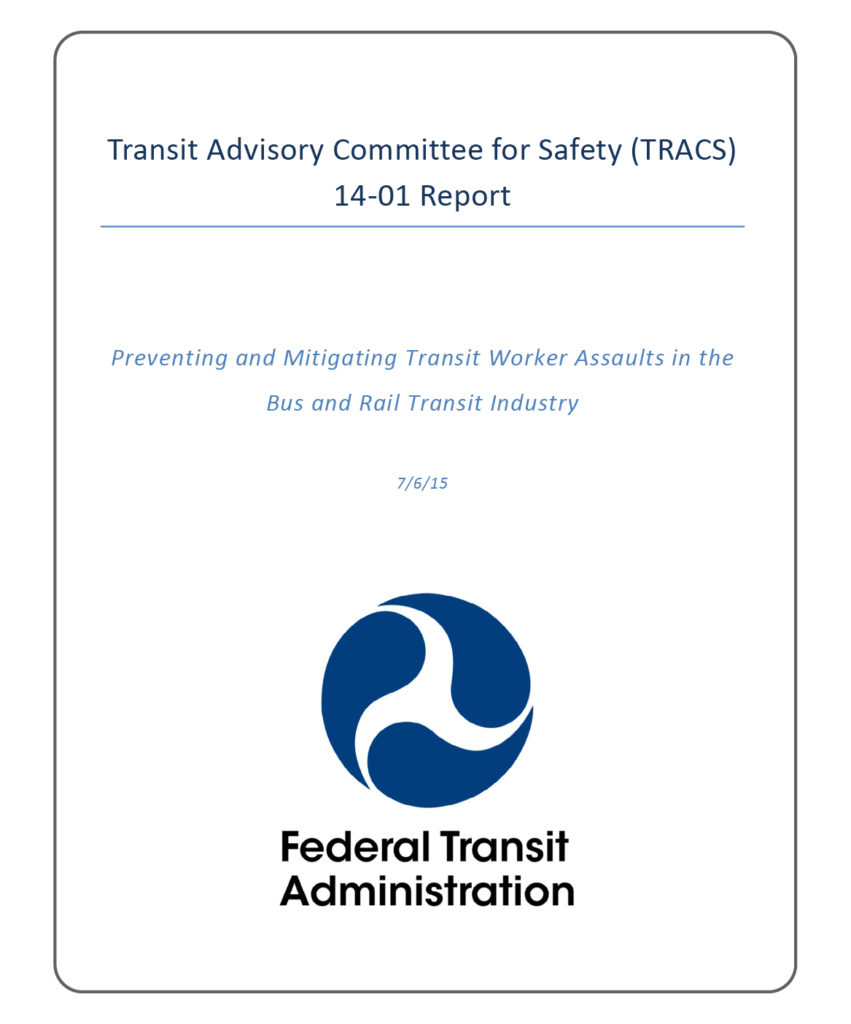
Preventing and Mitigating Transit Worker Assaults in the Bus and Rail Transit Industry
This report provides recommendations from state and local transportation agencies, labor unions, research organizations, and national transportation associations to address the elements of a safety management system (SMS) approach to preventing and mitigating transit worker assaults, including policy, risk management, safety promotion, and safety assurance.
Transit Advisory Committee for Safety
July 2015
TOPICS: Retention , Safety and Health

Improving Safety Culture in Public Transportation
TRB’s Transit Cooperative Research Program (TCRP) Report 174: Improving Safety Culture in Public Transportation presents research on the definition of safety culture within public transportation, presents methods and tools for assessing safety culture, and provides strategies and guidelines that public transportation agencies may apply to initiate and build a program for improving safety culture.
Transit Cooperative Research Program
April 2015
TOPICS: Policy and Planning , Safety and Health
Contributor(s): National Academies of Sciences, Engineering, and Medicine; Transportation Research Board; Transit Cooperative Research Program; Howard Roberts; Richard Retting; Tom Webb; Ashley Colleary; Brian Turner; Xinge Wang; Roger Toussaint; Gwynn Simpson; Claudia White
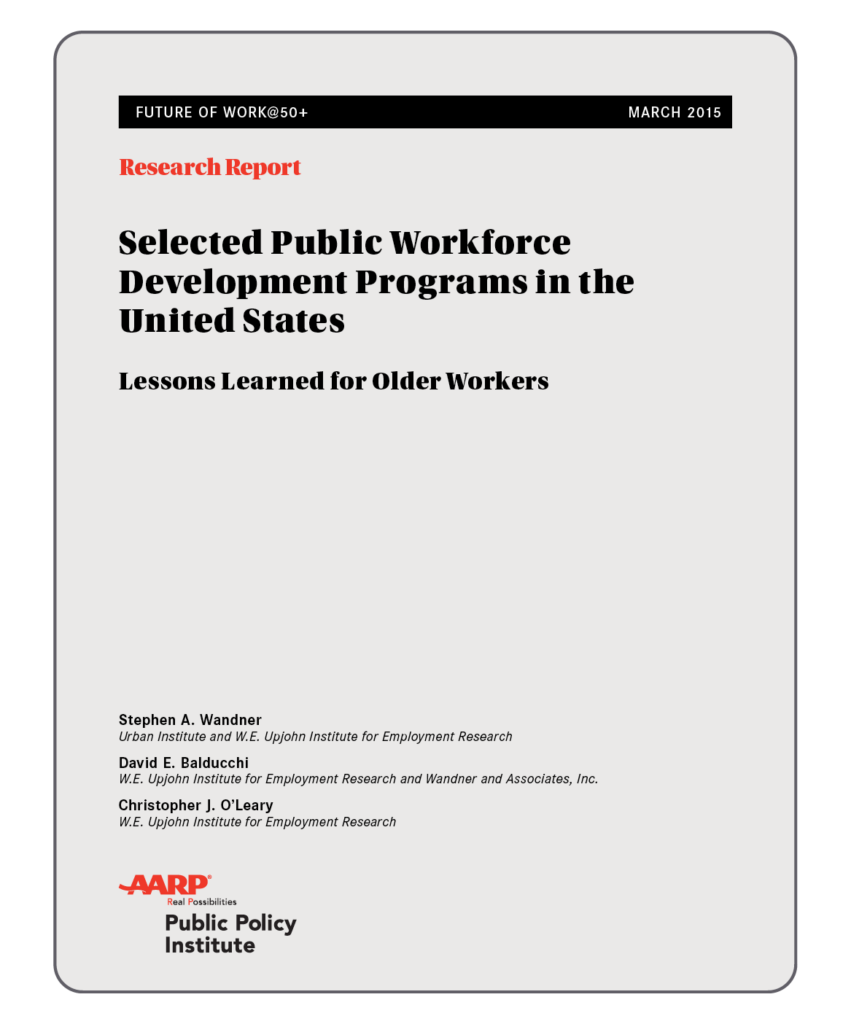
Selected Public Workforce Development Programs in the United States: Lessons Learned for Older Workers
This report provides a selective review of public workforce development programs in the United States over the past 80 years, placing special emphasis on the importance these programs have to older Americans. It discusses how the public workforce system developed, how it operates today, significant programs and target groups, common employment services and job training strategies, and what is known about program effectiveness.
American Association of Retired Persons
March 2015
TOPICS: Community Engagement , Policy and Planning
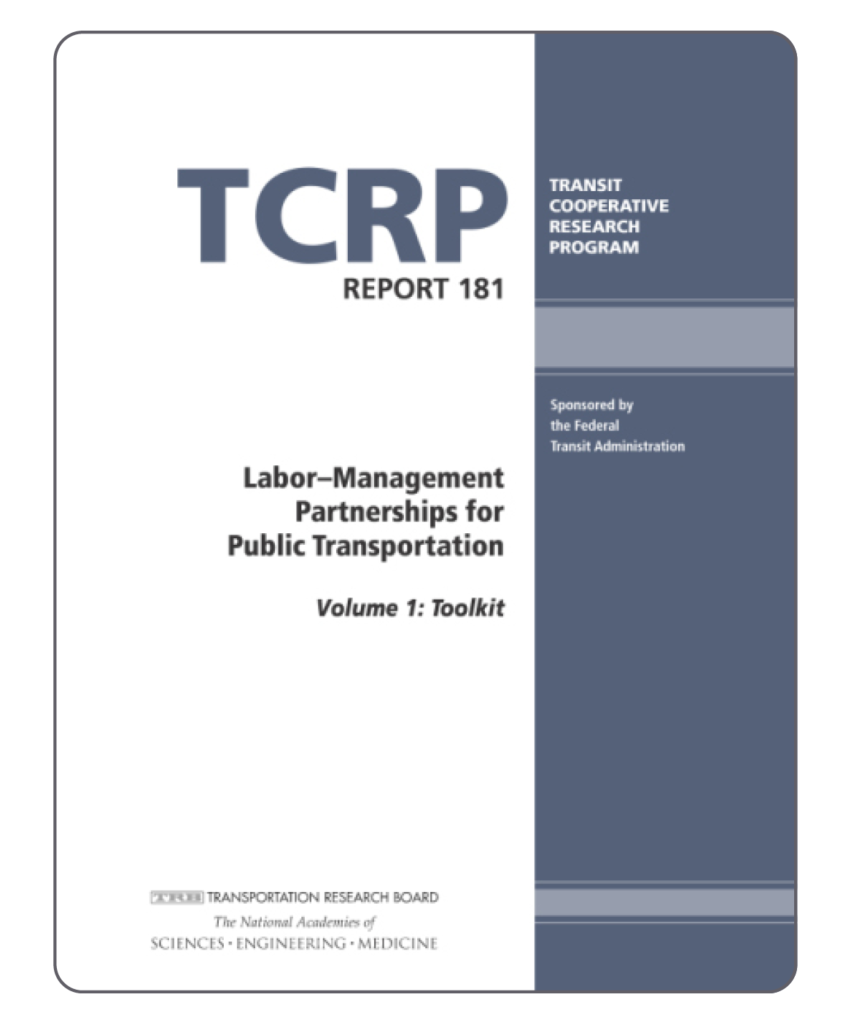
Labor-Management Partnerships for Public Transportation, Volume 1: Toolkit
This toolkit provides resources for public transportation management and labor union leaders to establish, manage, and improve labor-management partnerships. It includes a description of the development of a labor-management partnership charter, recommended actions for both management and labor union leaders, and a workshop framework to prepare management and union representatives with essential skills for establishing and managing labor-management partnerships.
Transit Cooperative Research Program
January 2015
TOPICS: Apprenticeship , Labor-Management Partnerships , Training
Volume 2 of this report provides background material that was used to develop this toolkit.
Contributor(s): National Academies of Sciences, Engineering, and Medicine; Transportation Research Board; Transit Cooperative Research Program; Scott Baker; Chuyuan (Viktor) Zhong; Douglas Taylor; William F. Scott; Richard Plante
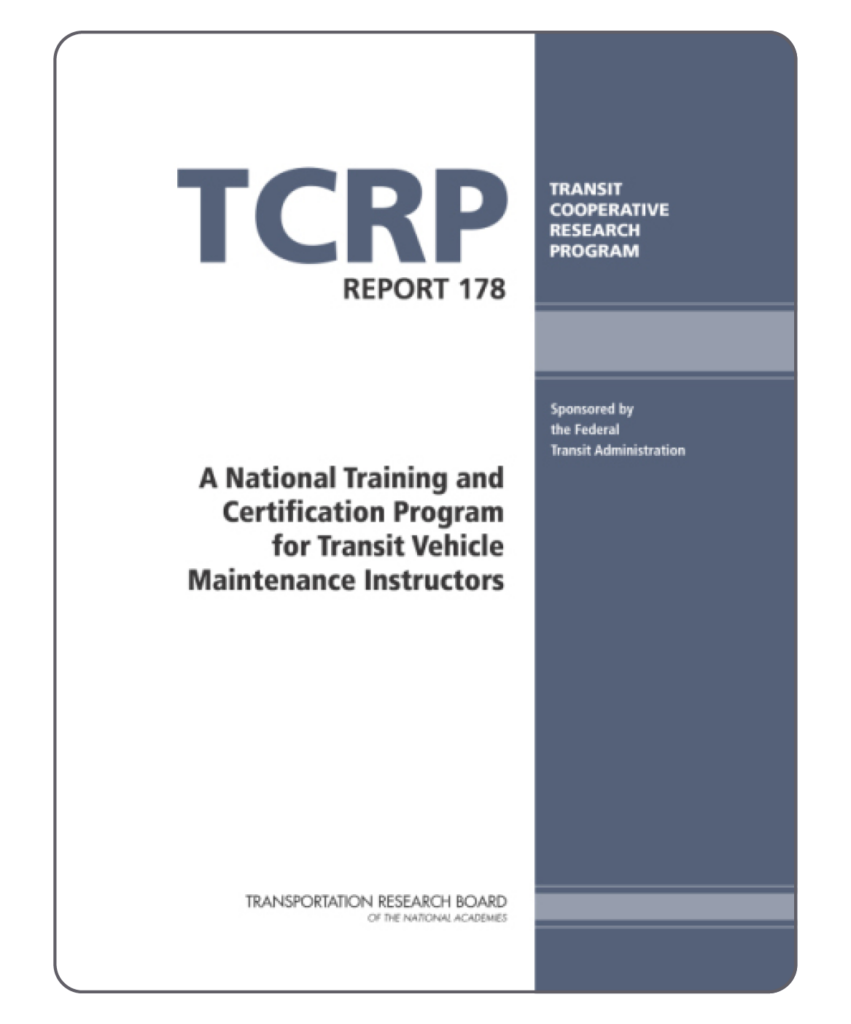
A National Training and Certification Program for Transit Vehicle Maintenance Instructors
This TCRP report provides a proposed national program structure and plan for training and certifying transit bus and rail maintenance instructors. The report also provides best practices used in the public and private sectors to prepare and certify technical instructors, as well as the attributes and instructional delivery methods found most effective for maintenance instructors.
Transit Cooperative Research Program
January 2015
TOPICS: Trainer and Mentor Development , Training
Contributor(s): National Academies of Sciences, Engineering, and Medicine; Transportation Research Board; Transit Cooperative Research Program Synthesis Program; Transit Cooperative Research Program; Transportation Learning Center; Educational Data Systems Inc
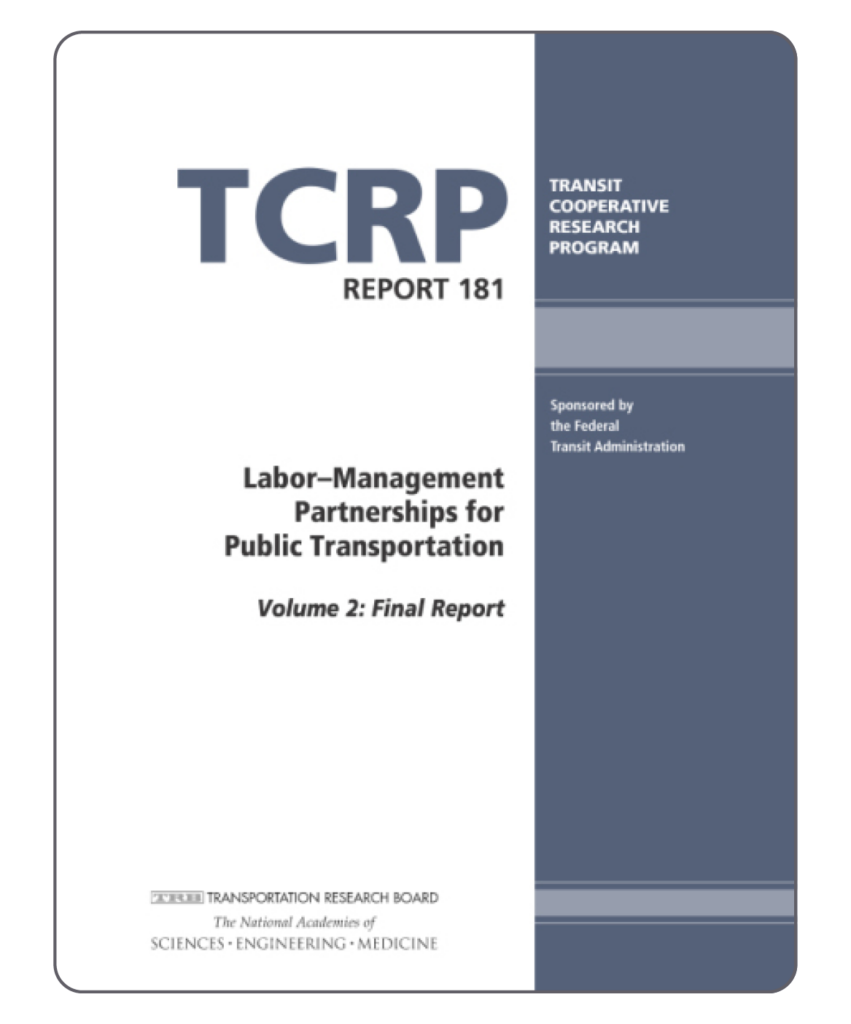
Labor-Management Partnerships for Public Transportation, Volume 2: Final Report
This TCRP report documents the materials used to develop the Volume 1: Toolkit, including an industry survey and case studies. Volume 1 provides resources for public transportation management and labor union leaders to establish, manage, and improve labor–management partnerships.
Transit Cooperative Research Program
January 2015
TOPICS: Apprenticeship , Labor-Management Partnerships , Training
Contributor(s): National Academies of Sciences, Engineering, and Medicine; Transportation Research Board; Transit Cooperative Research Program; Scott Baker; Chuyuan (Viktor) Zhong; Douglas Taylor; William F. Scott; Richard Plante
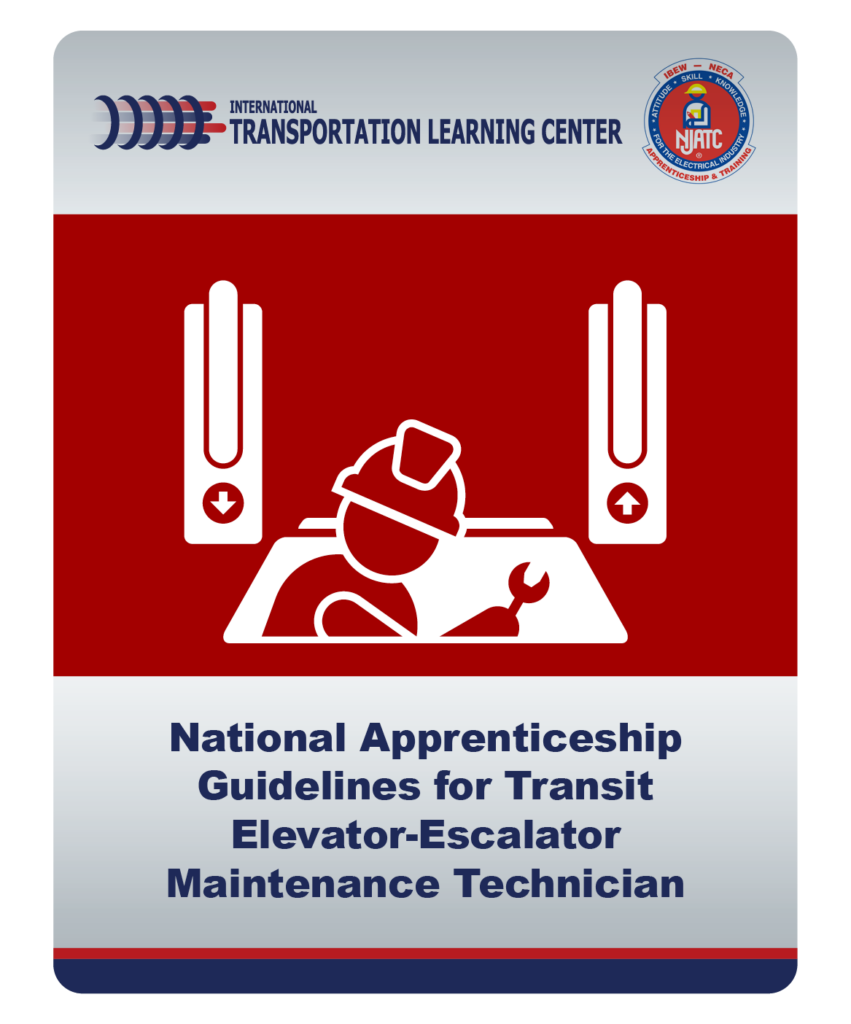
National Apprenticeship Guidelines for Transit Elevator-Escalator Maintenance Technician
The purpose of these National Guidelines for Apprenticeship Standards (National Guideline Standards) is to provide policy and guidance to local Sponsors in developing these Standards for Apprenticeship for local approval and registration. These National Guideline Standards developed by the Sponsor are certified by the U. S. Department of Labor, Office of Apprenticeship as substantially conforming to the requirements of Title 29, CFR parts 29 and 30. State Apprenticeship Agencies recognized by the Office of Apprenticeship to register local programs, and/or local laws and regulations, may impose additional requirements that must be addressed in the local apprenticeship standards.
International Transportation Learning Center & National Joint Apprenticeship and Training Committee (NJATC)
January 2014
TOPICS: Apprenticeship , Policy and Planning , Training
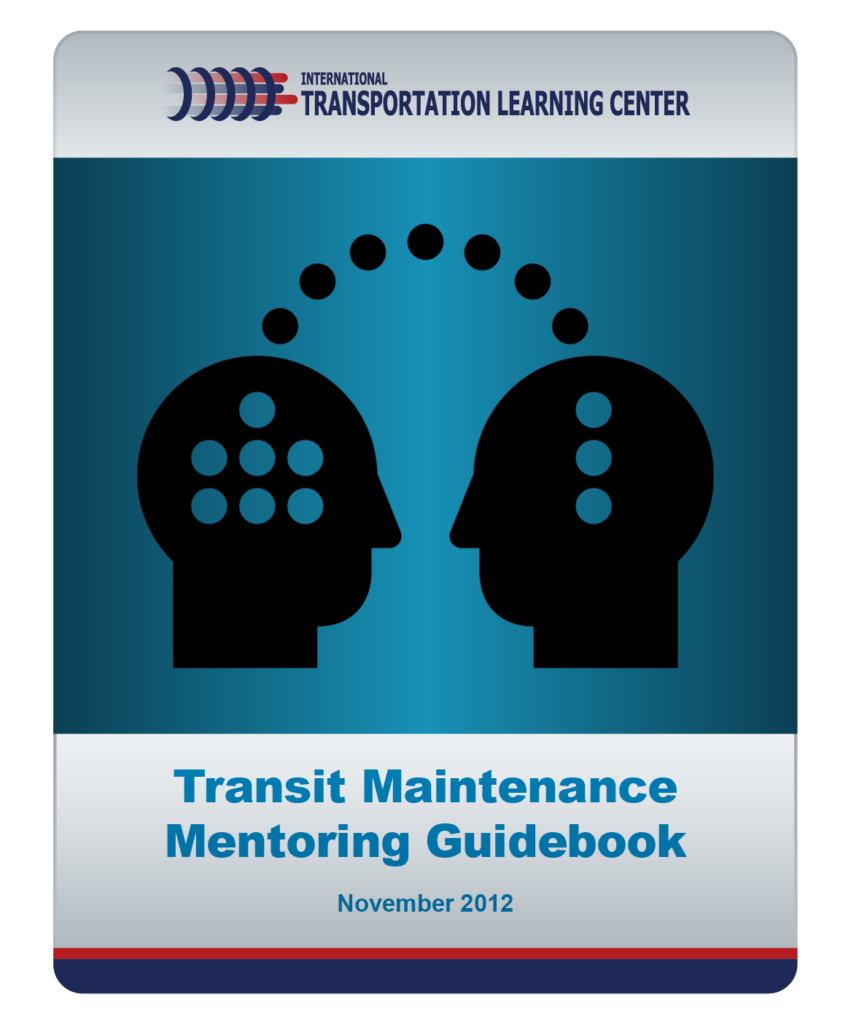
Transit Maintenance Mentoring Guidebook
The purpose of this report is to serve as a guidebook, offering information that transit agencies can use to establish mentoring as a training method with guidance, suggestions, and examples to implement or expand upon existing mentoring programs. It is based on a generic mentoring guidebook developed by the USDOT, modified and enhanced to reflect transit maintenance applications.
International Transportation Learning Center
November 2012

Developing, Enhancing, and Sustaining Tribal Transit Services: A Guidebook
TRB’s Transit Cooperative Research Program (TCRP) Report 154: Developing, Enhancing, and Sustaining Tribal Transit Services: A Guidebook offers guidance about the various steps for planning and implementing a tribal transit system. The steps that are described may be used for planning a new transit system, enhancing an existing service, or taking action to sustain services.
Transit Cooperative Research Program
January 2012
TOPICS: Community Engagement , Policy and Planning , Training
Contributor(s): National Academies of Sciences, Engineering, and Medicine; Transportation Research Board; Transit Cooperative Research Program; Albert T. Stoddard, III; David Sampson; Jill Cahoon; Ronald Hall; Peter Schauer; Valerie J. Southern; Tangerine Almeida
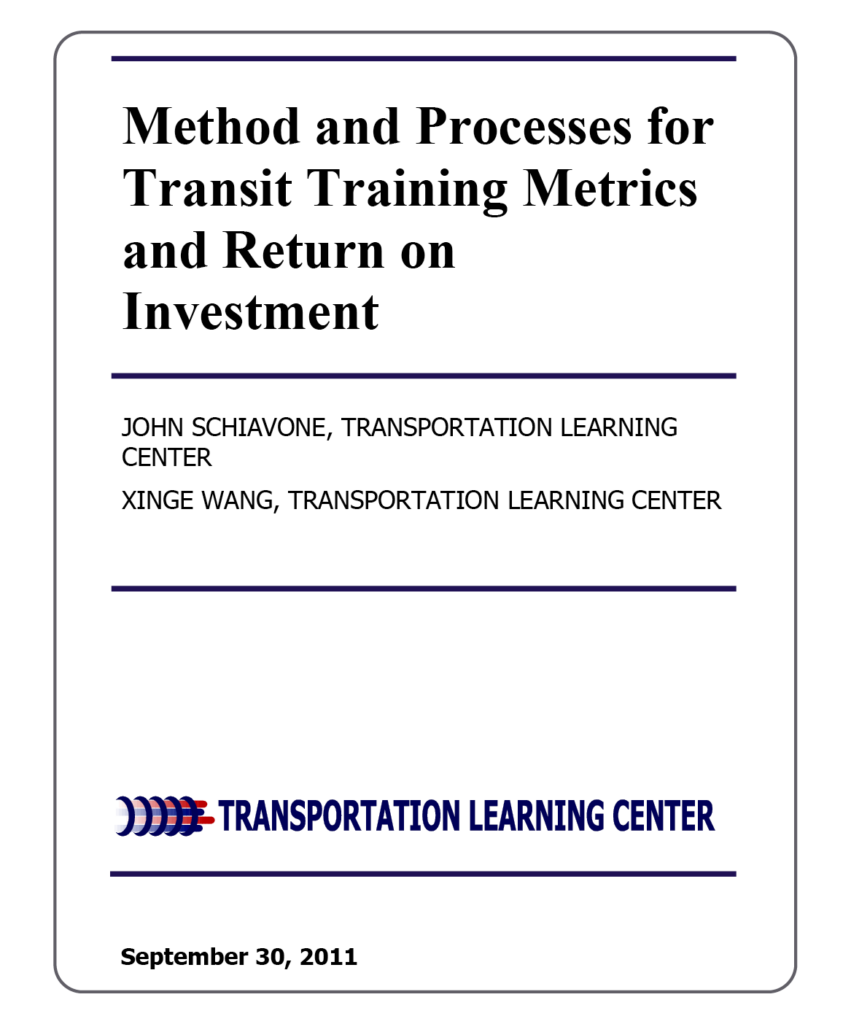
Method and Processes for Transit Training Metrics and Return on Investment
This guidebook was developed by the ITLC to help transit agencies determine benefits and return on investment (ROI) stemming from their training programs.
International Transportation Learning Center
September 2011
TOPICS: Program Evaluation and ROI
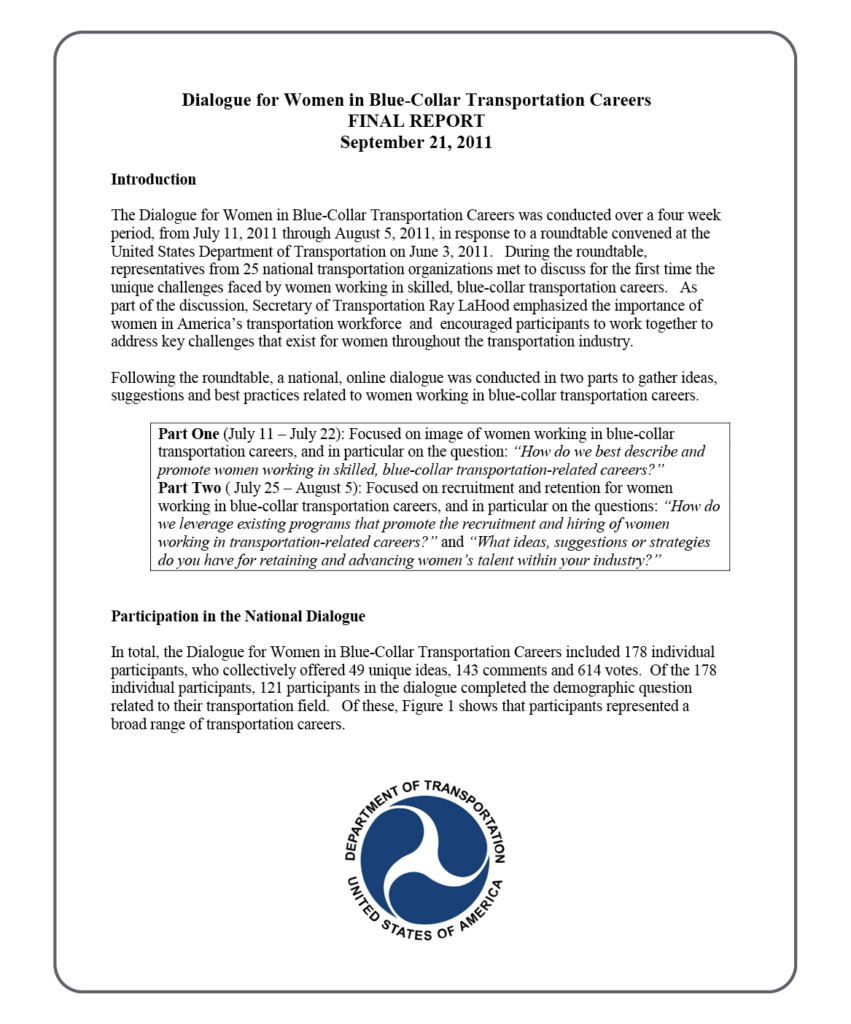
Dialogue for Women in Blue-Collar Transportation Careers
This short summary report describes unique challenges and recommendations regarding women in blue-collar positions in transportation.
US Department of Transportation
September 2011
TOPICS: Community Engagement , Hiring and Recruitment , Retention
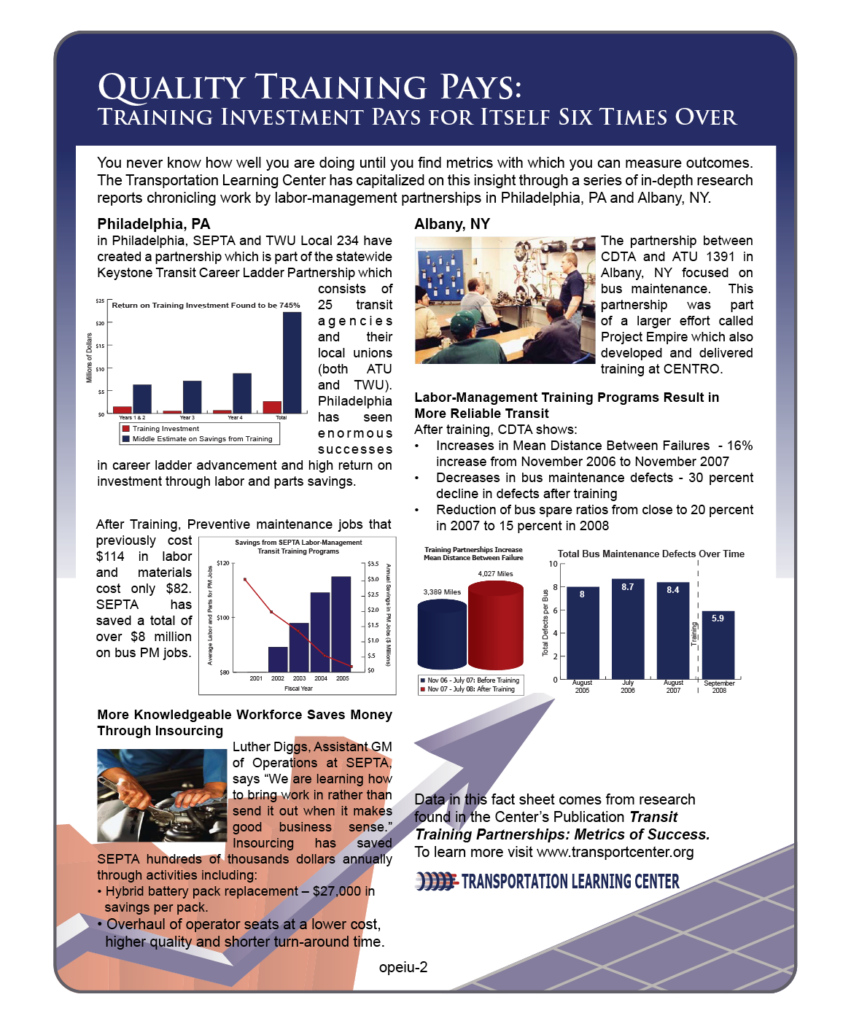
Quality Training Pays: Training Investment Pays for Itself Six Times Over
You never know how well you are doing until you find metrics with which you can measure outcomes. The Transportation Learning Center has capitalized on this insight through a series of in-depth research reports chronicling work by labor-management partnerships in Philadelphia, PA and Albany, NY. This fact sheet outlines these findings and shows a substantial return on training investment.
International Transportation Learning Center
June 2011
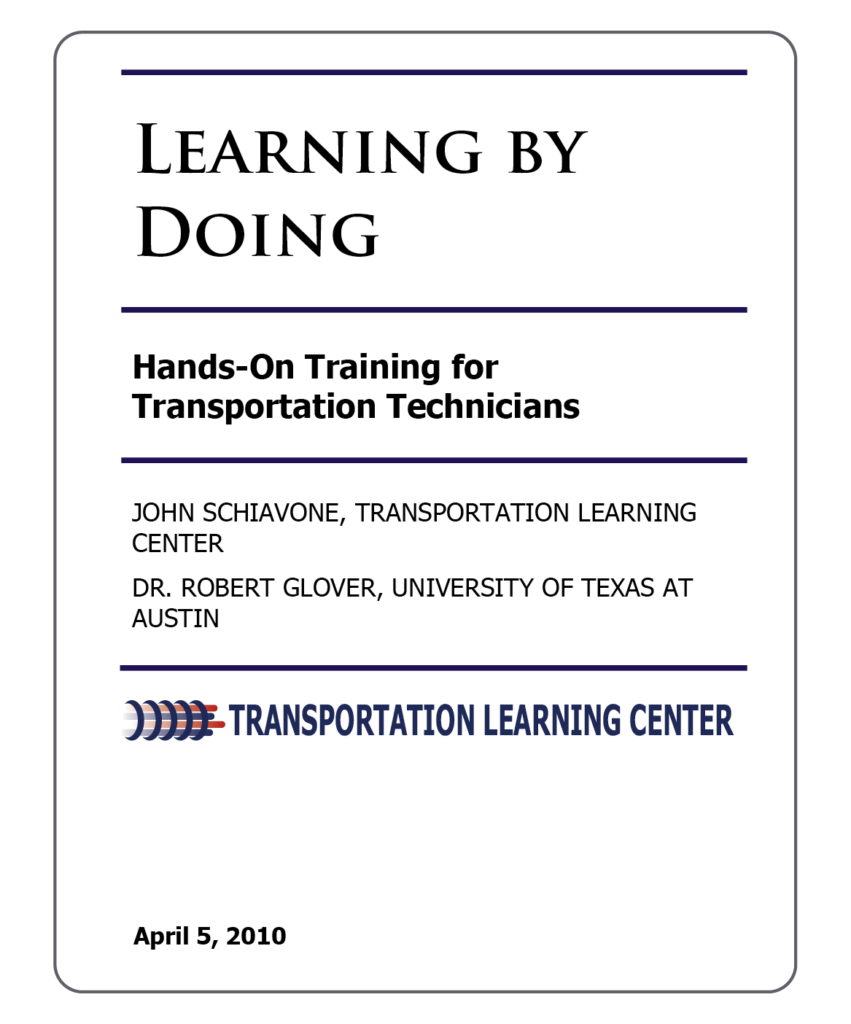
Learning by Doing: Hands-On Training for Transportation Technicians
Today, formal training is absolutely essential to produce technicians capable of providing safe, efficient and cost-effective transport services. The consequences of jeopardizing passenger and public safety are just too great to turn inexperienced workers loose on advanced transit vehicles without proper training, hoping they will learn “as they go.” The question becomes how best to construct an effective training program.
This paper, from the International Transportation Learning Center, examines the subject of technical training and advocates “learning by doing” as an essential element to acquiring needed technical knowledge and skills. It stands to reason that someone attracted to becoming a technician is interested in working with their hands. Training, therefore, should make use of that natural inclination and engage students in hands-on activities throughout the entire learning process.
International Transportation Learning Center
April 2010
TOPICS: Apprenticeship , Training
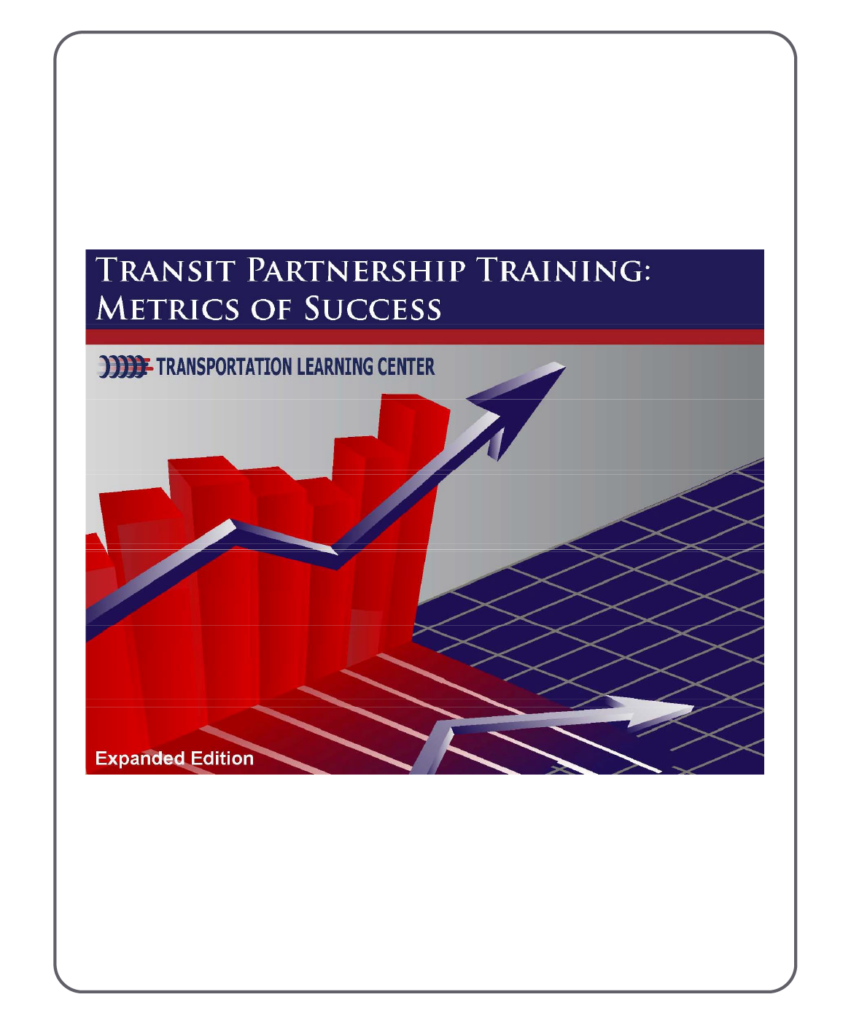
Transit Partnership Training: Metrics of Success
The Transit Partnership Training: Metrics of Success report is an overview of the key findings of the Metrics of Success series, which chronicles measurable outcomes, in particular return on investment, of transit training partnerships in which the International Transportation Learning Center has had a substantial role.
International Transportation Learning Center
February 2010
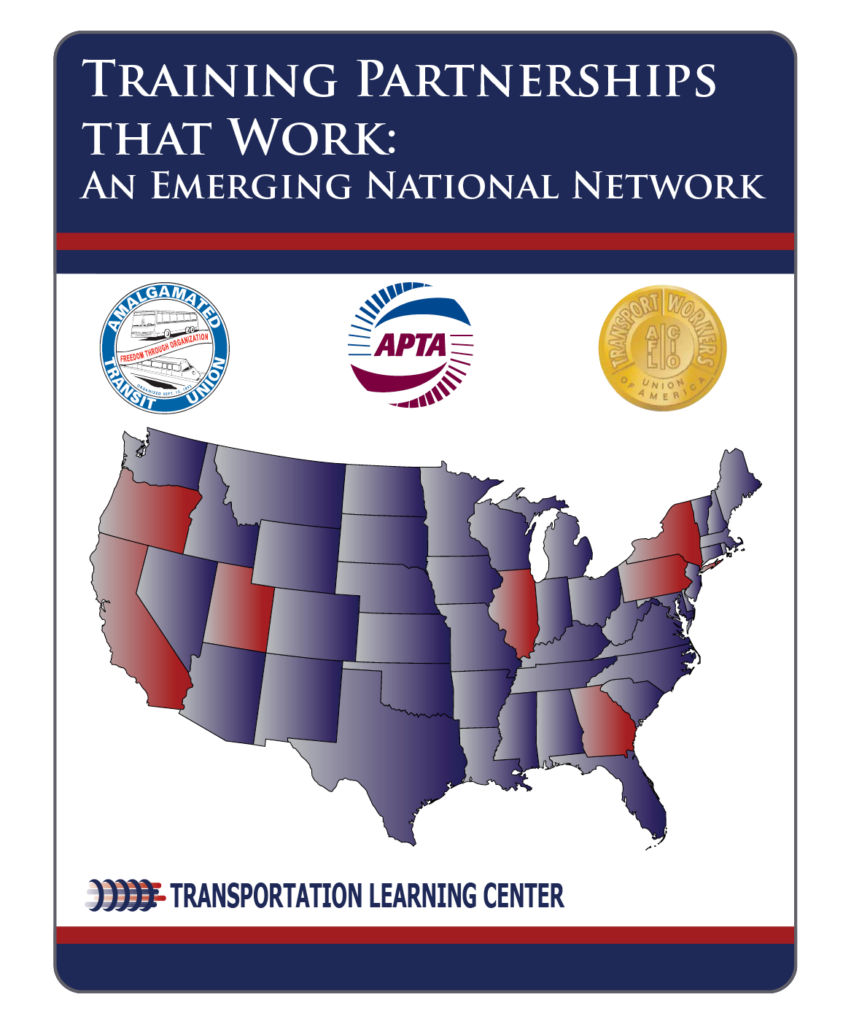
Training Partnerships That Work: An Emerging National Network
Training Partnerships That Work provides vivid summaries of successful labor-management training partnerships at sites across the country. The cases included here represent unique training partnerships. Most importantly, they illustrate how labor and management can work together successfully on issues of training, and provide valuable lessons for other industries facing the problem of retiring baby boomers and inadequate capacity to train replacement workers.
International Transportation Learning Center
February 2010
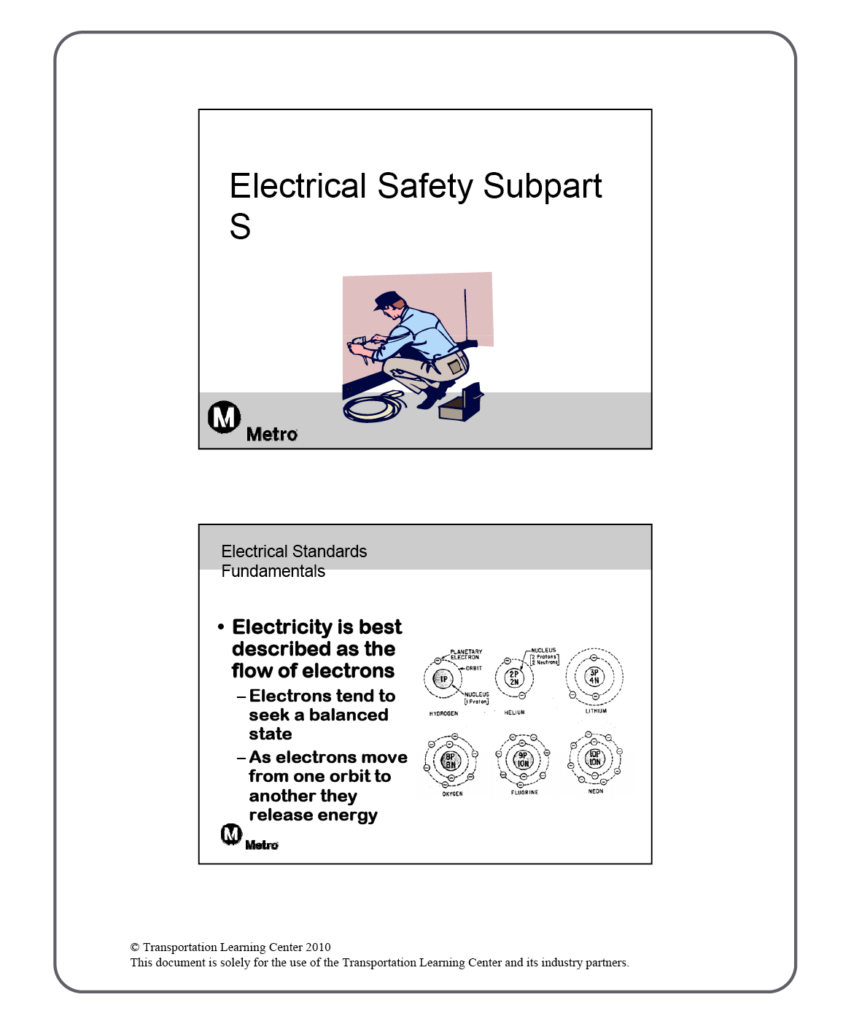
Electrical Standards Fundamentals
A document of electrical safety standards and fundamentals. The fundamentals include Electrons, Static Electricity, and Magnetic fields. It also covers how power is transmitted to buildings through the power grid and how grounding is built into delivery systems. This resource is intended only to provide an overview of fundamental principles – please see Terms & Conditions.
International Transportation Learning Center
January 2010
TOPICS: Safety and Health , Trainer and Mentor Development , Training
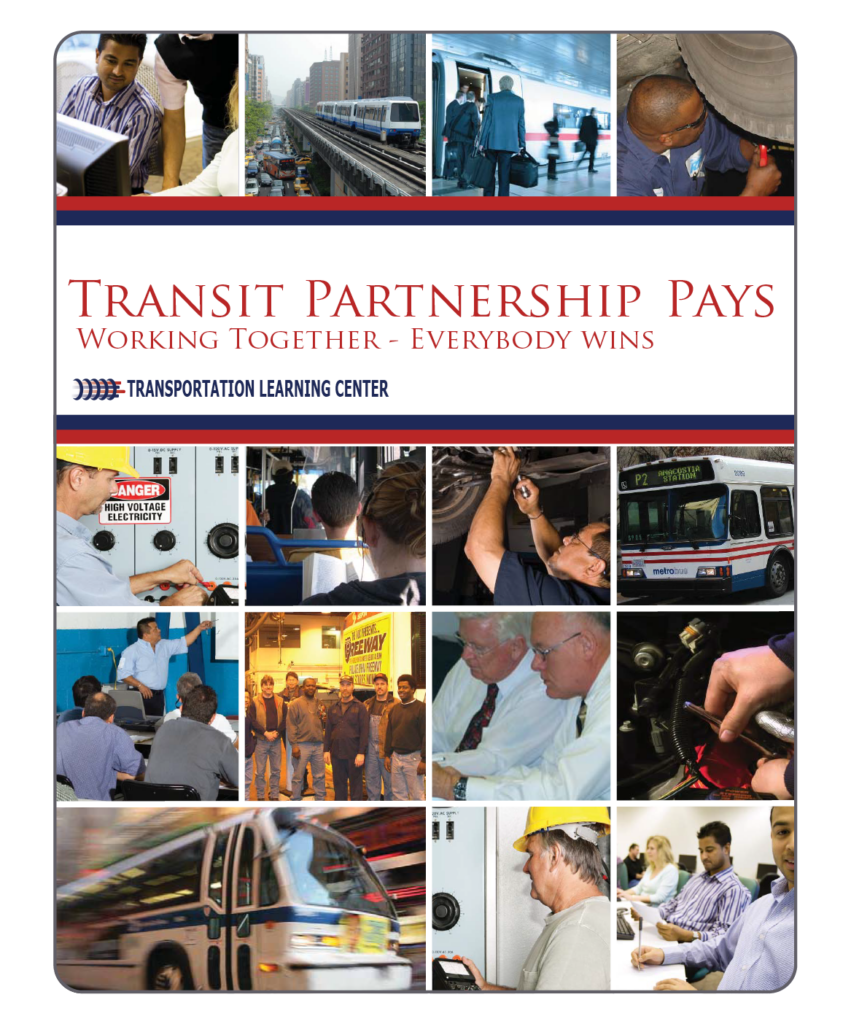
Transit Partnership Pays: Working Together – Everybody Wins
This report highlights the evidence that the most successful, cost efficient and durable training systems come from industry based labor-management partnerships.
International Transportation Learning Center
September 2009
TOPICS: Apprenticeship , Labor-Management Partnerships
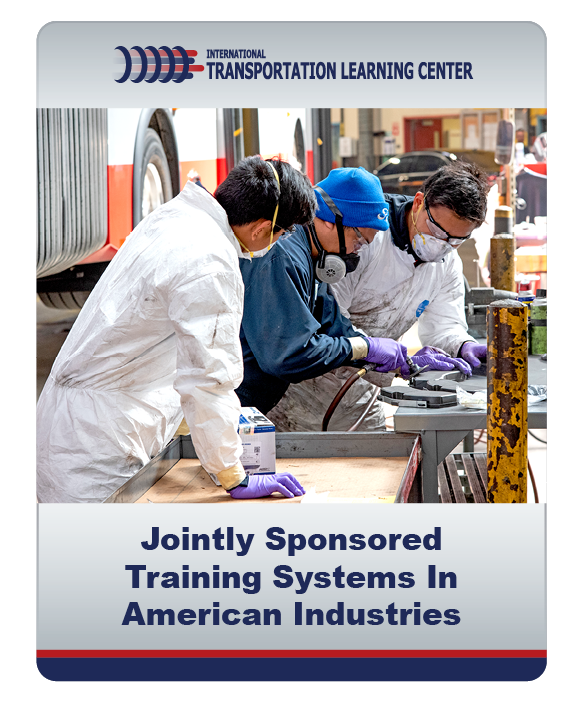
Jointly Sponsored Training Systems In American Industries
This paper examines recent developments in credentialing in jointly sponsored training and qualifications systems across the United States. This paper builds on previous work on building trades joint apprenticeship and training programs, describes their structure and activities, and documents their superior performance.
Written in collaboration with Robert W. Glover, the University of Texas at Austin.
International Transportation Learning Center
February 2009
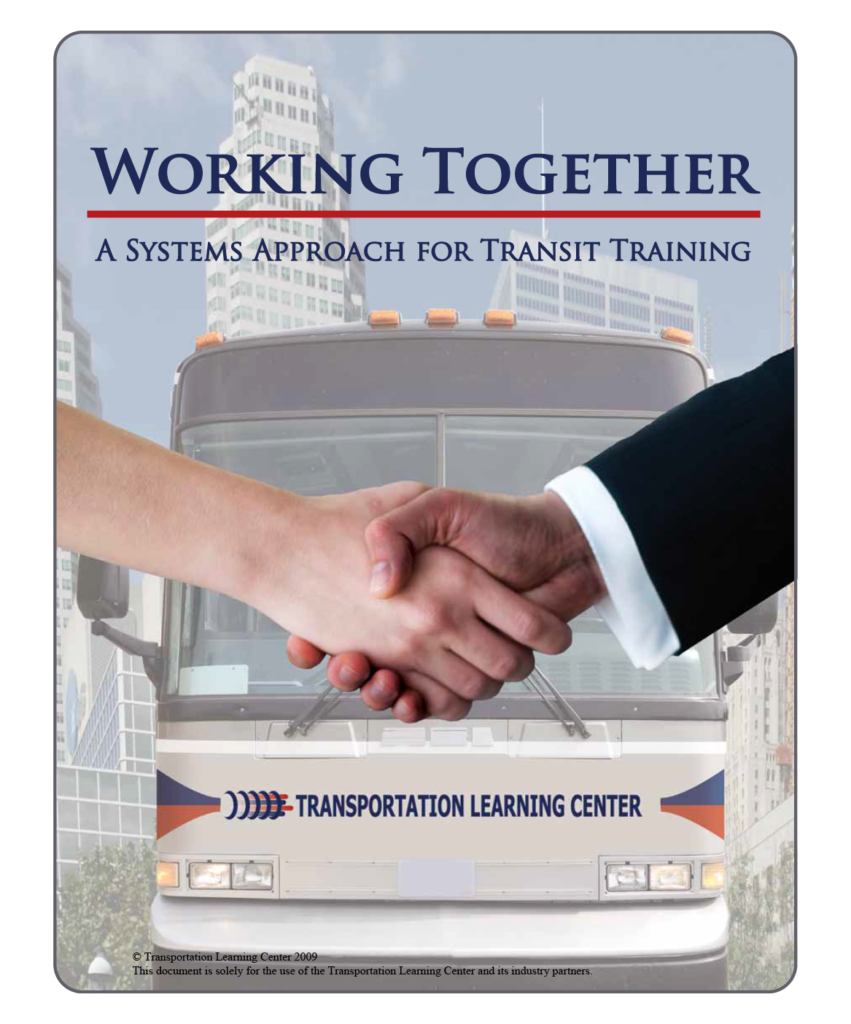
Working Together: A Systems Approach for Transit Training
Transit faces a critical skills challenge driven by changing technologies, shifting workforce demographics and record-breaking growth in ridership. Working Together: A Systems Approach for Transit Training outlines how constructive training partnerships provide the most effective way for the transit industry to address its skill challenges.
International Transportation Learning Center
January 2009
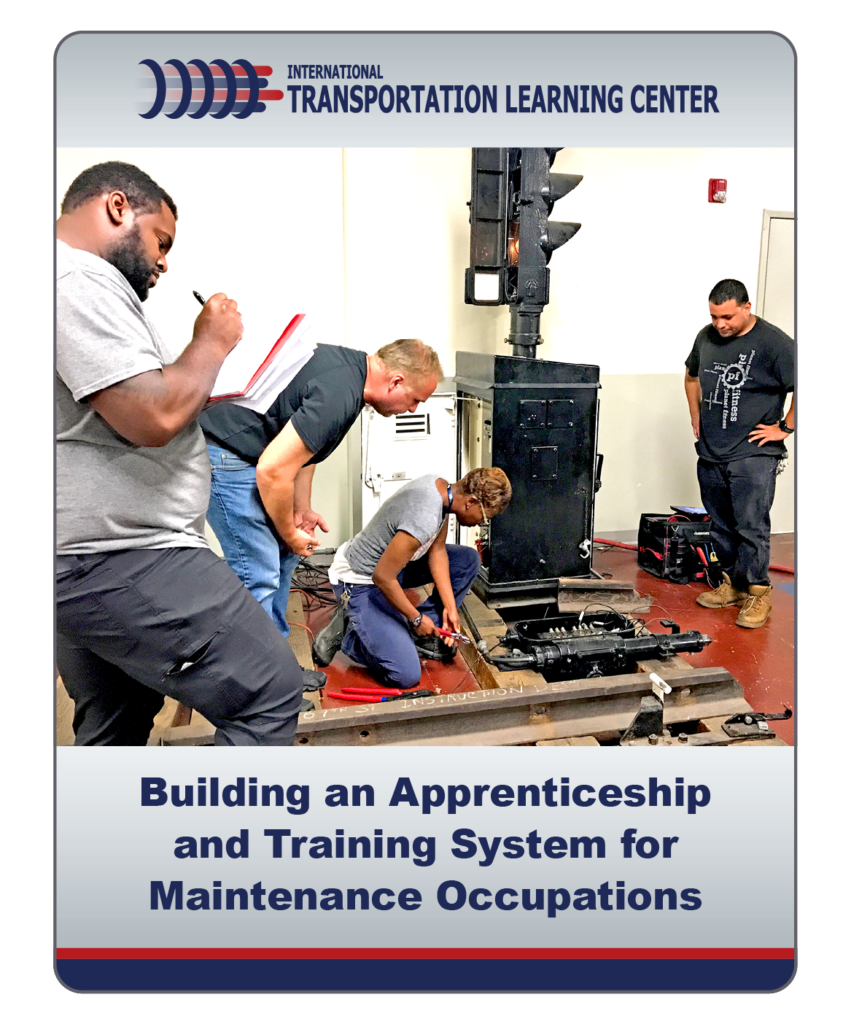
Building an Apprenticeship and Training System for Maintenance Occupations
This article discusses the joint training and apprenticeship system emerging in maintenance occupations in the American transit industry, as well as related challenges and strategies to overcome them. The article reports on early results, including efforts to develop a consensus national framework for apprenticeship and training in transit maintenance.
Written with Robert W. Glover, the University of Texas at Austin.
International Transportation Learning Center
January 2009
TOPICS: Apprenticeship , Career Pathways , Training
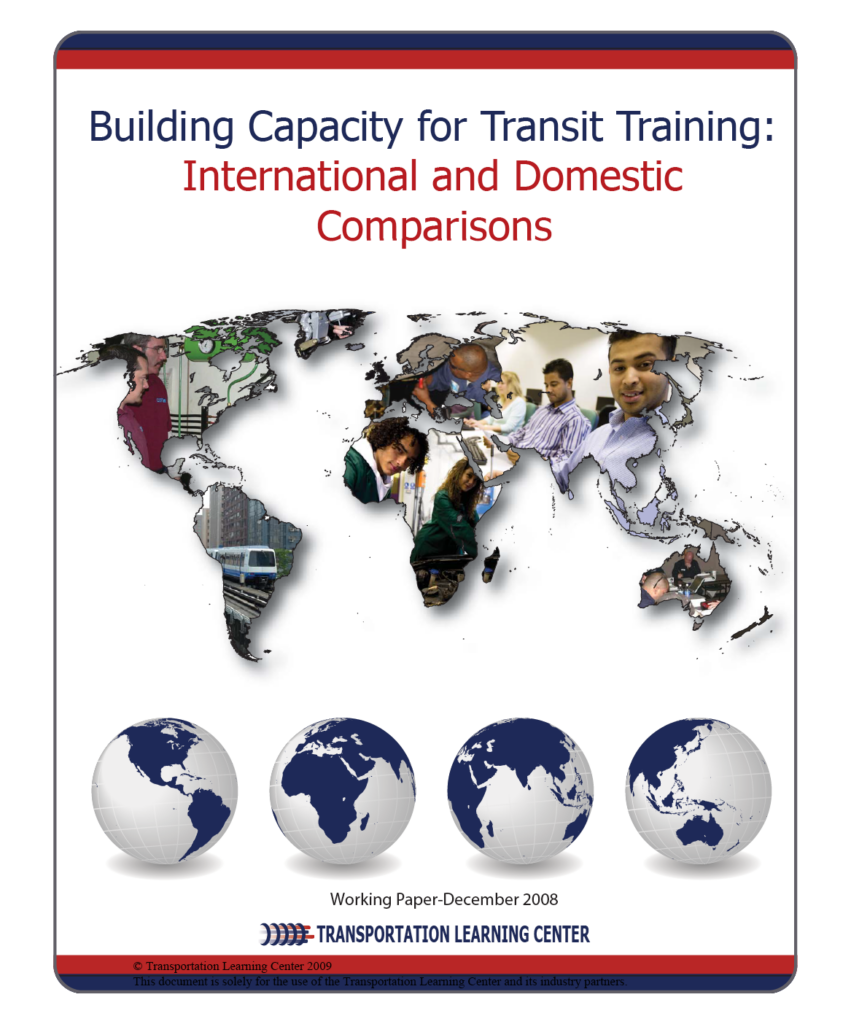
Building Capacity for Transit Training: International and Domestic Comparisons
This working paper provides an overview of the findings from research on strong industry-wide workforce development systems in six other countries and in several US industries. It identifies key features that could be adapted for use to create more effective US transit training.
International Transportation Learning Center
December 2008
TOPICS: Apprenticeship , Program Evaluation and ROI , Training
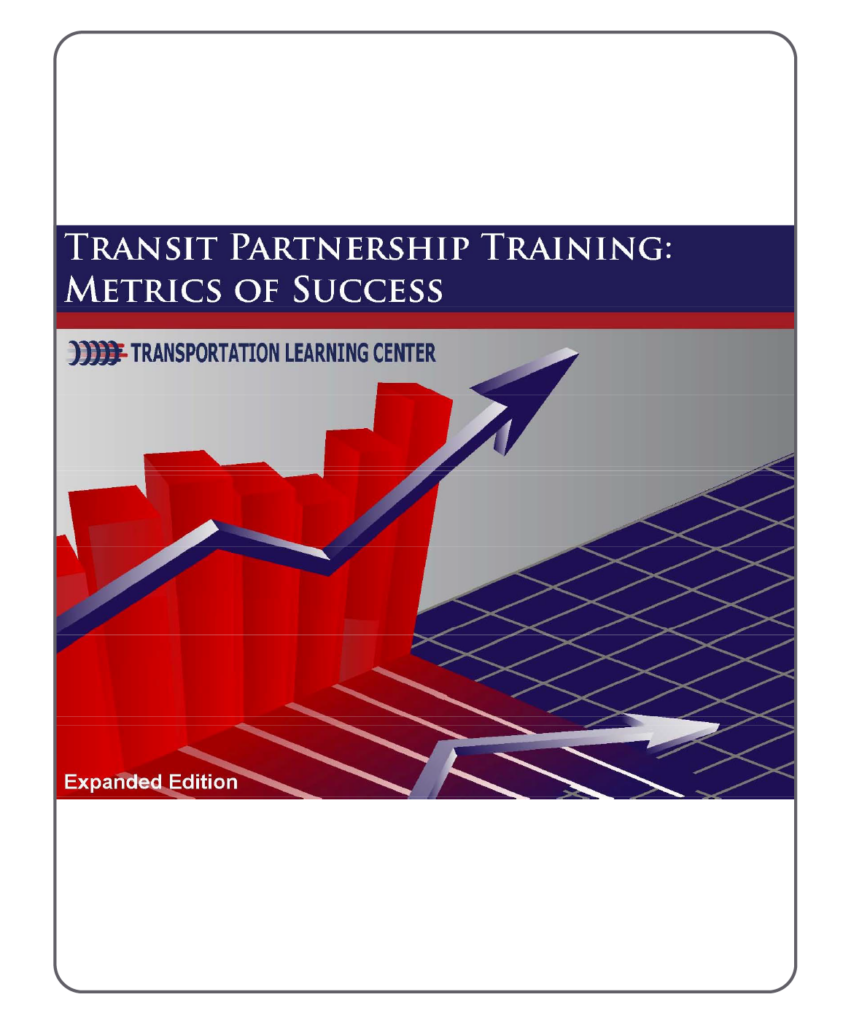
Metrics of Success Series
The Metrics of Success series chronicles measurable outcomes, in particular return on investment, of transit training partnerships in which the International Transportation Learning Center has had a substantial role. Each Metrics report focuses on quantitative data from a specific partnership, while Transit Partnership Training: Metrics of Success is an overview of key findings from all Metrics reports to date.
International Transportation Learning Center
May 2008
 Transit Partnership Training: Metrics of Success – Expanded Edition
Transit Partnership Training: Metrics of Success – Expanded Edition
 Smart Investment Partnership: New York State's Transit Workforce Training Proves its Worth
Smart Investment Partnership: New York State's Transit Workforce Training Proves its Worth
 Measuring Up: Keystone Training Partnership – Vol. 1
Measuring Up: Keystone Training Partnership – Vol. 1
 Measuring Up: Keystone Training Partnership – Vol. 2
Measuring Up: Keystone Training Partnership – Vol. 2
 Keystone – Making a Difference in Pennsylvania Transit
Keystone – Making a Difference in Pennsylvania Transit
 Keystone – Pennsylvania Transit on the High Road
Keystone – Pennsylvania Transit on the High Road
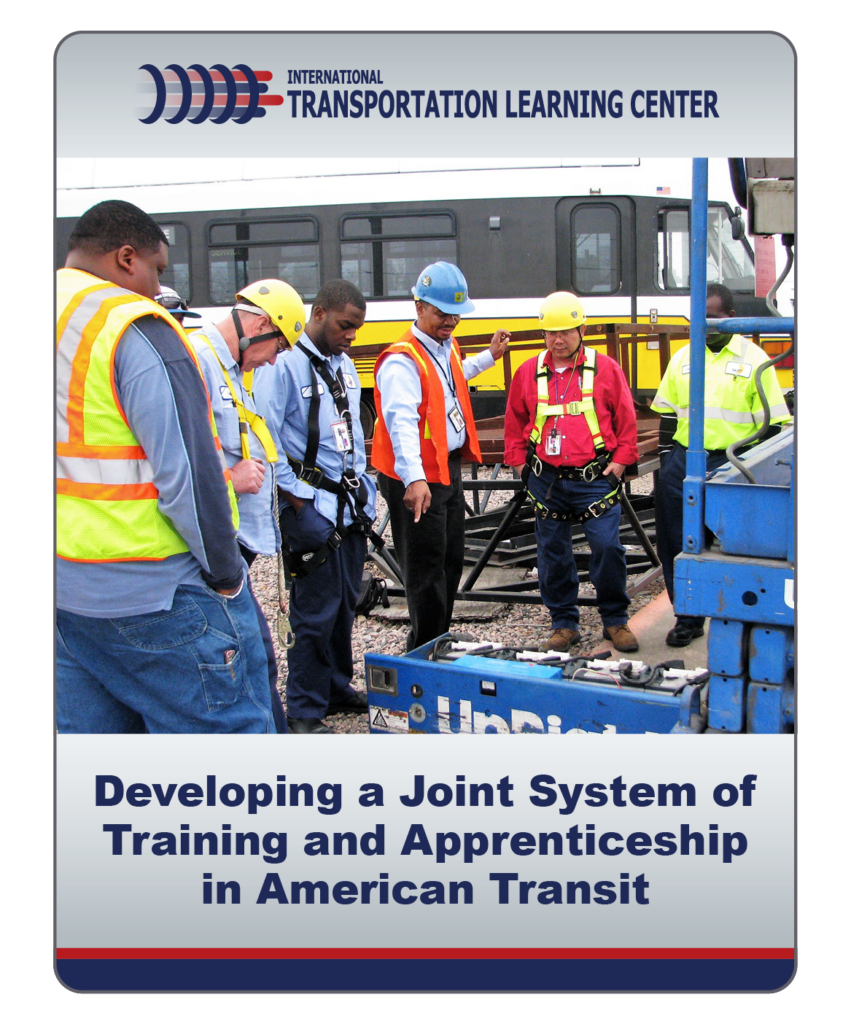
Developing a Joint System of Training and Apprenticeship in American Transit
This paper reviews training innovations and lessons that may be applicable to the transit industry from practices used in other industries. It draws on a rich body of experience of joint apprenticeship and training programs, as well as employer-sponsored training.
Prepared with Robert W. Glover, the University of Texas at Austin.
International Transportation Learning Center
September 2007
TOPICS: Apprenticeship , Policy and Planning , Training
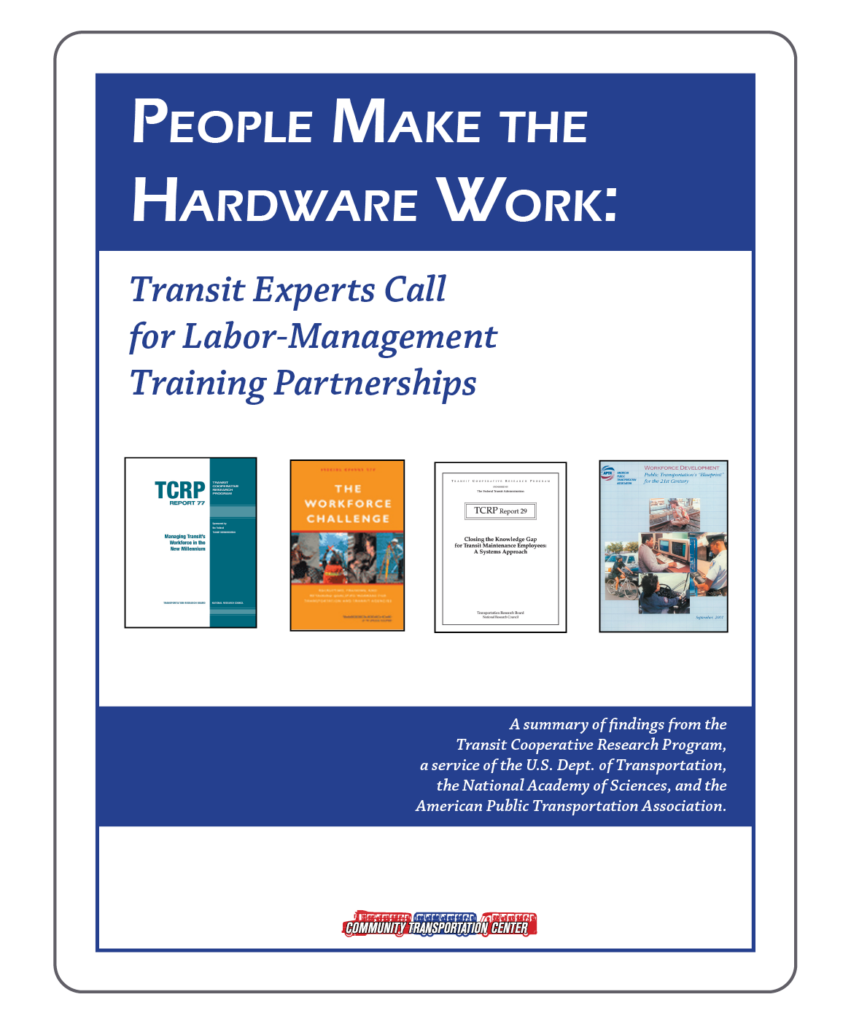
People Make the Hardware Work: Transit Experts Call for Labor-Management Training Partnerships
This short toolkit outlines five tools for success in labor-management training partnerships:
- Unions as Partners
- A Joint Training Strategy
- Empowering the Workforce
- Cultivating a Learning Organization
- Reaching High Performance
International Transportation Learning Center; Transit Cooperative Research Program
March 2007
TOPICS: Apprenticeship , Labor-Management Partnerships , Training
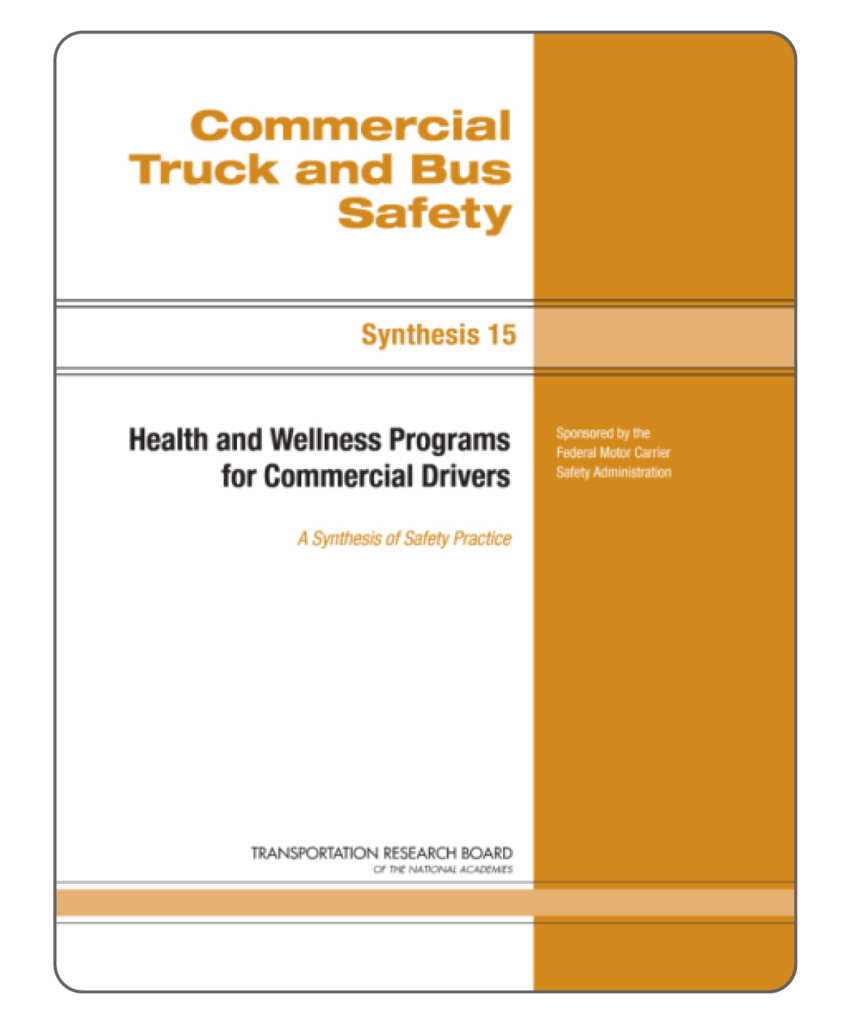
Health and Wellness Programs for Commercial Drivers
Commercial Truck and Bus Safety Synthesis Program
January 2007
TOPICS: Safety and Health
TRB’s Commercial Truck and Bus Safety Synthesis Program (CTBSSP) Synthesis 15: Health and Wellness Programs for Commercial Drivers explores health risks facing commercial truck and motorcoach drivers. The report examines the association between crash causation and functional impairments, elements of employee health and wellness programs that could be applied to commercial drivers, and existing trucking and motor coach employee health and wellness programs. In addition, the report includes several case studies on employee health and wellness programs in the truck and motorbus industries, focusing on the elements that appear to work effectively.
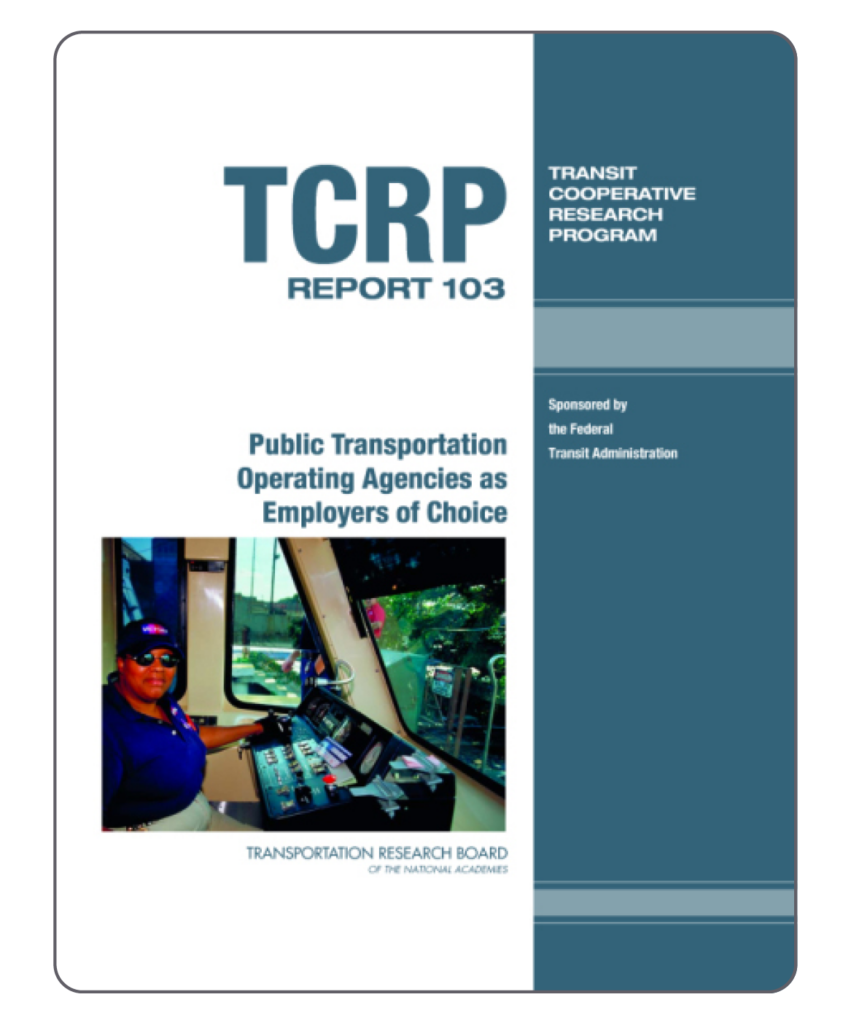
Public Transportation Operating Agencies as Employers of Choice
TRB’s Transit Cooperative Research Program (TCRP) Report 103 documents principles, techniques, and strategies that are used in workforce recruitment, development, and retention. The report includes a companion document, “Communications Strategy and Implementation Plan, Positioning the Public Transportation Operating Agency as an Employer of Choice” that describes strategies and solutions that offer the greatest potential for positioning public transportation operating agencies as an employer of choice.
Contributors: Watson Wyatt Worldwide and Focus Group Corporation
Transit Cooperative Research Program
January 2004
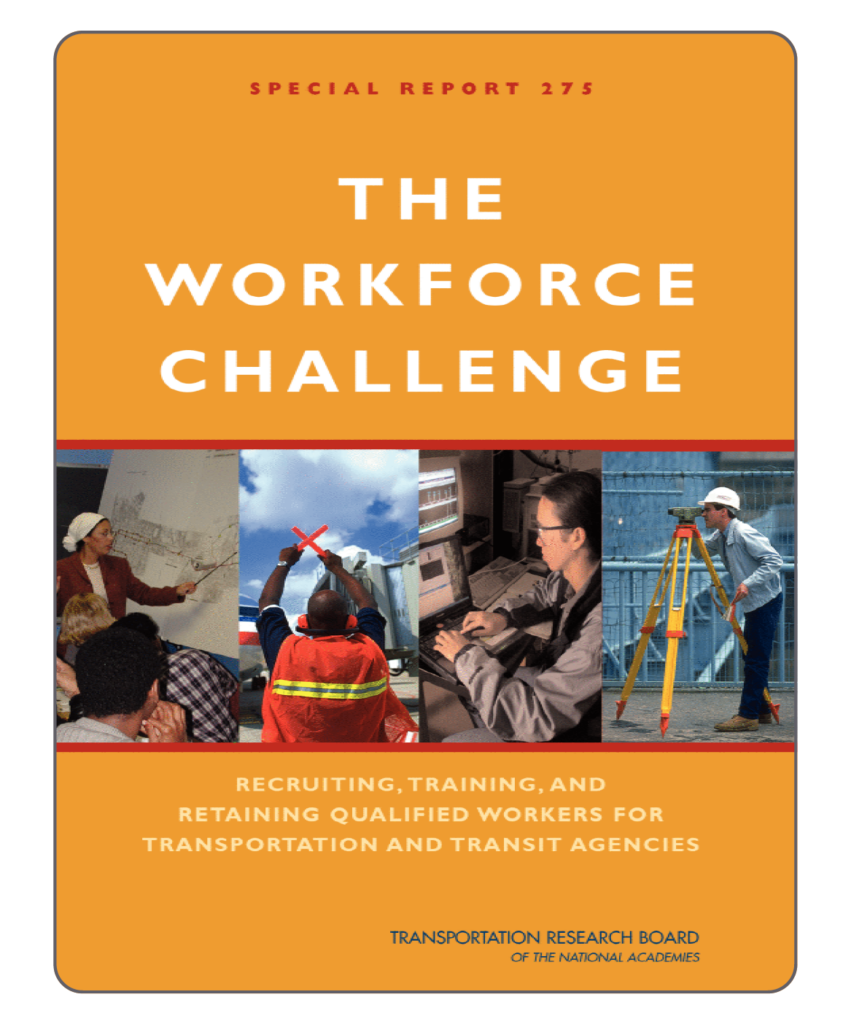
The Workforce Challenge
This report compiles research about the issues facing the transportation workforce, including changing skills, an aging workforce, and low prioritization of training. The report recommends working to expand existing federal and academic resources, create an institutional focus for the issue, and establish human resources management as a strategic function within the transportation community.
Transportation Research Board
January 2003
TOPICS: Hiring and Recruitment , Policy and Planning , Procurement , Retention , Training
Contributor(s): National Academies of Sciences, Engineering, and Medicine; Transportation Research Board; Committee on Future Surface Transportation Agency Human Resource Needs: Strategies for Recruiting, Training, and Retaining Personnel
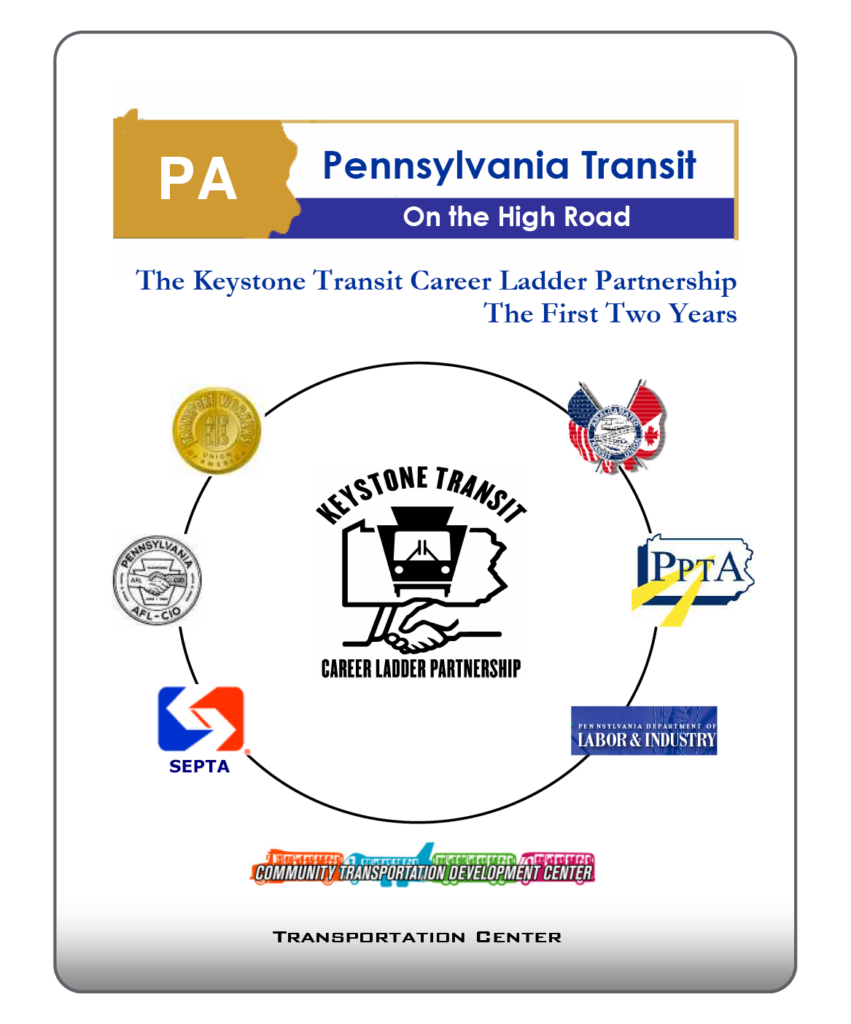
Pennsylvania Transit on the High Road
This report is part of a larger case study that chronicles the development of the Keystone Transit Career Ladder Partnership, including the process of job task/work task analysis, skills gap analysis, and data-driven training development.
International Transportation Learning Center
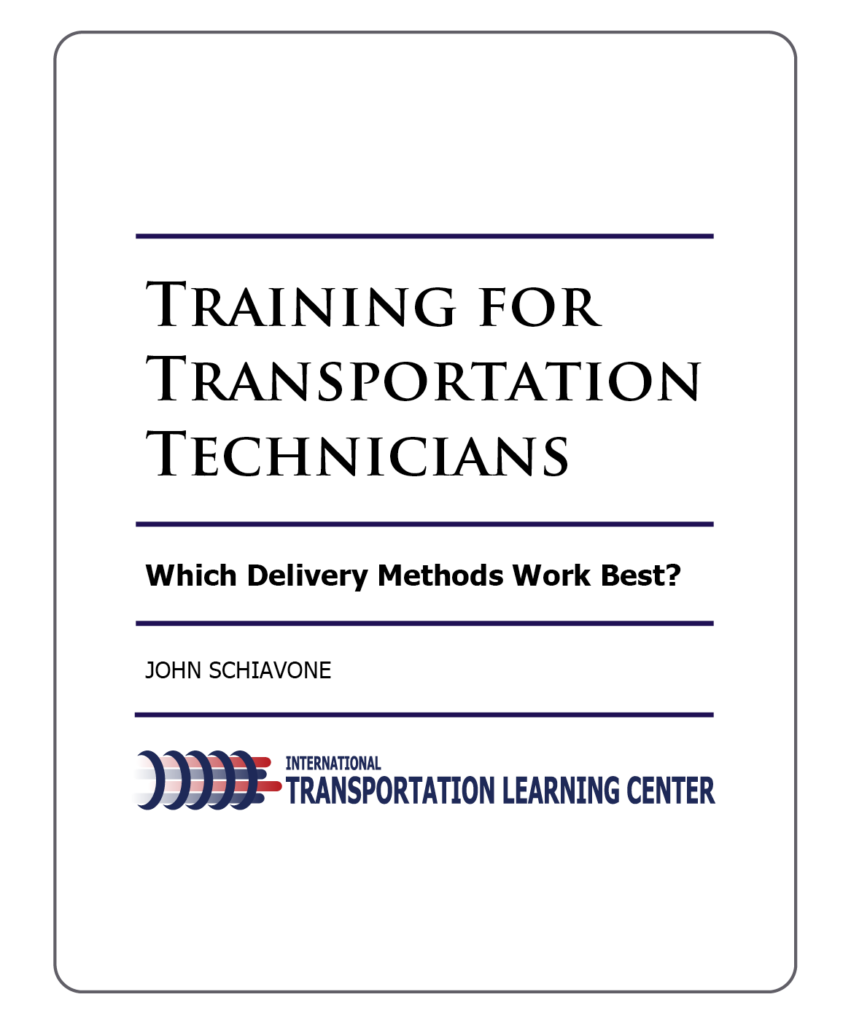
Training for Transportation Technicians: Which Delivery Methods Work Best?
This paper explores what is the most effective way to train transportation technicians. It proposes a blended approach combining classroom time with interactive hands-on demonstrations, followed by structured on-the-job training (OJT) and mentoring.
International Transportation Learning Center
TOPICS: Apprenticeship , Career Pathways , Mentorship , Training
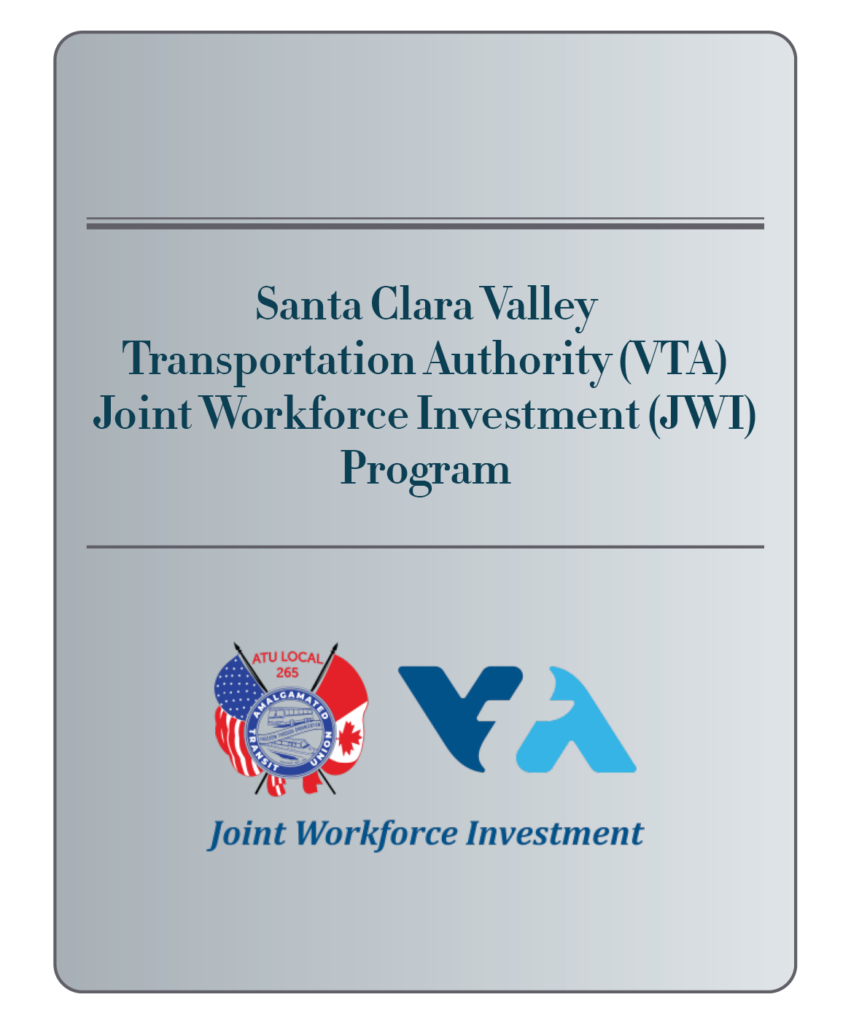
Santa Clara Valley Transportation Authority (VTA) Joint Workforce Investment Program
This case study examines the Joint Workforce Investment (JWI), established in 2006, which is a joint labor management partnership between the Santa Clara Valley Transportation Authority (VTA) and the Amalgamated Transit Union Local 265 (ATU). It includes discussion of three primary programs brought together under the JWI initiative: the Maintenance Career Ladders Training Project (MCLTP), New Operator/Mentor Pilot Project, and Health and Wellness Project.
ICF International
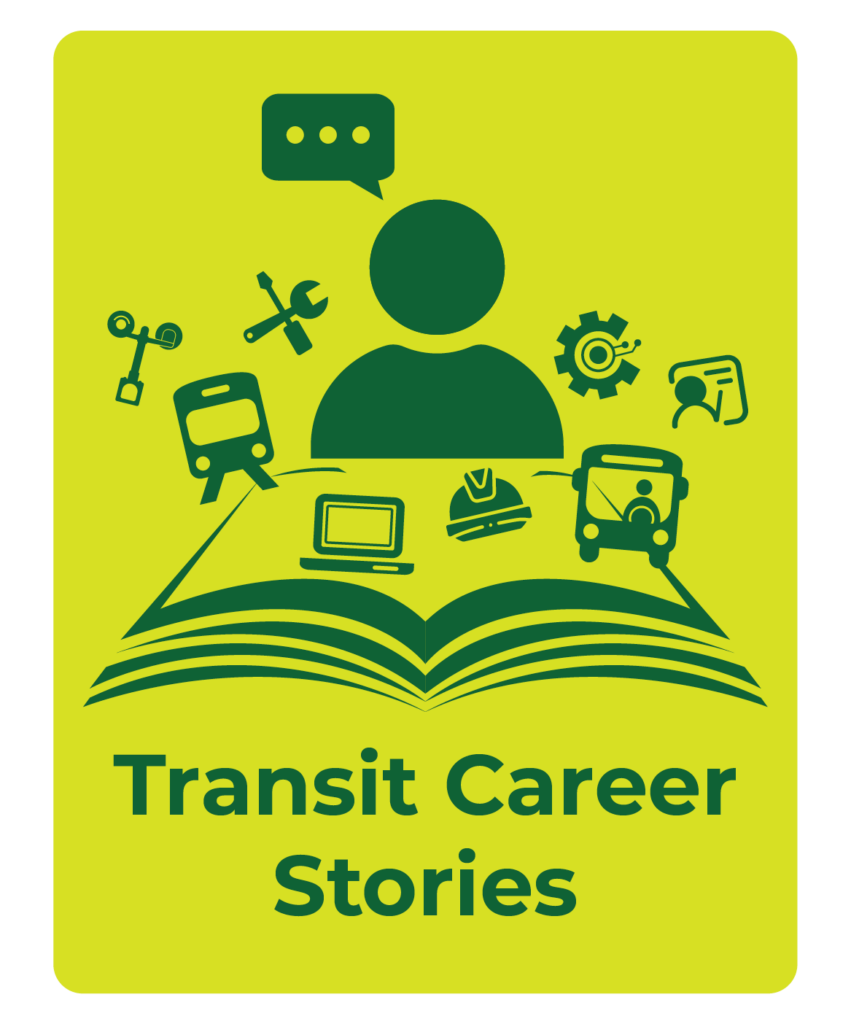
Transit Career Stories
Transit Workforce Center
TOPICS: Career Pathways , Community Engagement , Mentorship
These Transit Career Stories showcase workers’ journeys and career pathways to help increase awareness of transit careers. Learn from these professionals and community leaders through their own telling of what they do, how they got there, and what makes their work exciting and rewarding.
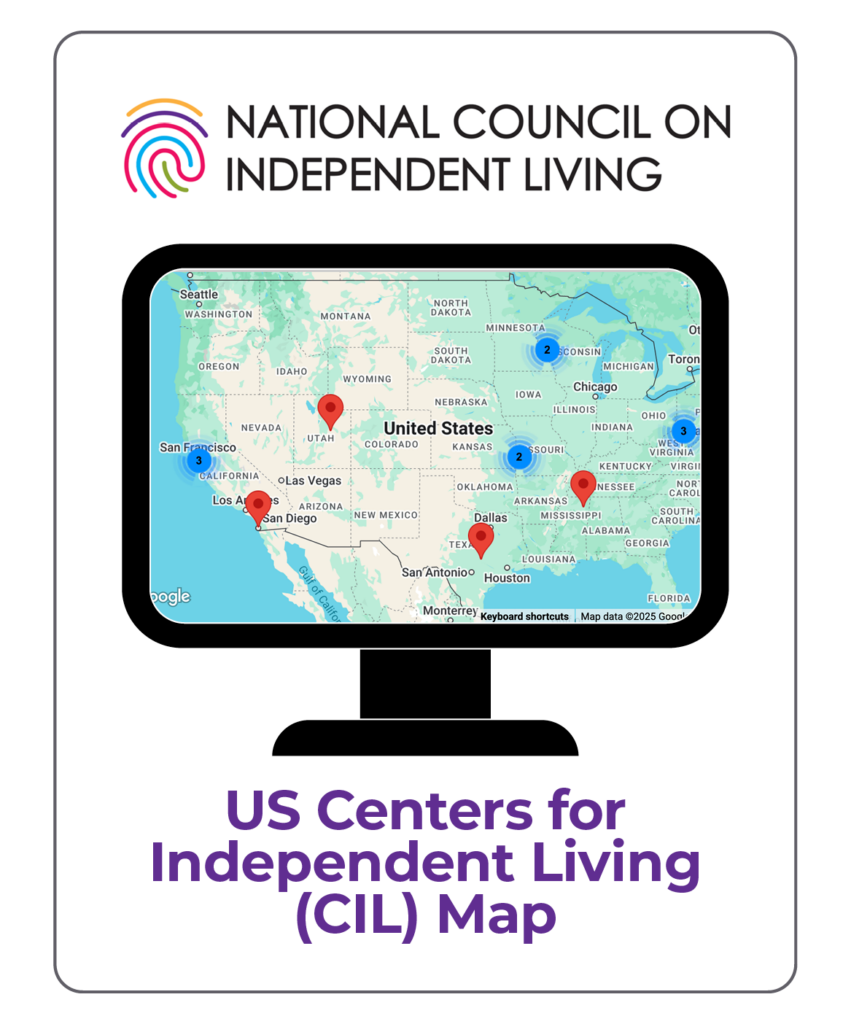
US Centers for Independent Living (CIL) Map
National Council on Independent Living
NCIL maintains a map of US CILs on their website. CILs can be a great partner in connecting people with disabilities to transit jobs. CILs are advocacy organizations run by and for people with disabilities in local communities. CILs provide peer support, independent living skills training, information and referral, individual and systems advocacy, and transition from institutions and secondary education. Use the link below to find the nearest your nearest CIL.








